This FR is the return flight of Flight AF292, after a three week vacation in Japan with my wife.
Better warn you in case this is the first time you read me: this FR is long, because it is a LH flight, because there were few clouds on the most interesting part of the route, and first and foremost because I never manage to write a short report.
Three days before the flight, an e-mail from AF announced that the flight would be shifted ten minutes late, probably because of problems of take-off slots in KIX which was going to prove heavily loaded at that time. The impact for us was negligible both in Osaka and in Paris.
I connected to AF’s OLCI at ETD-30h. An upgrade was proposed at 179 EUR in Y+ and 395 EUR in J : this was cheap compared to the fares in these classes at time of booking these tickets, but we had no intention of spending more (the rise of the yen against the euro had meant a significant increase in the cost of our vacation) for a flight in an unrenovated NEV4 cabin, since only random flights appear to have a “Best & Beyond” cabin on that line.
There were no twin seats left available, and I decide to try again the gamble of the neutralized middle seat, changing this automatic seat selection…
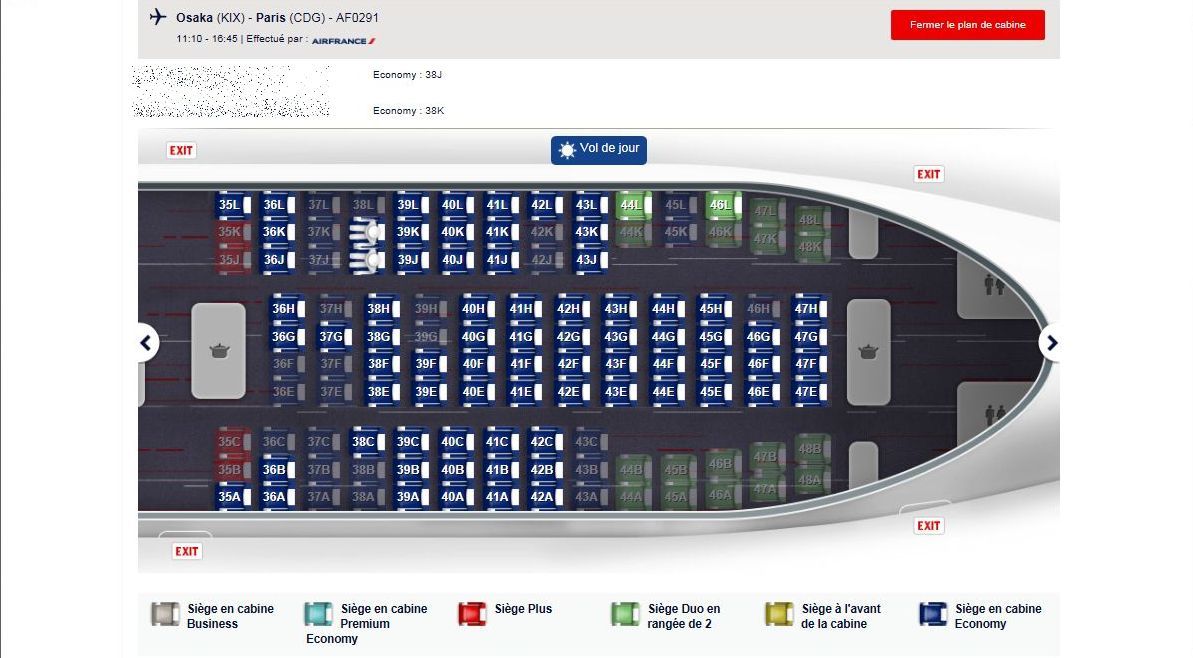
… into this one : on the north side for having good lighting conditions, and as far back as possible so that the middle seat would be as unattractive as possible. My wife was uneasy at the prospect of this aisle seat identified by Seatguru as being often knocked by passengers coming back from the toilets or the galley, but it eventually turned out that she had no problem on this day flight during which our anti-jetlag strategy was to not sleep at all.
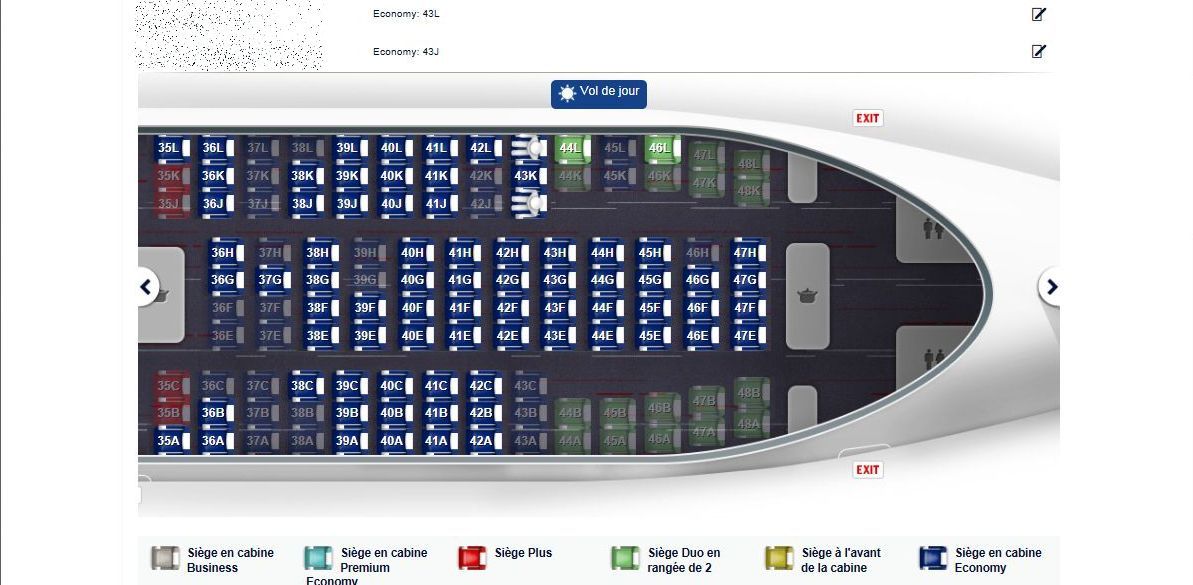
Early on the day of the flight, this weather map on TV showed that if we had endured two weeks of searing heat, with maximum temperatures around 36°C and peaking at 39.5 °C, we had escaped from the worst, i.e. a first typhoon which wreaked havoc in the north of the country from Sendai to Hokkaidō, and a second typhoon heading straight towards Tōkyō (lower tip of the right arrow) while Ōsaka (lower tip of the left arrow) is spared.
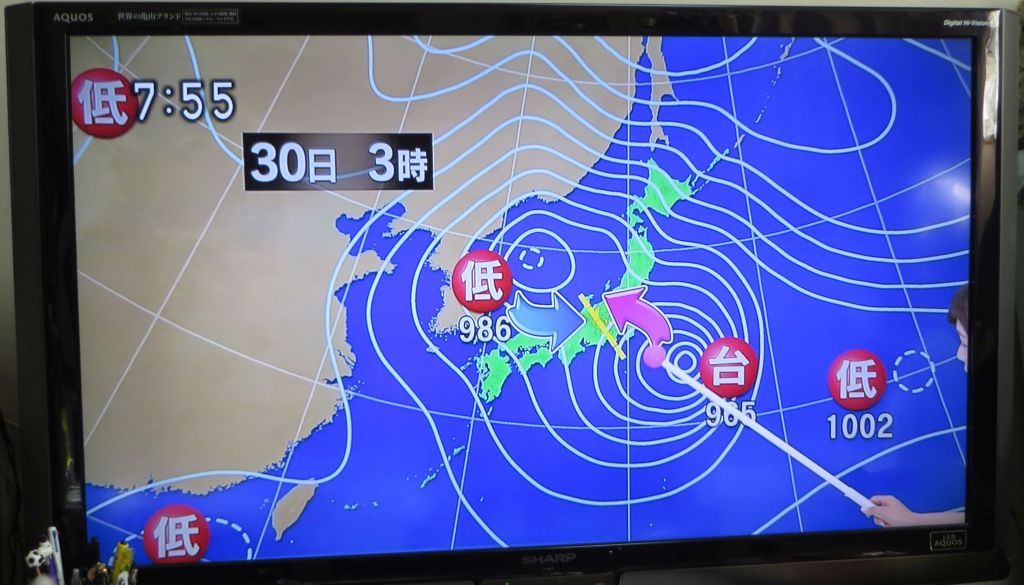
This translates for Jal by 7 flight cancellations from ITM (Ōsaka 大阪) to AOJ (Aomor i青森), MSJ (Misawa 三沢), GAJ (Yamagata 山形) and SDJ (Sendai 仙台), while there is perfect fair weather above Ōsaka’s central station, left, and ITM right. The other airlines do not fare better, but I spare you from all my screen shots.
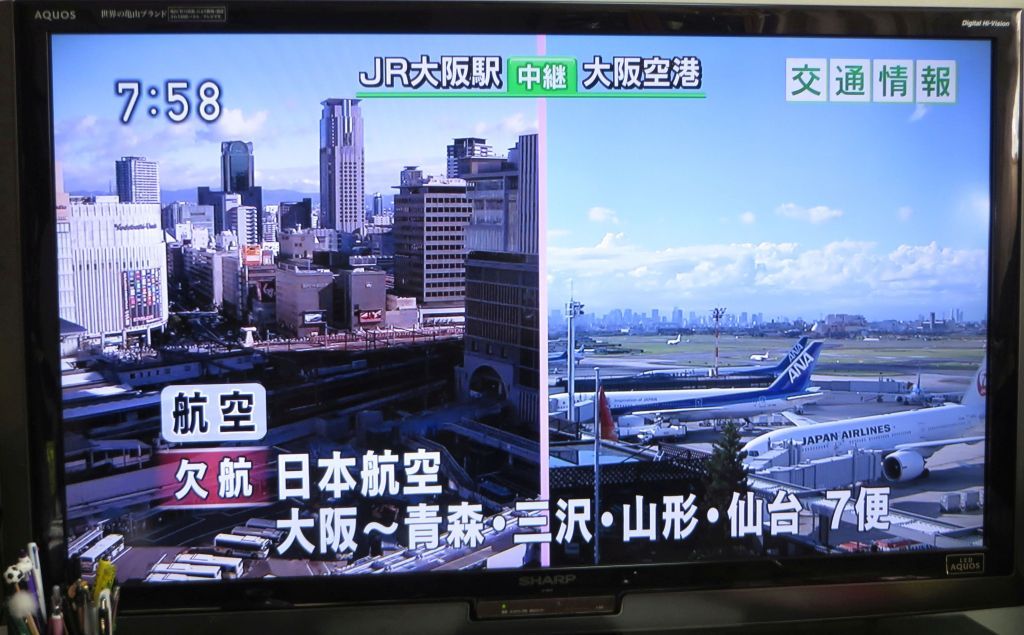
What counts too is the condition of the traffic because our friend has kindly proposed to drive us to KIX, which is going to be an hour and a half faster than by train. Since he lives in the outskirts of Ōsaka, the route takes the outside expressways which are entirely green all the way to KIX, whereas the situation is much more complicated in the center of the urban area, in dark blue, and sometimes in red in some directions.
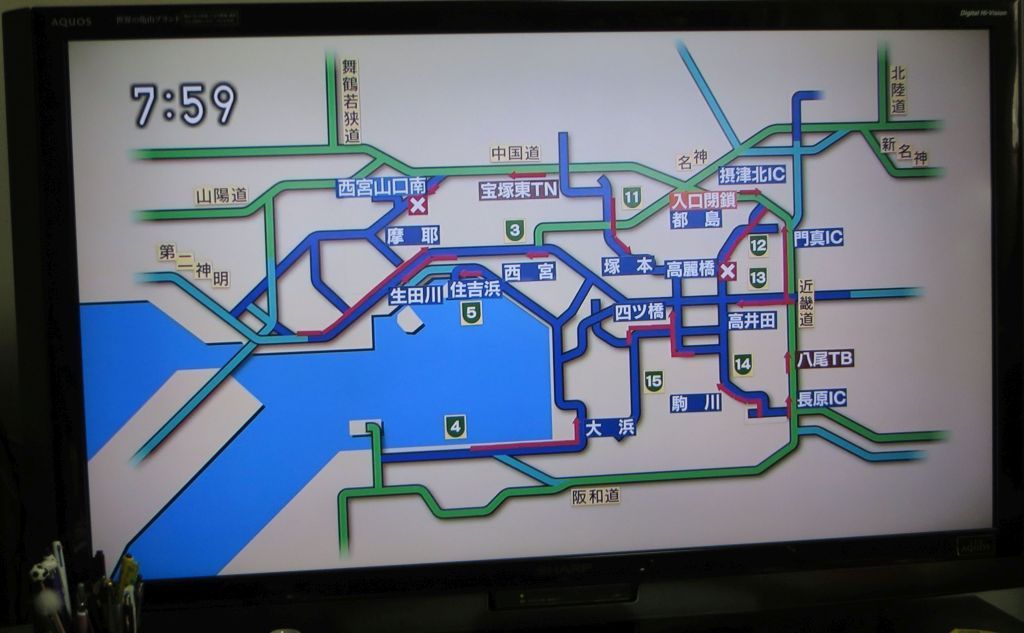
There is often nothing interesting to be seen from a Japanese expressway (what is interesting is masked by noise barriers) and this trip is no exception. The direction of KIX is already marked here, top right, on the left, “Osaka City” is a simplification because we are already in 大阪市内 means literally “Inner Ōsaka City”, i.e. the city center.
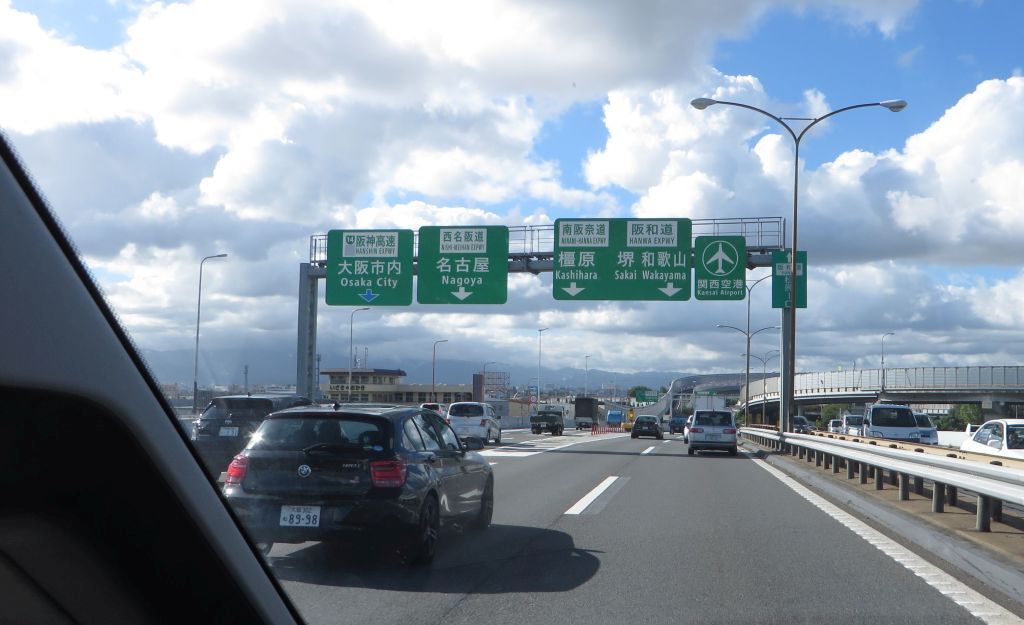
Reaching the fork towards the mixed rail (lower level) and expressway (upper level) bridge which is the only “land” link of KIX (there are ferries across the bay too). Have a look at its structure: its 3,750 m length makes it the longest truss bridge in the world
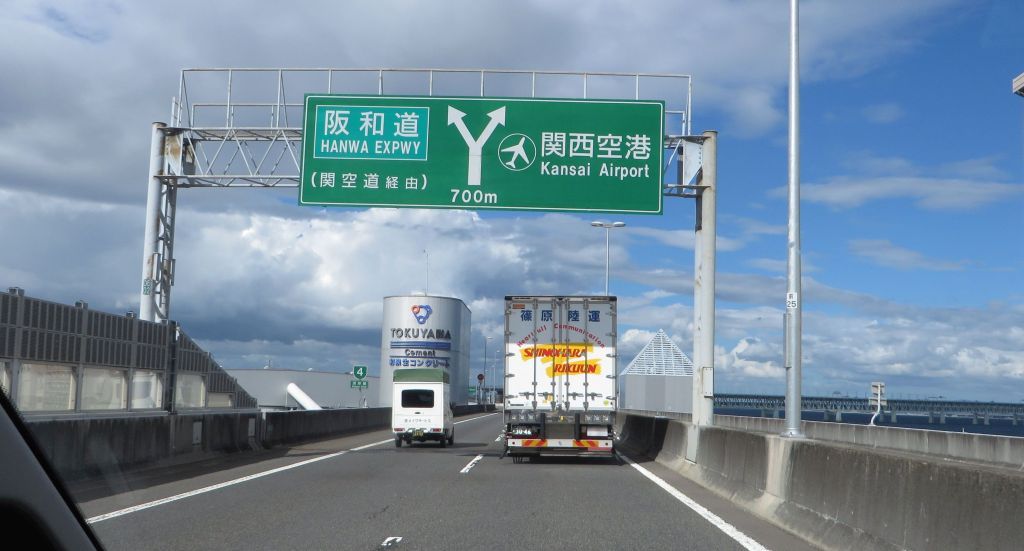
When it was being built, a number of future employees of KIX living in the immediate vicinity expected to ride their bicycle to work, and were incensed to discover that no bicycle lane had been included in the bridge’s design, and that it was too late to change it.
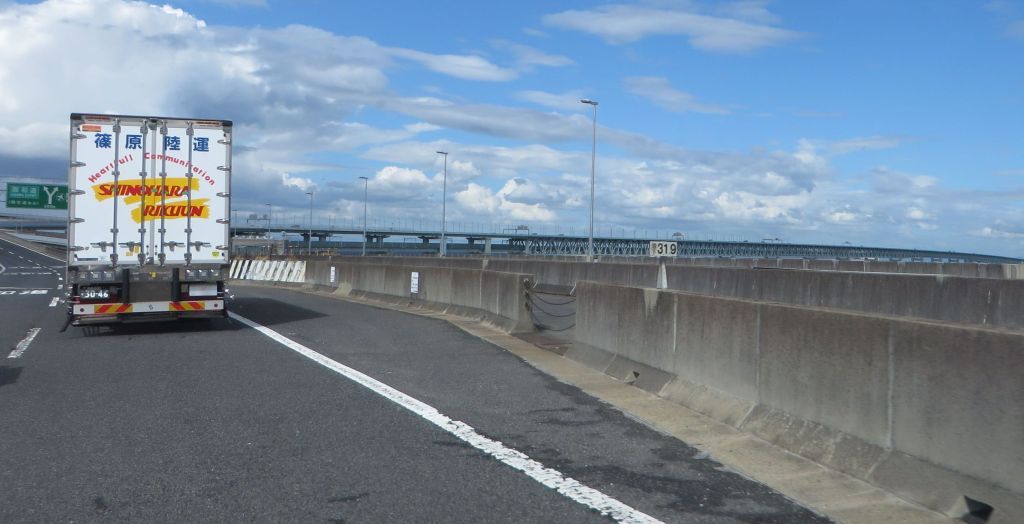
First sight of KIX Terminal 1
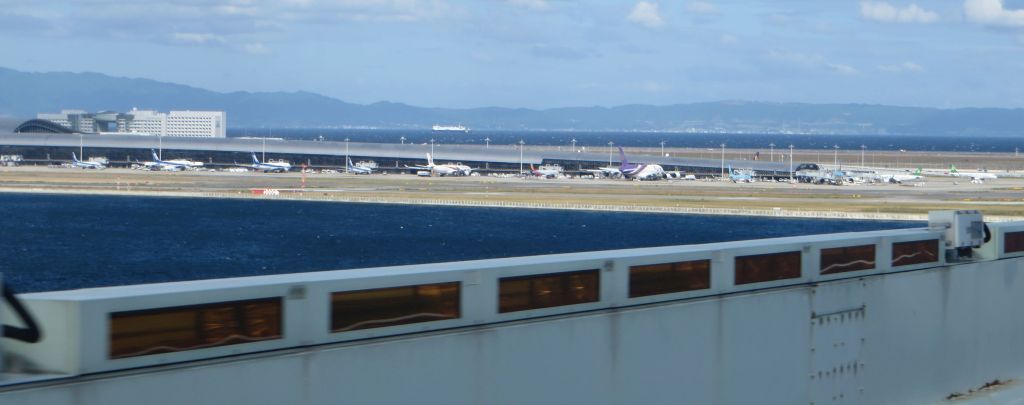
And a hassle free arrival at the drop off zone which is nearly empty. It is all the faster that there is no channel with tickets, gates and other facilities for dissuading drivers from lingering there : they are useless since the Japanese abide by the rules.
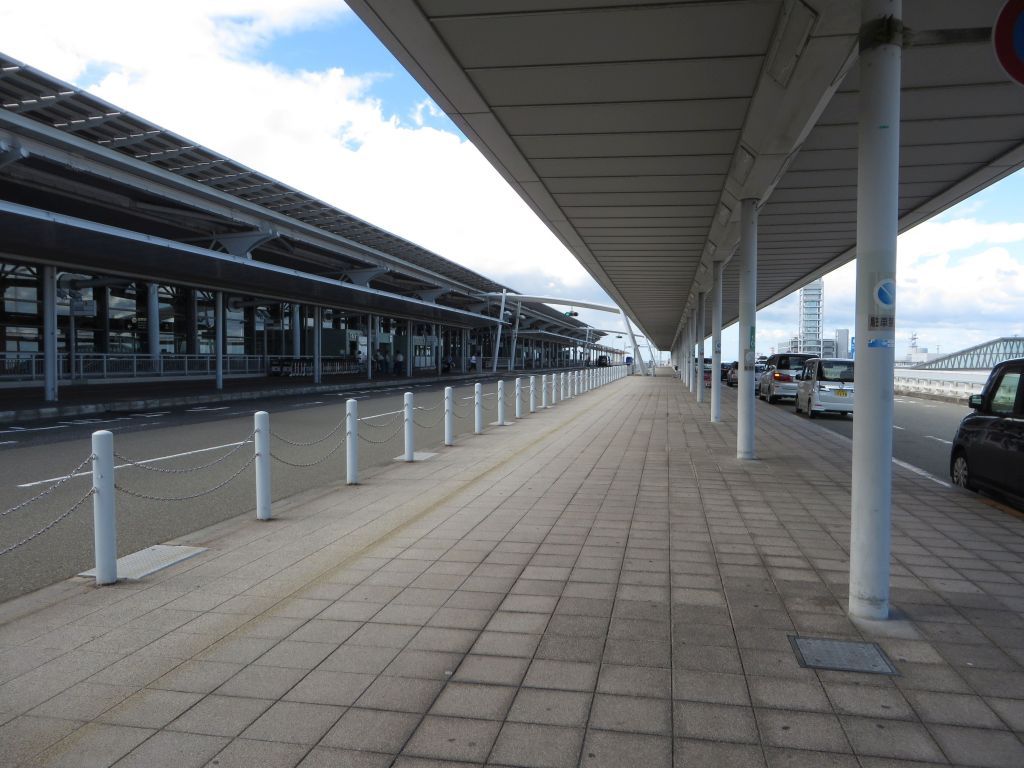
Withdrawing a BP from these machines is fast, but they do not deliver luggage tags.
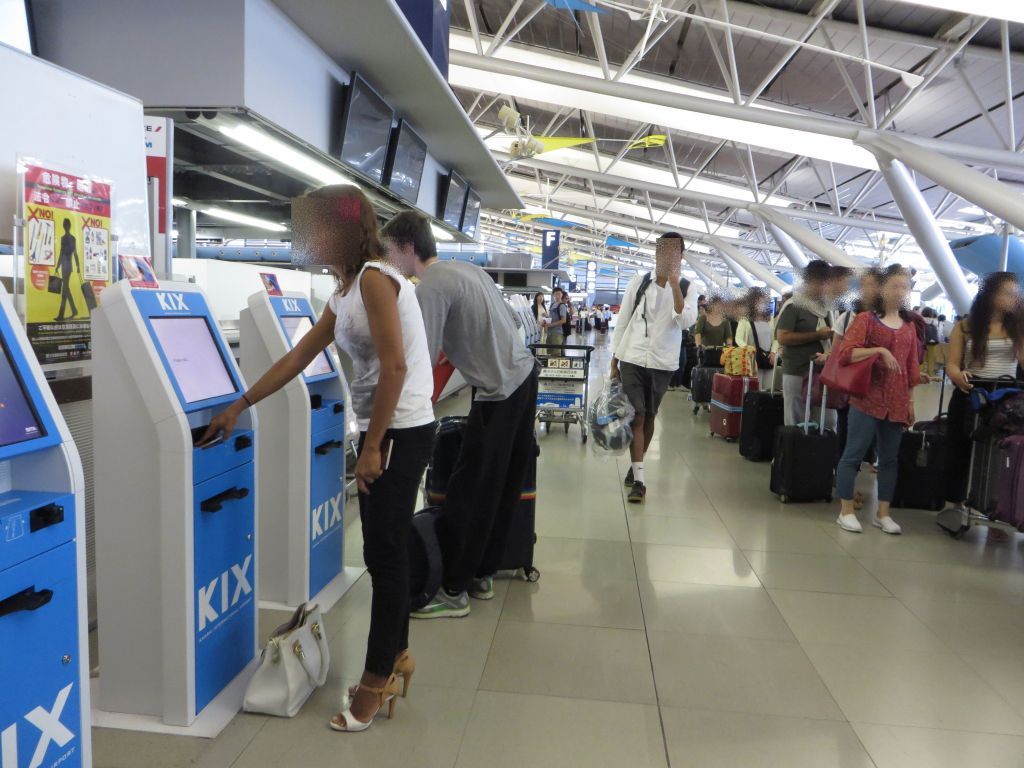
On the other hand, the same check in counters handle both the AF and KL flights departing around the same time : there is a looong line, no matter if you chose the luggage drop–off or the fully manual check in option.
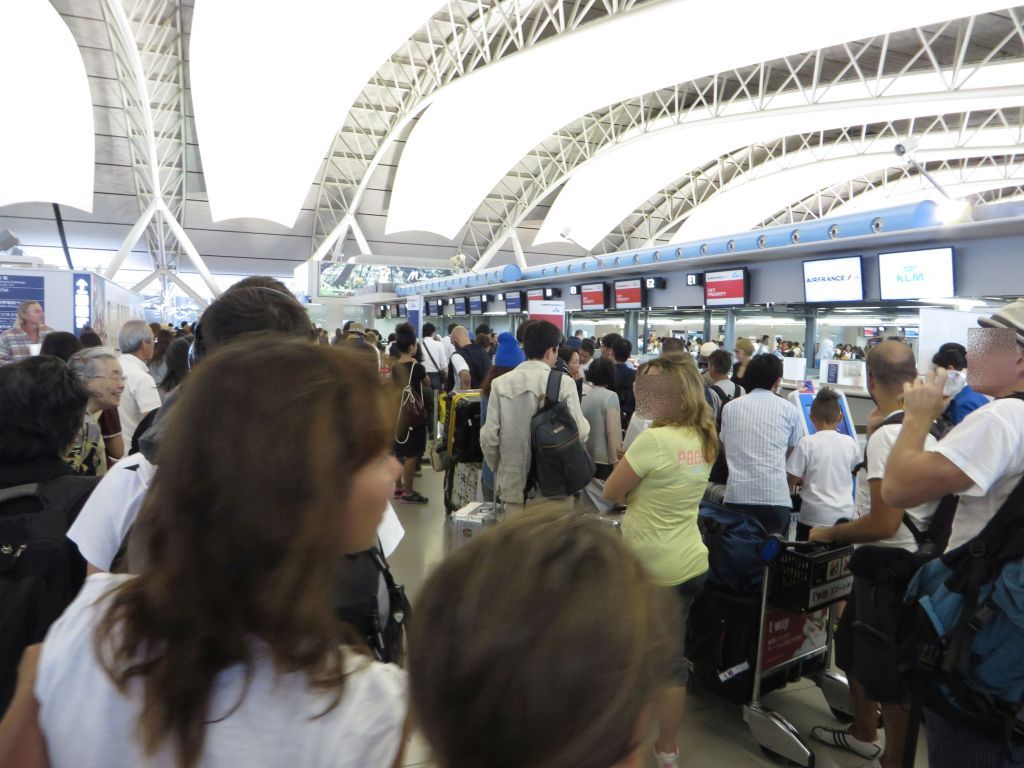
Staff pass around to have passengers on the earlier KL flight handled in priority, because there are delays at the security check too.
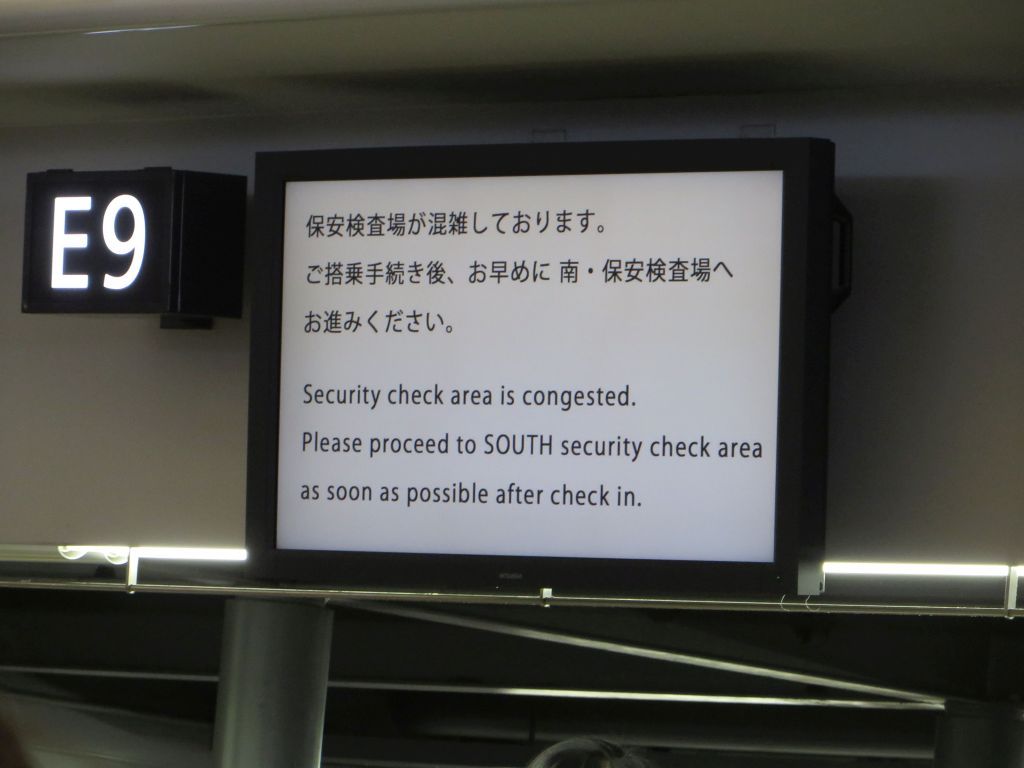
The story behind this picture is easy to guess : this passenger has a two 23kg piece checked luggage allowance, but loaded one of her suitcases with manga and books. Other reports on this website already highlighted that in Japan, check in staff is adamant about the individual weight of luggage, even if the total weight is OK, and even though all checked luggage handling systems in the world are compatible with a 32 kg limit. Hence this last minute reshuffling chore of the contents of her suitcases, met with success as we later see her boarding our flight.
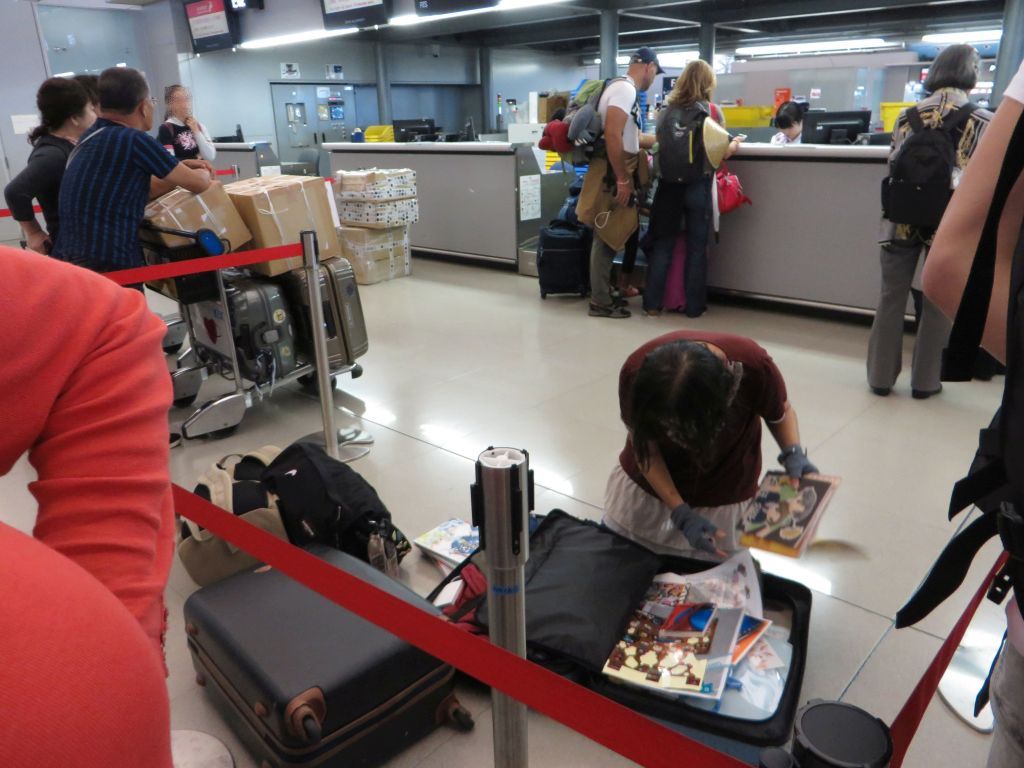
Our suitcase took on two kilos during this vacation, whereas each of us lost the same weight : eating delicious food in Japan with no limits is the most pleasant way to shed some weight that I know.
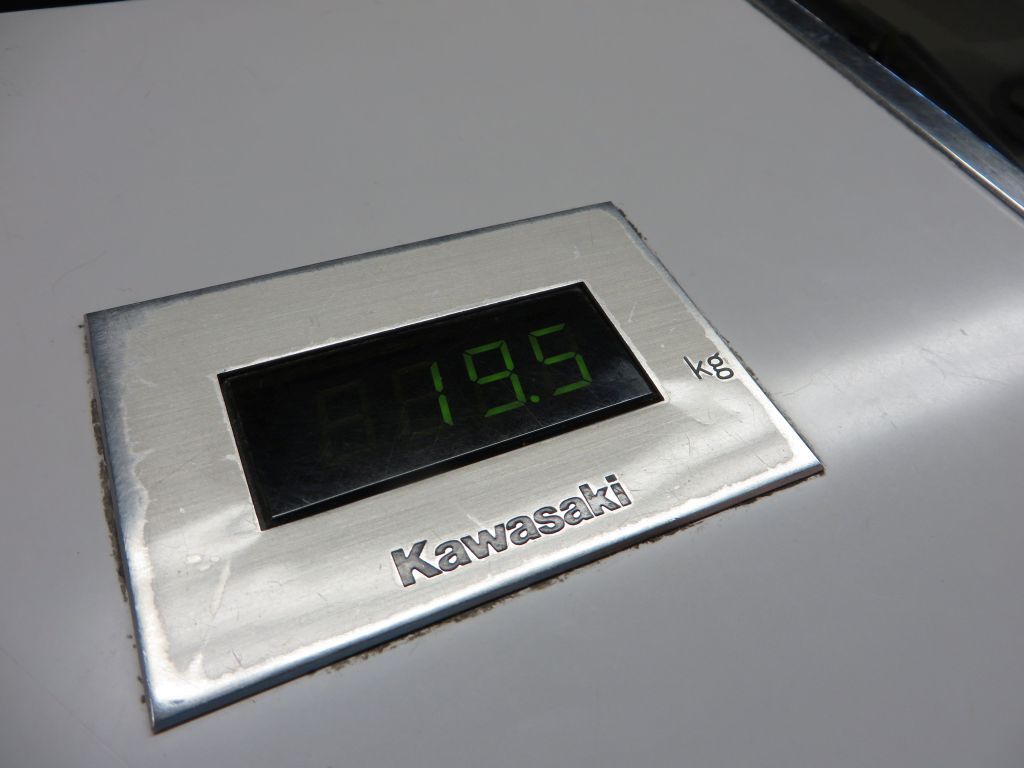
54 minutes elapsed between our arrival in the line and our leaving towards the security check, which is a really bad score for KIX.
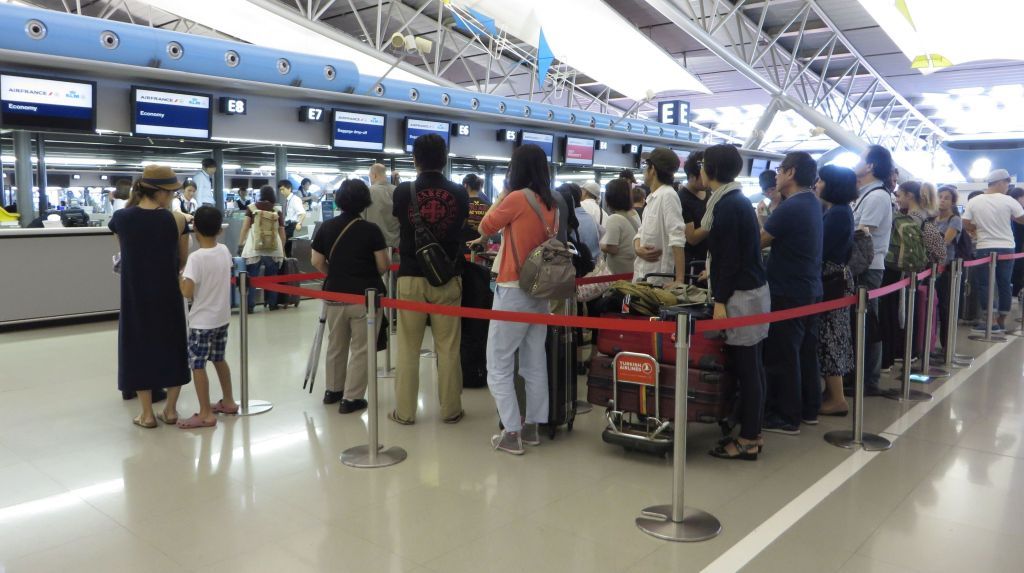
There is a long line for the security check, but it moves quickly : it takes 13 minutes to get through it, and another 7 minutes for going through immigration. Afterwards, there is a ride on a people mover moving people on a very short distance.
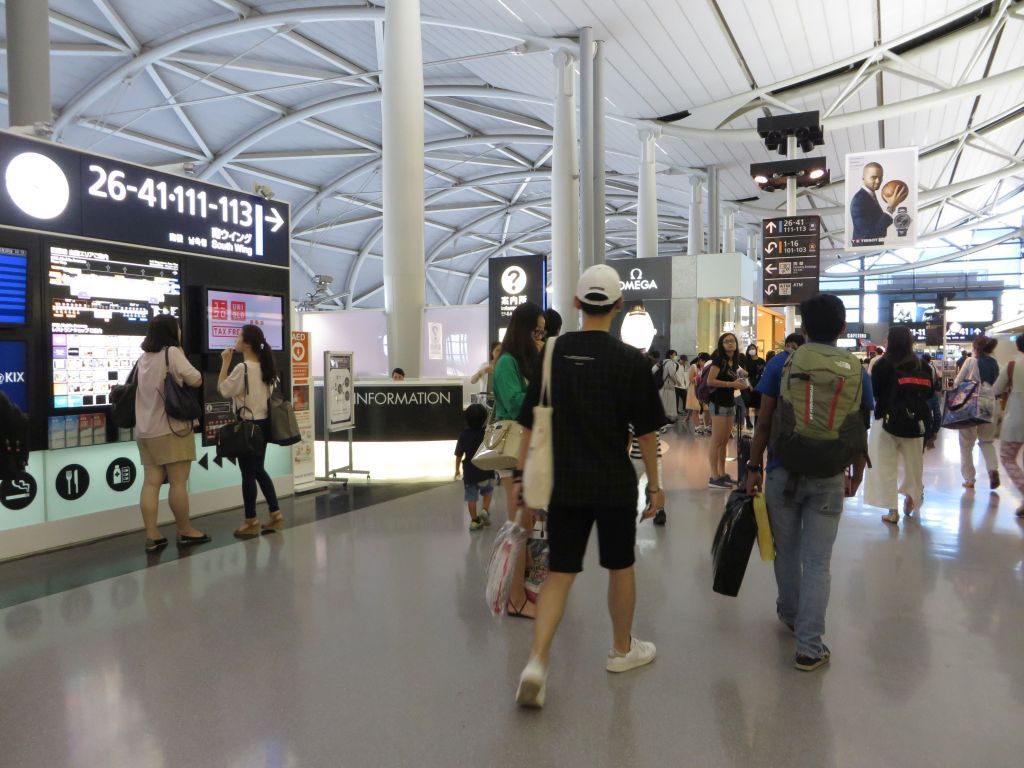
These are at last the AF and KL 777s next to each other
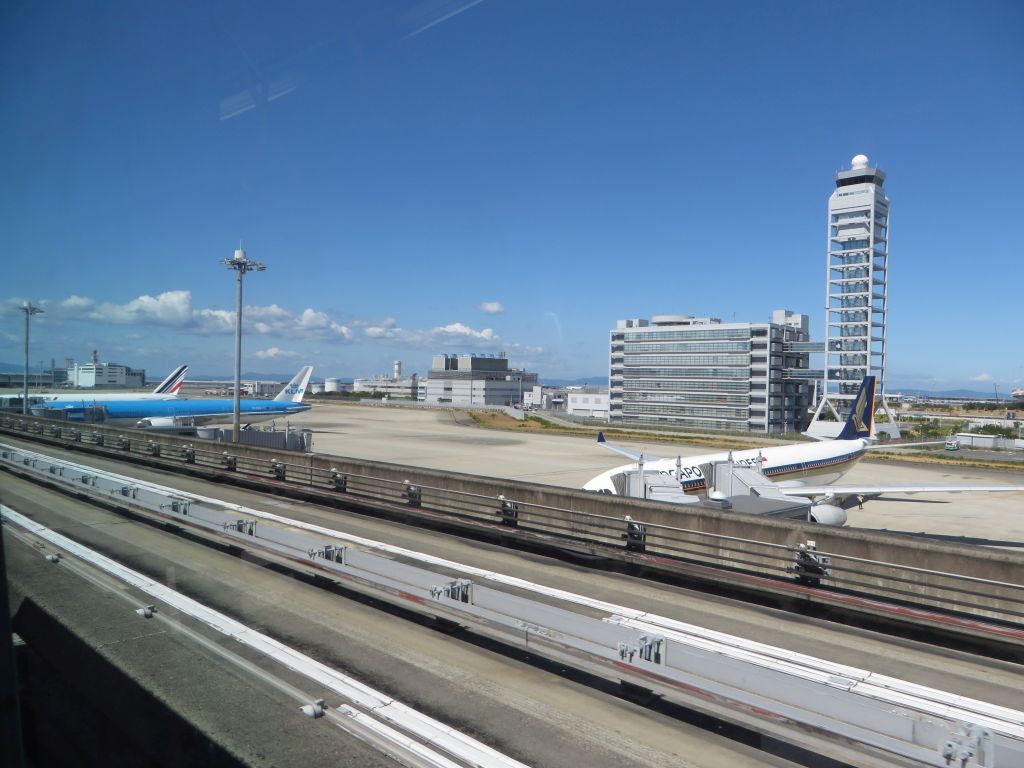
We did not make any error on the way and did not stop anywhere for picture taking, shopping or toilets reasons, and yet it took us 1h25’ from our arrival landside to our boarding gate where I leave my wife with our hand luggage for eleven minutes of plane spotting at a brisk walking pace. Quite frankly, given the time our friend dropped us off, I had expected to have at least three times more. Too bad because this terminal is very plane spotter friendly, with excellent views on the planes parked at the gates, taxiing and landing/taking off on one of the runways, and the weather conditions were optimum too.
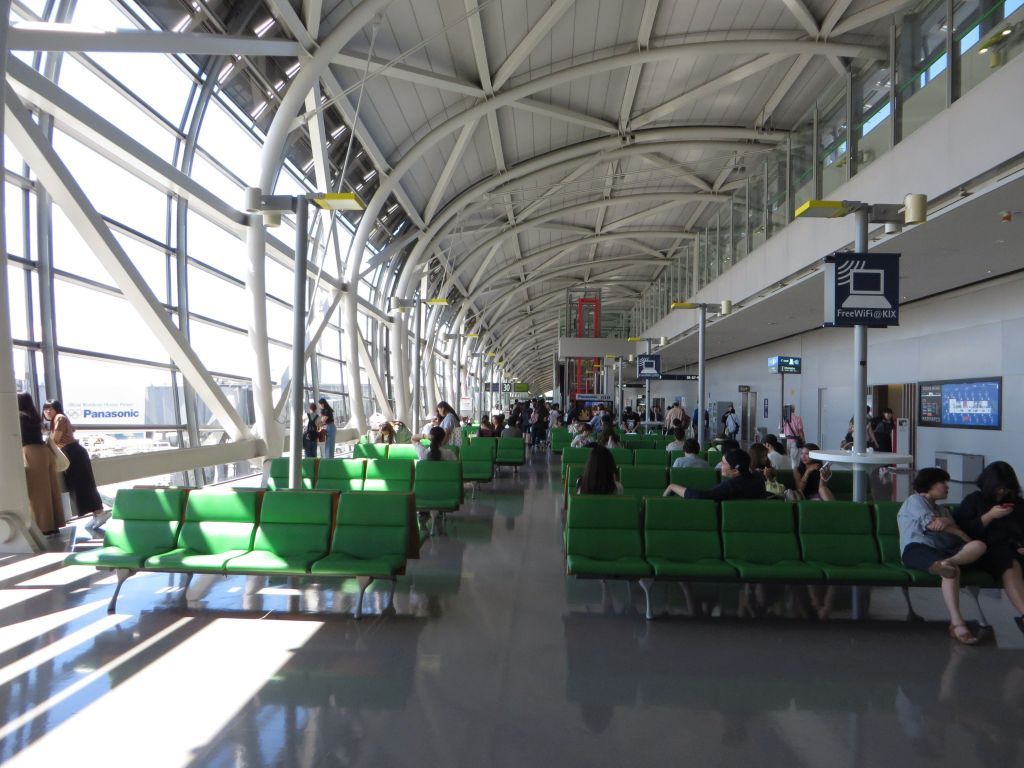
In the little time I had, I bagged an Air Asia A330
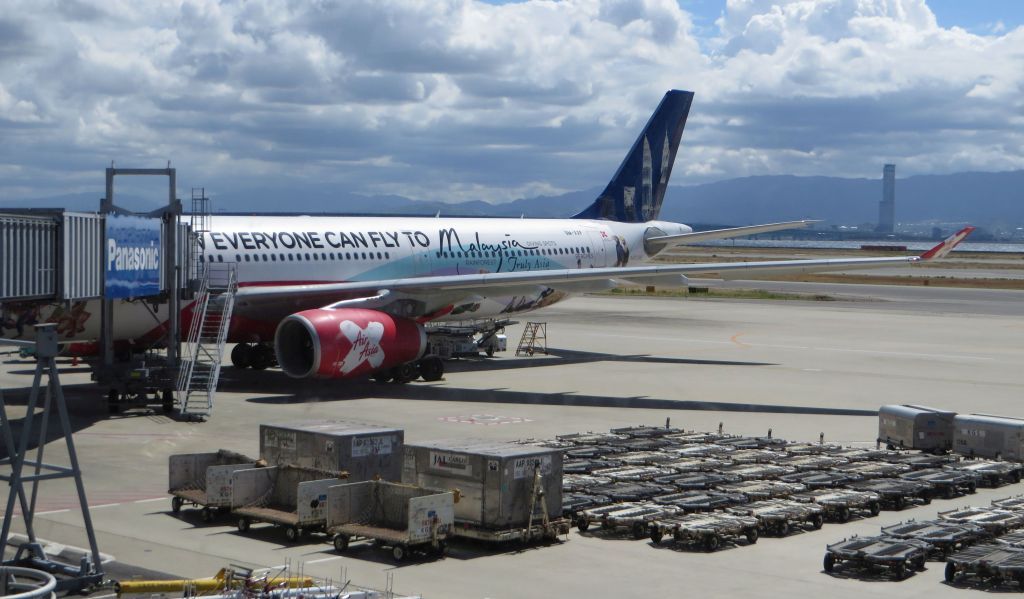
The KL 777 whose check-in waiting lines we shared
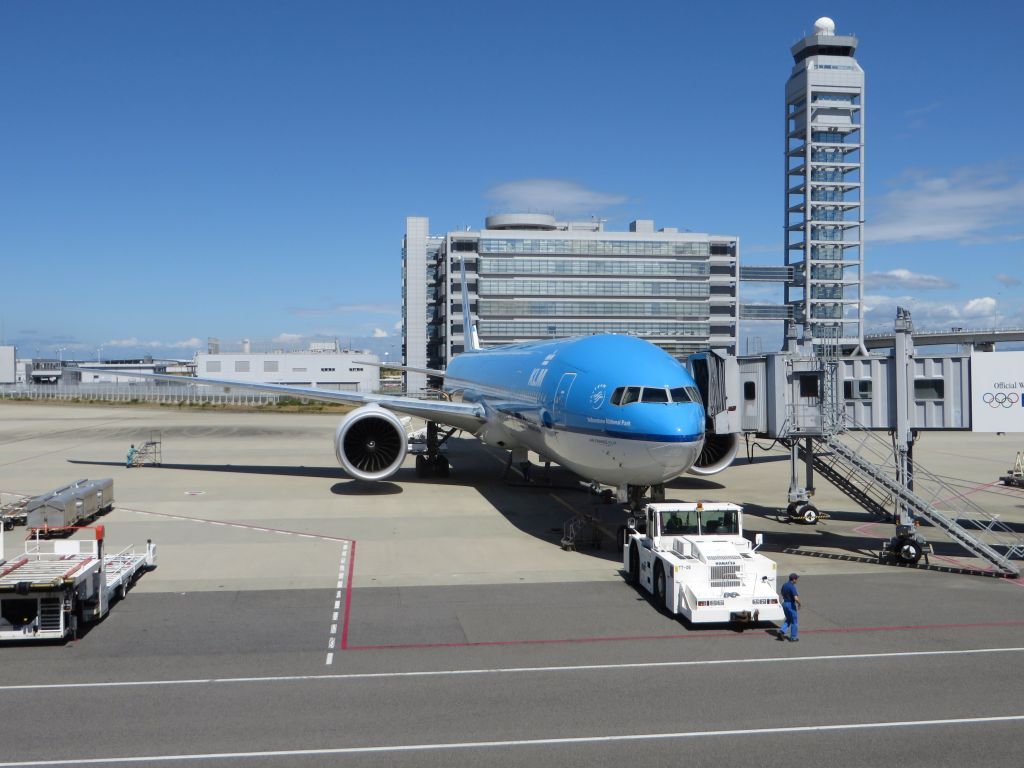
Jin Air 738 (a Korean LCC)
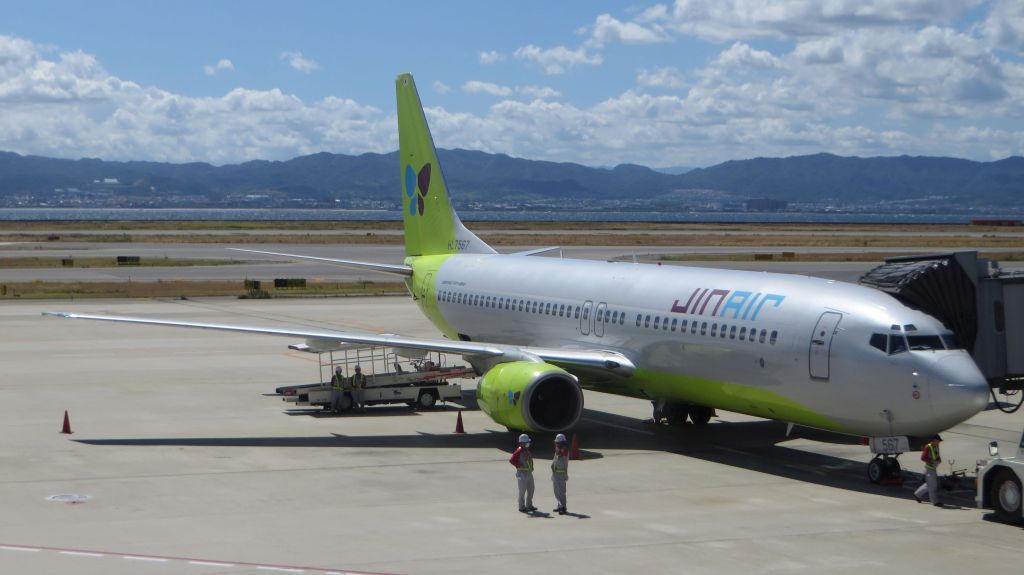
An LH 747 seconds before rotation
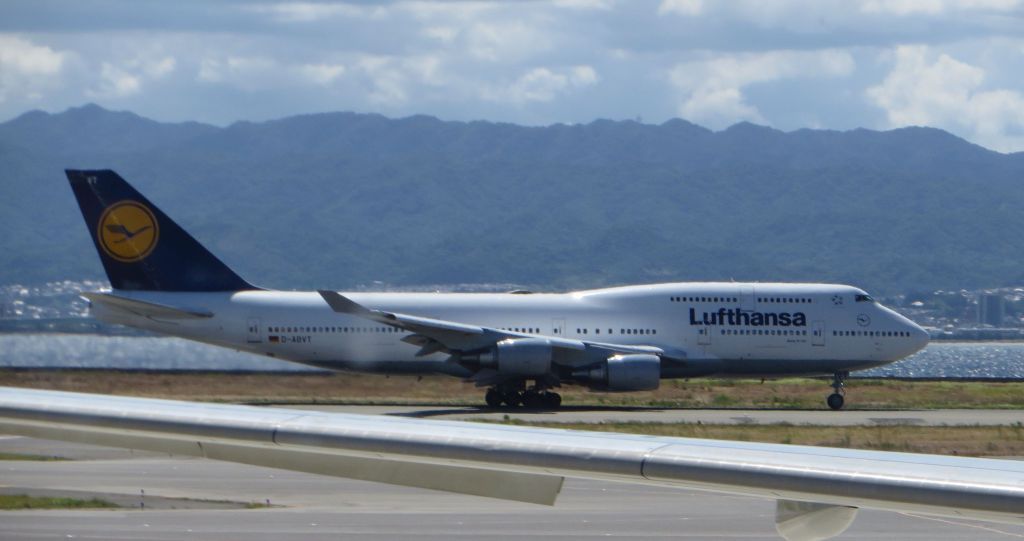
VN A330
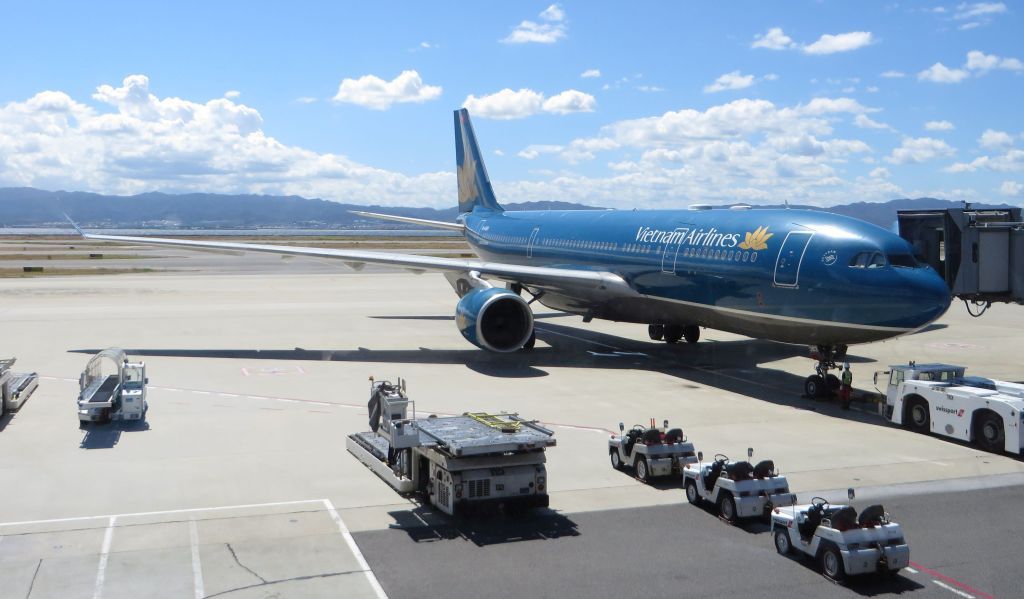
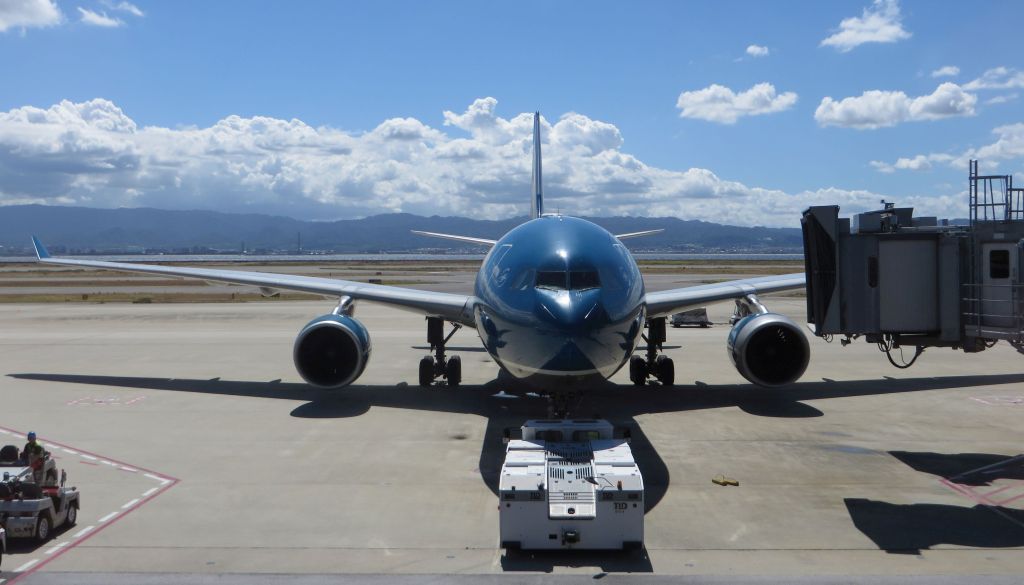
t’way 738
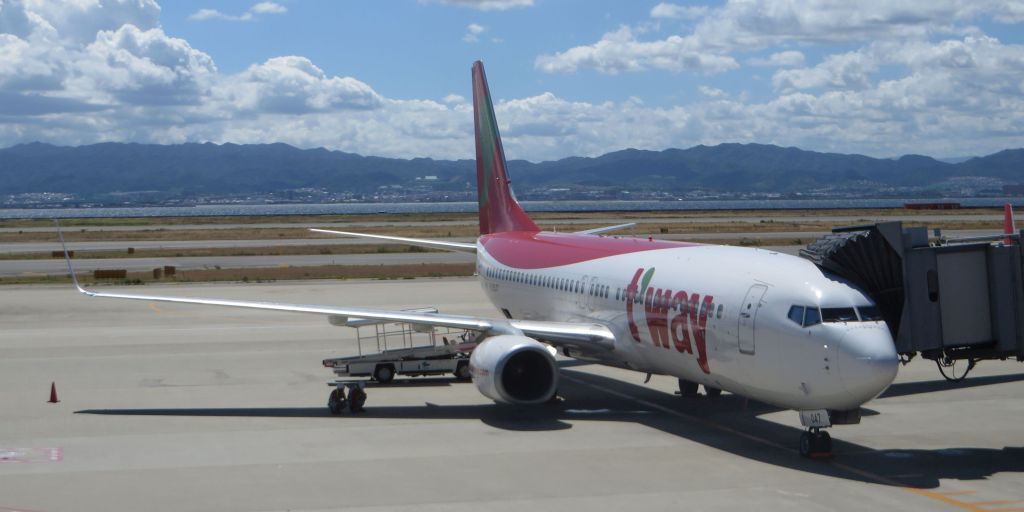
The bridge, in the distance
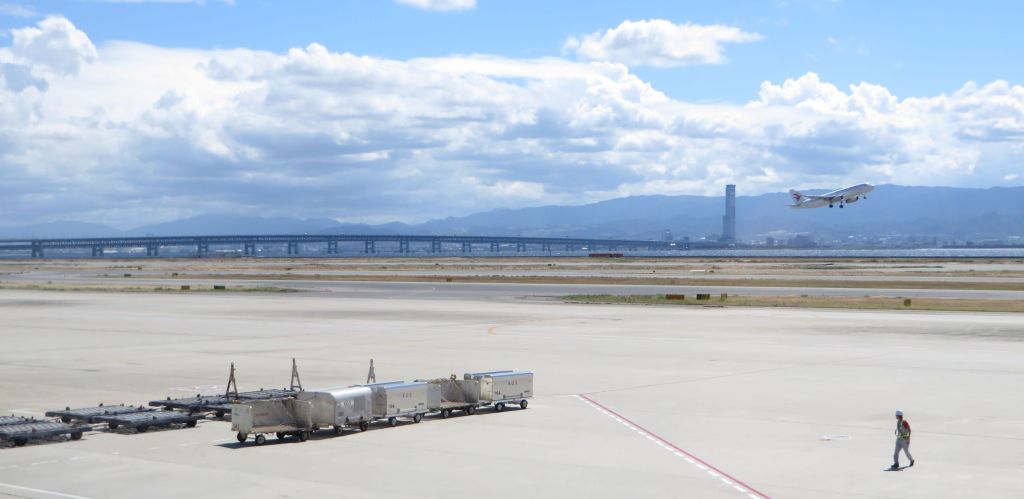
With an MU A320 retracting her landing gear
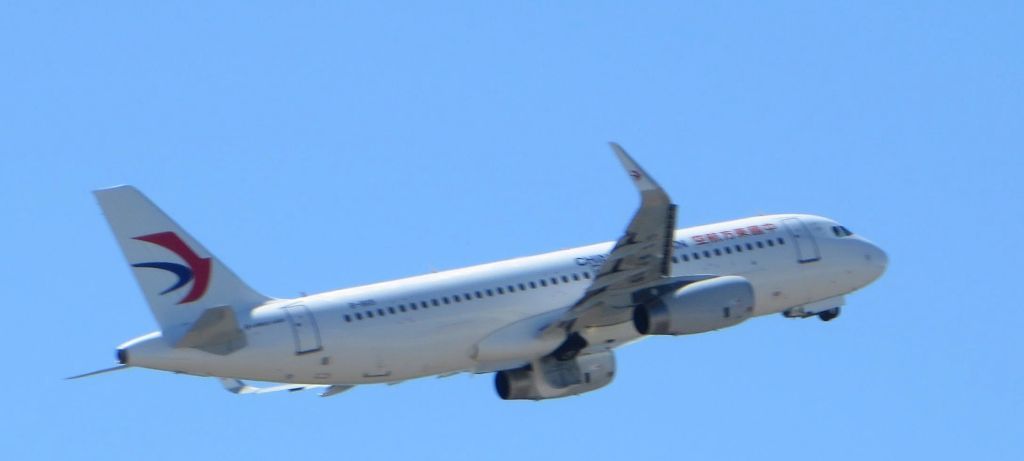
A children play area
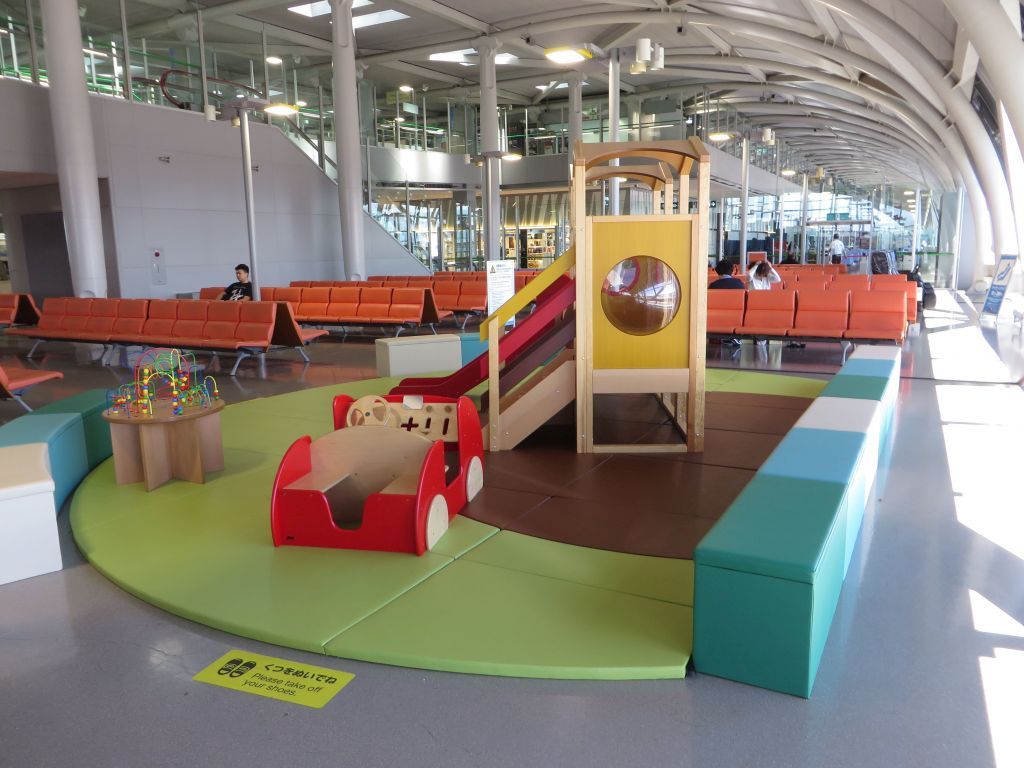
… where shoes must be removed – the Japanese text is all in hiragana syllabic script so that kids who haven’t mastered the ideograms yet can read it.
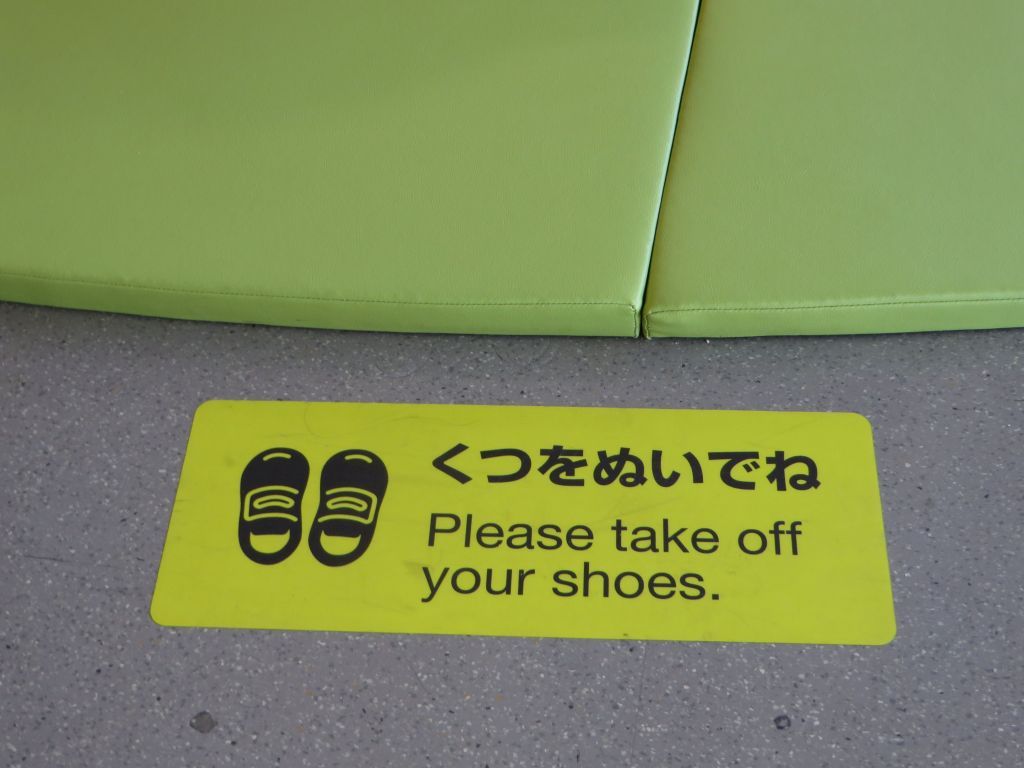
And last, the AF 777
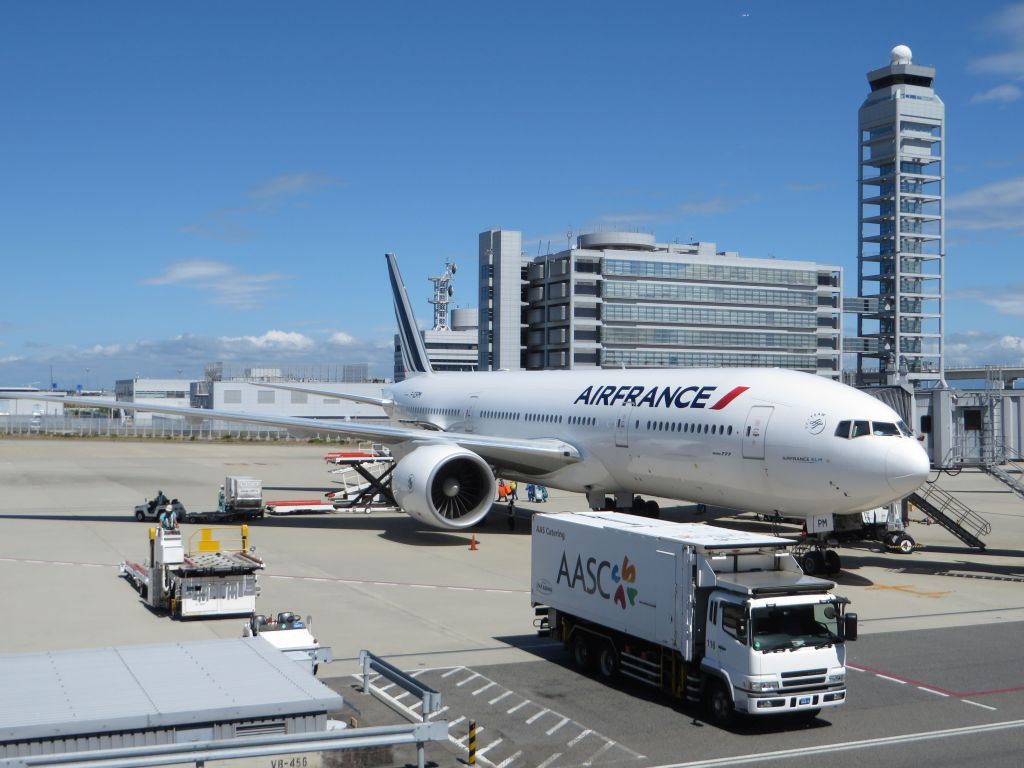
… because boarding just started – note how neat the line of passengers is.
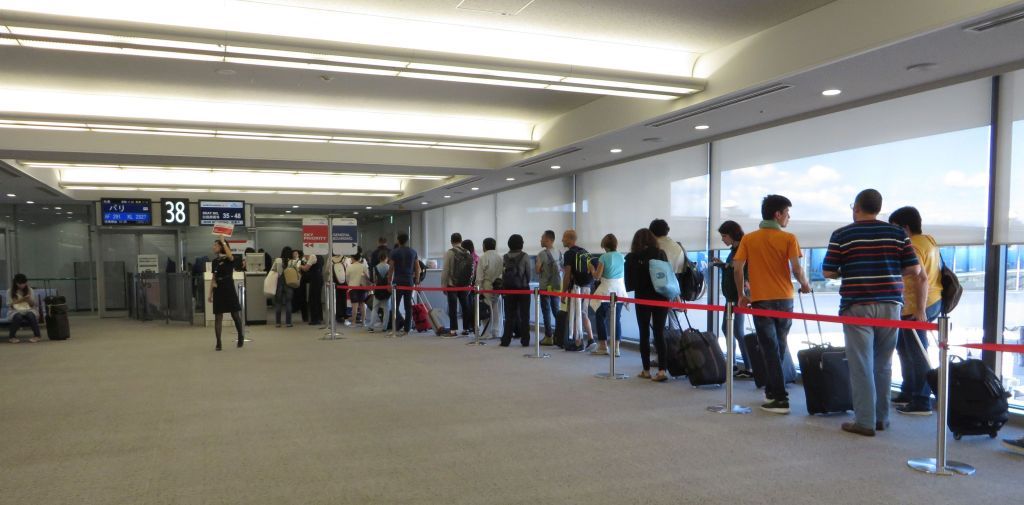
Meanwhile, the KL 777 is pushed back
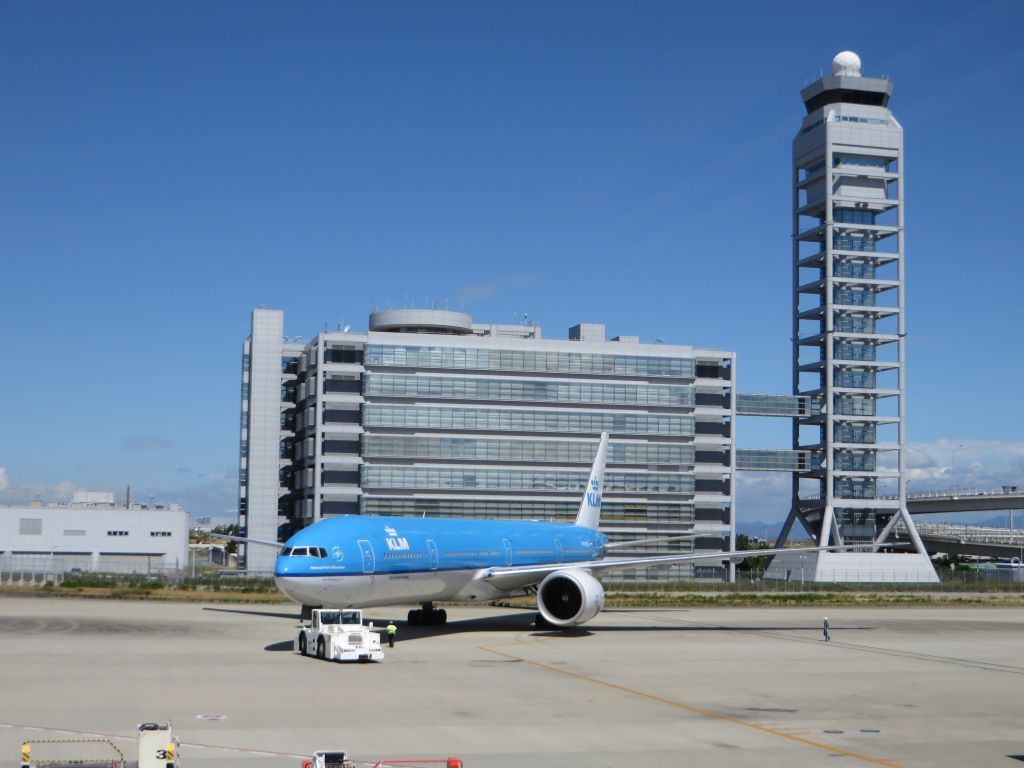
The Y+ cabin (seen when deplaning)
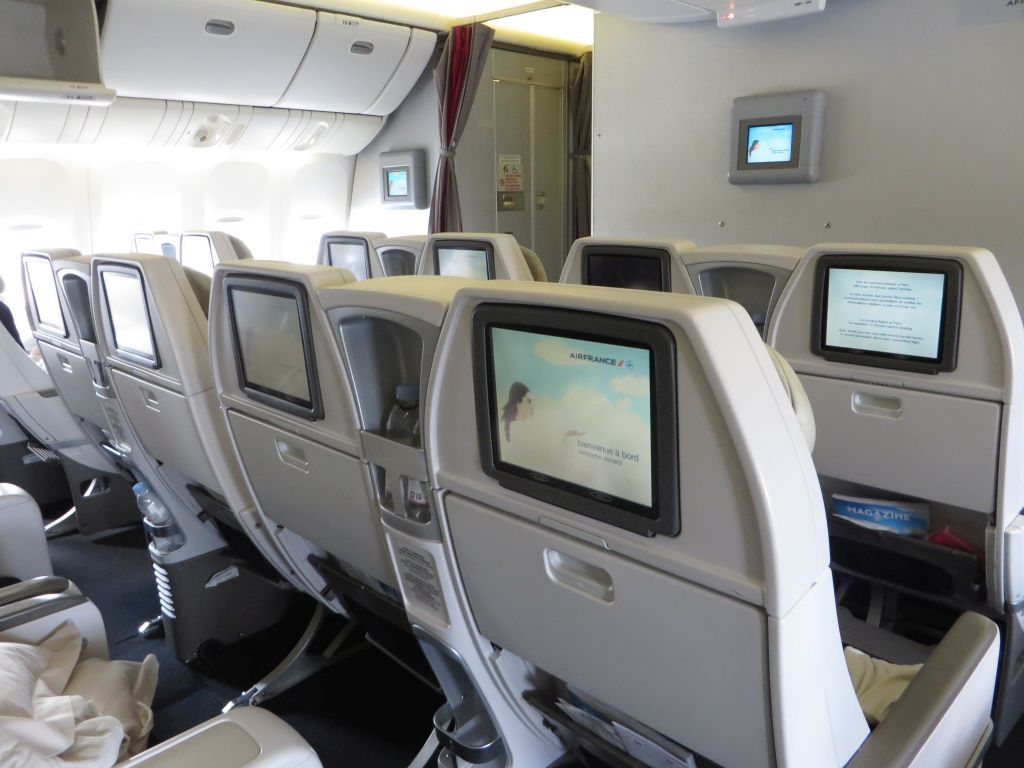
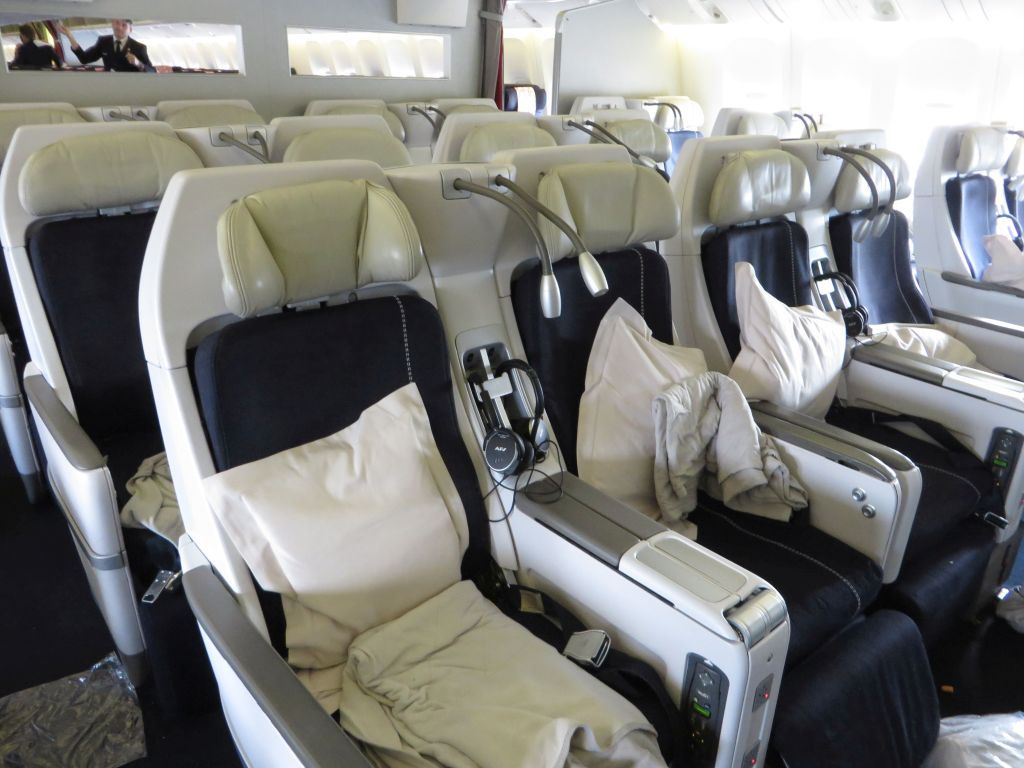
And the 3-4-3 layout of the rear Y cabin, also when deplaning
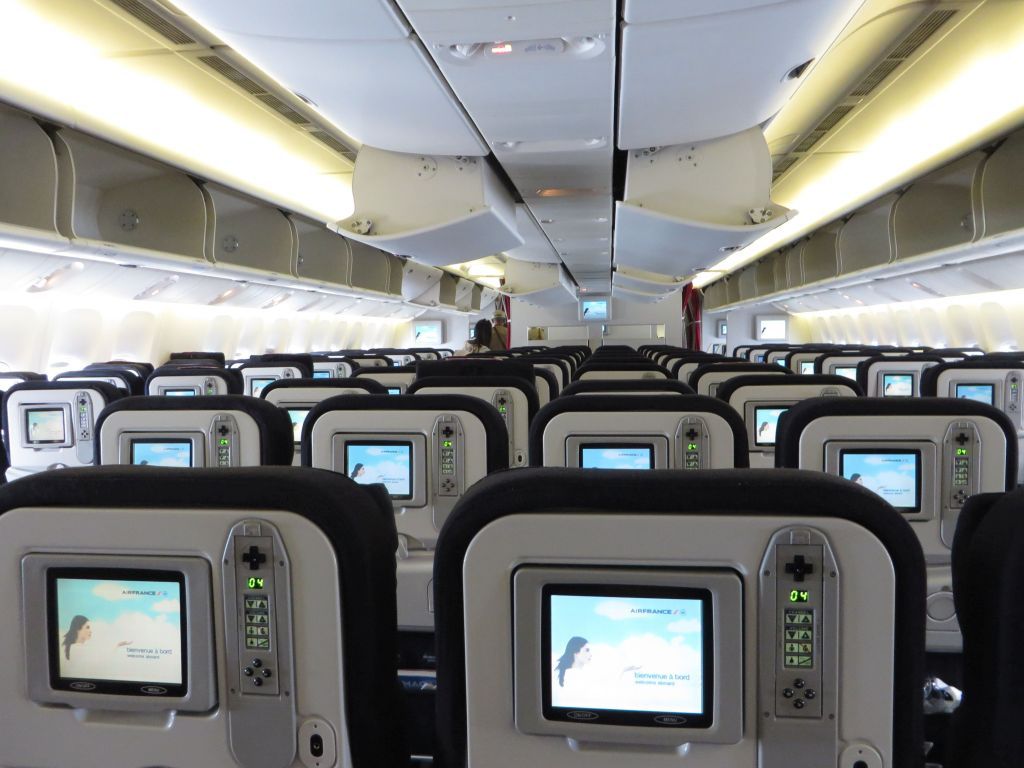
Nobody in our three-seat row : is the gamble of a neutralized middle seat going to work again ?
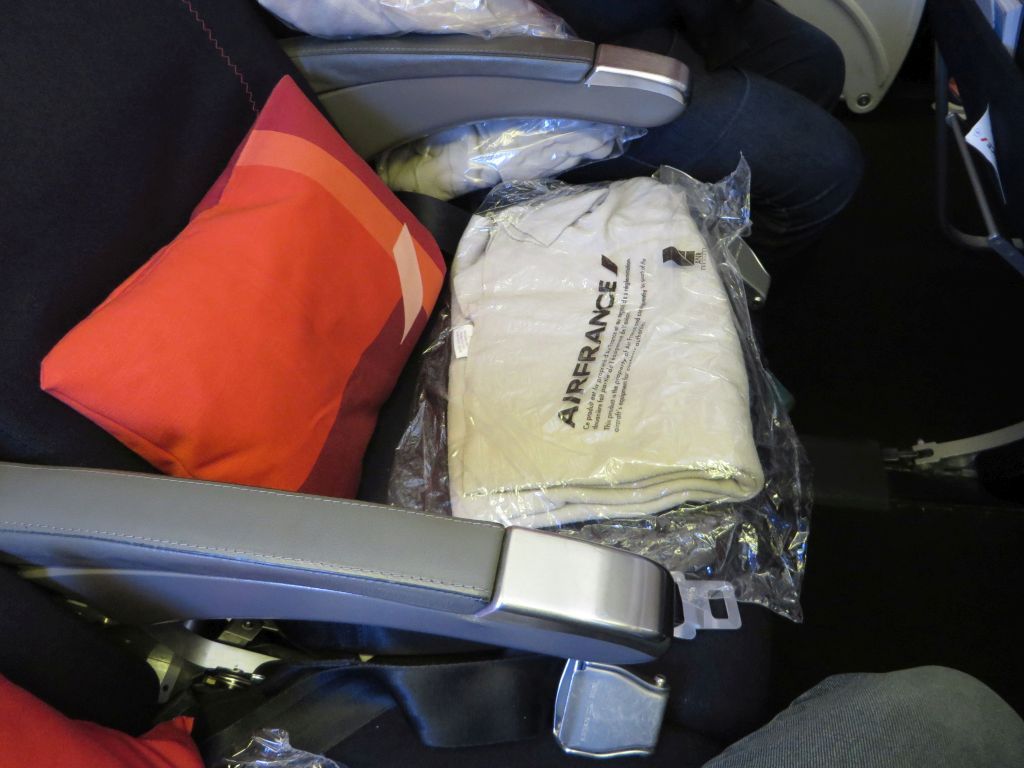
It is lost shortly before boarding is complete: a polite Japanese man arrives. He quickly changes his mind, and exchanges his seat with his daughter. We do not lose on that passenger change : Miss PAX43K-ex-40J is as smiling as unobtrusive as you can dream of a neighbor in flight, using at most 40 out of the 44 cm of space between her armrests that she never used, and alternating between sleep and watching a movie.
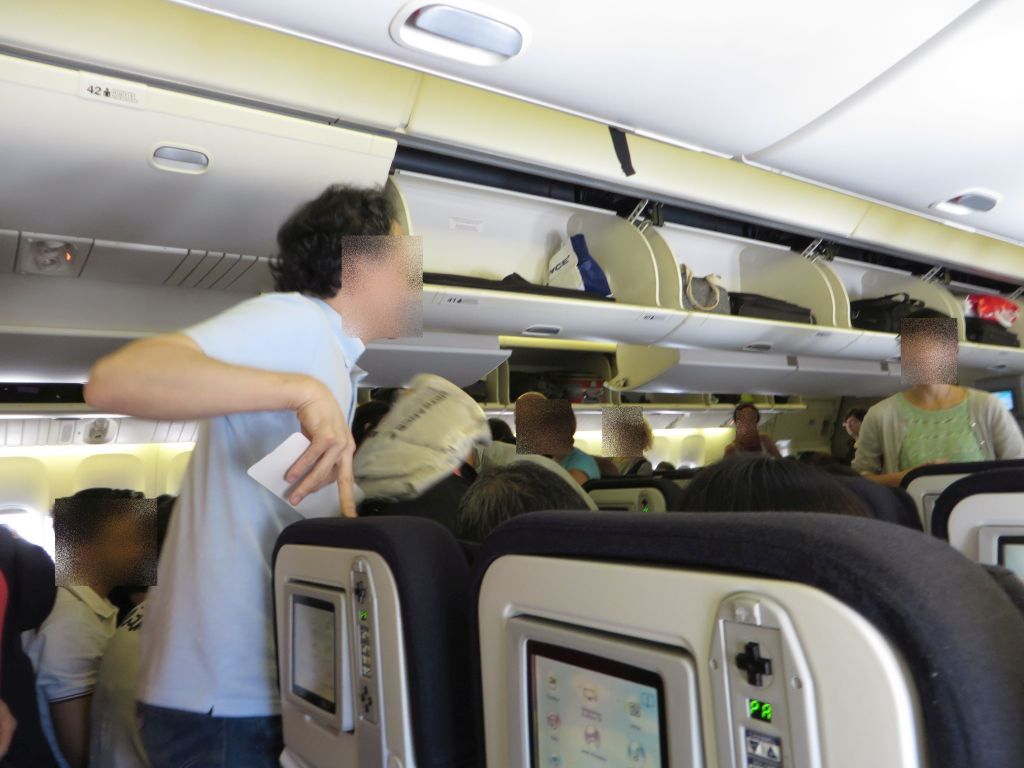
For as you know, an Economy seat in AF’s densely packed 777 cabins provides you 44 cm between armrests, which is not much for a standard sized French adult. But when you add 4.5 cm for each window and aisle armrest, and also those of the middle seat that a petite Japanese girl as good as gold never used, and a last centimeter between armrest and inner fuselage surface, the total space becomes much more comfortable.
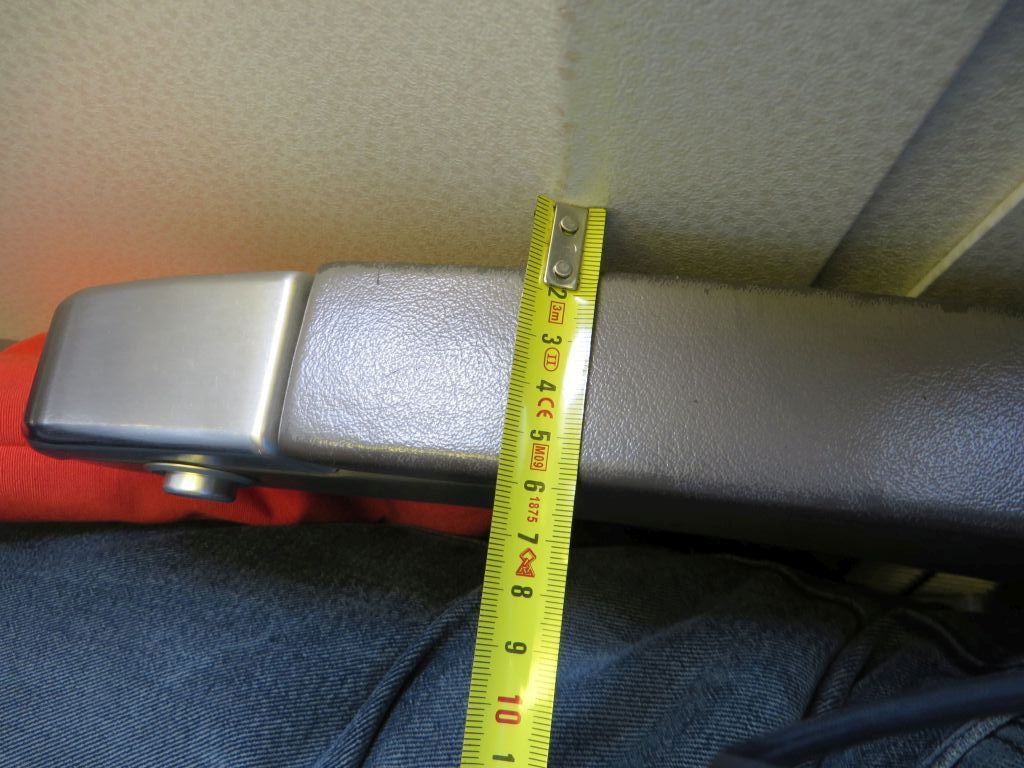
26 cm between the front edge of the seat and the magazine pocket is OK if you are short, but I wish lots of fun to all passengers who are 20 cm taller than I am.
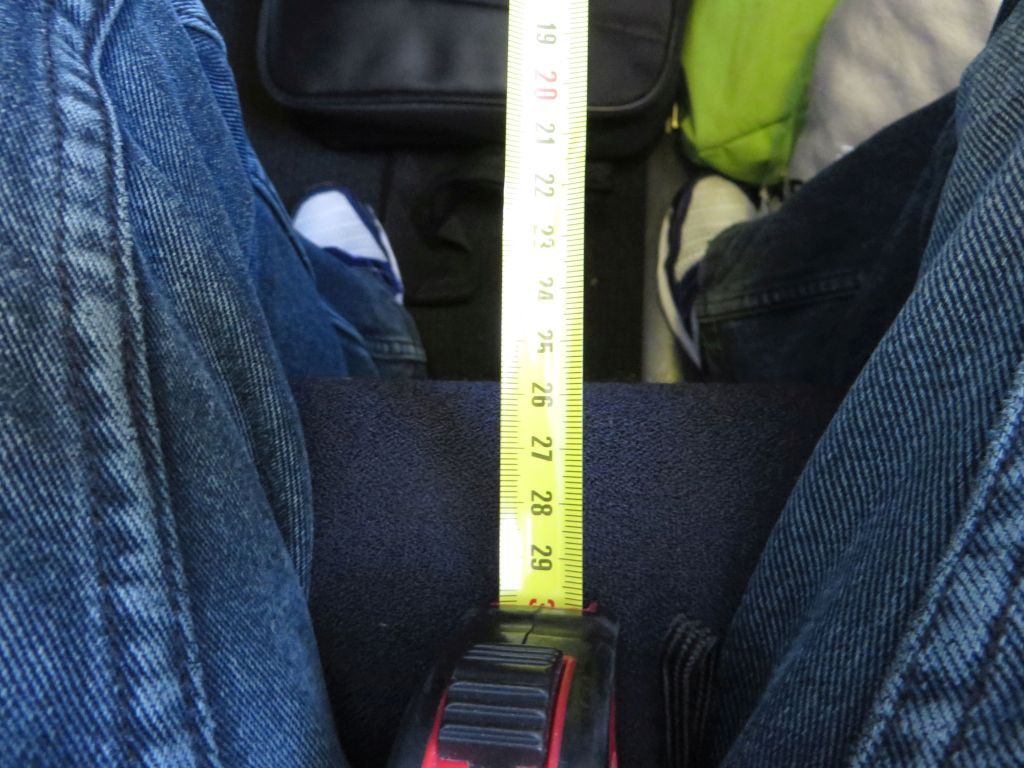
The seat reclines just enough so that it becomes impossible to the passenger behind to use a lap top on the tray table, and the distance between the IFE’s screen and the eye is reduced to 36 cm, which is uncomfortably close when you are presbyopic (you can trust me to have measured that too ^^). Bad luck, the passenger ahead of me reclined his seat during all the time this was allowed.
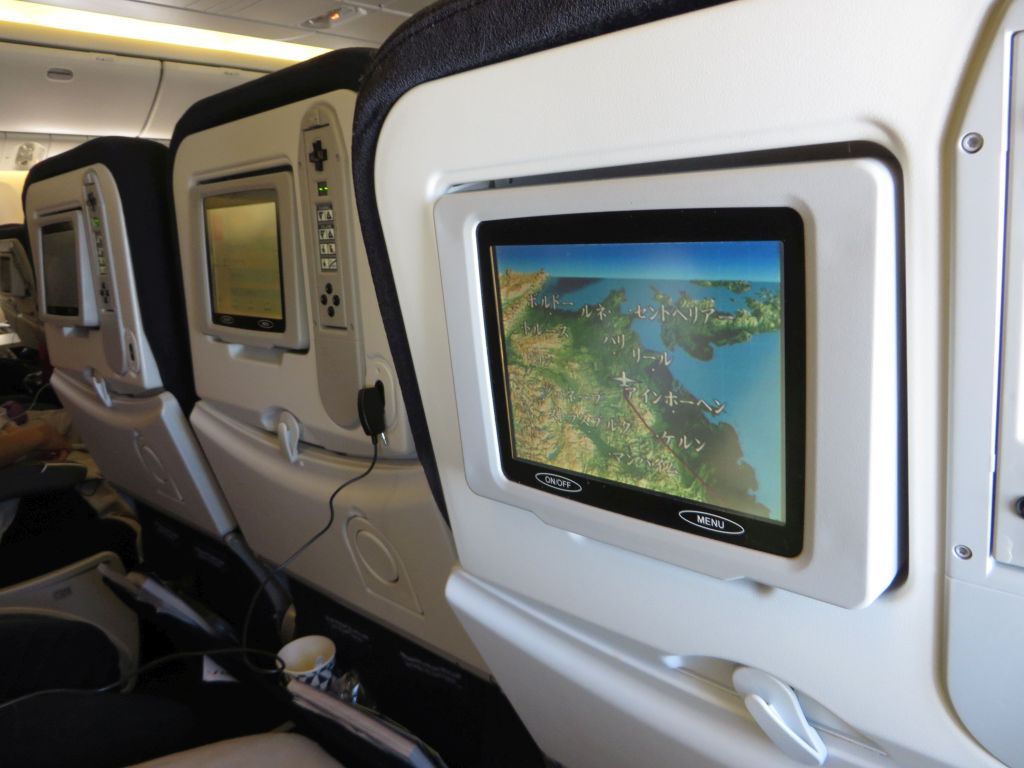
The IFE screen, sigh… it is again this tiny screen, whose performances are as limited as its program offering.
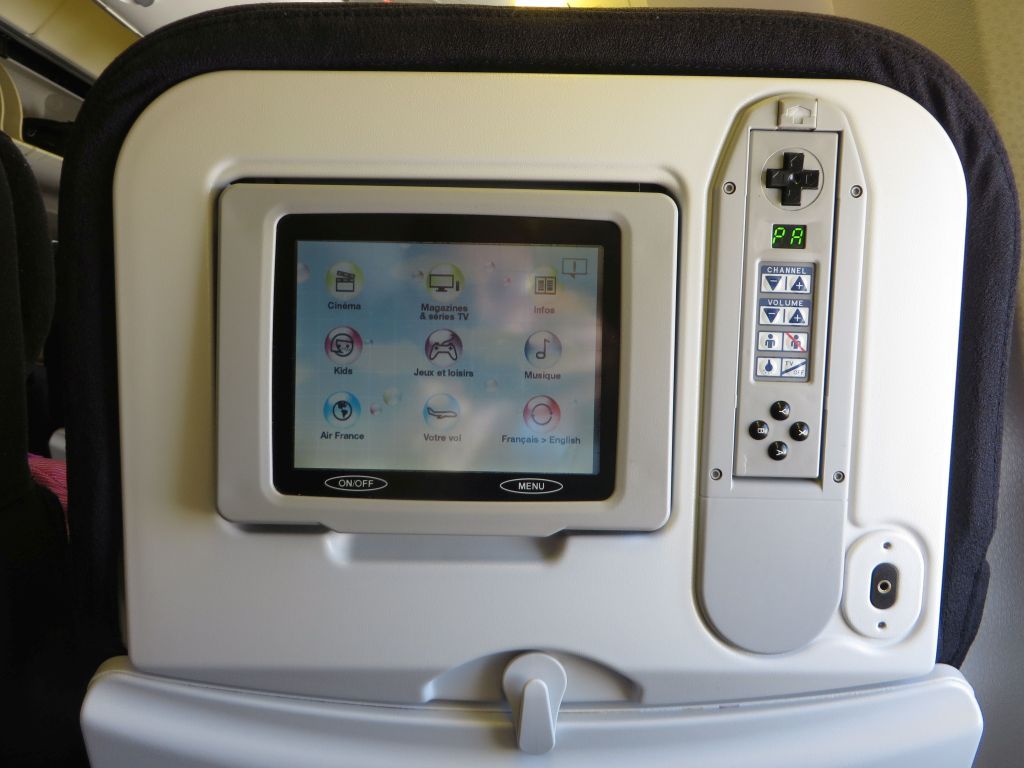
It is barely enough for the safety demonstration where the image does not need much sharpness. I do not like the present version, but it is a pure matter of space. For the rest…
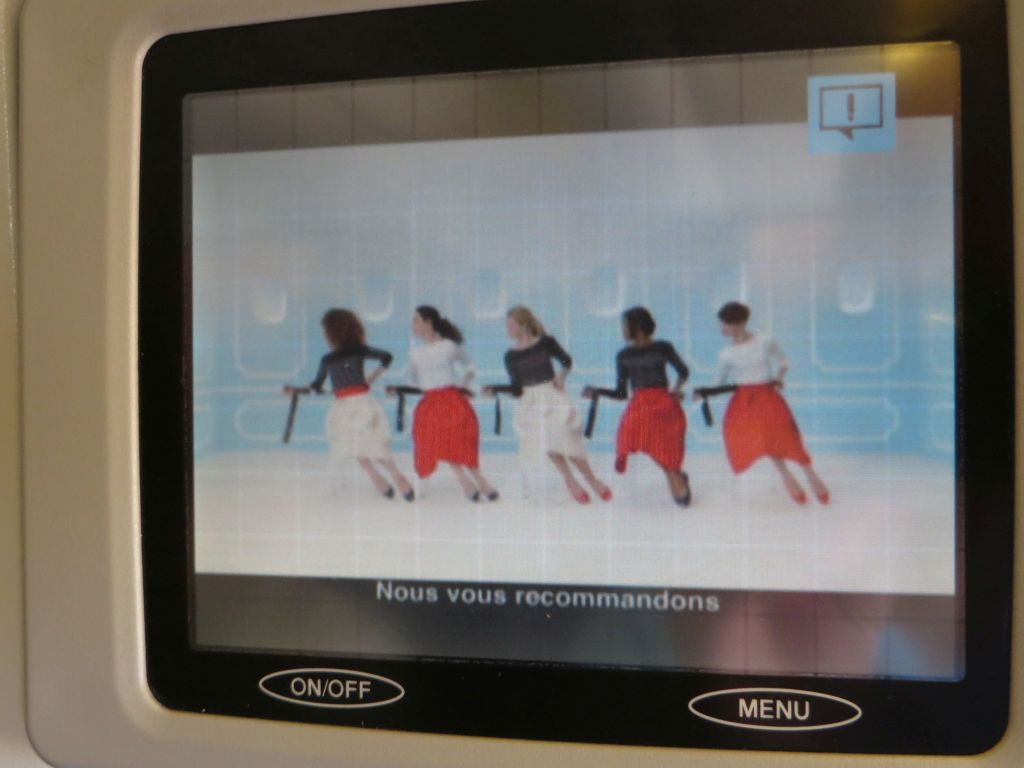
The screen’s quality is too low for a movie, and its squarish format means that the image is cropped and/or further reduced.
There is barebones audio offering: classical music only has eleven CDs. One name (of composer of interpreter) only: you must select each of them to have a minimum of details. Well, eleven titles do not require much time to explore, anyway.
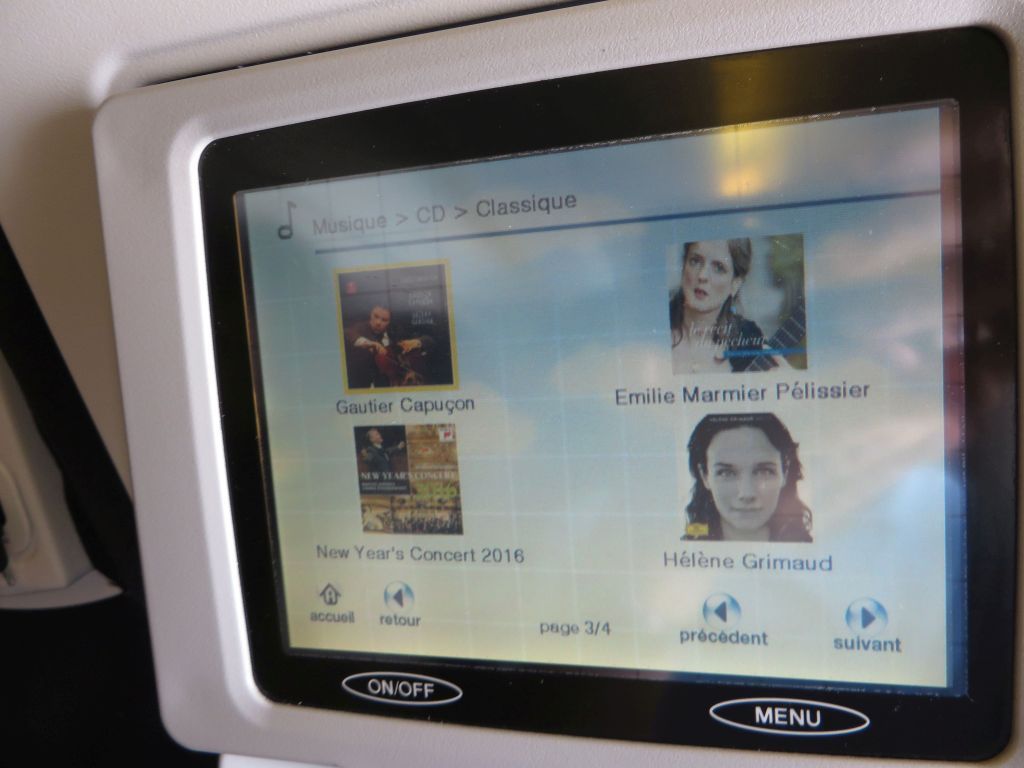
Furthermore, the headphones are stereo, but the IFE’s plug is mono, which means that you have the sound in one ear only.
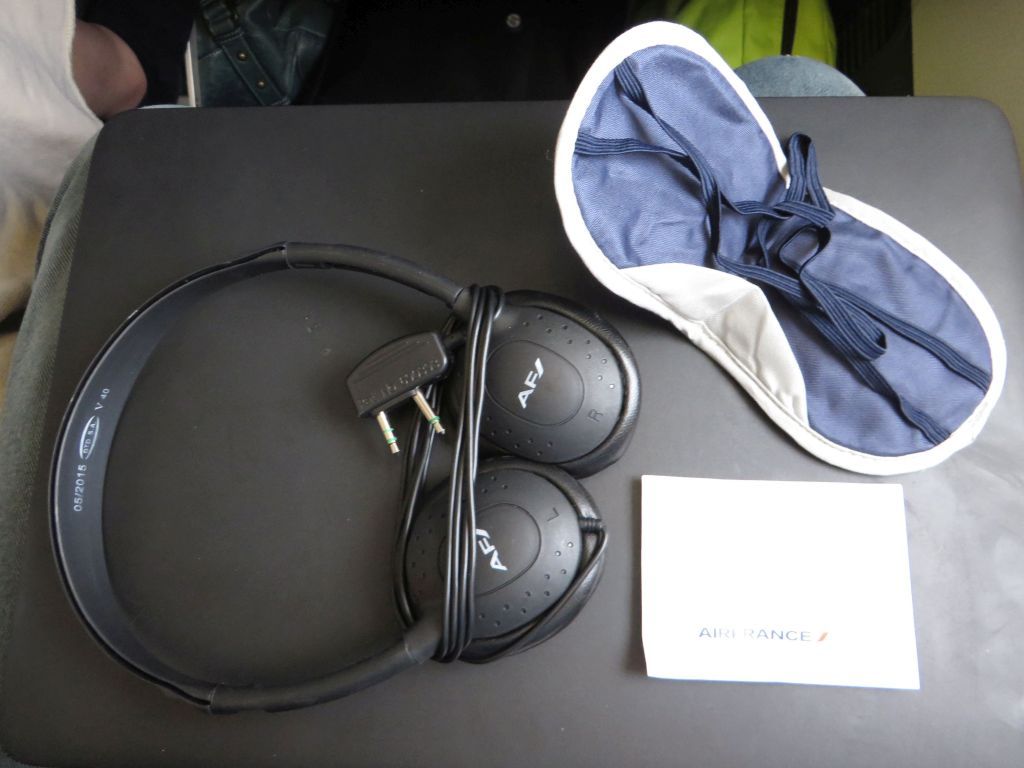
The electronics are sluggish: it takes for instance one full minute to shift between English and French, and all loadings are equally slow.
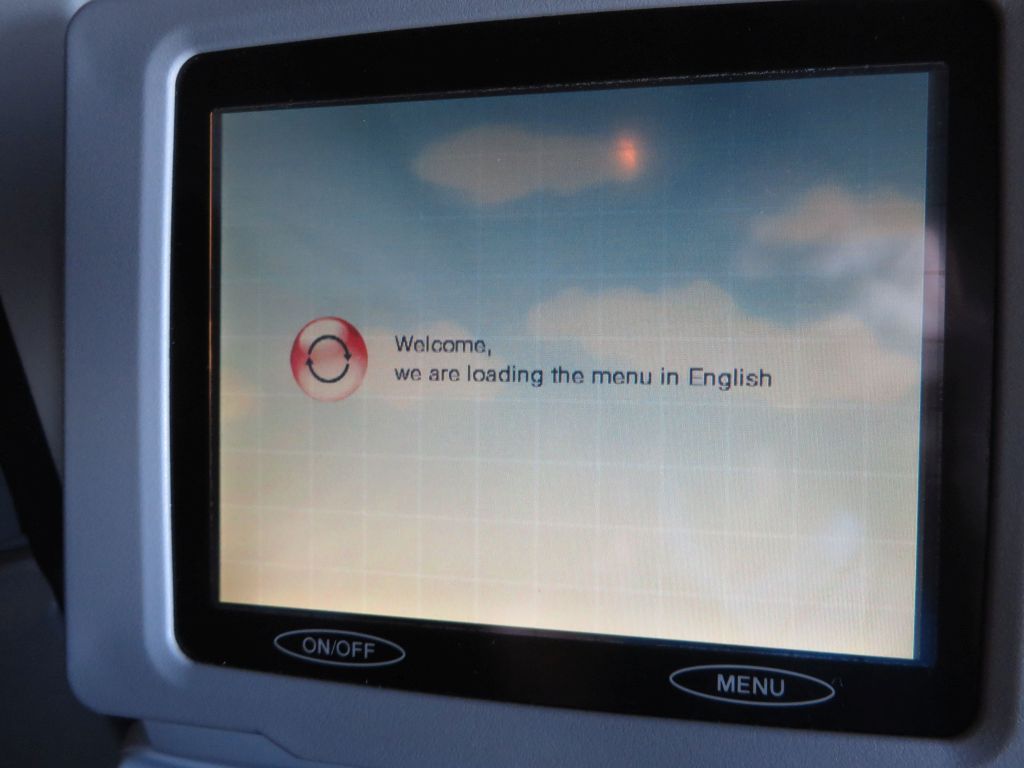
Concerts and shows ?
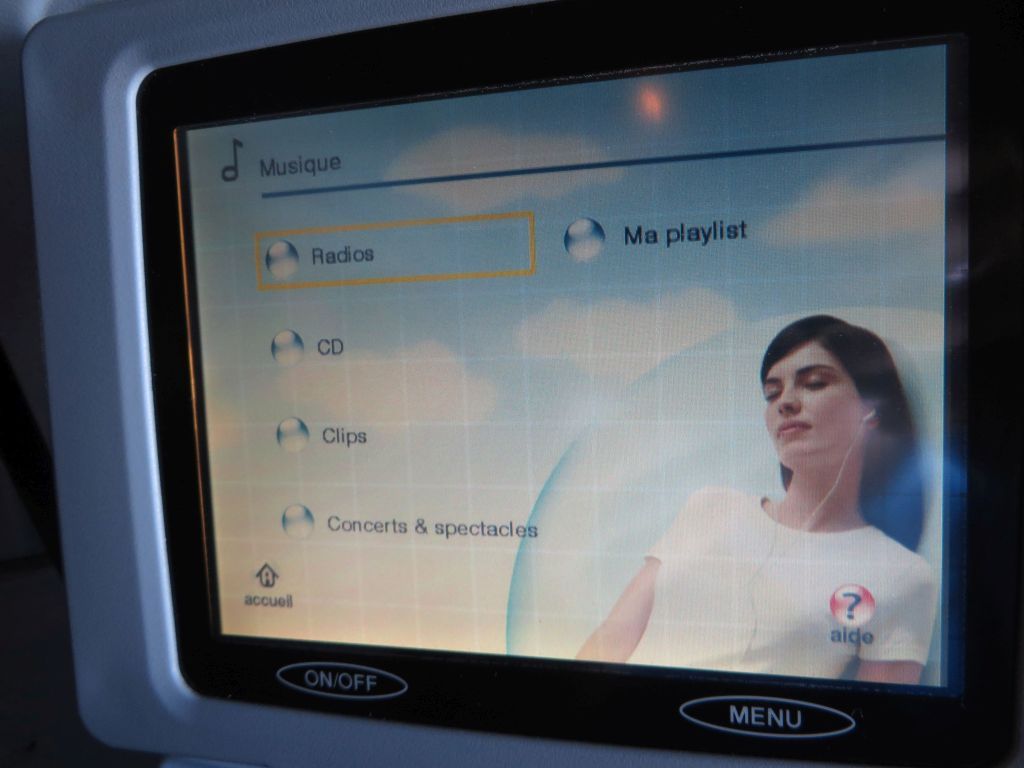
No, there is none
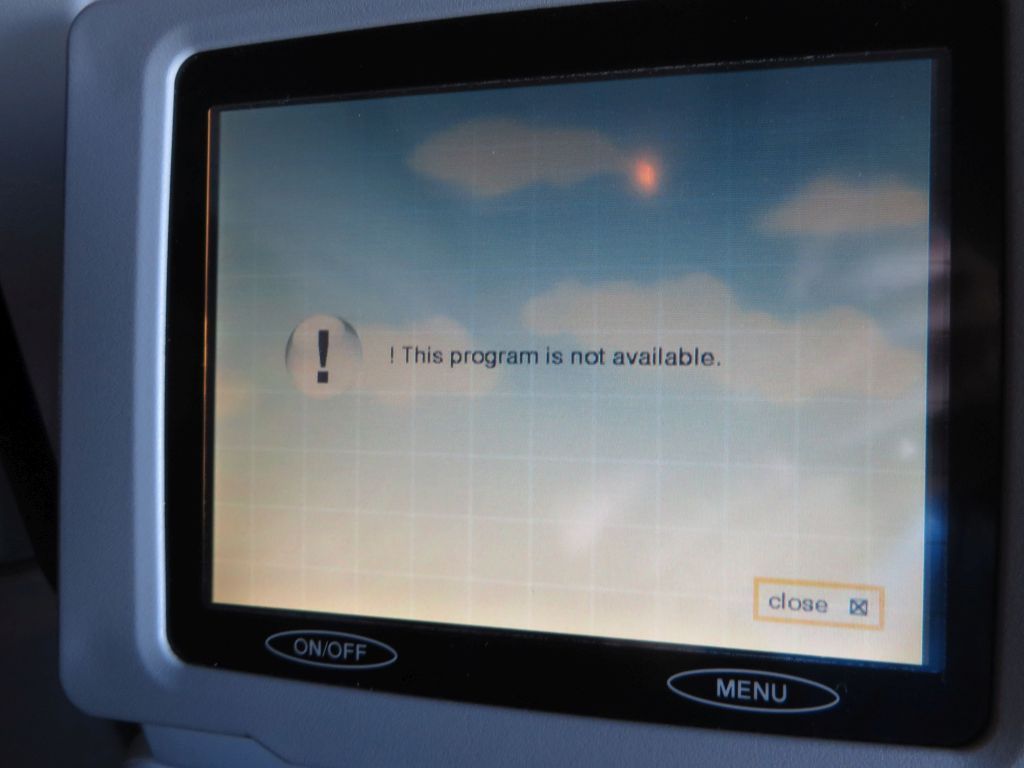
Video clips ? Two only.
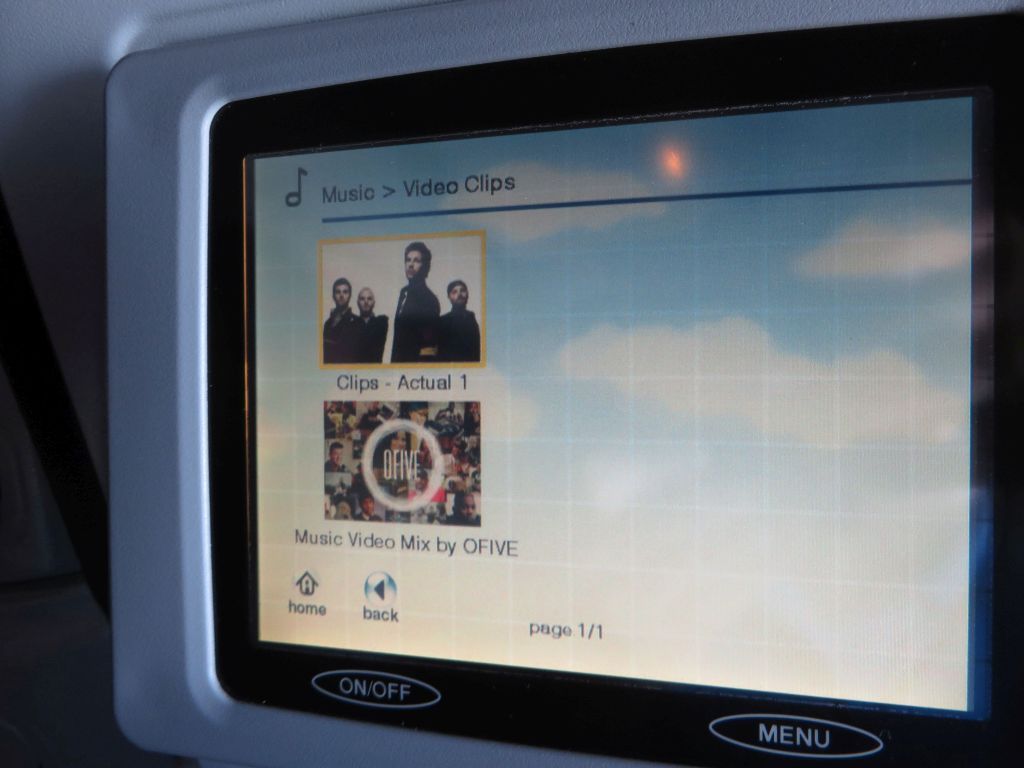
The airshow is a single looping program which does not allow any customization. A significant portion of that loop is used for displaying satellite pictures showing places located hundreds of kilometers away from the plane’s current location. What is the relationship between a winter picture of Hokkaidō Island (where the snow covers precludes finding any ground feature) and Flight AF291 in August? None.
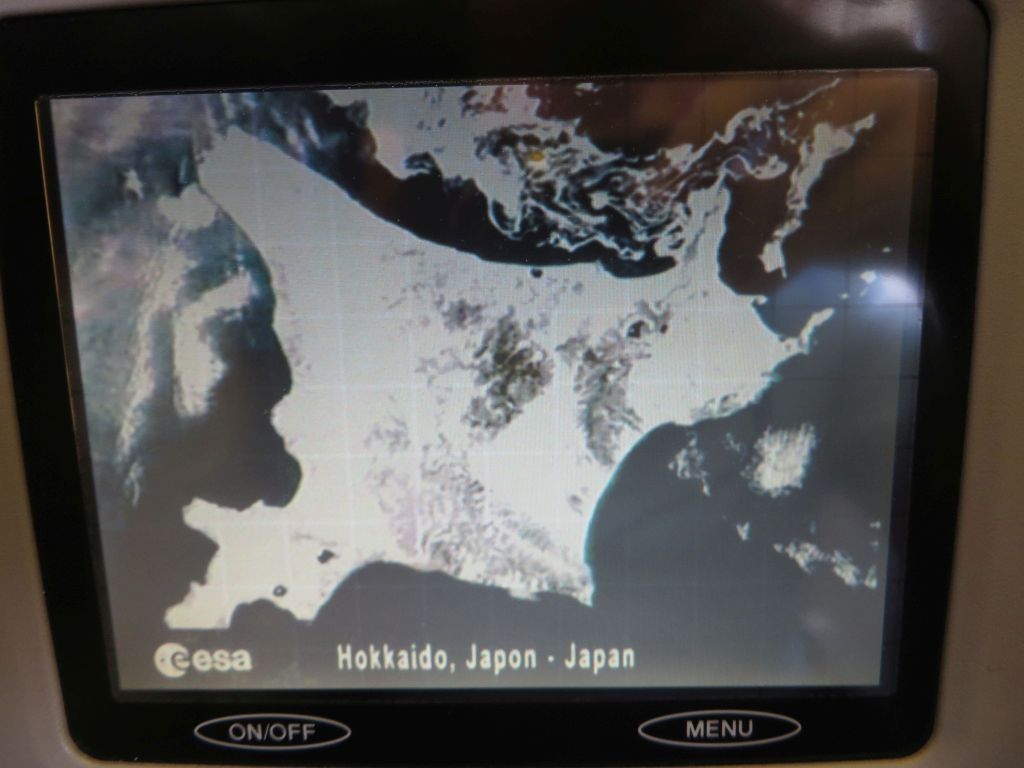
The airshow also alternates between a sequence in English and then in Japanese. Not a problem for me, but I doubt that all non-Japanese passengers would say the same.
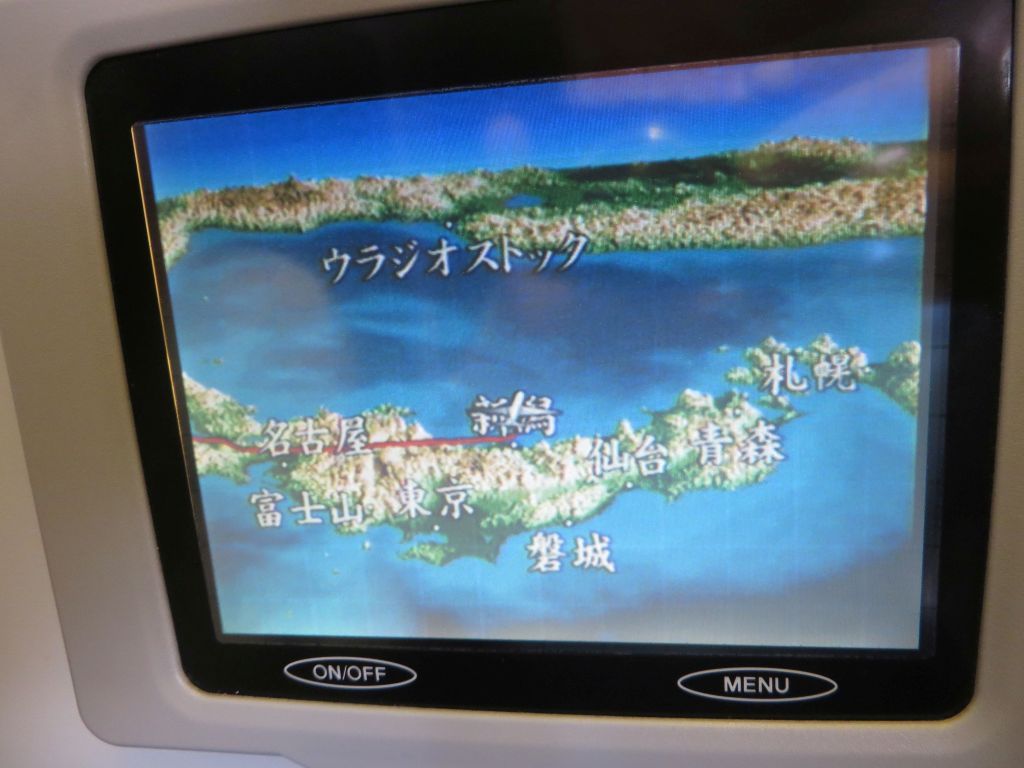
Only in the imagination of the writer of AF’s in-flight magazine is the airshow interactive: it actually does not interact with anybody. (There is a typo in the French title, too)
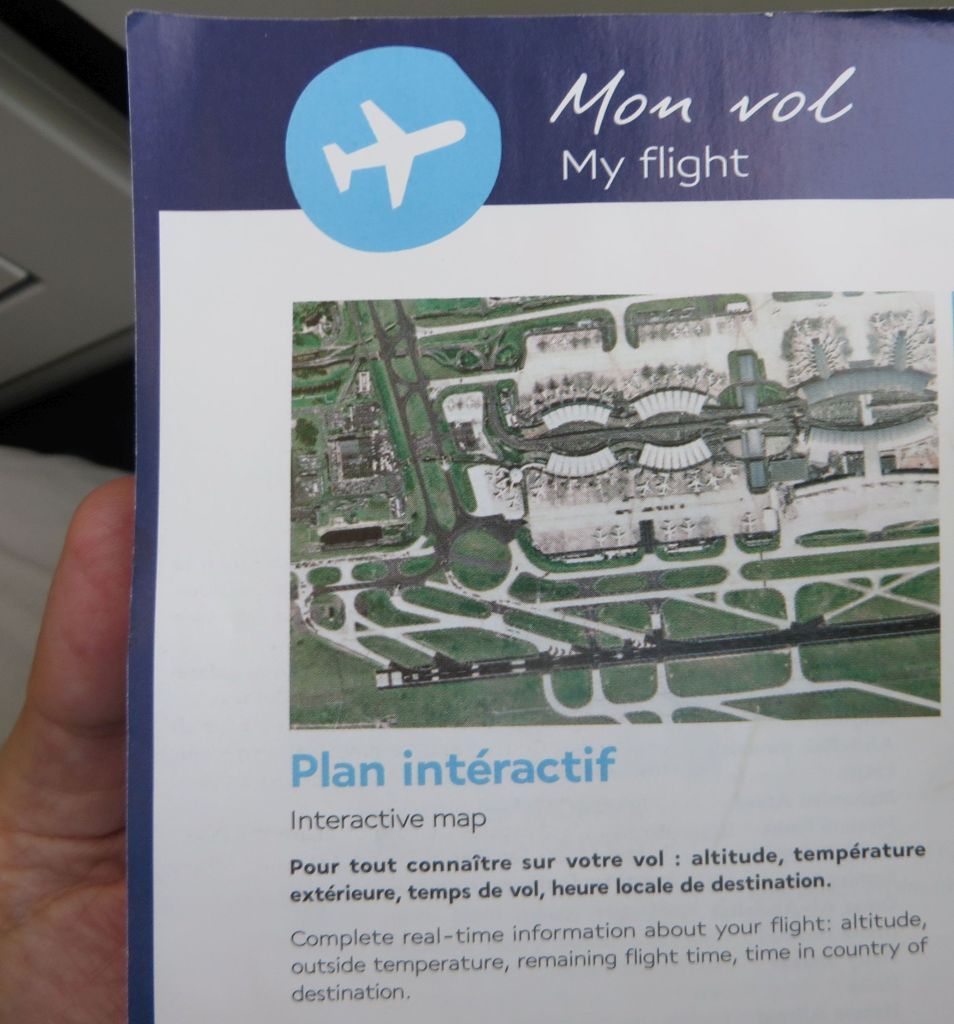
There is a limited selection of games, but the IFE will crash and reboot just when I was going to win a game of Shanghai, after losing the first one. This IFE really did not spare me any inconvenience…
The only positive comment about this IFE is that there is no bulky IFE box in the feet of the passengers, contrary to the aircraft of some competitors
Since I do not have a real IFE, I’ll use mostly the outside IFE, a.k.a. the landscape through the window, and there is going to be quite a number of interesting ones on route.
But before being airborne, there is an extra ten minute waiting time due to air traffic control, after which taxiing provided me the opportunity for some more plane spotting:
Eastar Jet 738
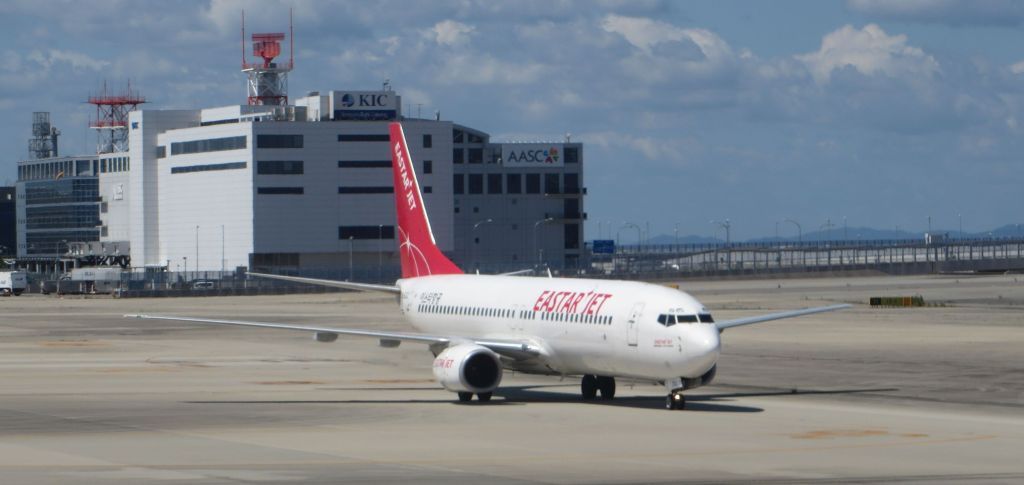
Two Koreans: a KE 777 KE and a Jeju Air 738
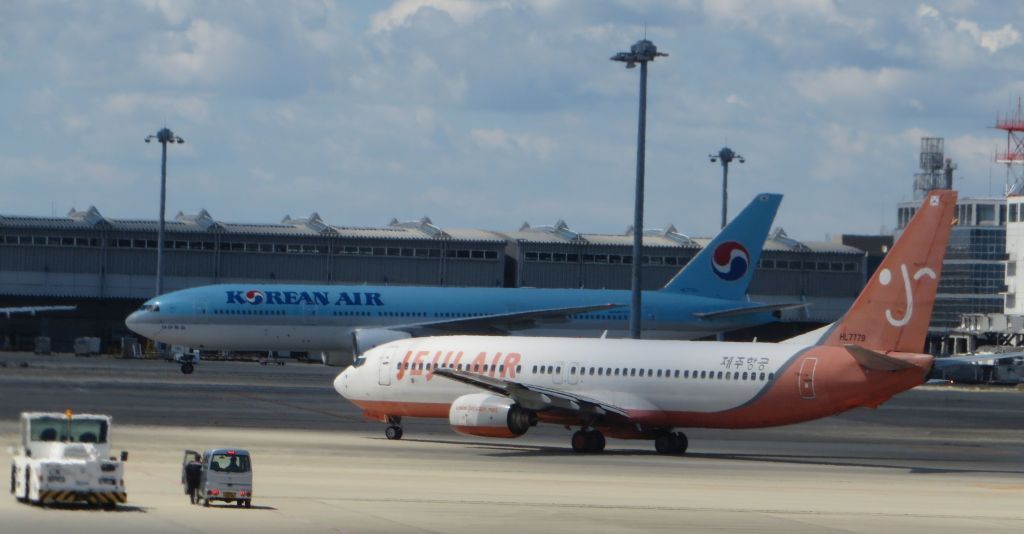
Peach A320
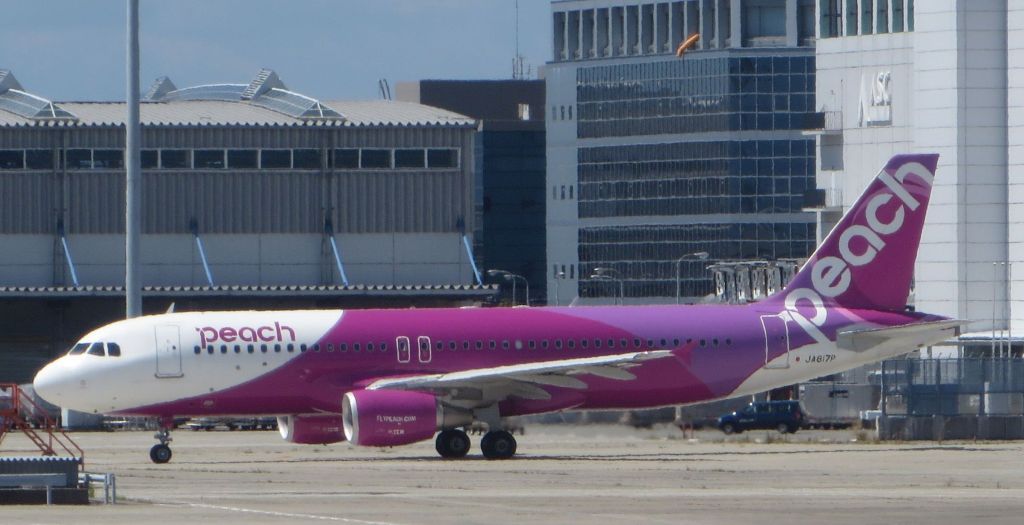
VN A321
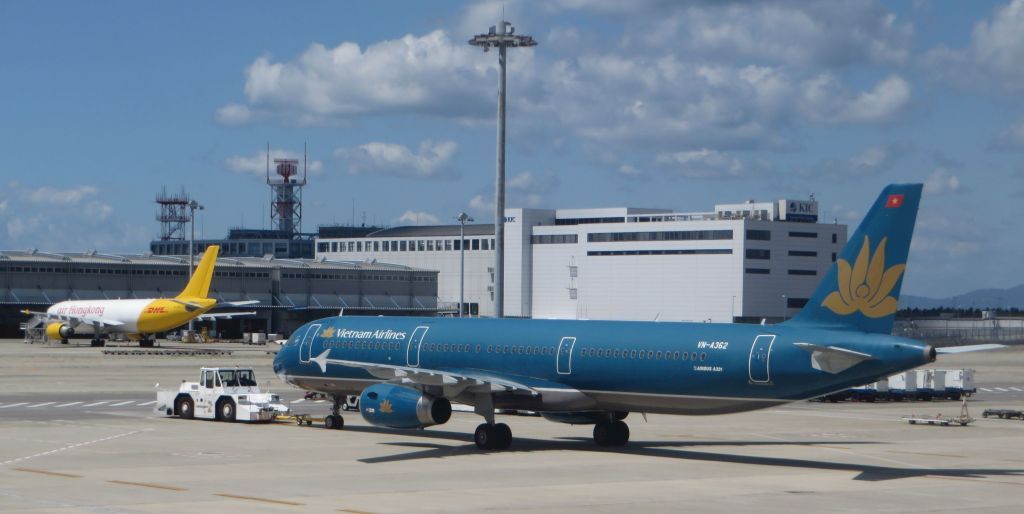
A Hong Kong DHL A300 (B-LDD, built four years only before the final end of the production of this type of aircraft)
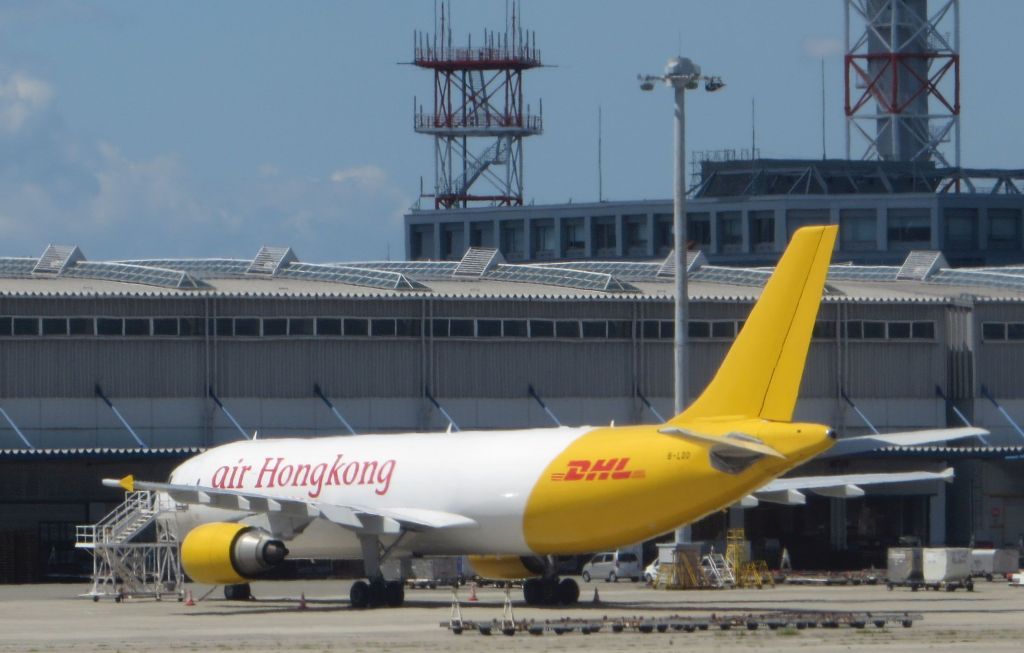
Gulfstream G450
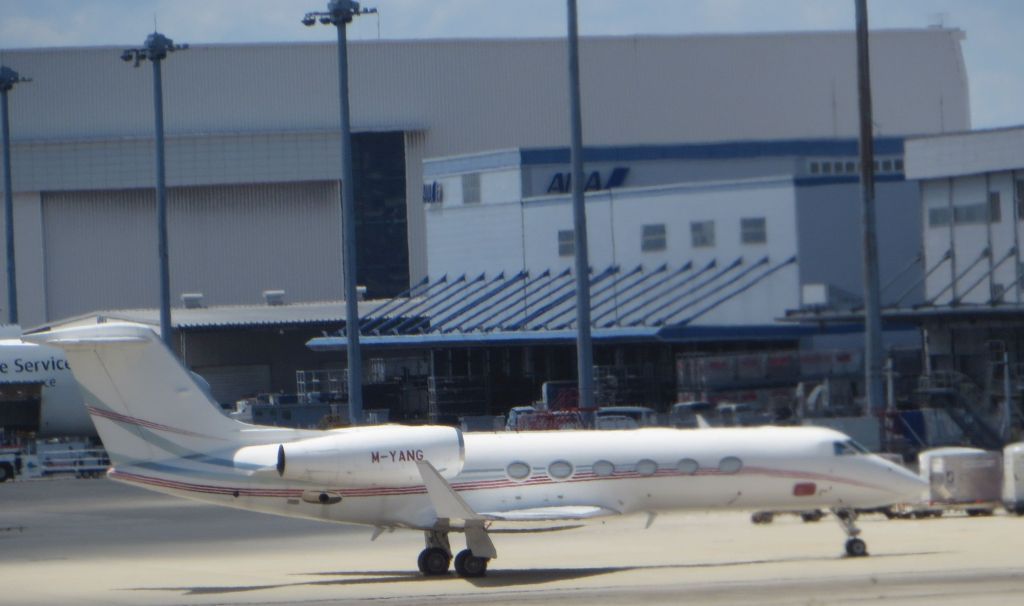
Traffic control is no dummy excuse: Runway 24L is used for take-offs only at that time, and we are 6th behind these planes:
ANA Cargo 767
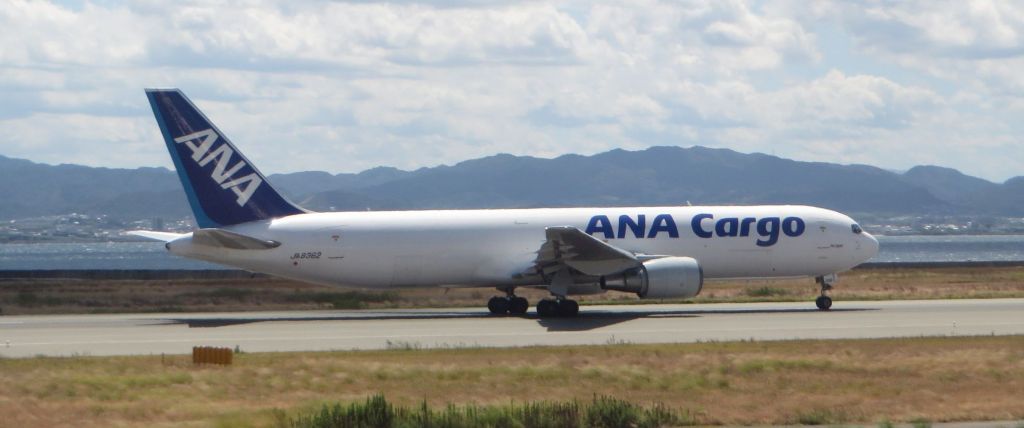
Eva Air A321
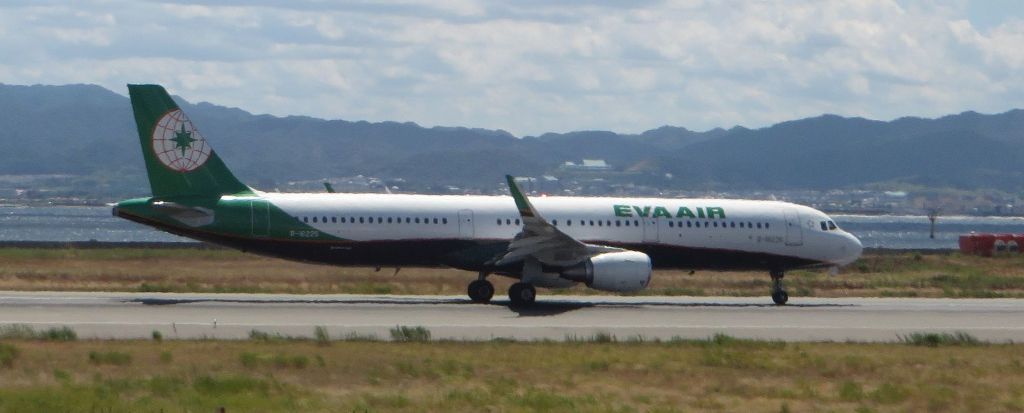
Asiana A321
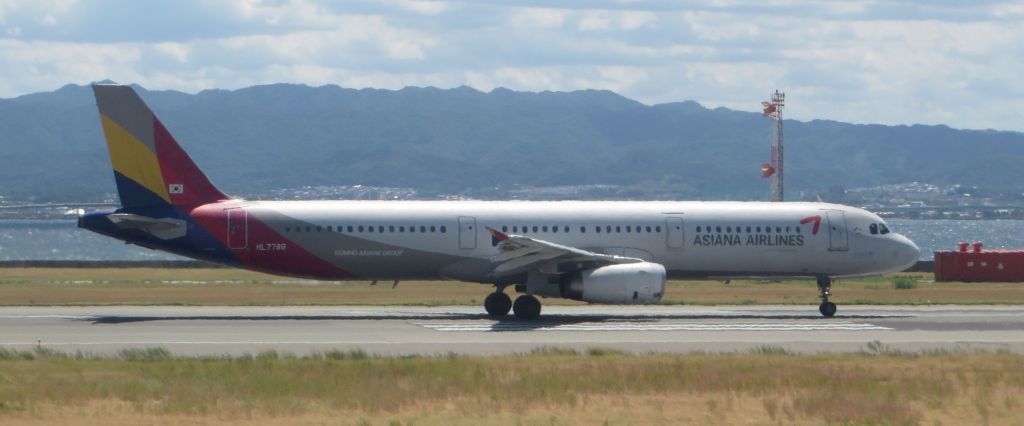
Korean Air B738
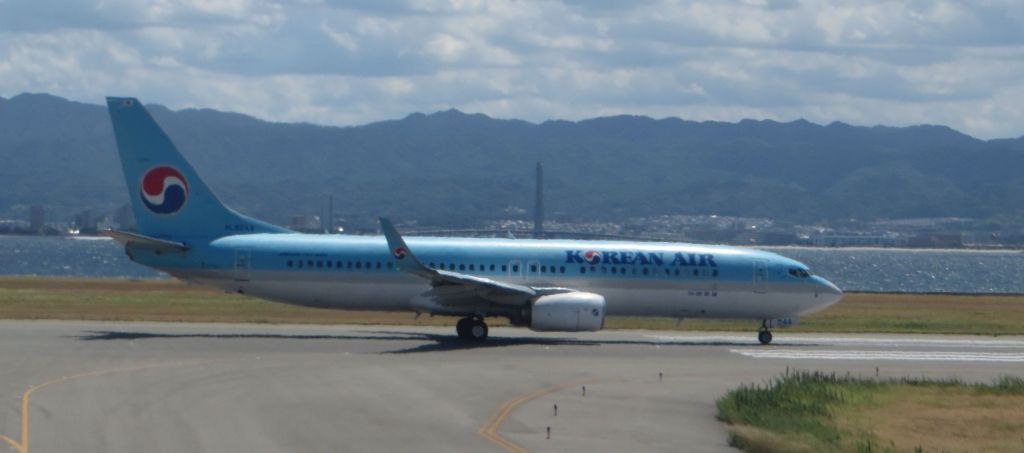
T’way B738
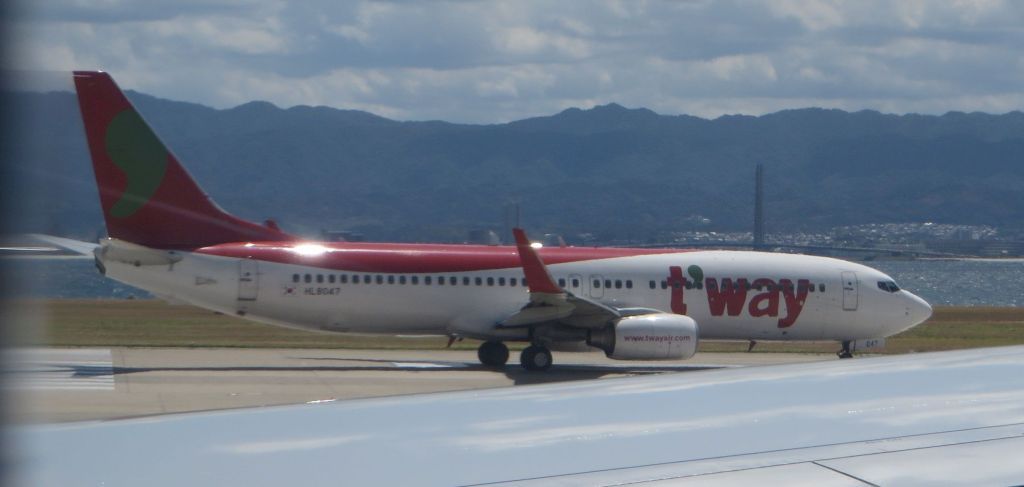
There was already this Eastar Jet 738 behind us
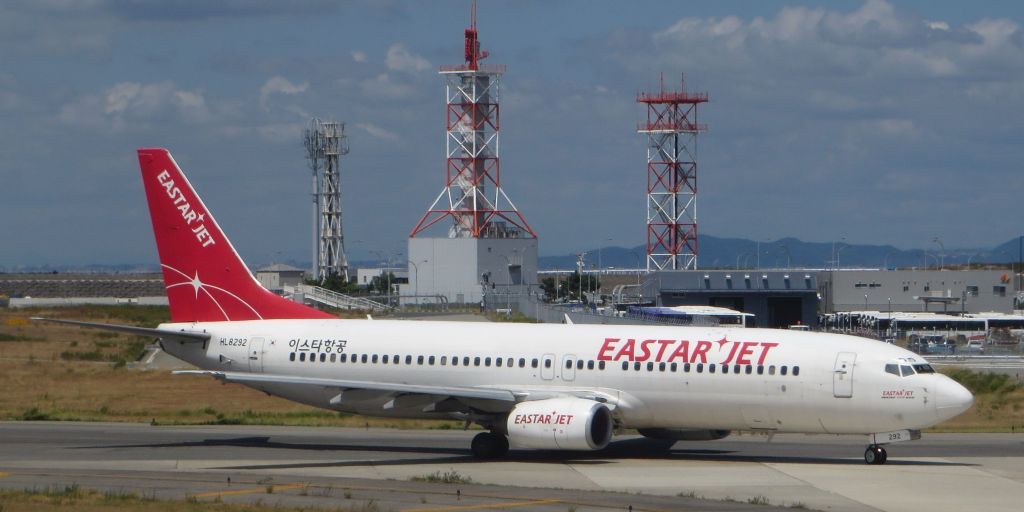
And also this Thai Airways A380 at the end of pushback
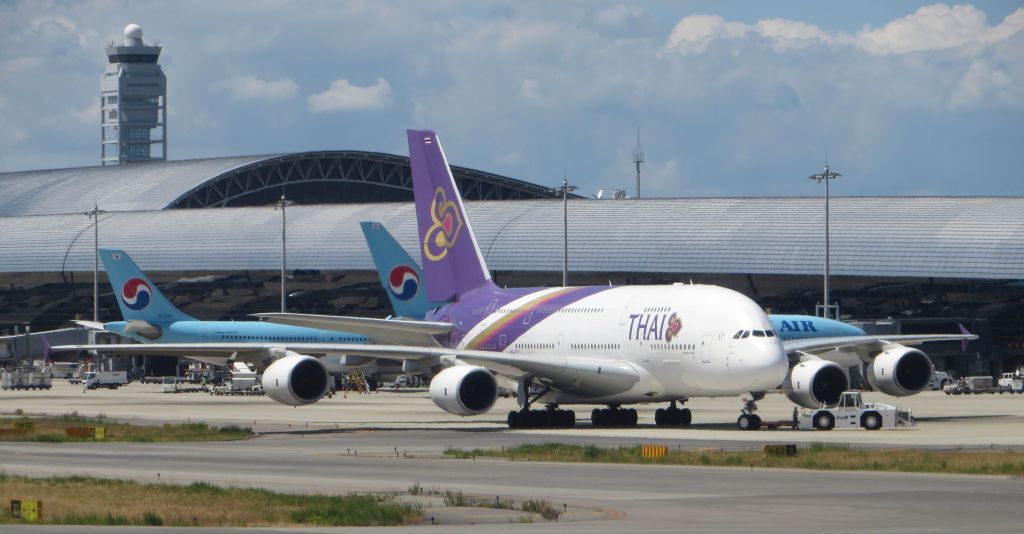
Last, a Spring Airlines A320 and a Jeju Air 738 parked at the terminal
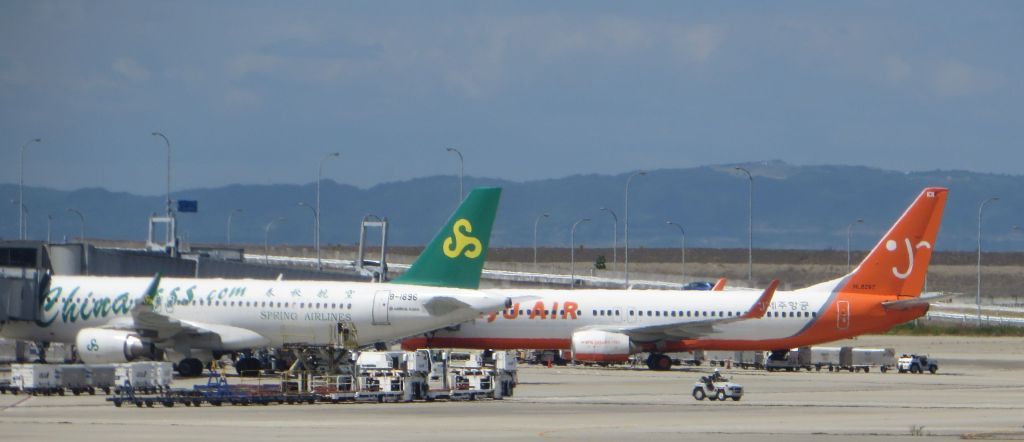
A probable Jetstar A320 is landing on the other runway.
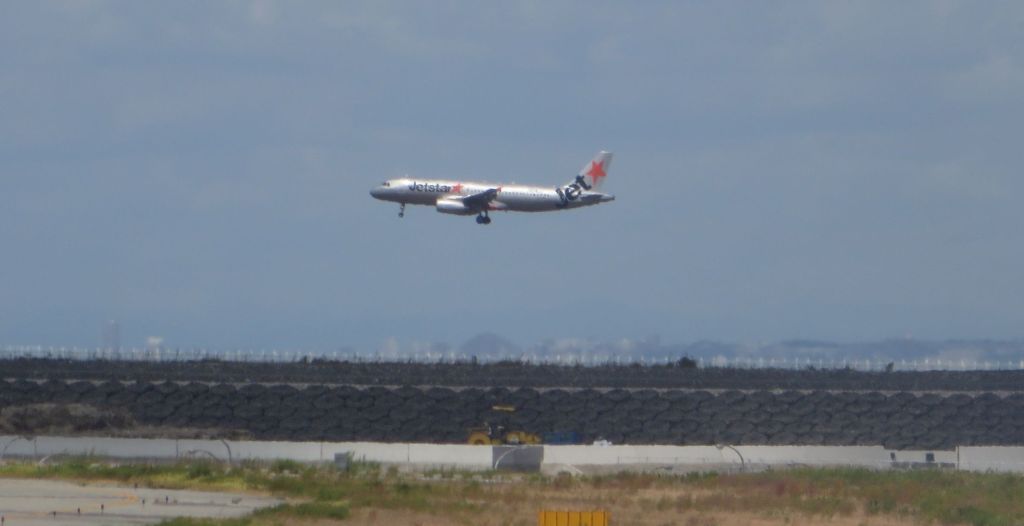
Last view from the ground of the bridge of KIX
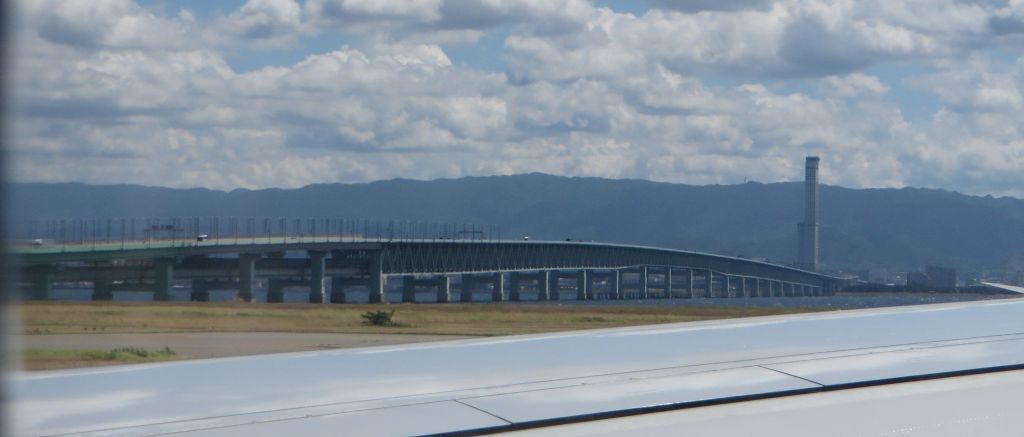
Take-off at 11:37, i.e. ETD +27’
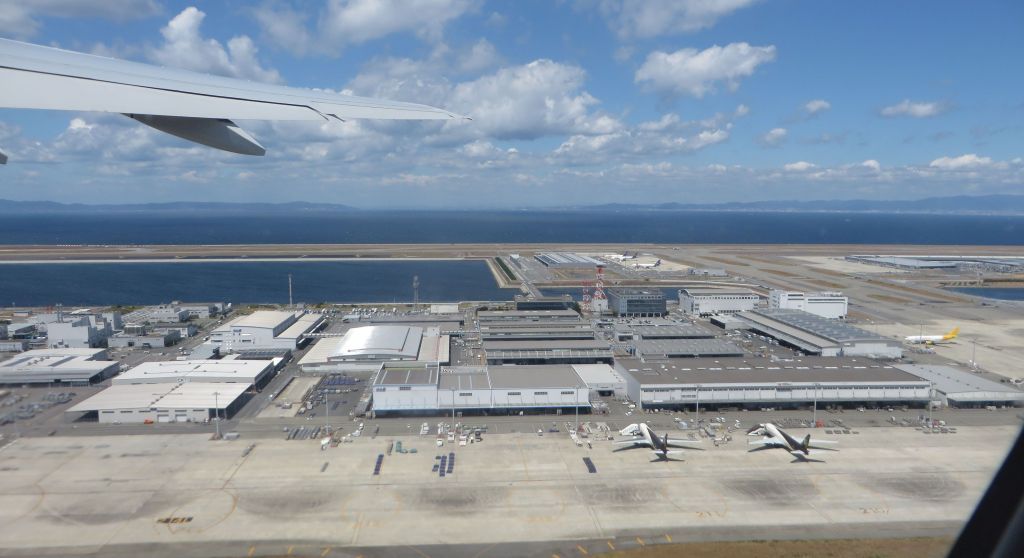
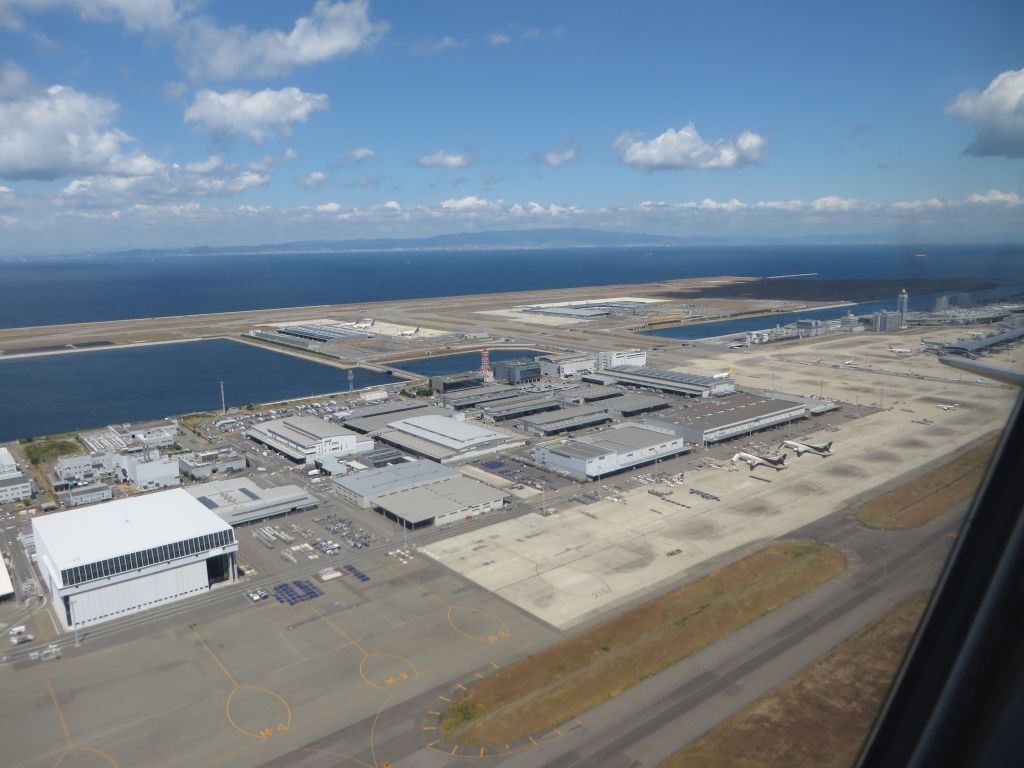
The end of Runway 24R, 500 m longer than Runway 24L
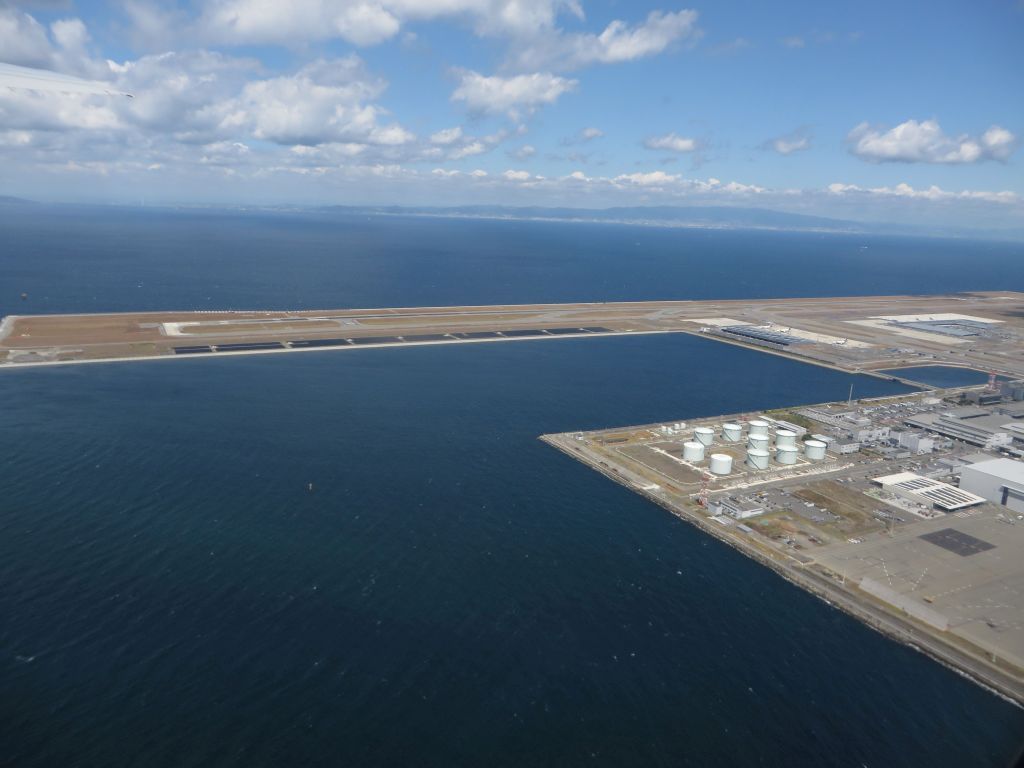
With some good will, you can see the piles of the Akashi Kaikyō viaduct between Awaji 淡路 Island (left) and Honshū 本州 (right), whose center span has been holding the world record since it was built in 1998, at 1,991 m.
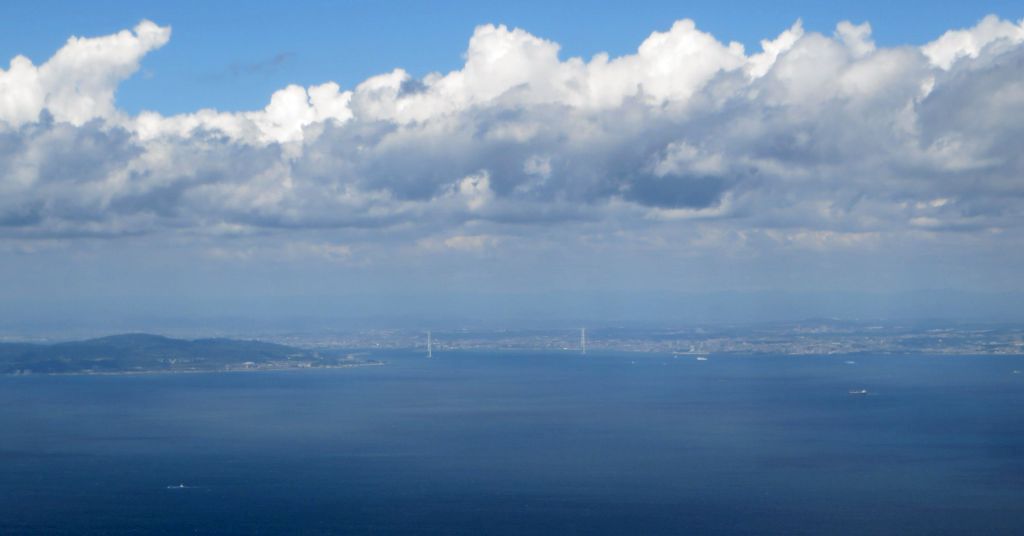
The plane then turns sharply right to head northwest, offering a splendid view on KIX.
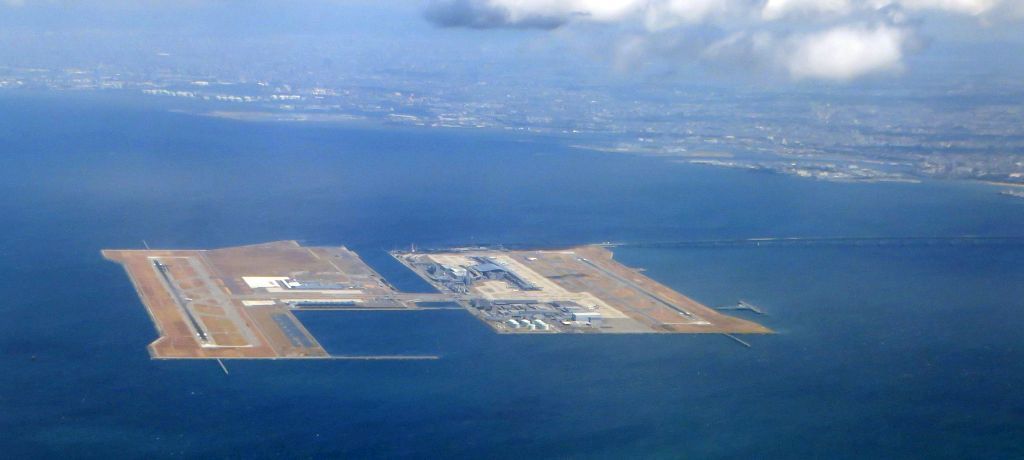

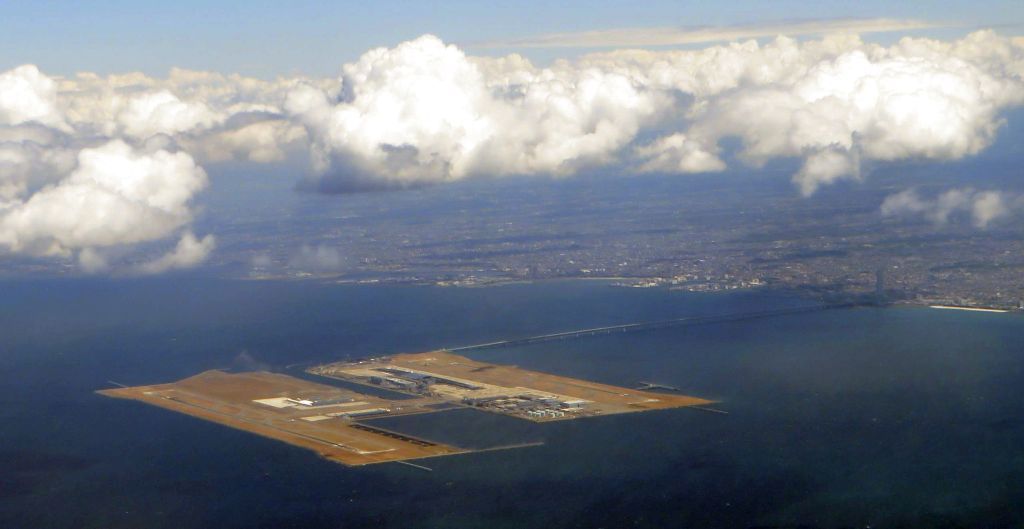
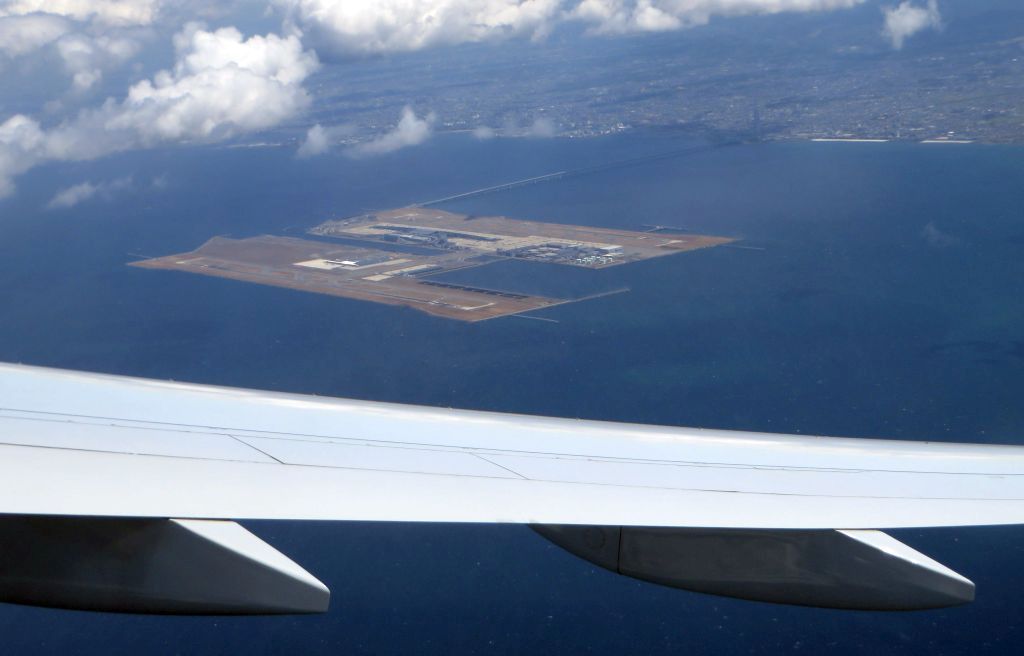
Zoom on the bridge of KIX
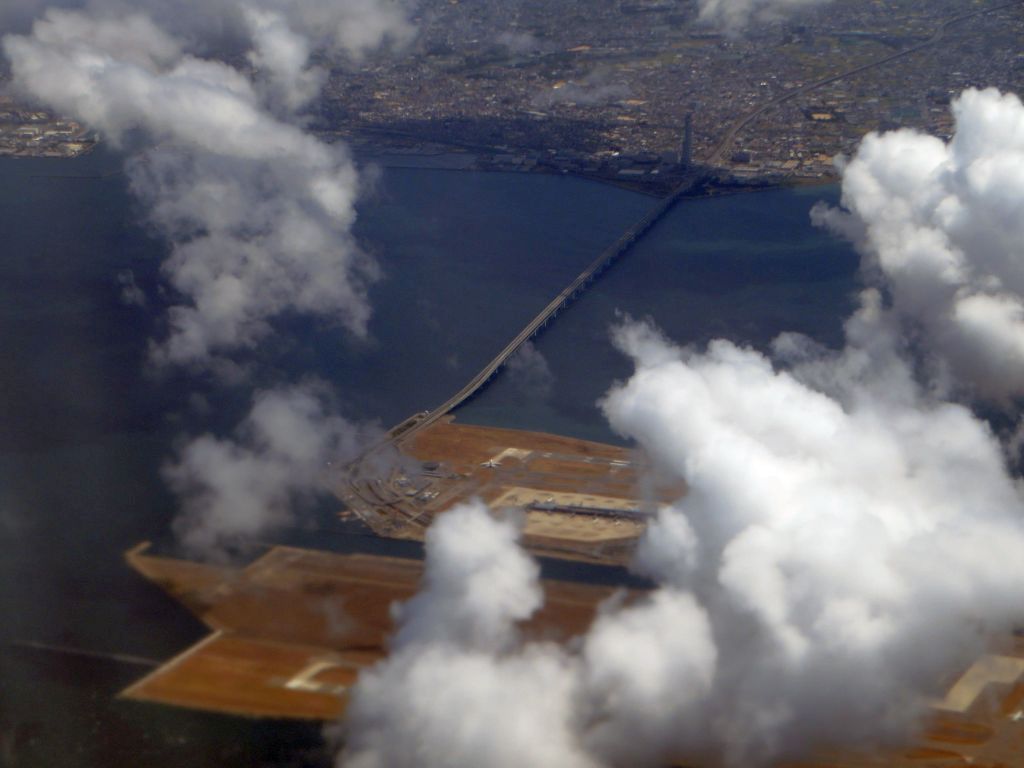
A last glimpse
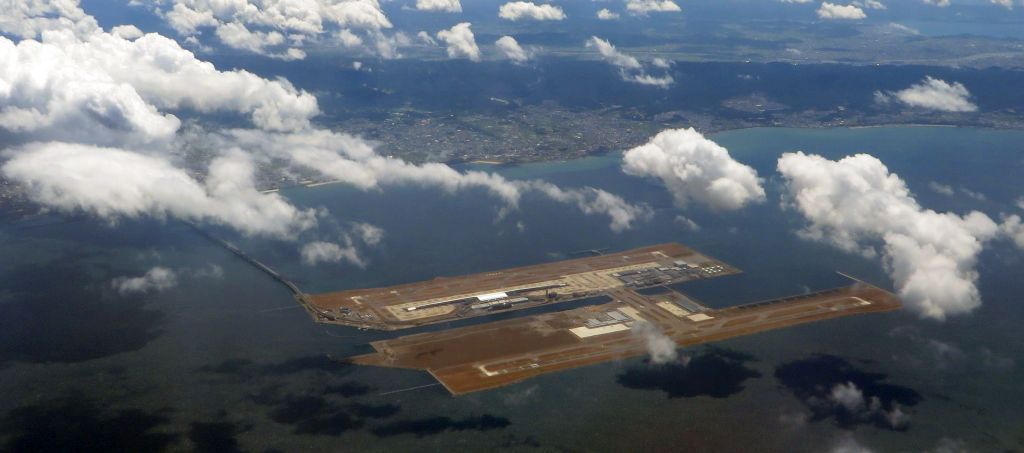
Now is the time to see the huge Ōsaka commercial harbor, spanning several cities: Kishiwada 岸和田
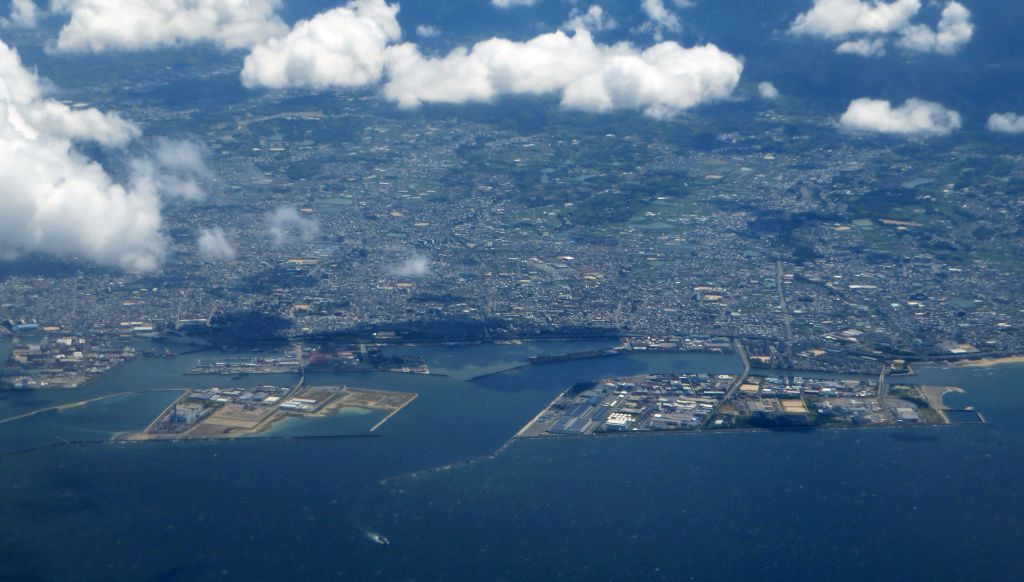
Izumiōtsu 泉大津
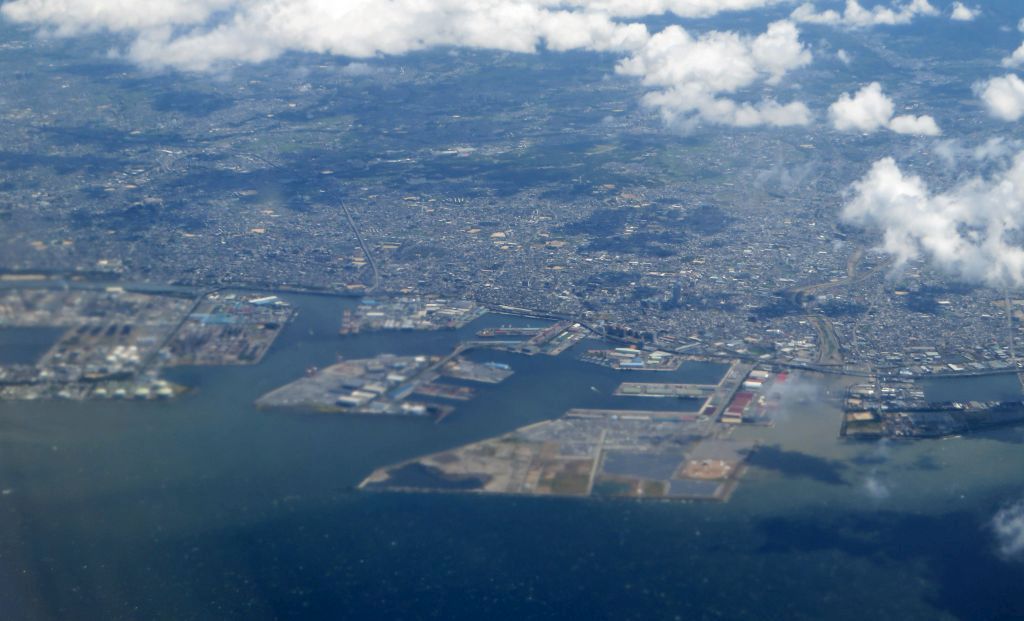
Sakai 堺
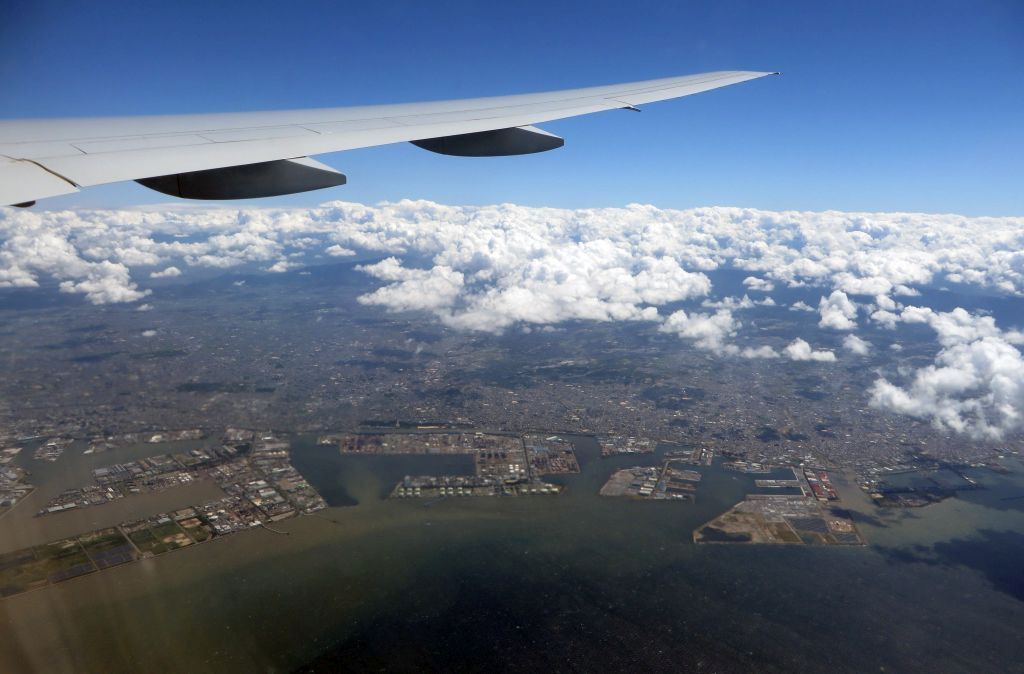
Needless to say that all these geometric shapes are man-made terrains gained on the bay. There is a concession to leisure activity with the Minato Sakai Gurīn Hiroba みなと堺 グリーン ひろば (Green square of the Sakai Harbor, literally), in the bottom above and lower left below.
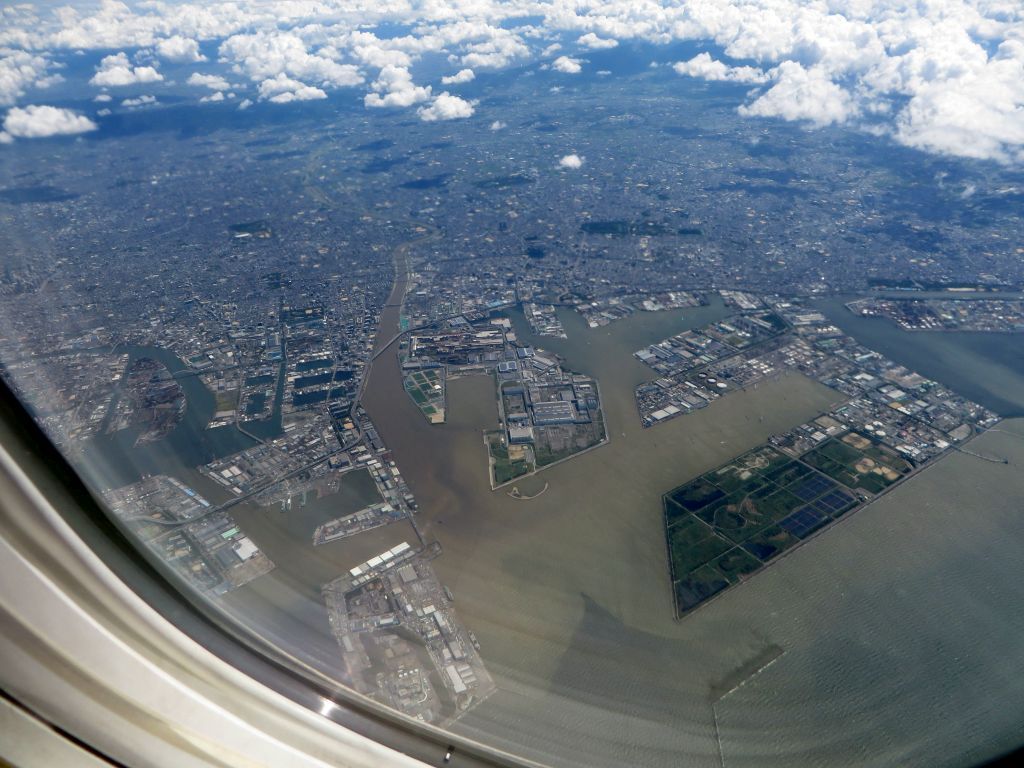
The bottom of the bay of Ōsaka, with the mouth of the Yodo 淀川 River, fed by Lake Biwa 琵琶湖, the largest Japanese lake, located next to Kyōto
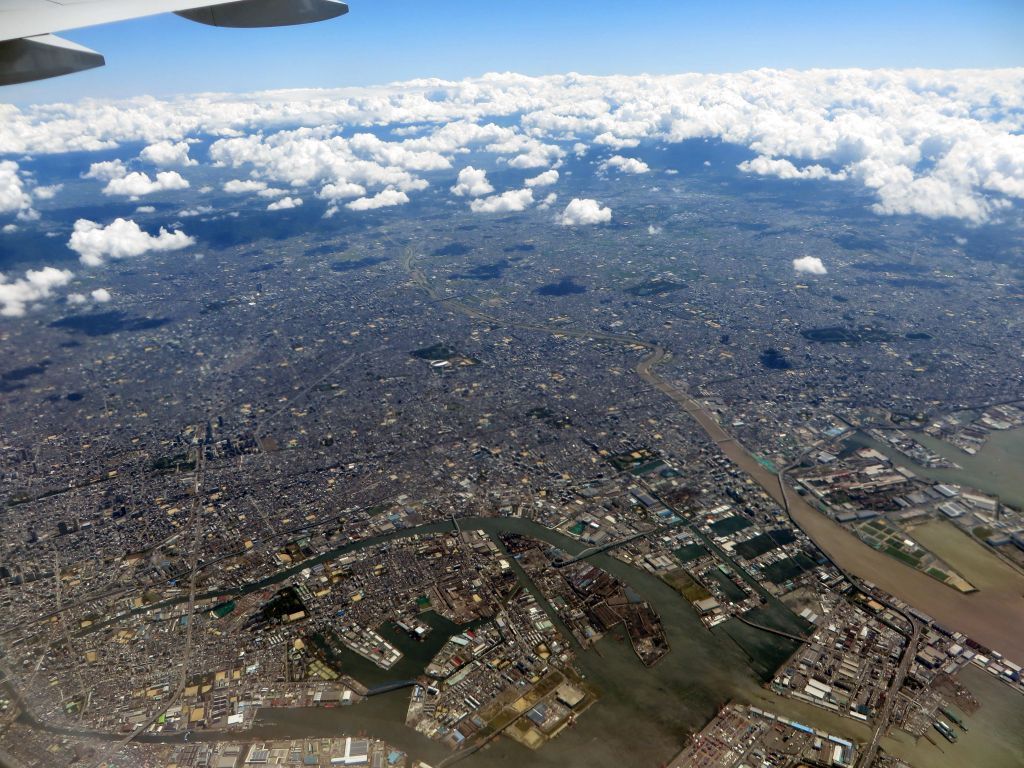
Ōsaka is a boundless urban sprawl
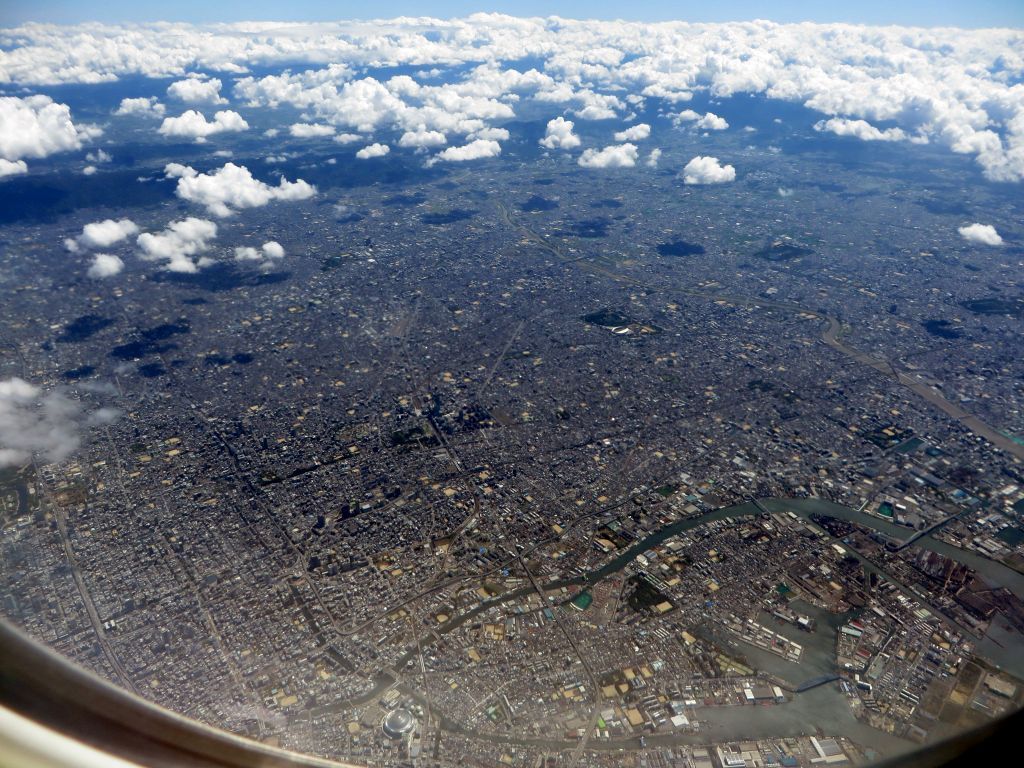
This huge expanse of tightly packed low rise buildings has very few parks, but one of them is worth mentioning
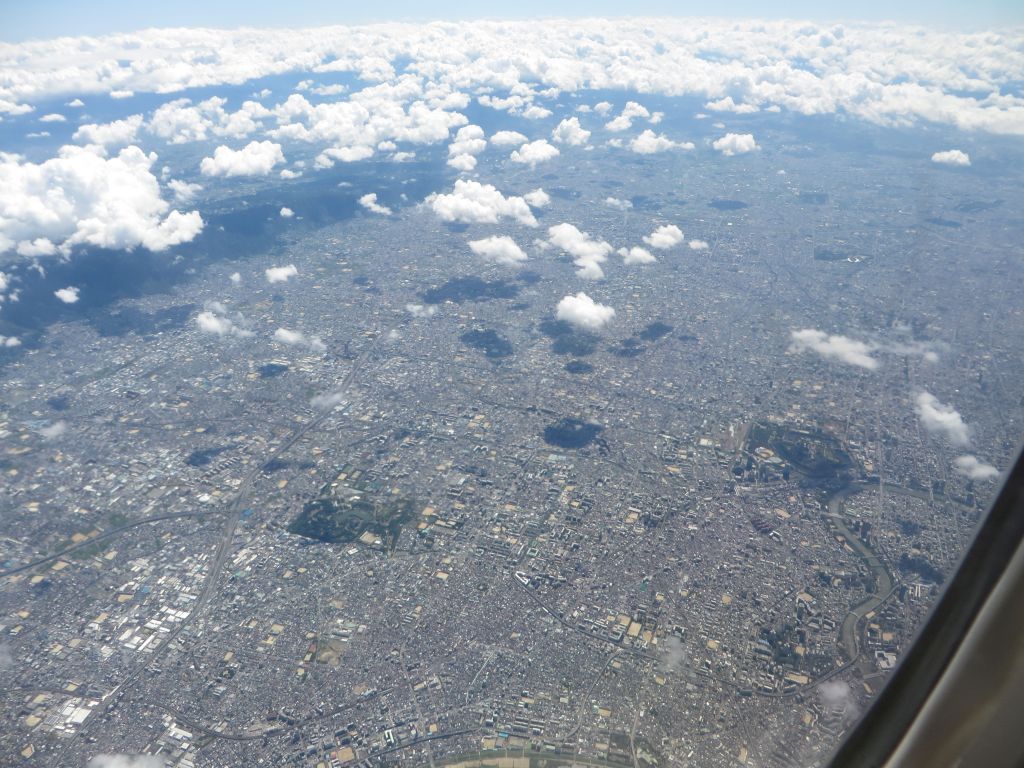
These are the gardens of the castle, which was destroyed during the fighting at the time of the Meiji Restoration in 1868. The dungeon has been rebuilt in 1928 (in concrete, but it looks great from a distance).
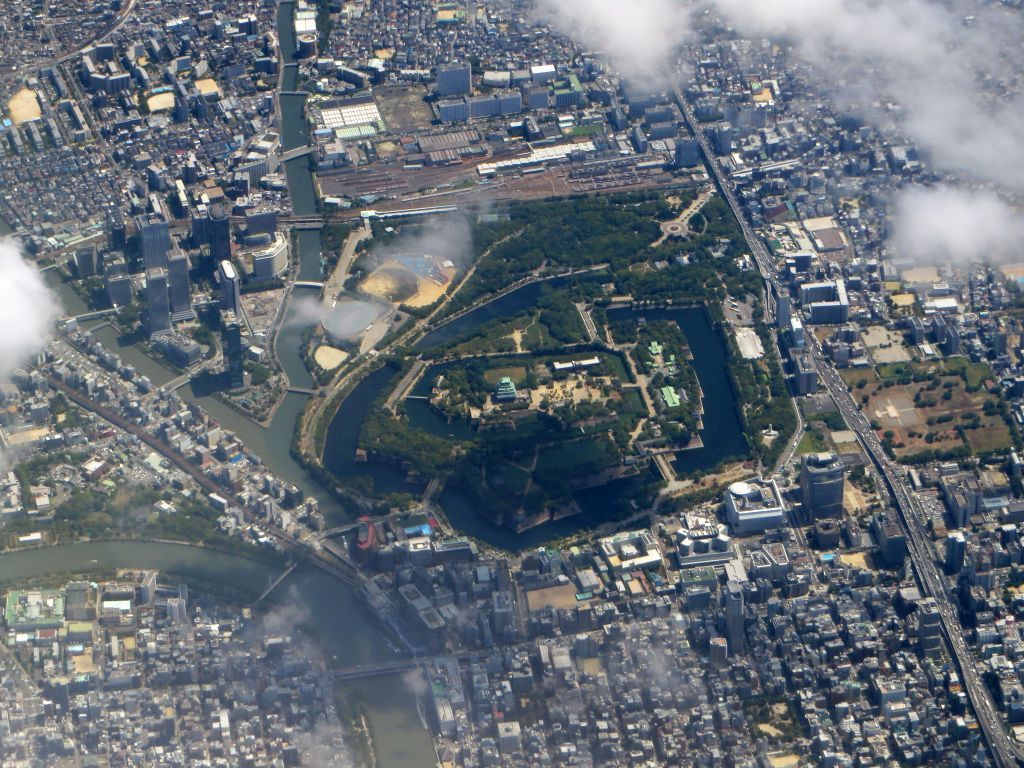
This park is a prime location for enjoying cherry blossoms, but this was of course not the season for that.
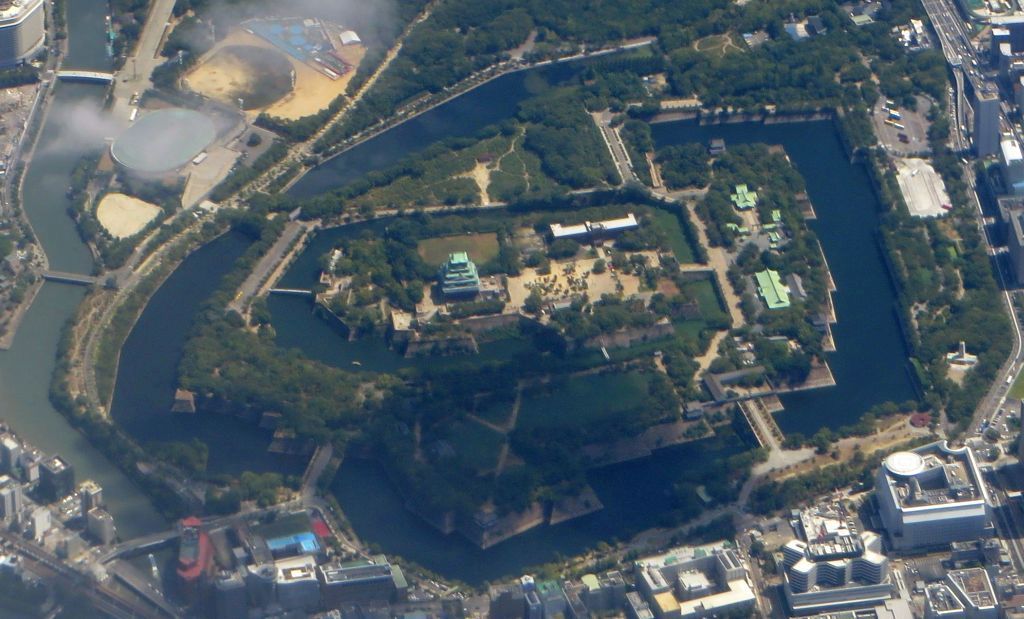
Air to air with a probable Skymark 737. I had no time to take a better shot: she was flying in the opposite direction and the relative speed of both aircraft made it a split second take.
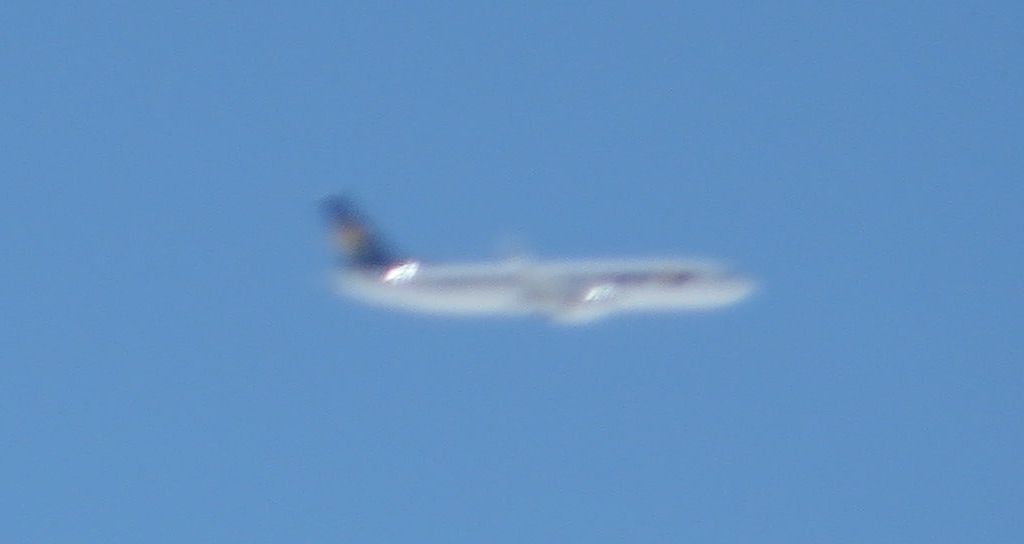
The plane then flies north of Nagoya. The light colored patch center right is NGO, Nagoya’s international airport.
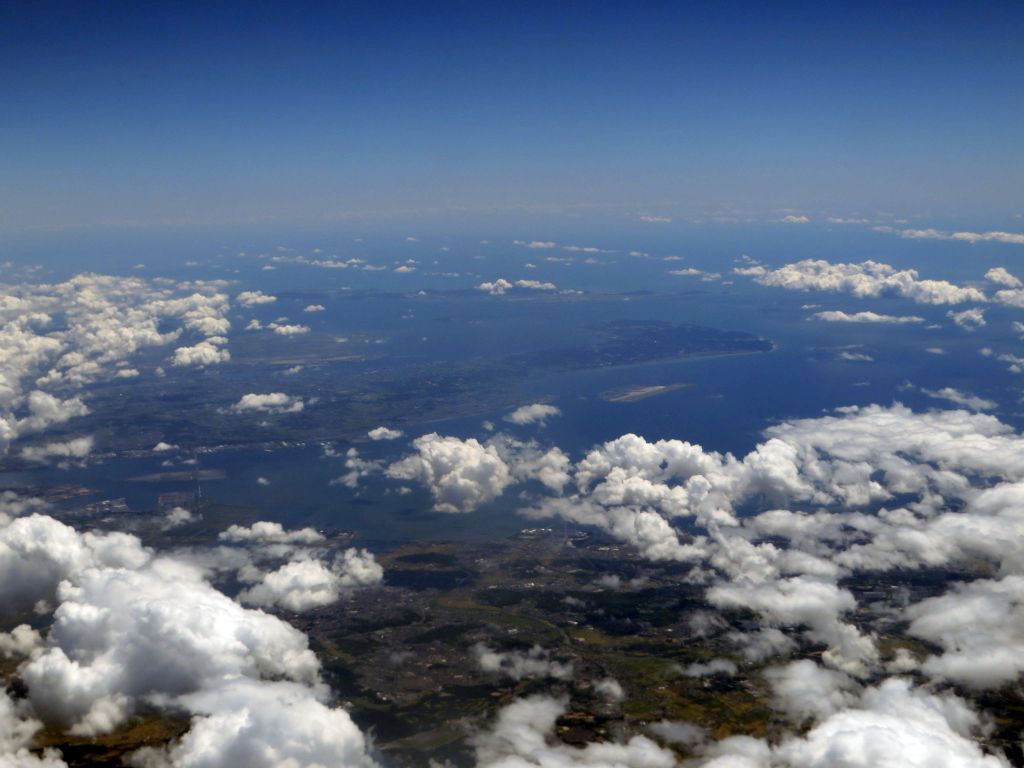
Zoom on NGO, built like KIX on an artificial island in the bay, but with one runway only.
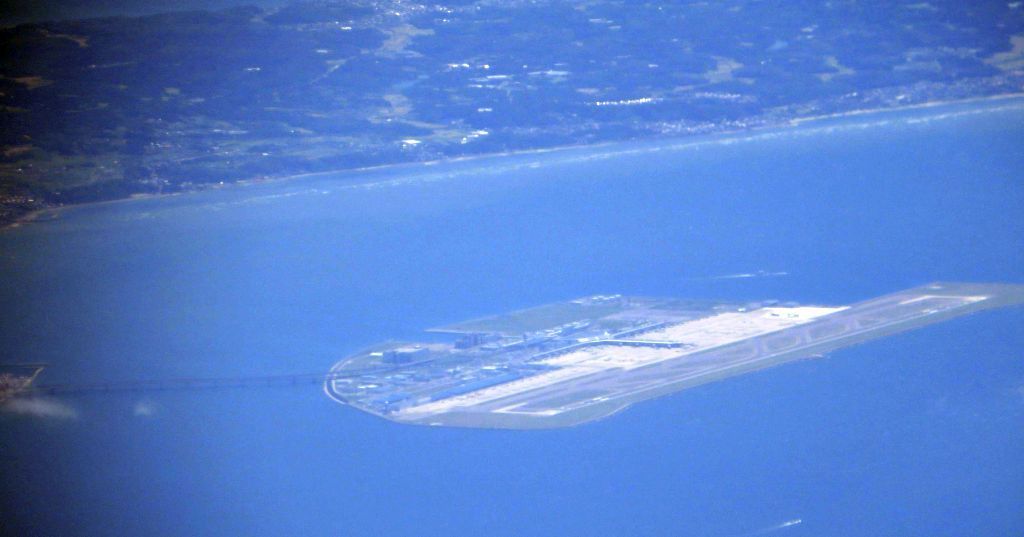
NGO replaced NKM (Nagoya-Komaki) which became a secondary domestic airport.
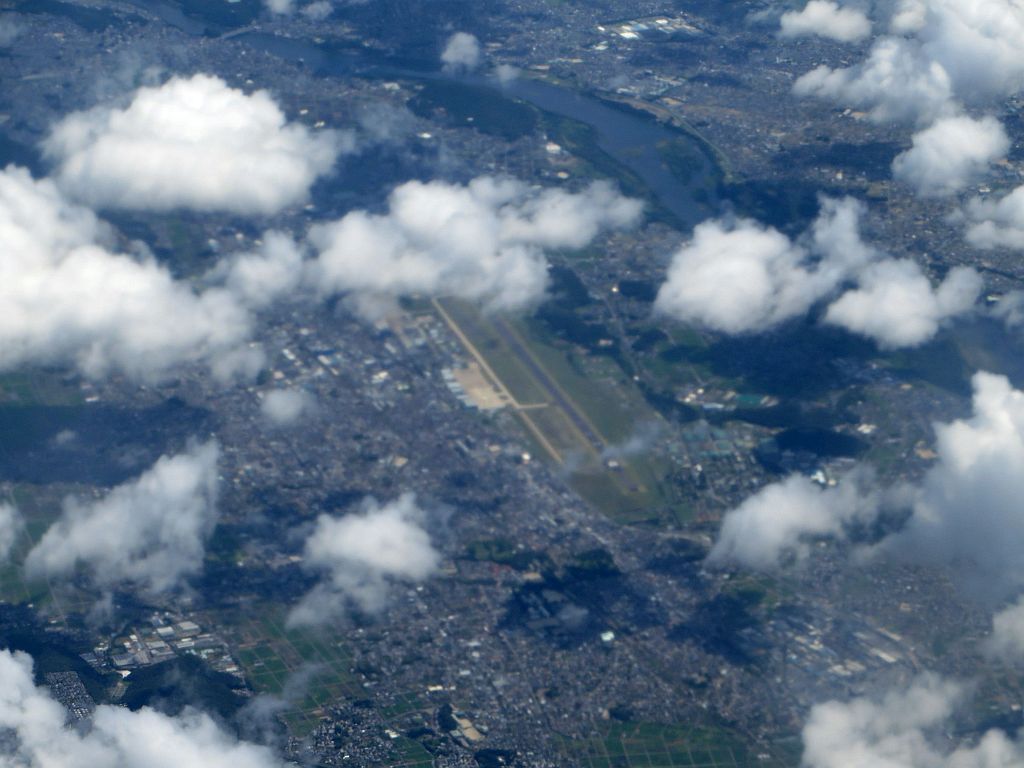
Nagoya’s urban sprawl
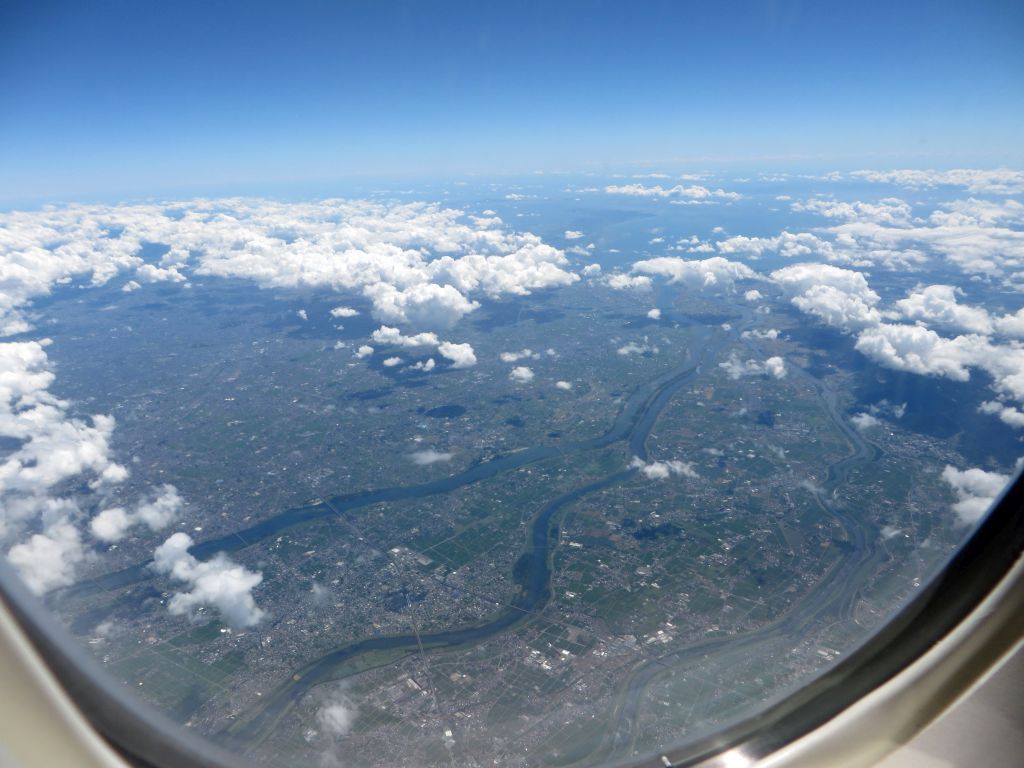
The plane then veers around Sado Island佐渡島, which is the main topic of the tourist bonus of this report, but it is on the other side, and under a cloud covers which is going to hide the landscape in the next couple hours of flight.
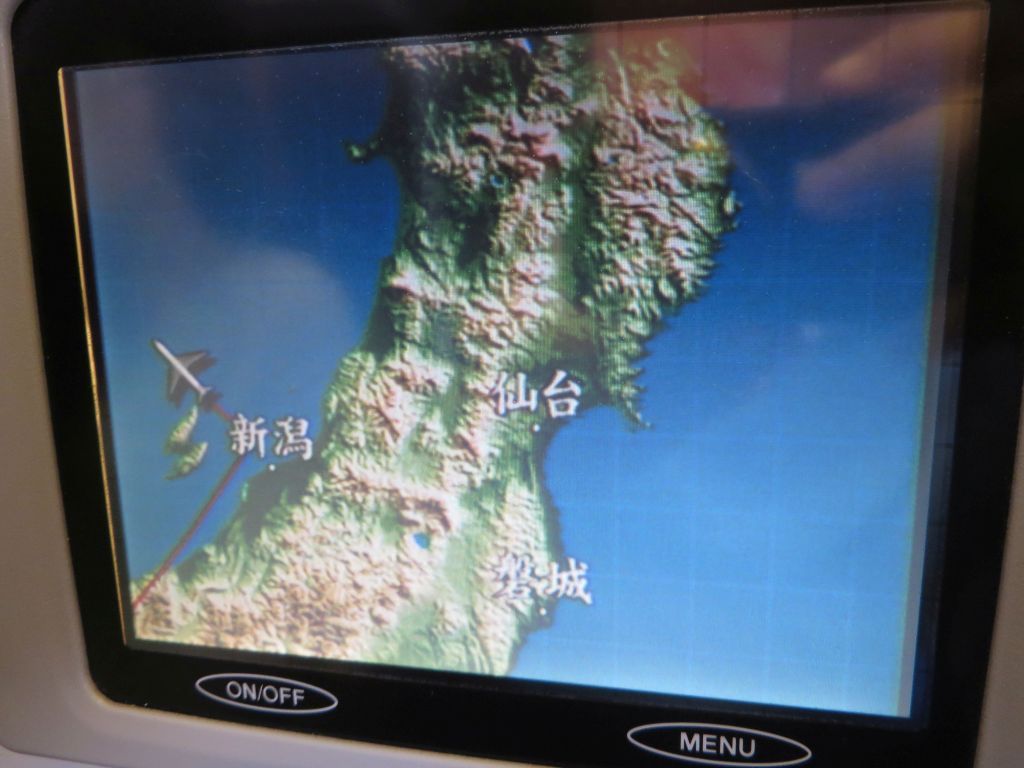
The menu – a small sheet of paper folded in two – had been distributed at noon (Japanese time).
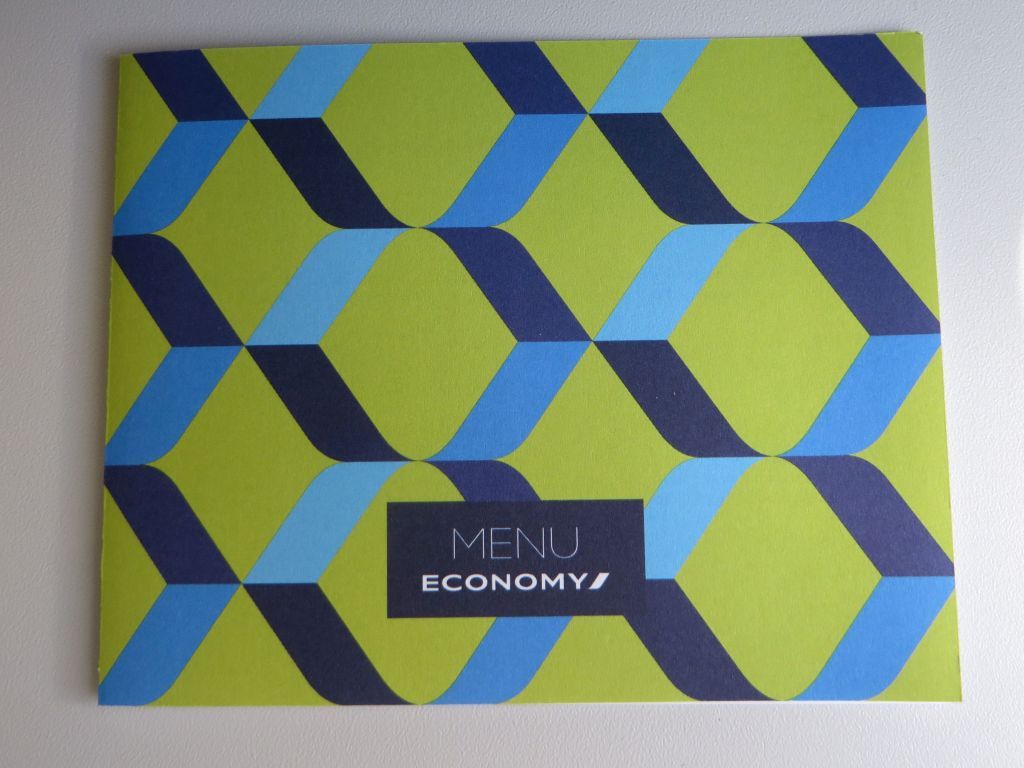
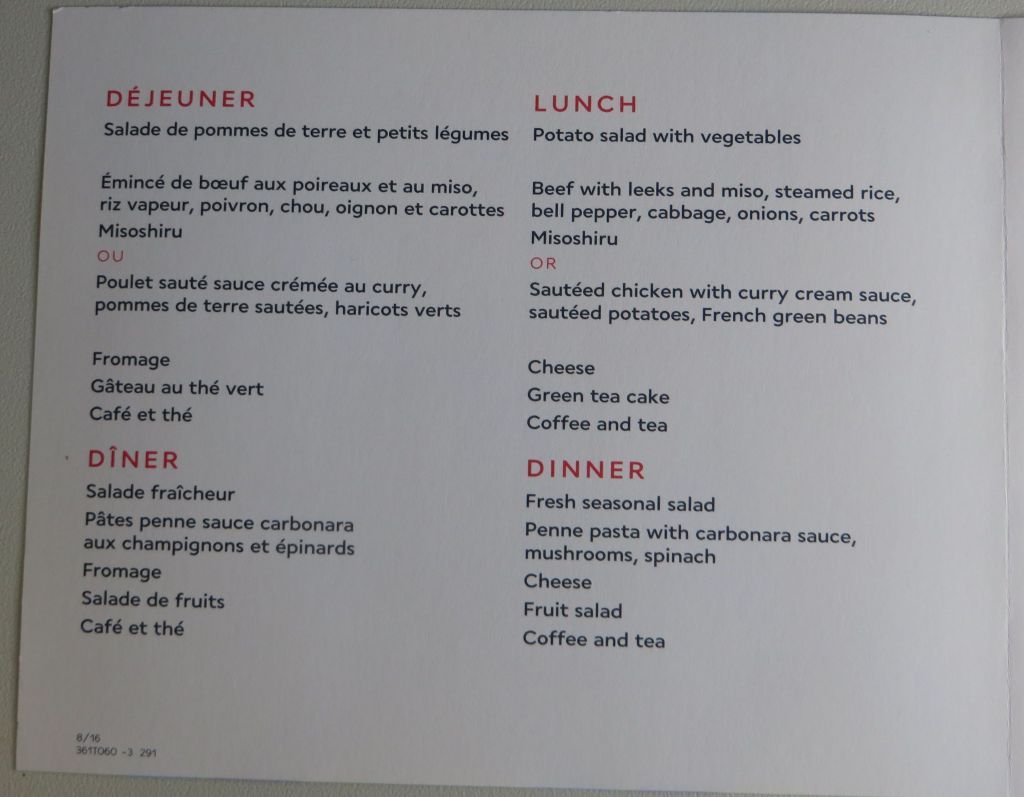
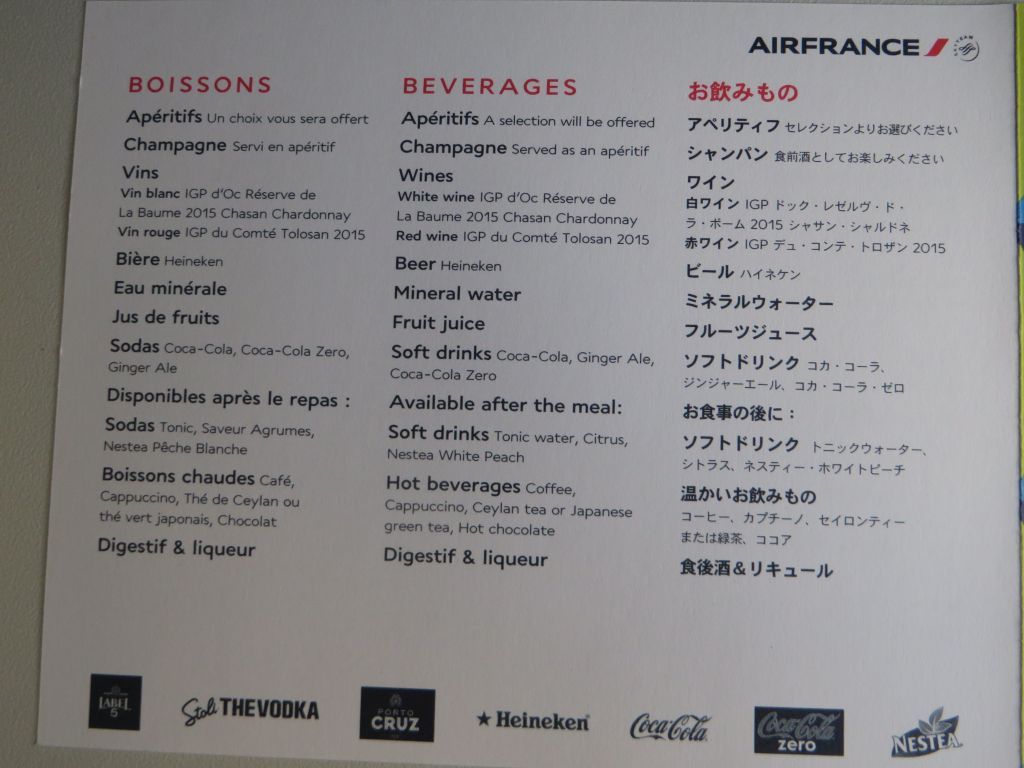
Drinks and crackers are served at 12:36 for us. My wife chooses champagne; I settled for Coca-Cola (there are also standard fruit juices), and each passenger received a 10g bag of so-called "Provence baguettes".
(I know that some readers will be horrified to see that I placed them on the bare tray table. I suggest rating PG-13 this report ^^)
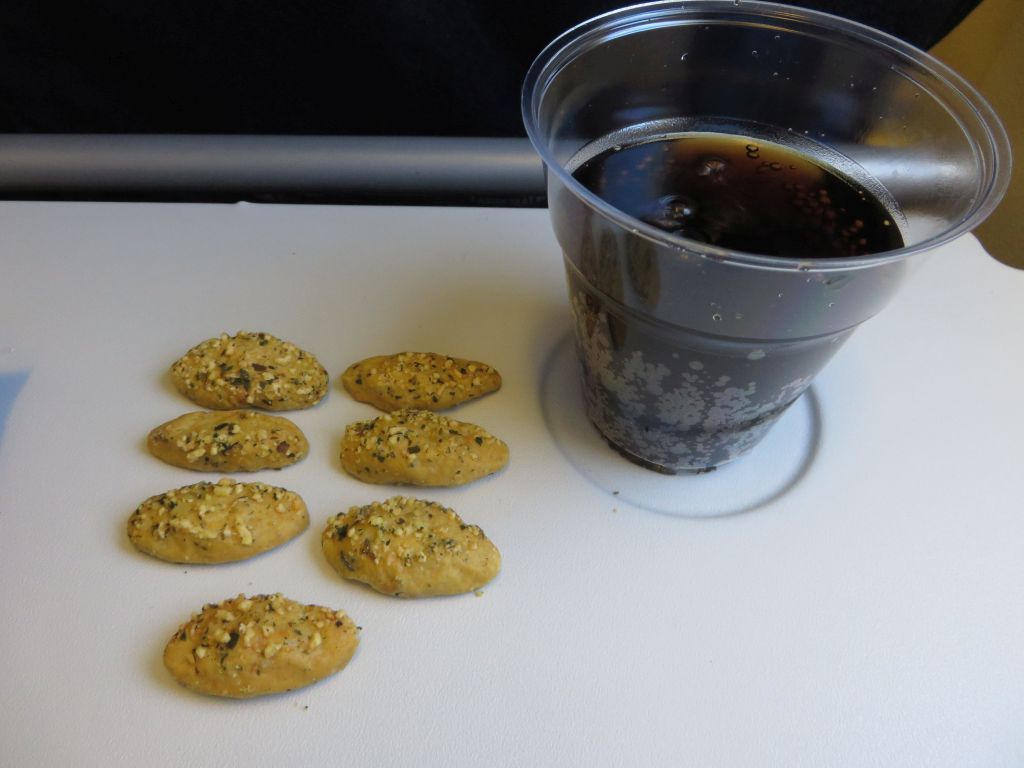
The cup holder has not been designed to hold a full cup
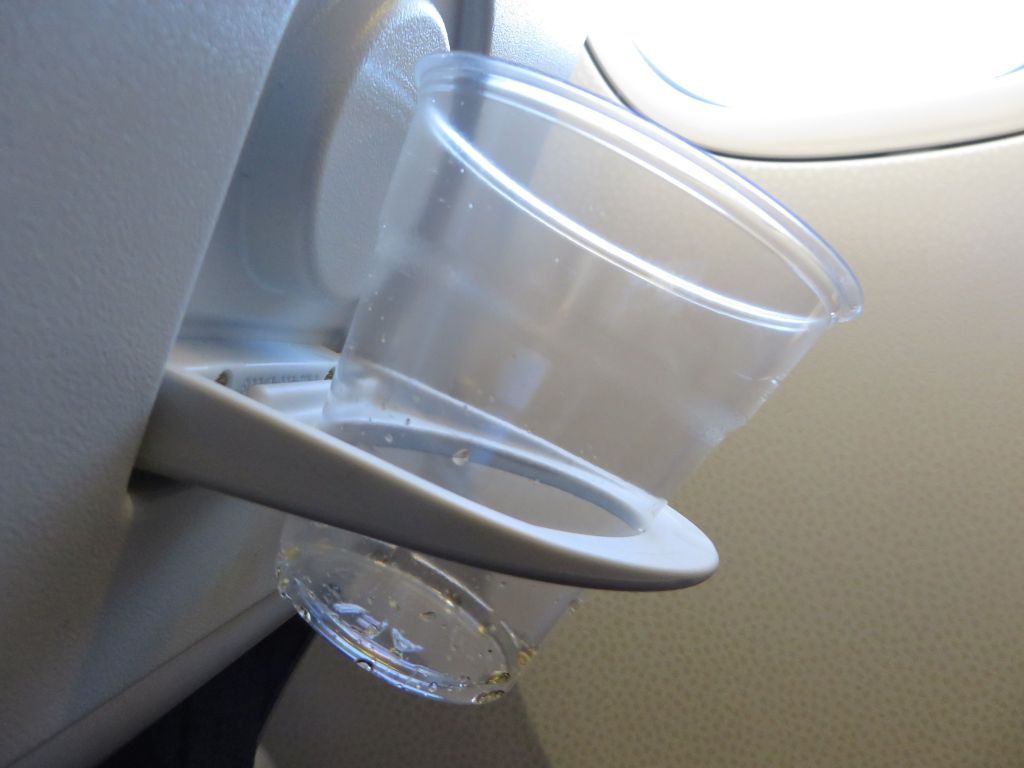
This lunch tray arrived an hour later at 13:27
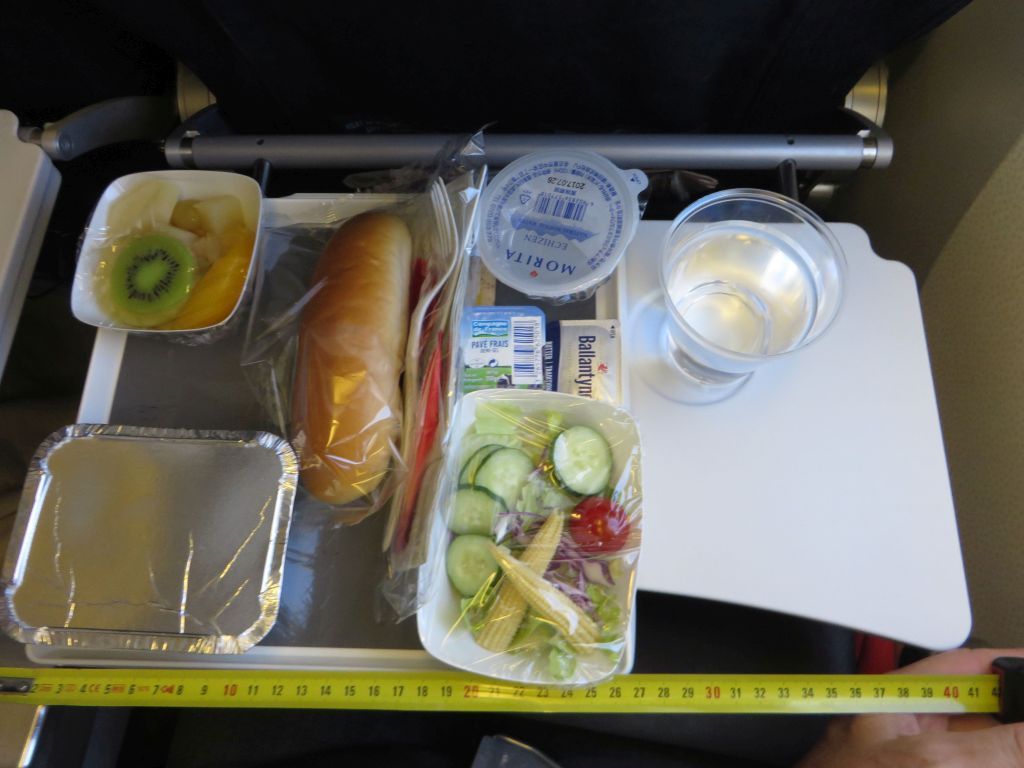
The same after unwrapping.
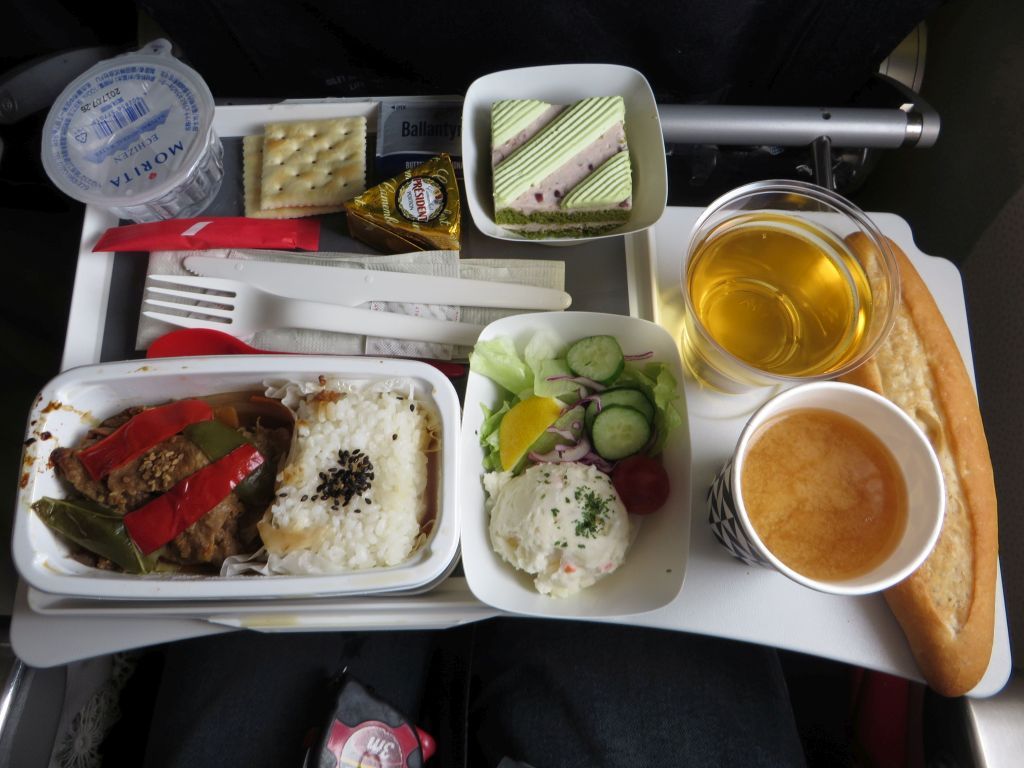
I chose the Japanese hot meal (and its cup of misoshiru)
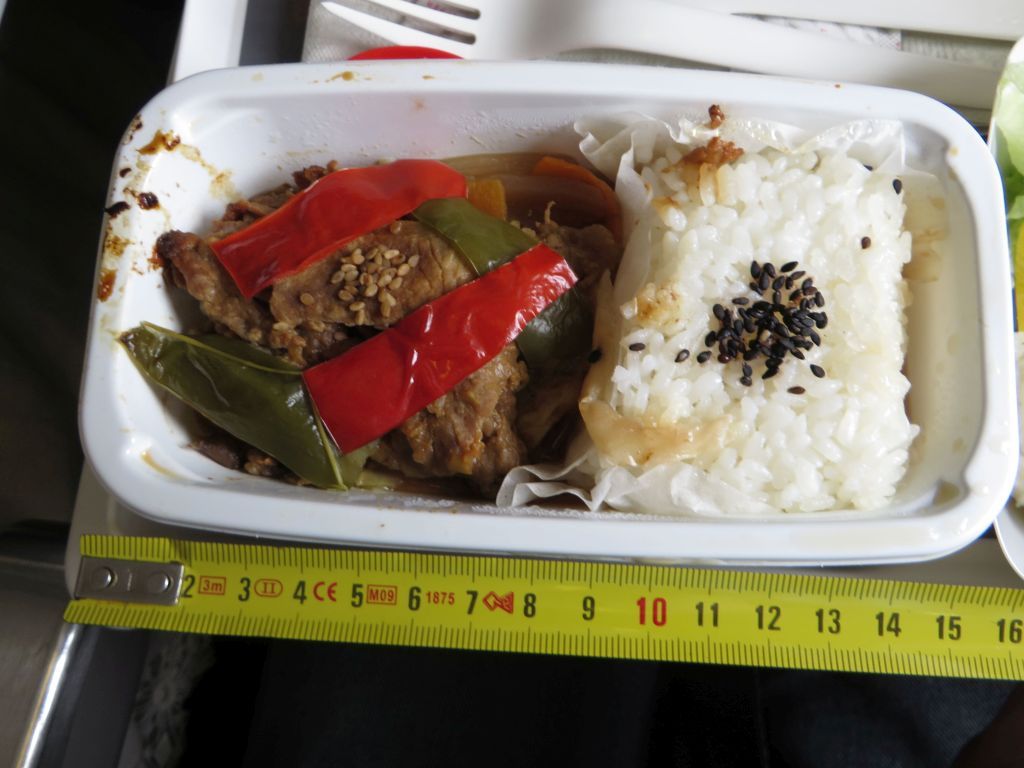
My wife was attracted by neither hot meals, but chose the other one (curry chicken). There was nothing wrong and nothing exciting in this lunch: it served its purpose to not let passengers become hungry.

Coffee (or tea) arrived half an hour later
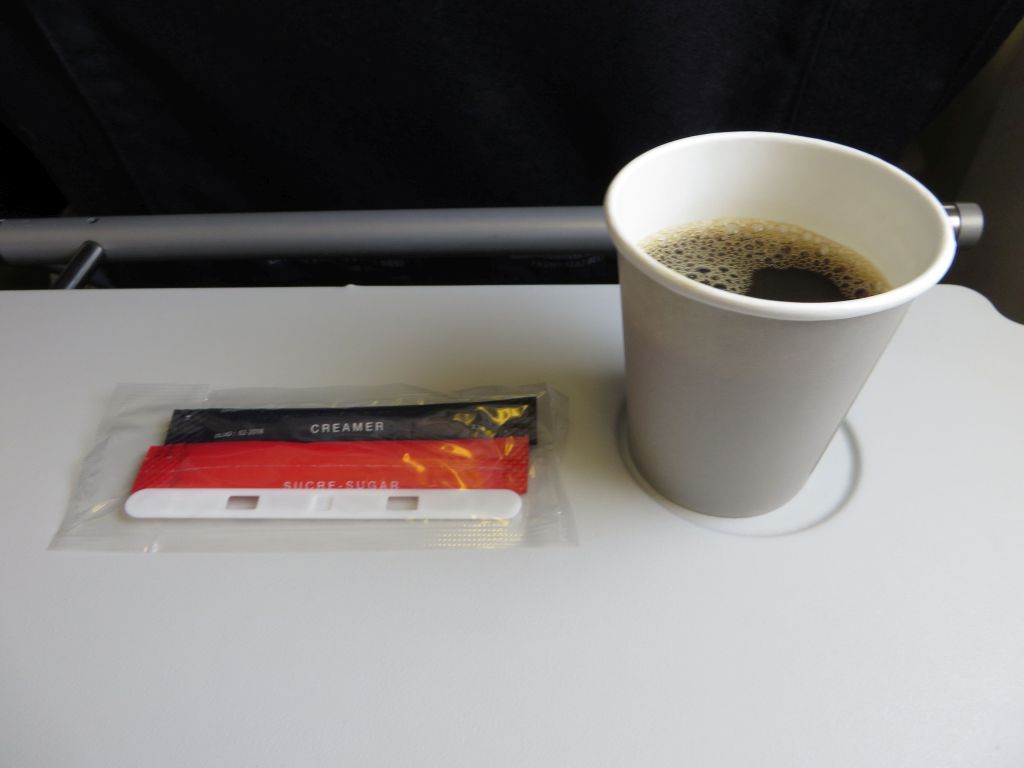
A word on the FA assigned to our part of the aircraft : her perfectly mastered sentences, devoid of any hesitation, needless syllable or pause, were surprisingly cold, despite the smile which gave the impression of being purely part of her routine.
This manner of speech conveyed to my ears the subliminal message "I have to provide a service, but I am not here to socialize”, and I never saw her outside meal times. From a distance, the other FAs in our cabin gave a much more friendly impression.
Since I was most of the time focused on my window or my laptop, and seated except the two times I went to the toilet, I did not see much of the other FAs during other phases of the flight and would not comment in more detail on their interactions with the passengers during the flight.
The cloud cover clears up above Siberia, an endless expanse mostly devoid of any trace of human activity.
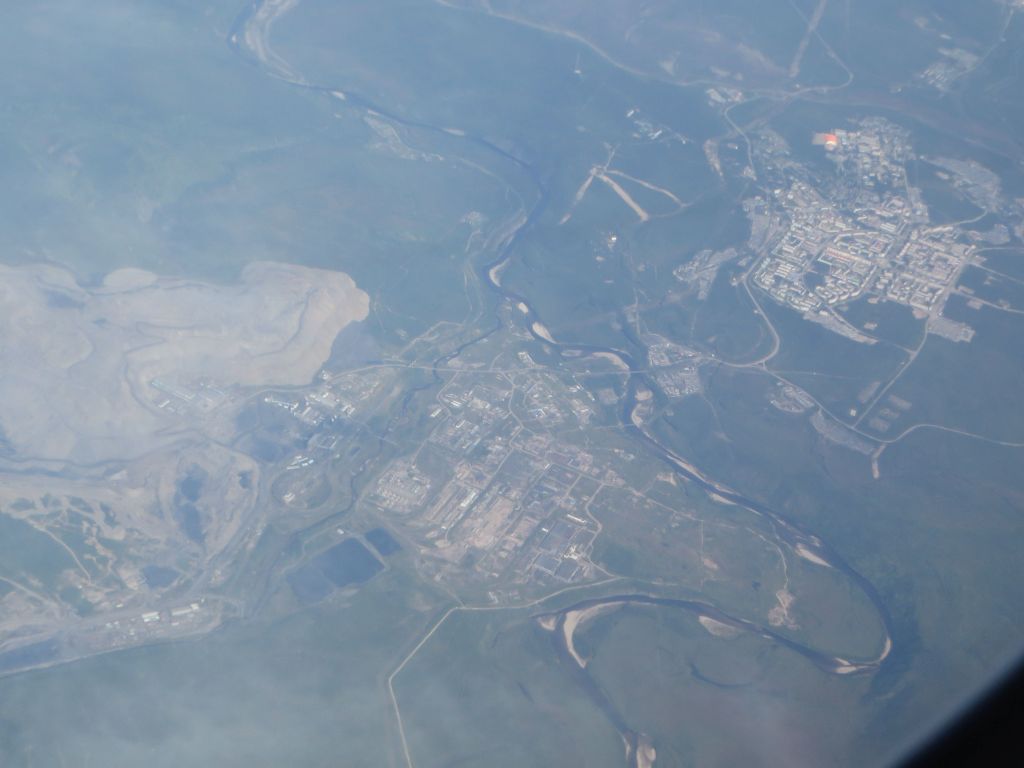
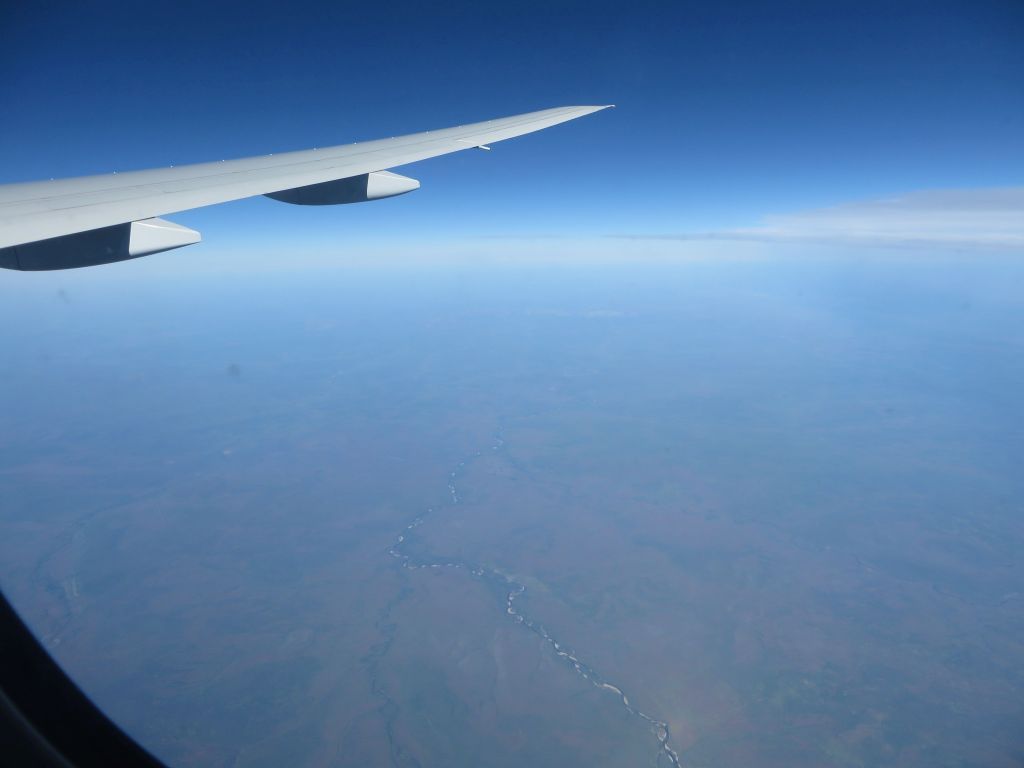
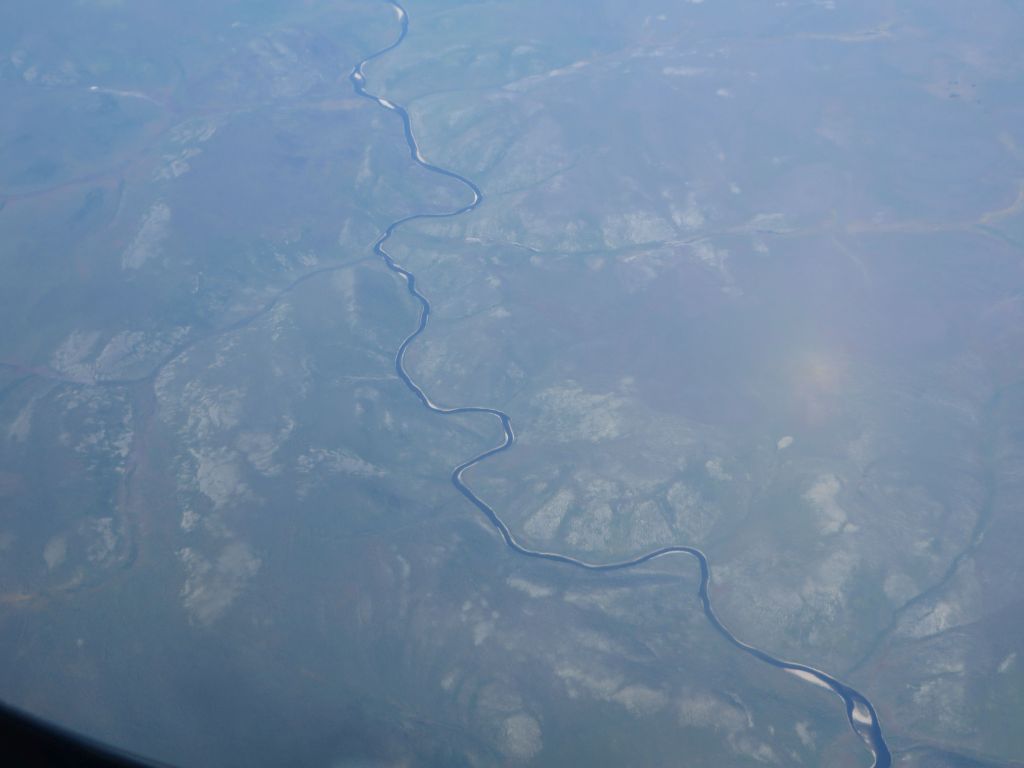
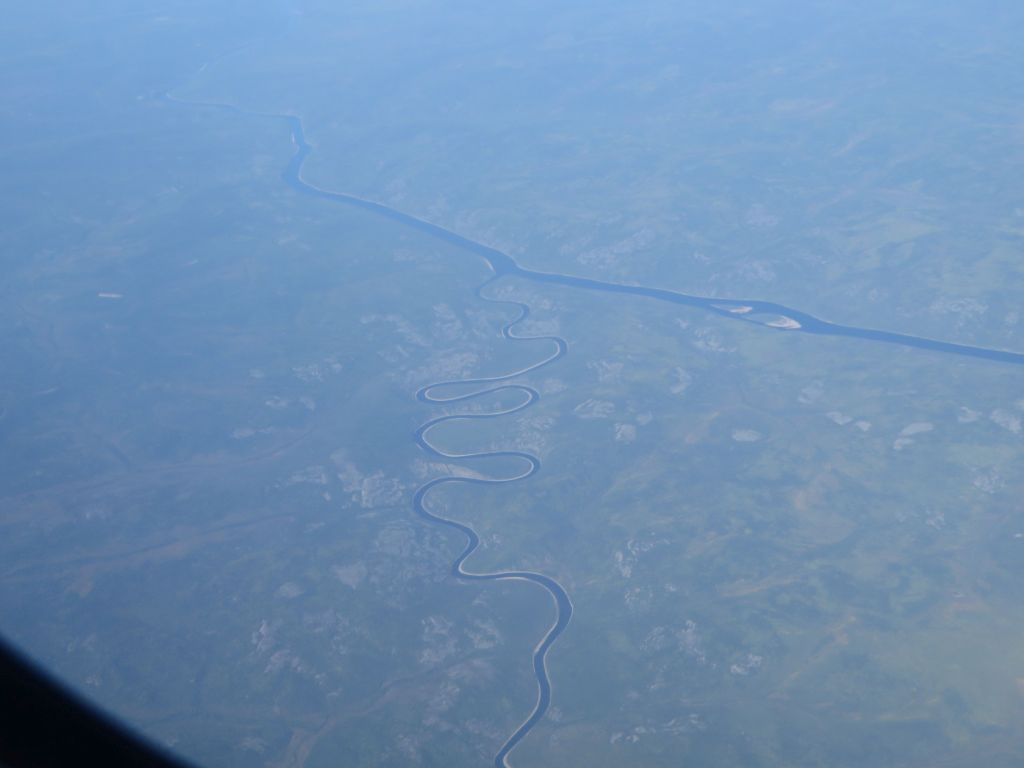
Miss PAX43K-ex-40J interrupted her viewing of the movie Titanic when my wife rose to go to the toilets, a sign like others that she did not want to disturb her neighbors in any manner. I took this opportunity to do the same.
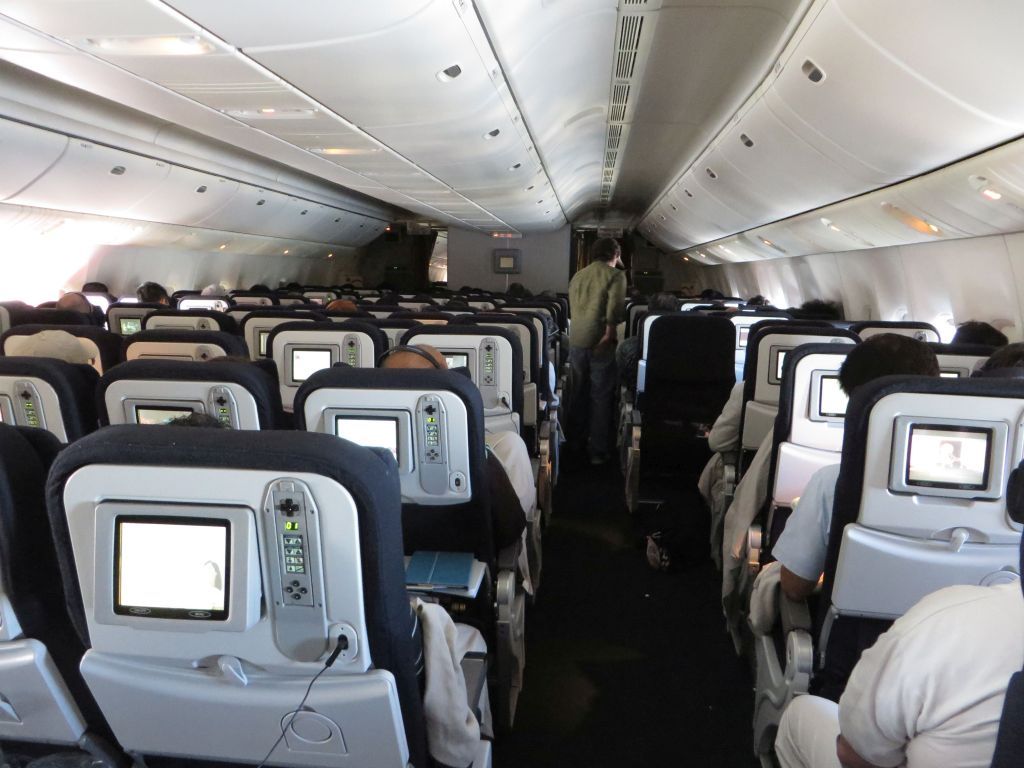
I noticed these two pockets containing newspapers on the rear wall of the cabin. My readers will have identified Japan’s Asahi Shimbun; there was also a decent selection of France’s major newspapers in the other pocket (a single copy each), but I do not remember seeing titles in English.
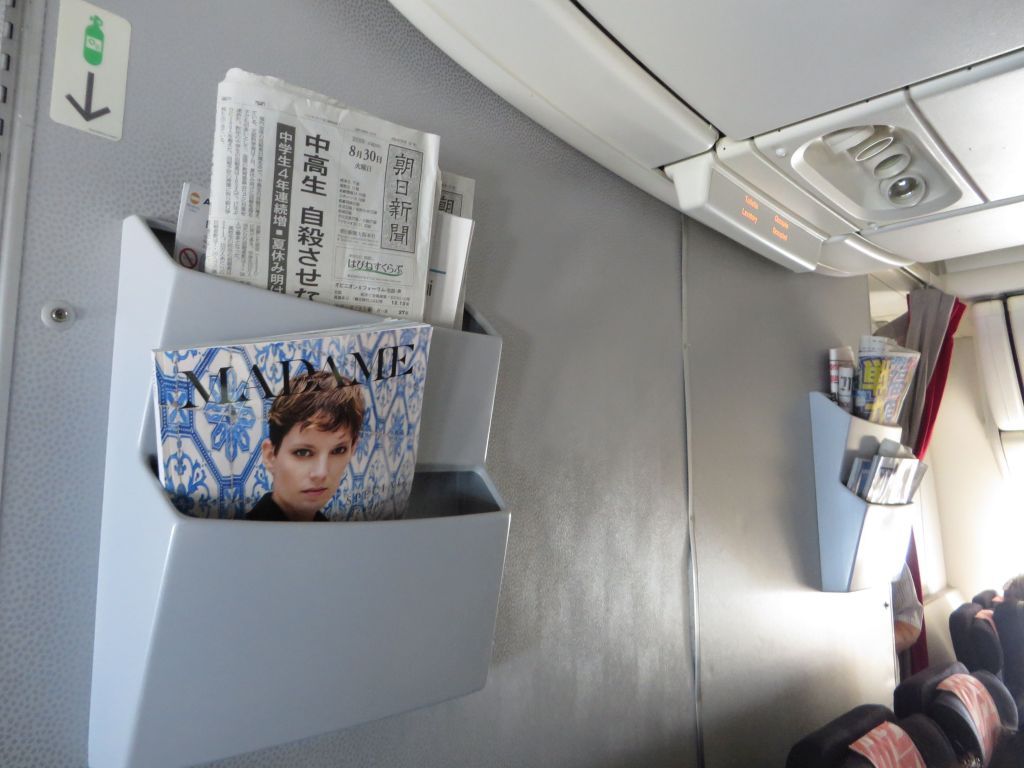
I won’t blame the previous passenger for leaving me a sink full of soapy water: it was very difficult to lift the plug with the fingernails, as the handle for raising it did not work.
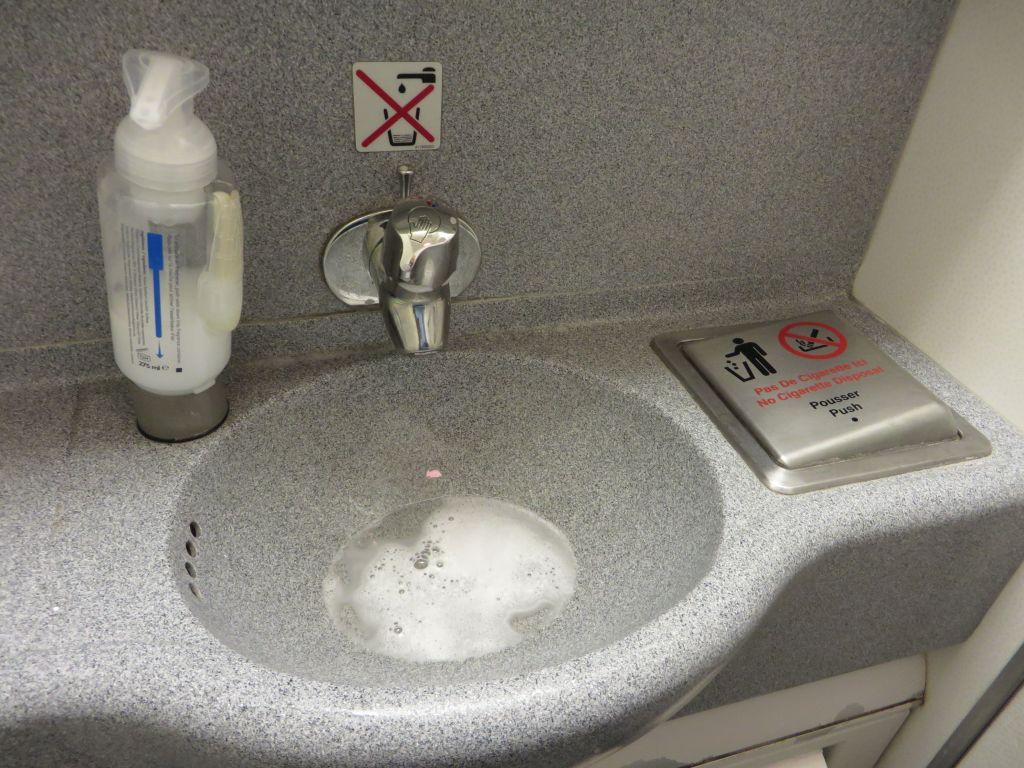
A rather meager selection of drinks in the rear of the aircraft – the apple juice is hidden.
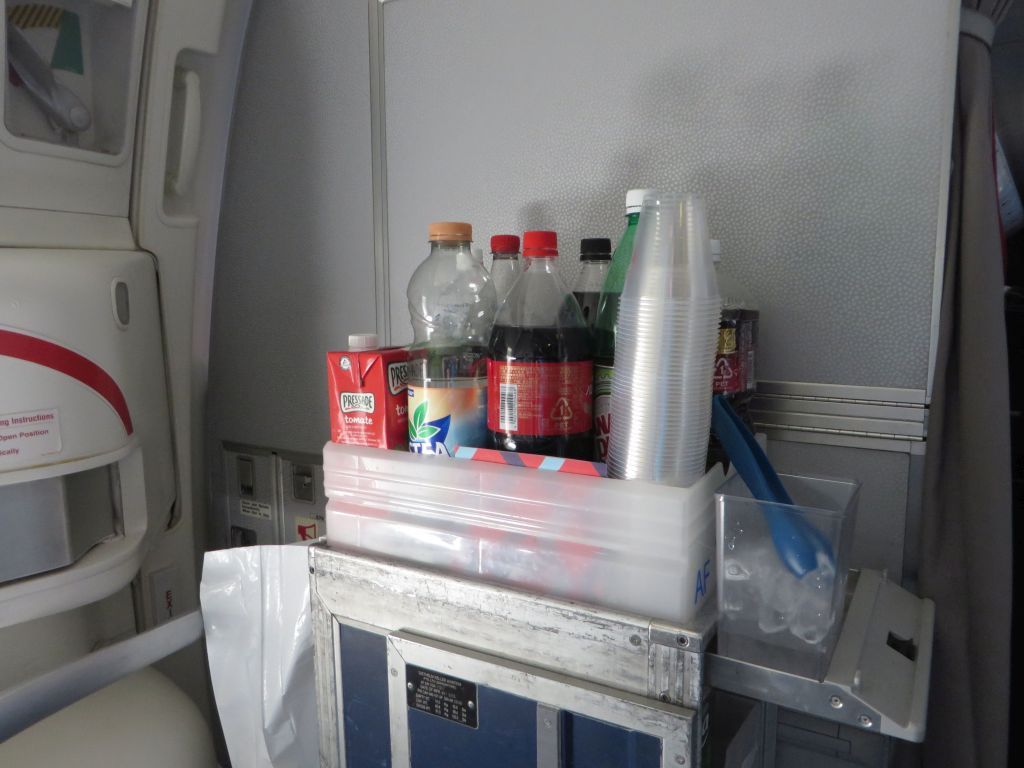
Again the endless Siberian plains
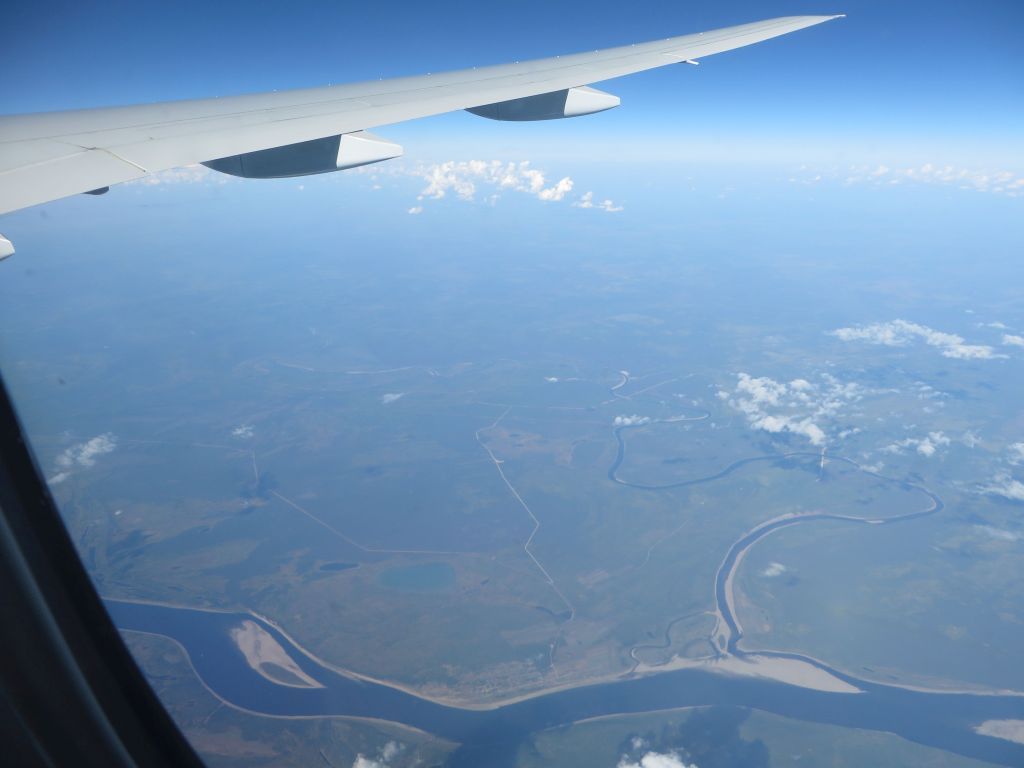
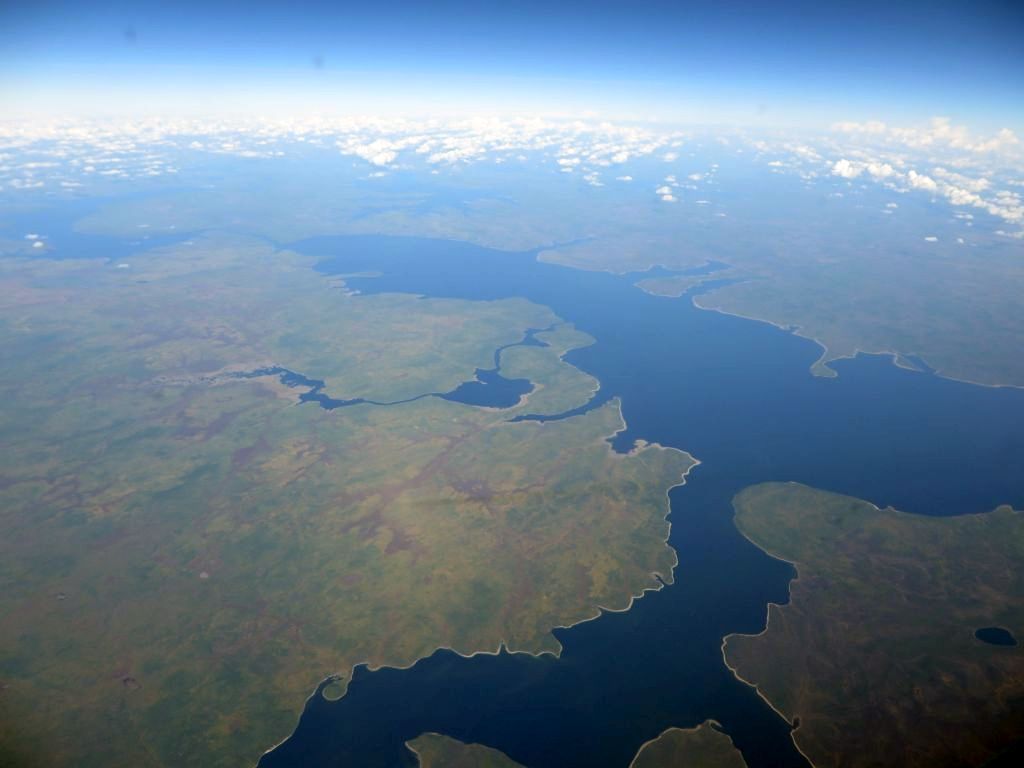
This ice cream is distributed by a FA around 16:40, Japanese time. It is small, but I do not want more.

Apart from meals, I spend the entire flight on the lookout for interesting landscapes, taking pictures of them, and beginning the writing of this FR when the could cover precluded the former activities. A FA came up as I was busy typing my report, possibly five hours into the flight, at a time when the cabin had become quite dark due to the number of lowered window shades:
- Could you please lower your window shade before going to sleep ?
- It is out of the question for me to sleep on this flight!
- There is no problem, then
I do not remember the exact words, but the FA was very courteous and smiling. A good point for AF, or rather another reason for me to keep blacklisting KE, which forced me to work in the dark on ICN-CDG day flights, both in Business and in Economy. (Note that AF distributed a good mask together with the headphones, unlike KE which finds it easier to force all passengers to be in total darkness).
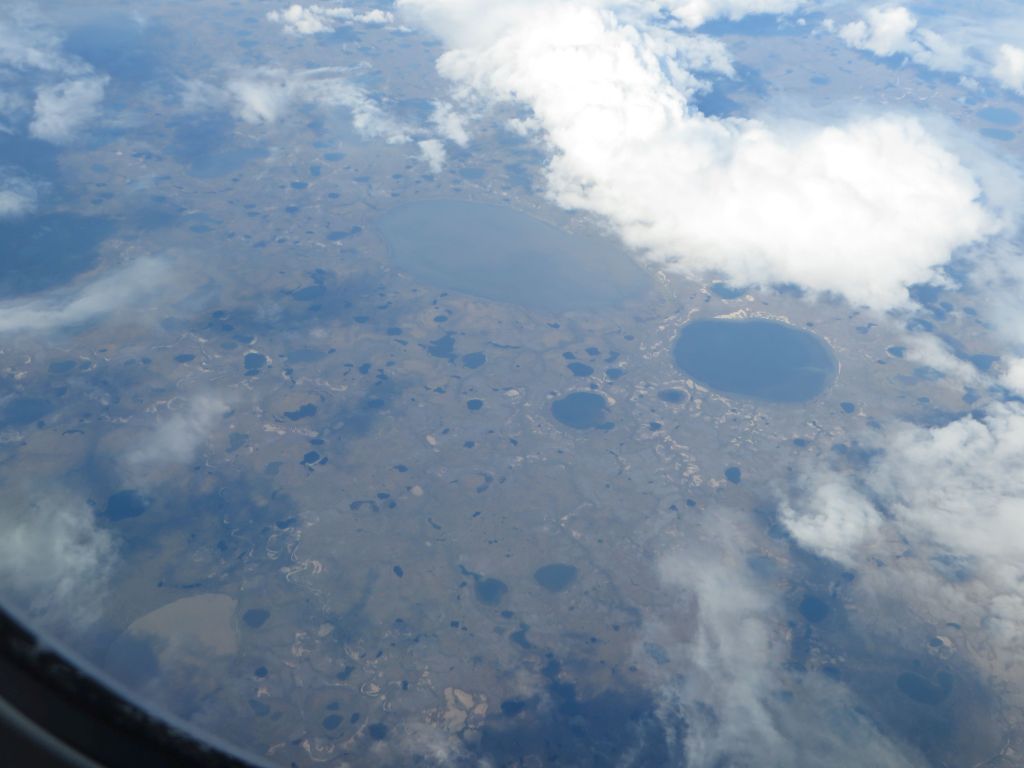
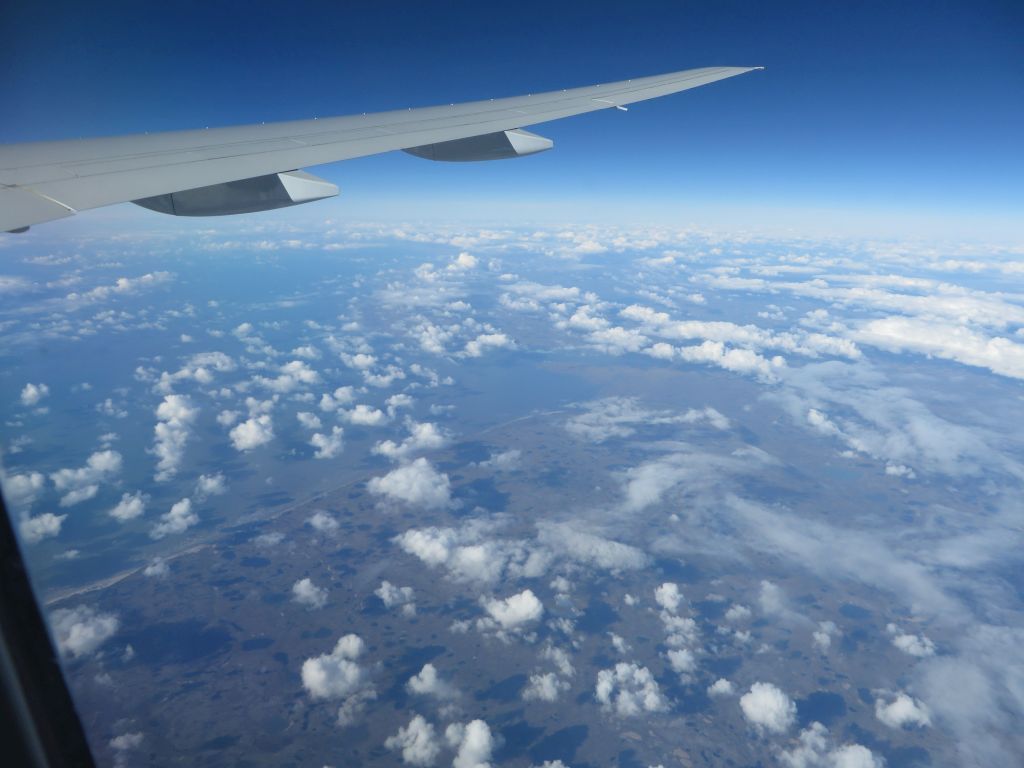
After watching Titanic, Miss PAX43K-ex-40J spent most of her time dozing, and since I did not want to bother this so well behaved young Japanese, my wife brought me a glass of water, a cup of coffee and a selection of snacks together from the rear galley. There is her glass of Coca Cola here, too.
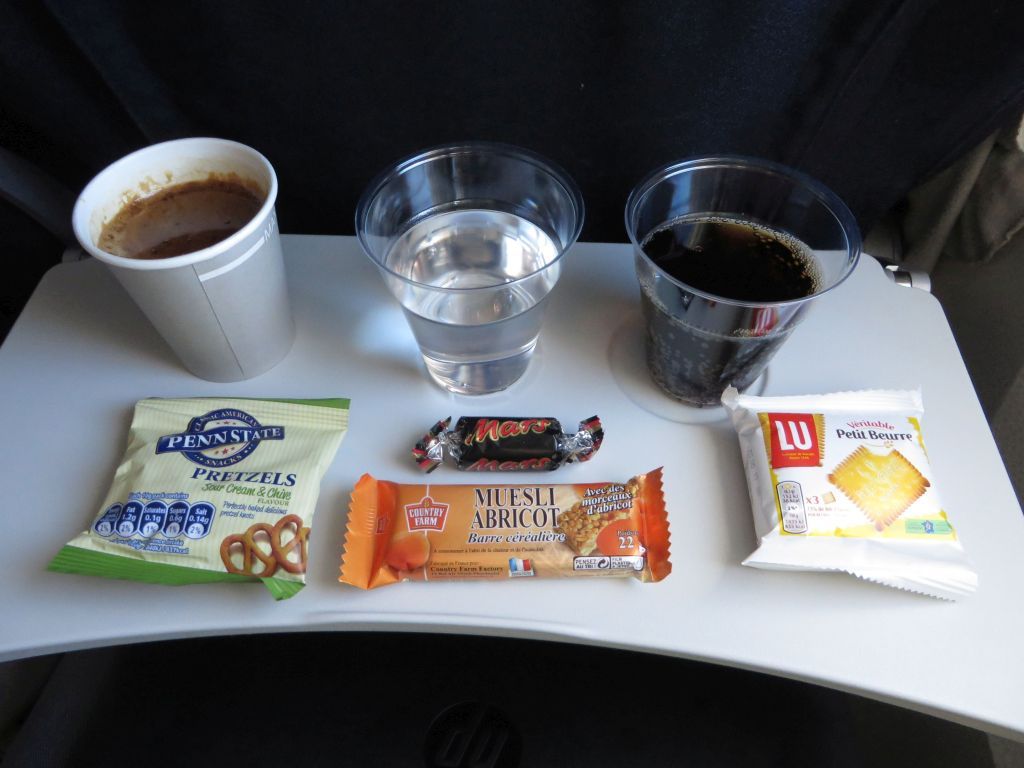
These plastic cups were even more incompatible with the cup holder than those provided for lunch.
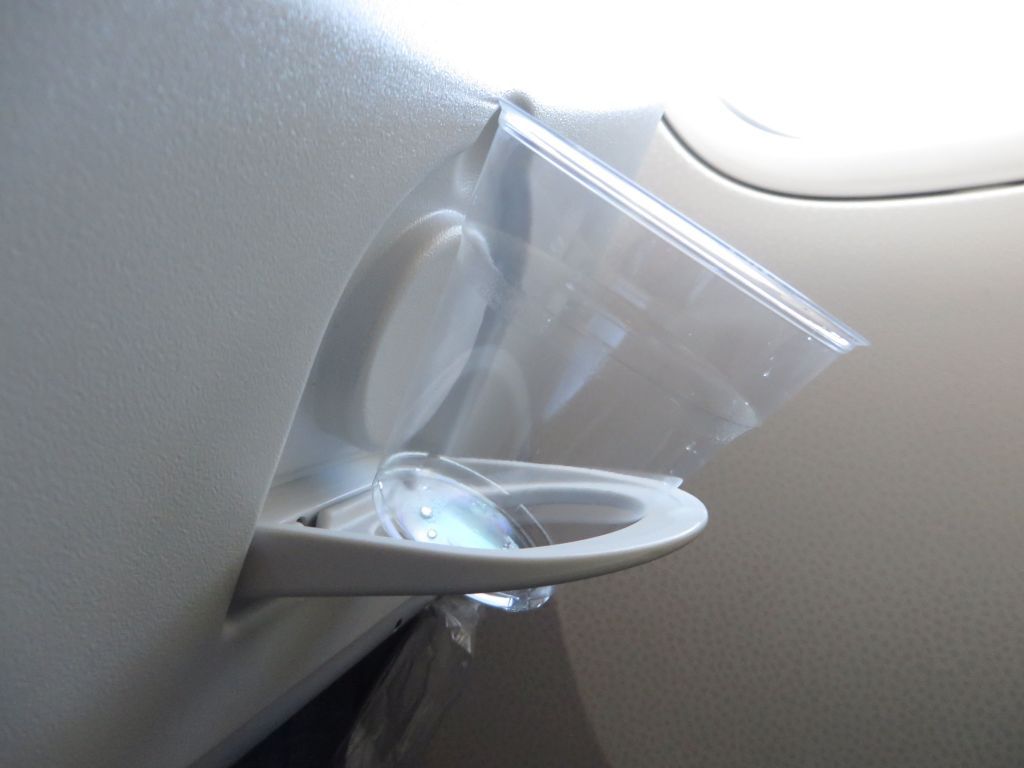
Despite my severe criticism of the air show’s poor quality, I must admit that it helped me identify Volonga (Волонга), a pleasant (hum…) village in the Nenets Autonomous District (population 35 inhabitants, according to the 2010 census).
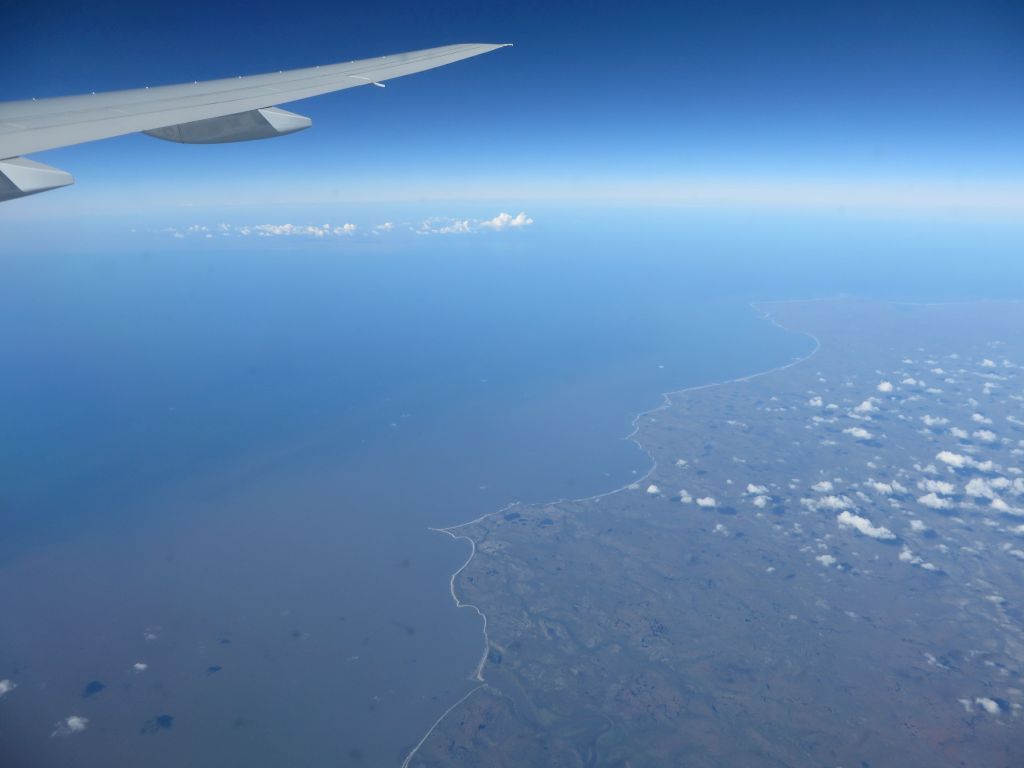
Two hours later, I cannot not seeヘルシンキwhich was to the left of the aircraft, but the IFE tells me that we will soon fly above ストックホルム.
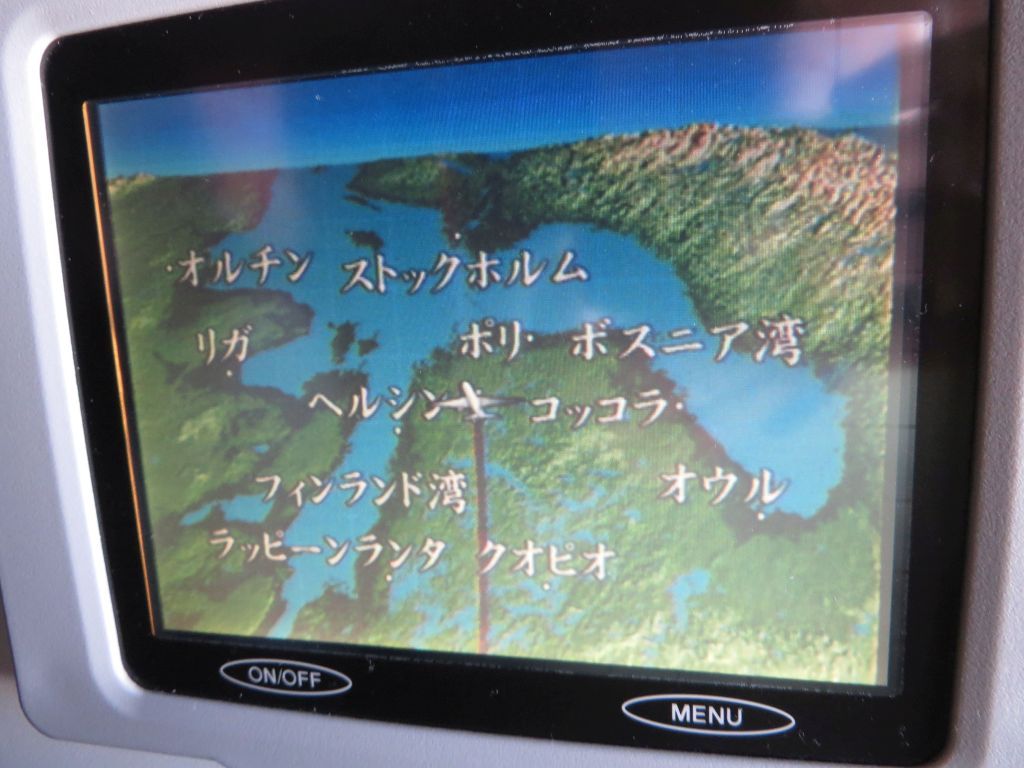
I guess there is no need to clarify that these are Helsinki and Stockholm, respectively. The unchangeable loop of the airshow is so long, and the sequence displaying the map is so short in it that you have better read Japanese to not miss notable sights.
We are not there yet : this is the very long Yxlan Island skirted by the ferries to/from Stockholm to remain sheltered from sea conditions as long as possible. Blidö is below in this picture.
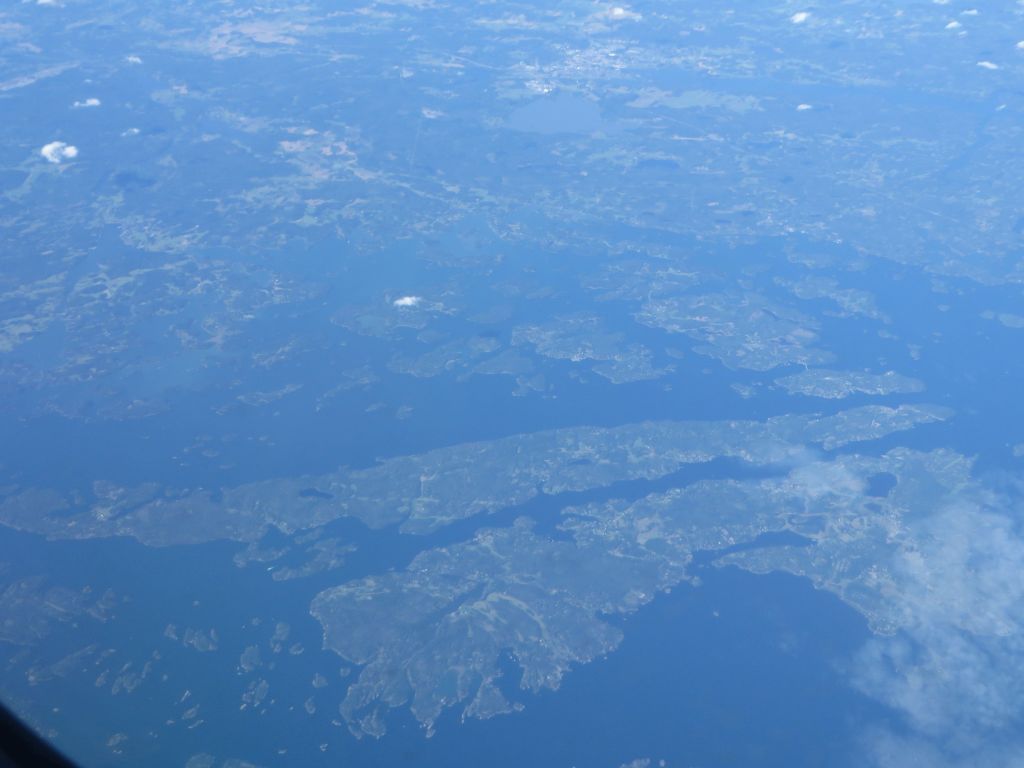
Täby, a suburb of Stockholm crossed by Highway E18, identifiable Grindtorp’s double ring next to the stadium .
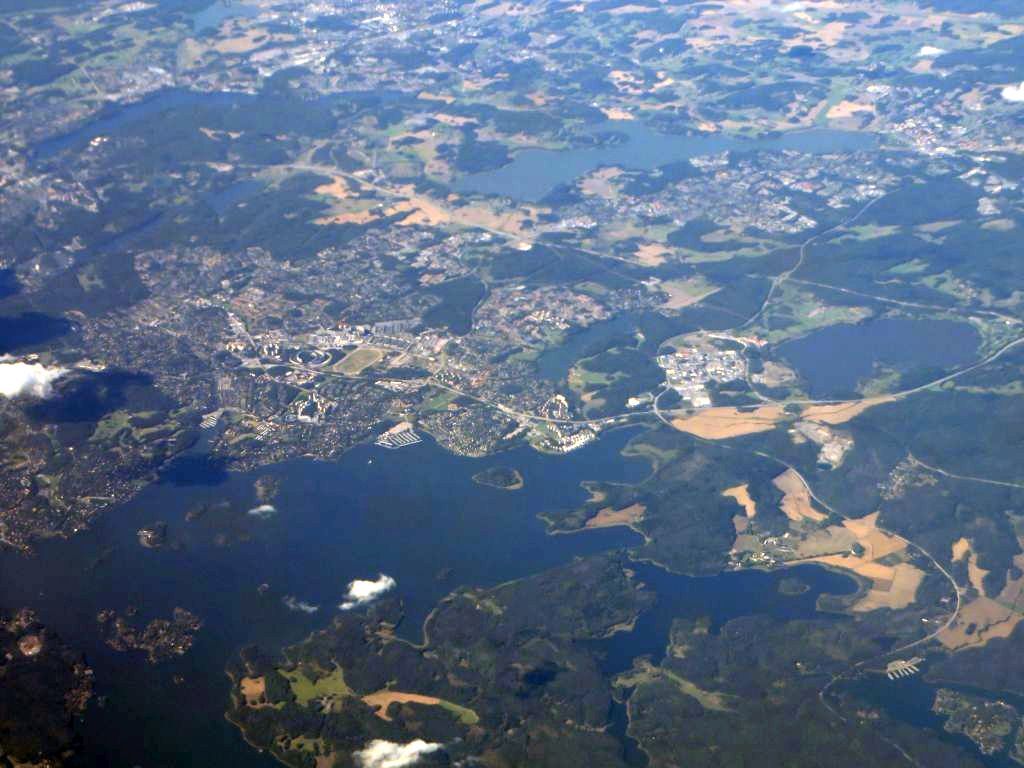
A wide landscape of Stockholm’s urban area
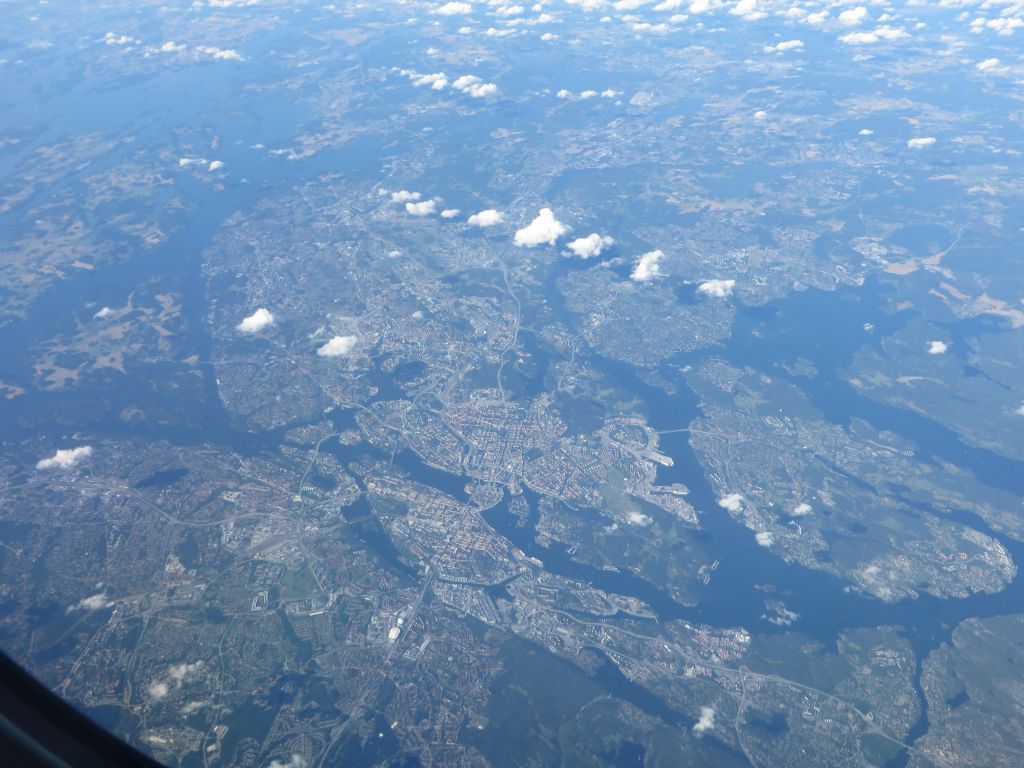
The mostly domestic Bromma (BMA) airport, deep in Stockholm. It also has flights to AAR, HEL and BRU.
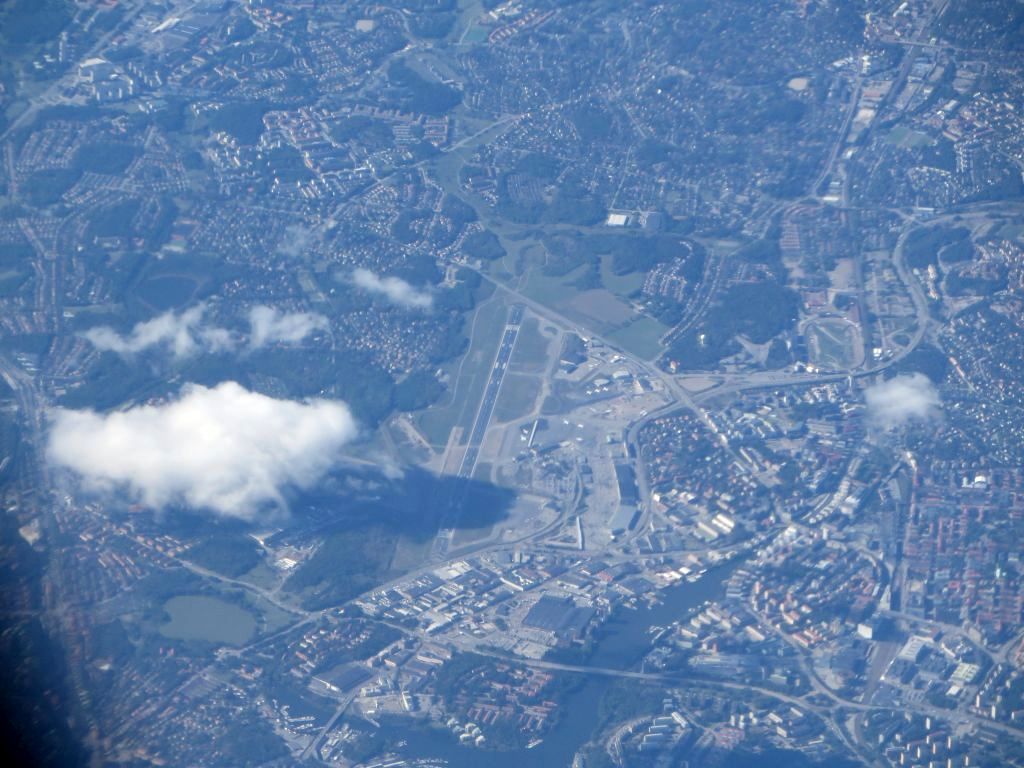
The view was so crisp that I could not resist adding two more shots of the city center. RL 777, they are for you ! ;)
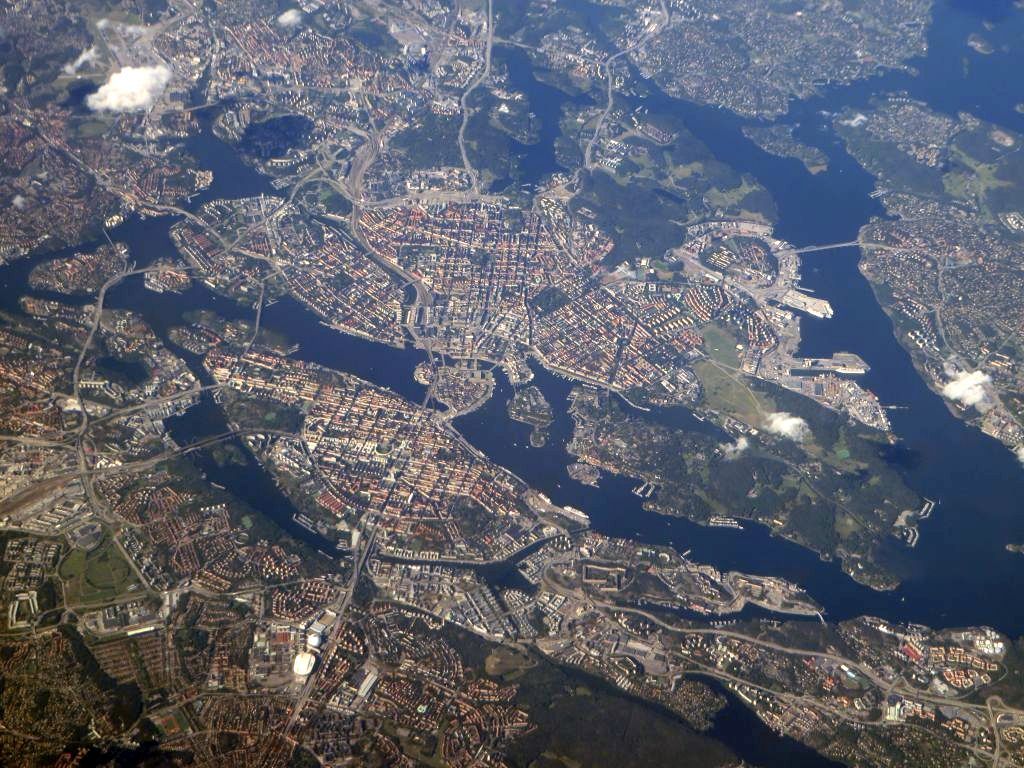
Tiny Gamla Stan Island is in the center
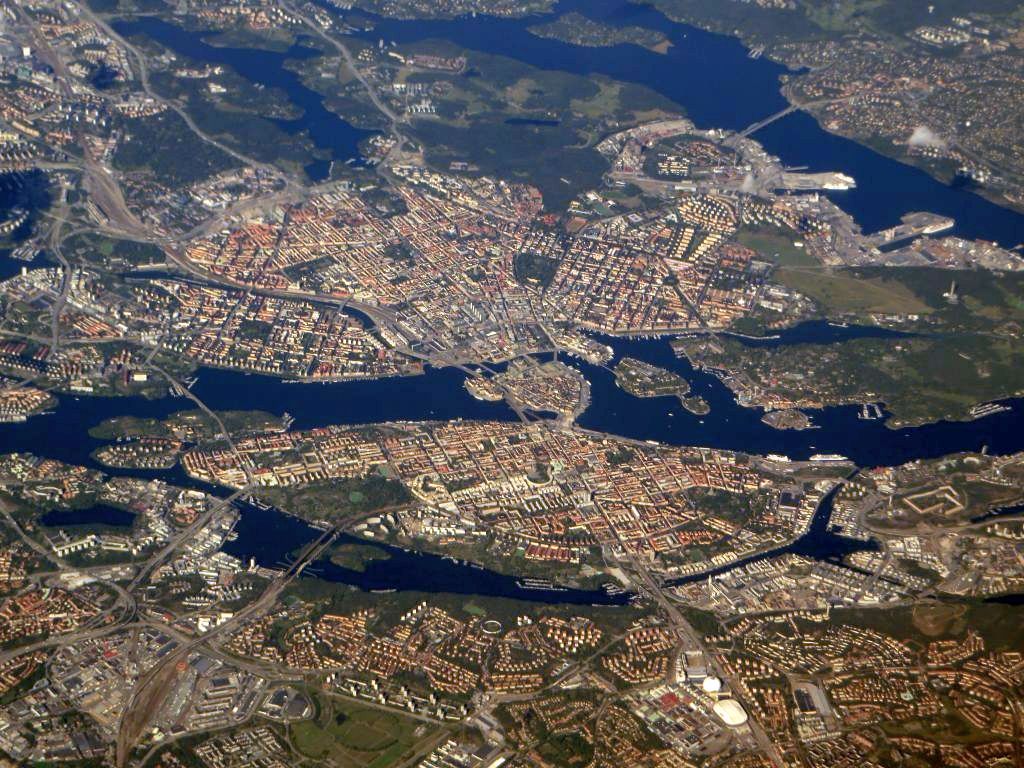
Stockholm fades slowly behind the aircraft
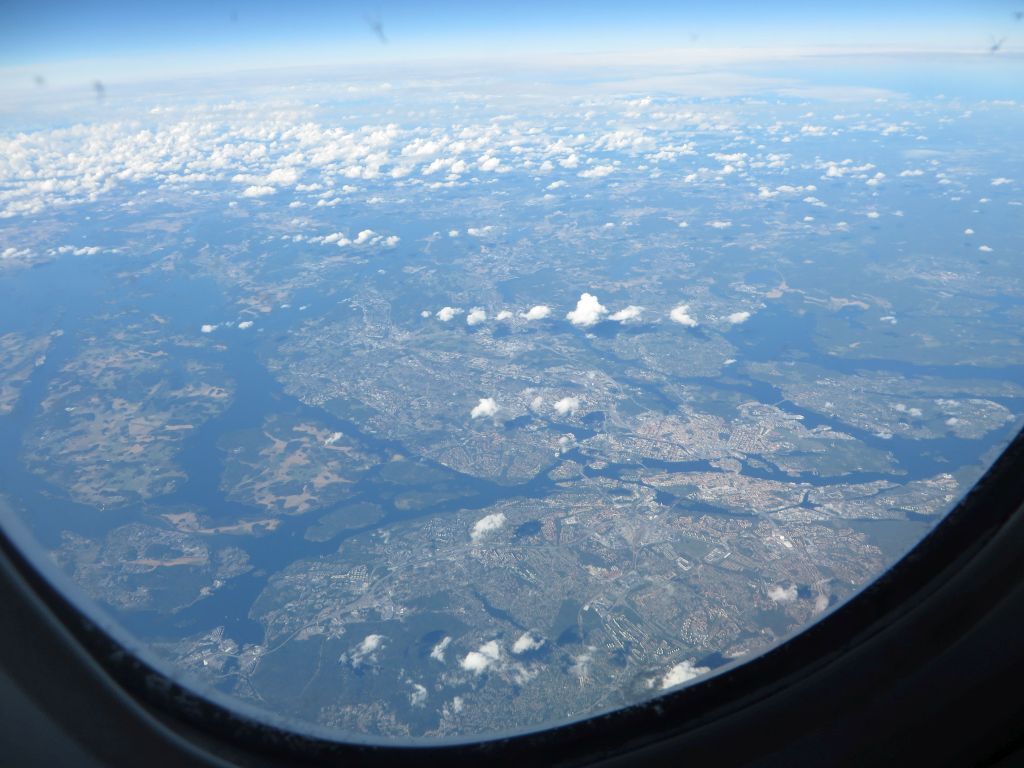
The sparsely islands west of Stockholm, with Färingsö in the center
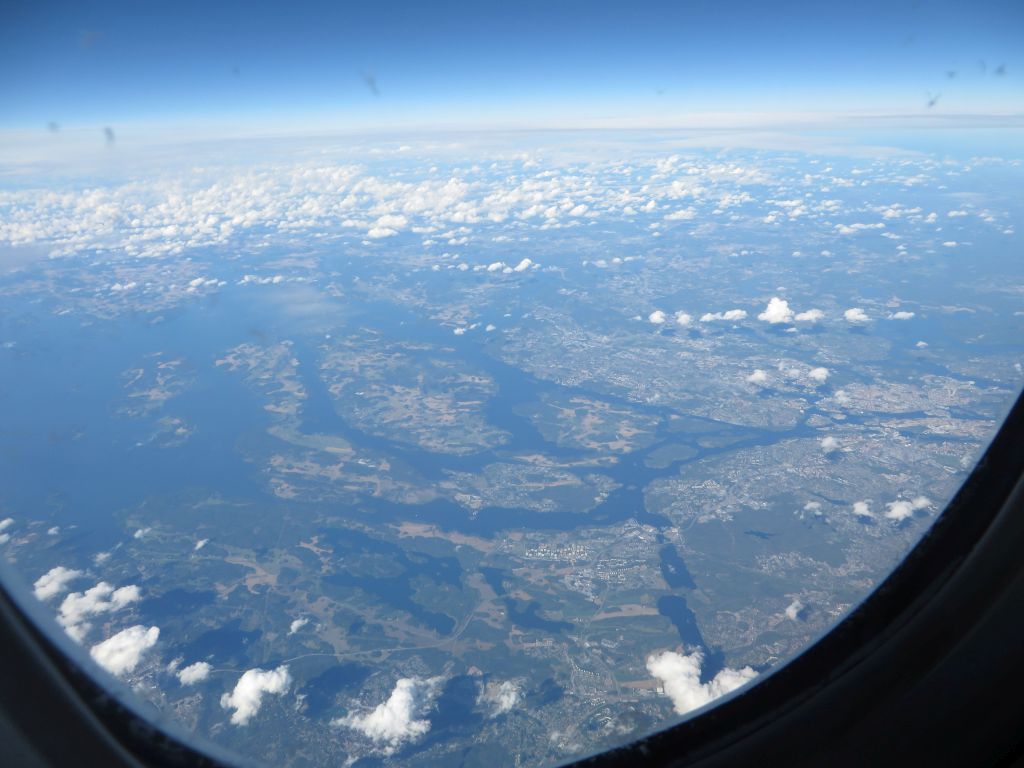
Botkyrka, south-west of Stockholm
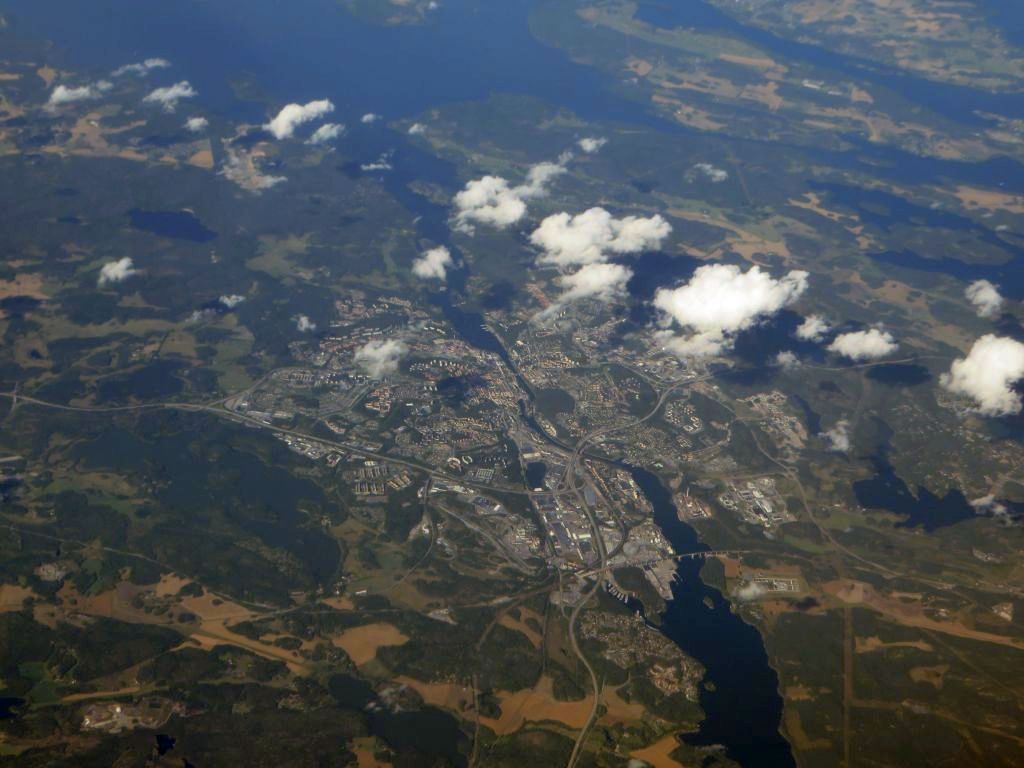
The plane flies south through Sweden, and these are the twin cities of Helsingör (Denmark), on the left, partly hidden by clouds , and Helsingborg (Sweden), on the right, where both countries are closest to each other. Ven Island is in the bottom of the picture.
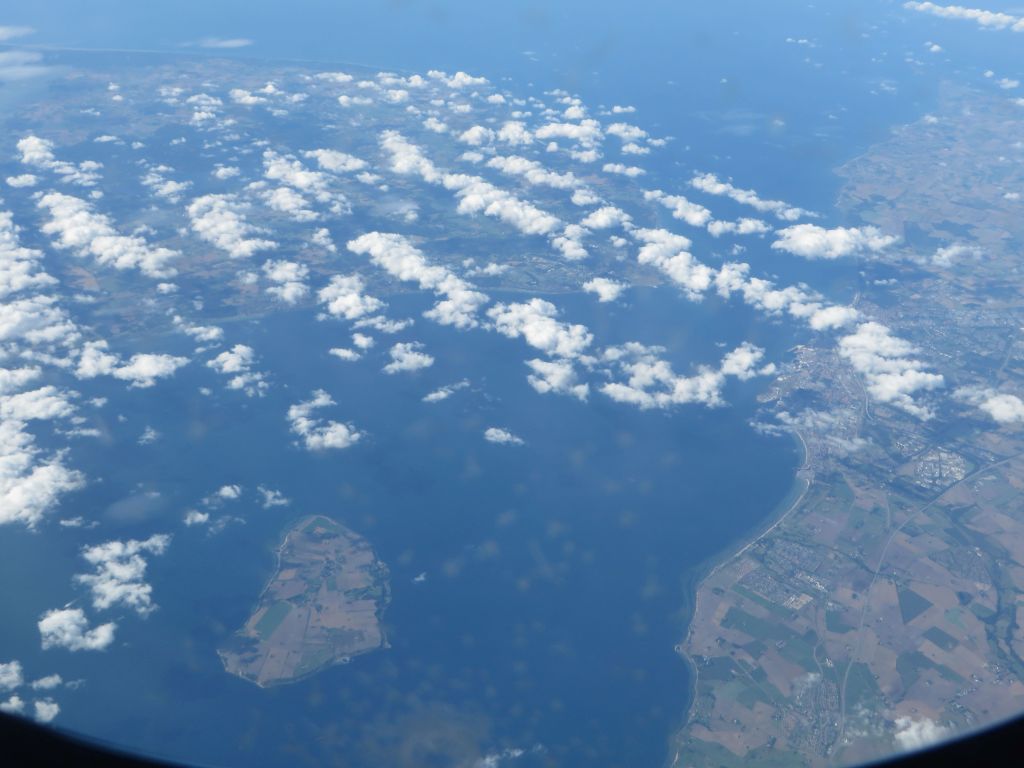
Copenhagen’s center (and CPH for avgeeks) is unfortunately on the left of the aircraft, but the other passengers should have some of the show too. See here the docks at the north end of the harbor, at the bottom edge of this picture.
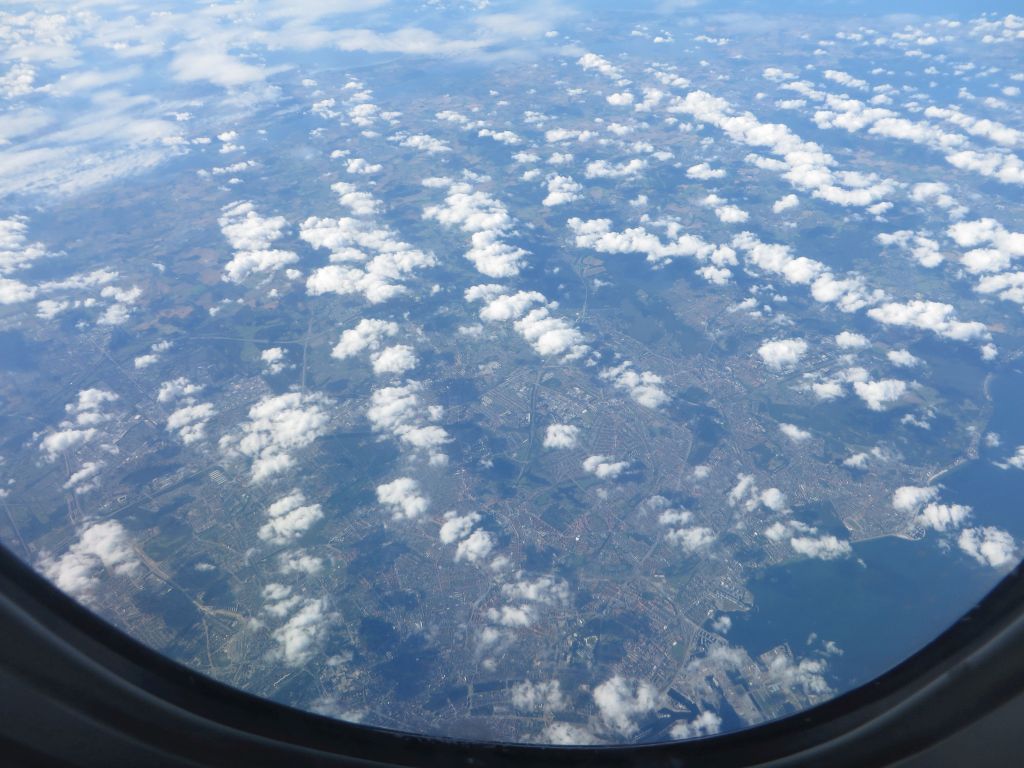
Copenhagen again, around Ny Ellebjerg station
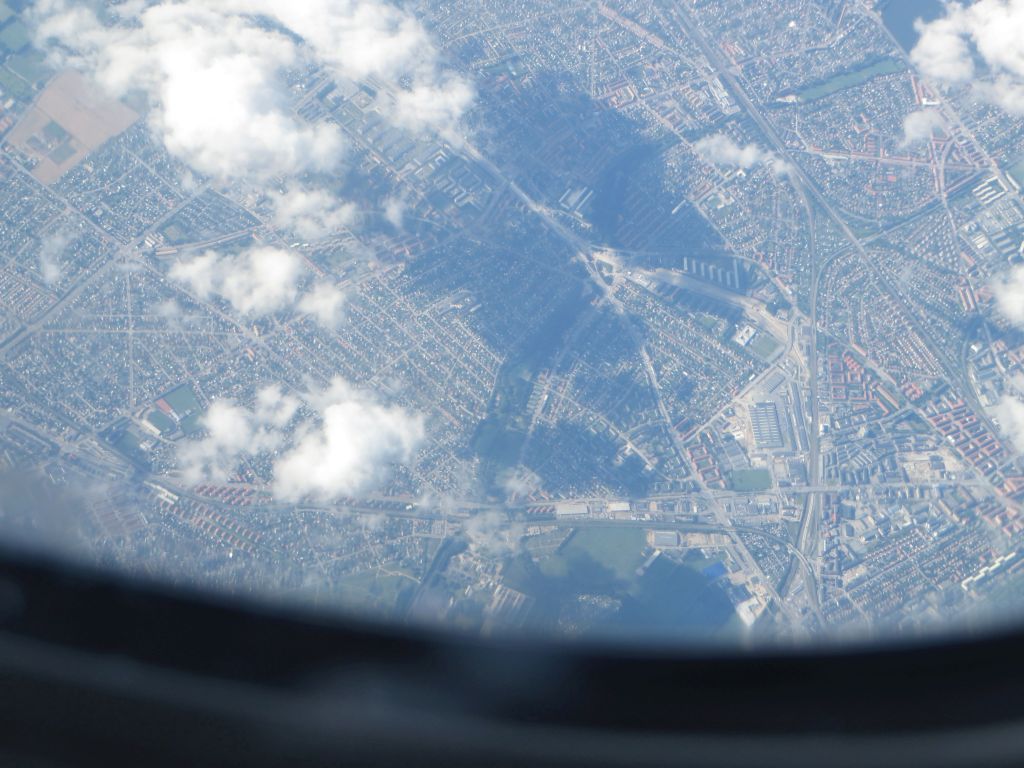
Roskilde Airport (RKE), with massive image enhancing. It was supposed to alleviate CPH’s traffic, but never met with success.
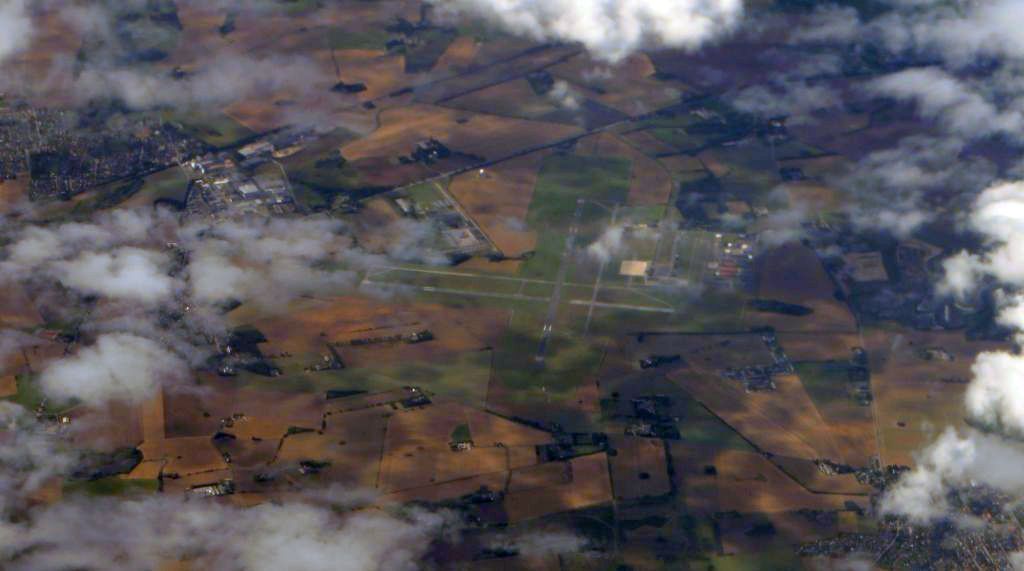
Tiny Køge city
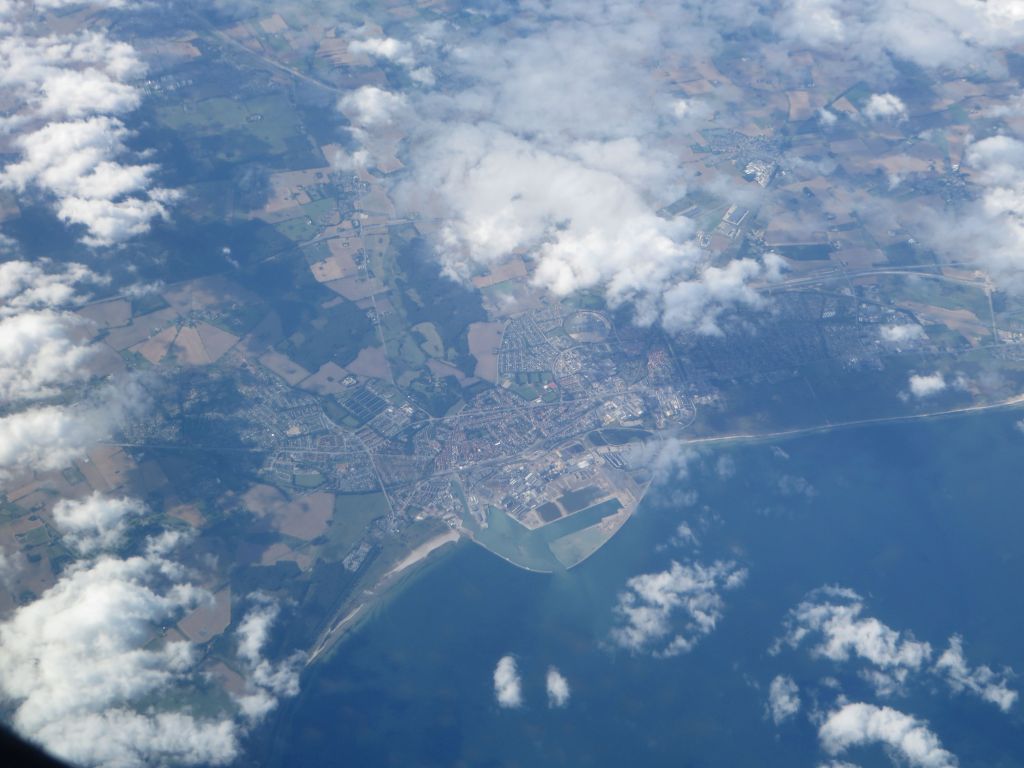
Southwest of Næstved, the pass north of Enø Island on which this picture is centered
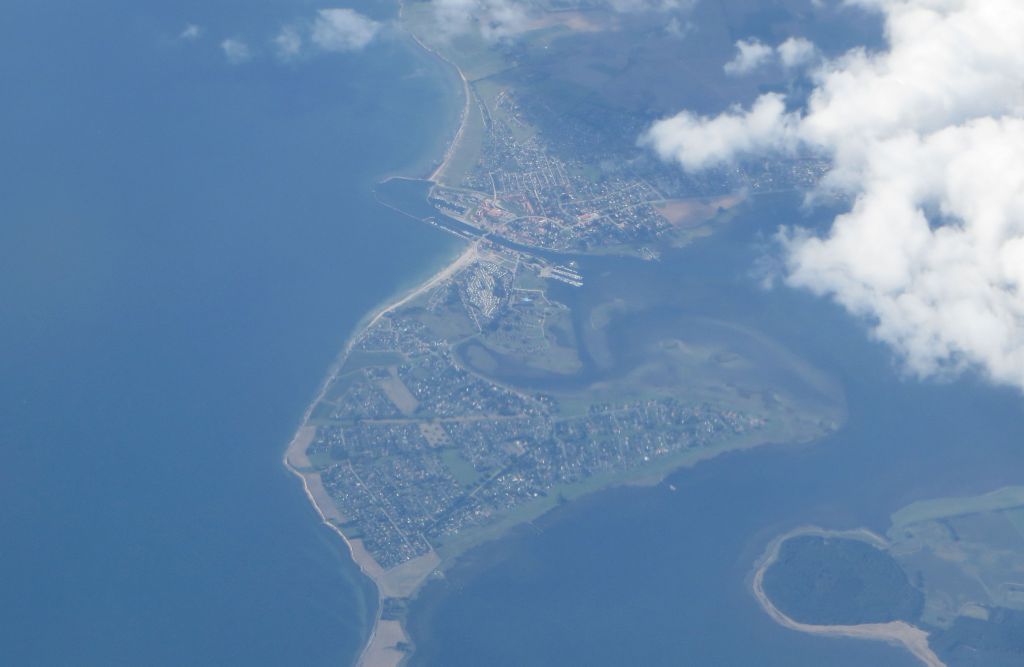
Dinner is served at 10pm (Japanese time) / 3pm (French time)

The same, after unwrapping
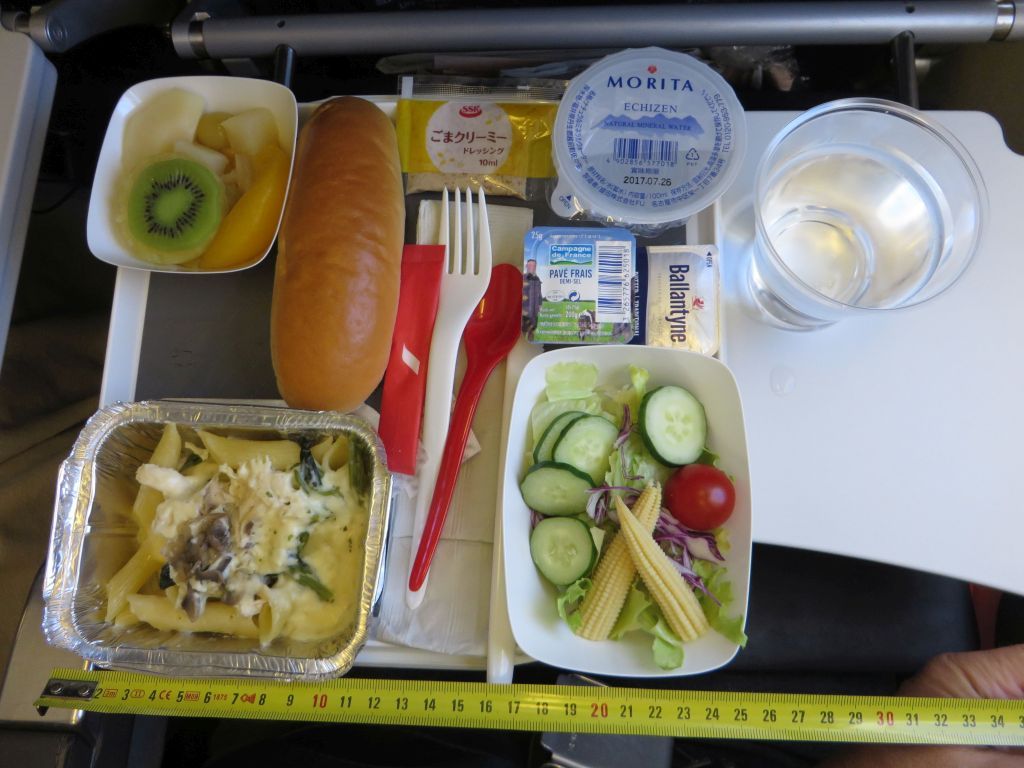
There are much more penne pasta than carbonara, mushrooms and spinach

My readers may not have understood that this is sesame ごま flavored creamy リーミー dressing ドレッシング, but Air France passengers are expected to.
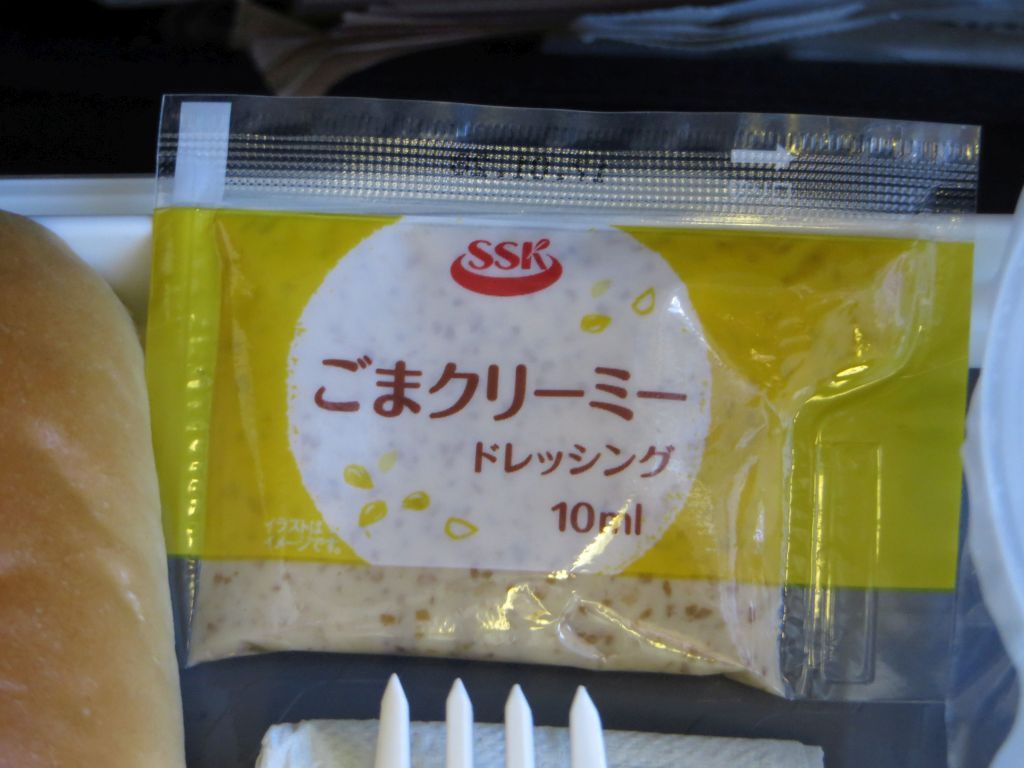
All the details on the contents are clearly indicated on the reverse side.

It did not take much time to eat all this, even allowing for picture taking, and I had the impression to wait forever for coffee, even though it was brought half an hour after the meal itself. I should have done like Miss PAX43K-ex-40J, who asked for a cup of coffee with her meal, which she received after all meals had been distributed, and therefore much faster.
The mouth of the Elbe River
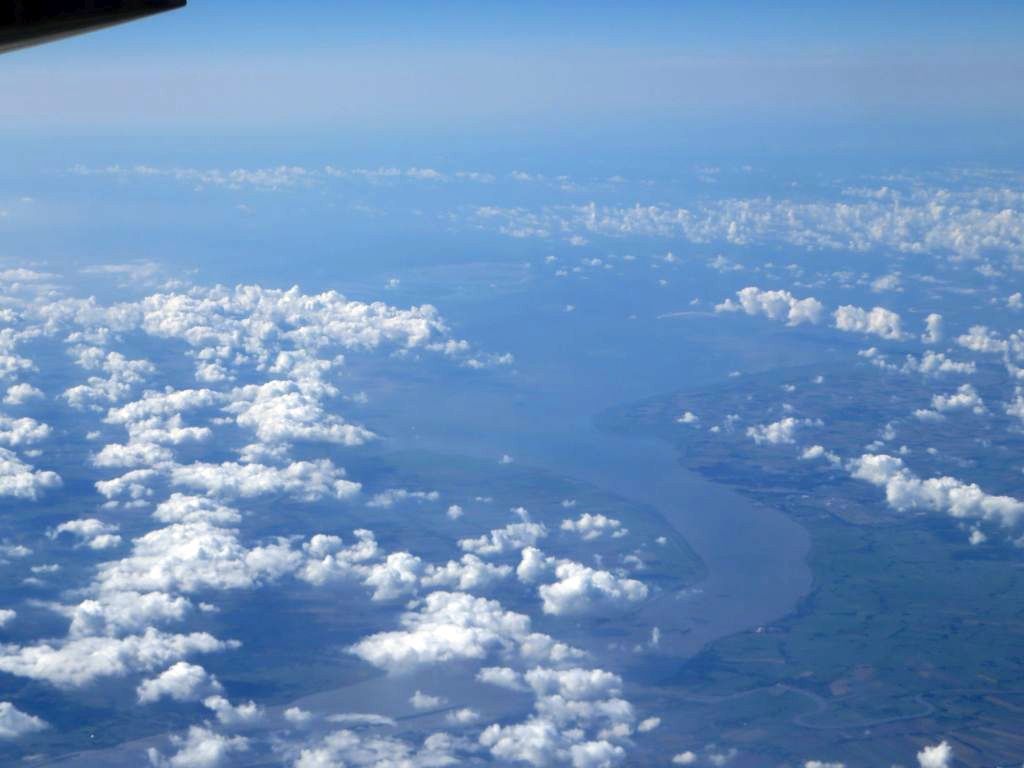
Bremen plays hide and seek behind the clouds
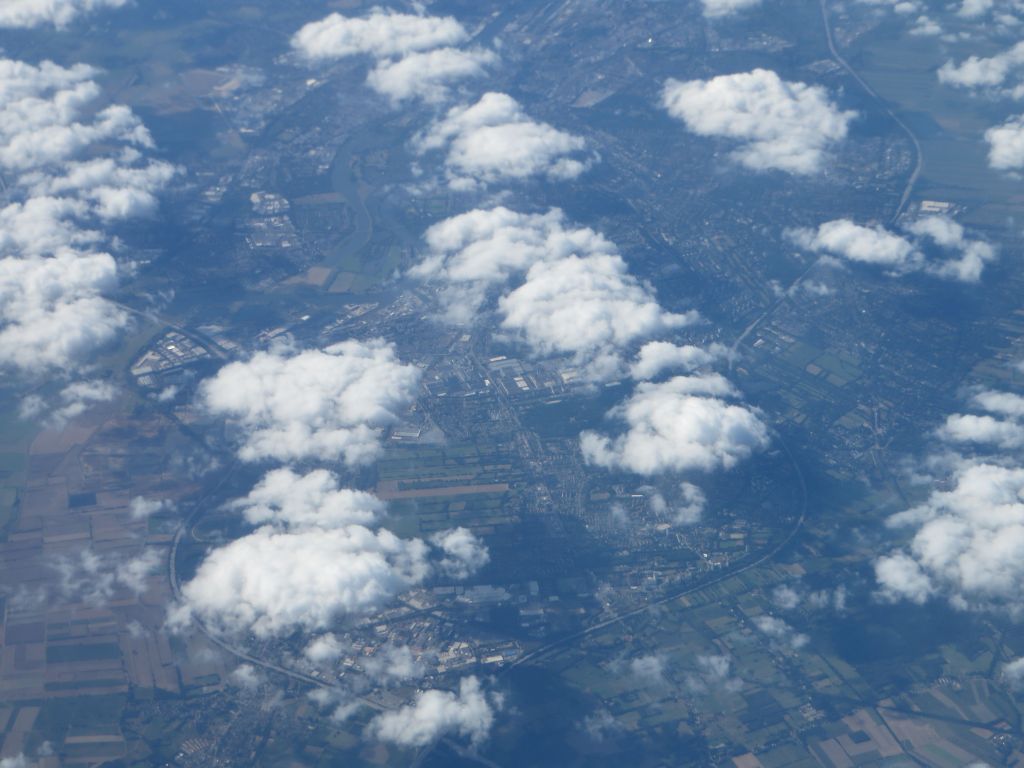
The harbor and the city of Bremen
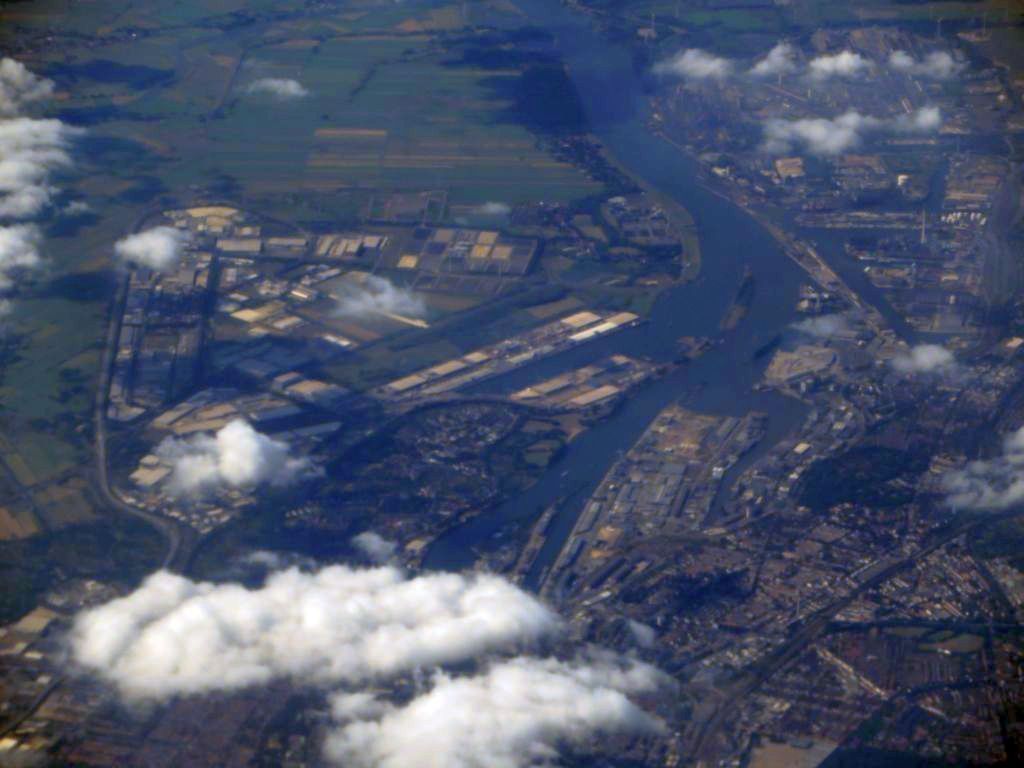
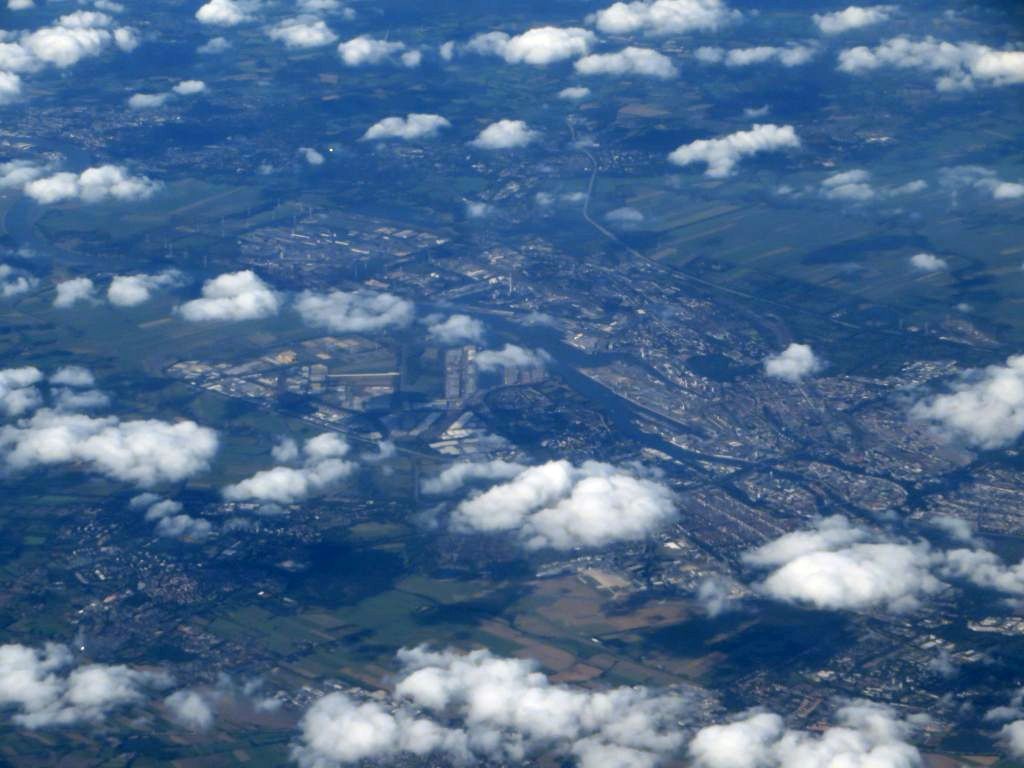
An aircraft rushes above us across our flight path
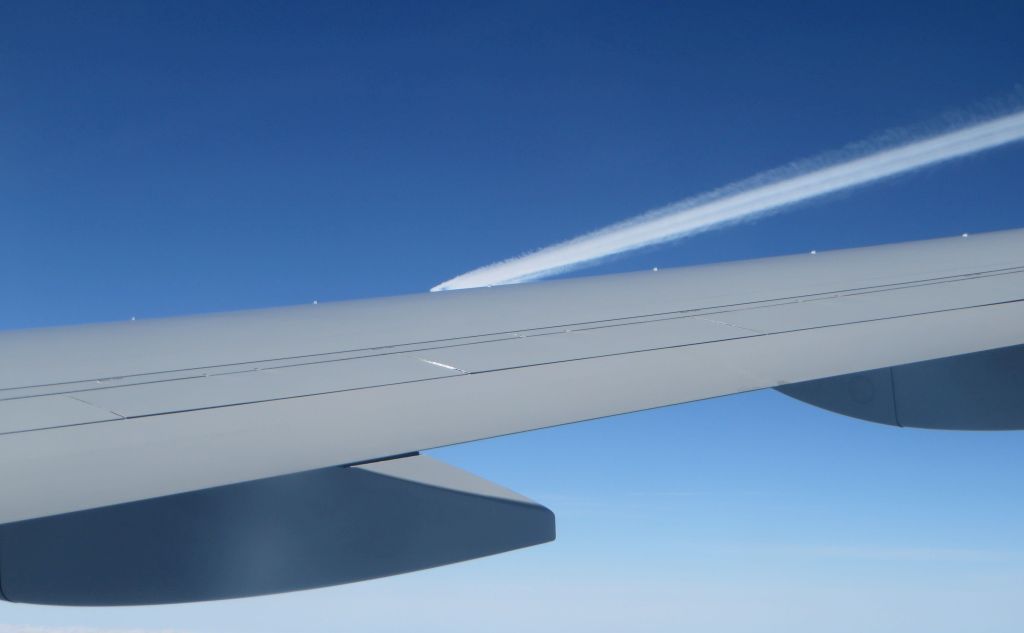
By the time I had taken my camera and she was visible again under the wing, she was already far away
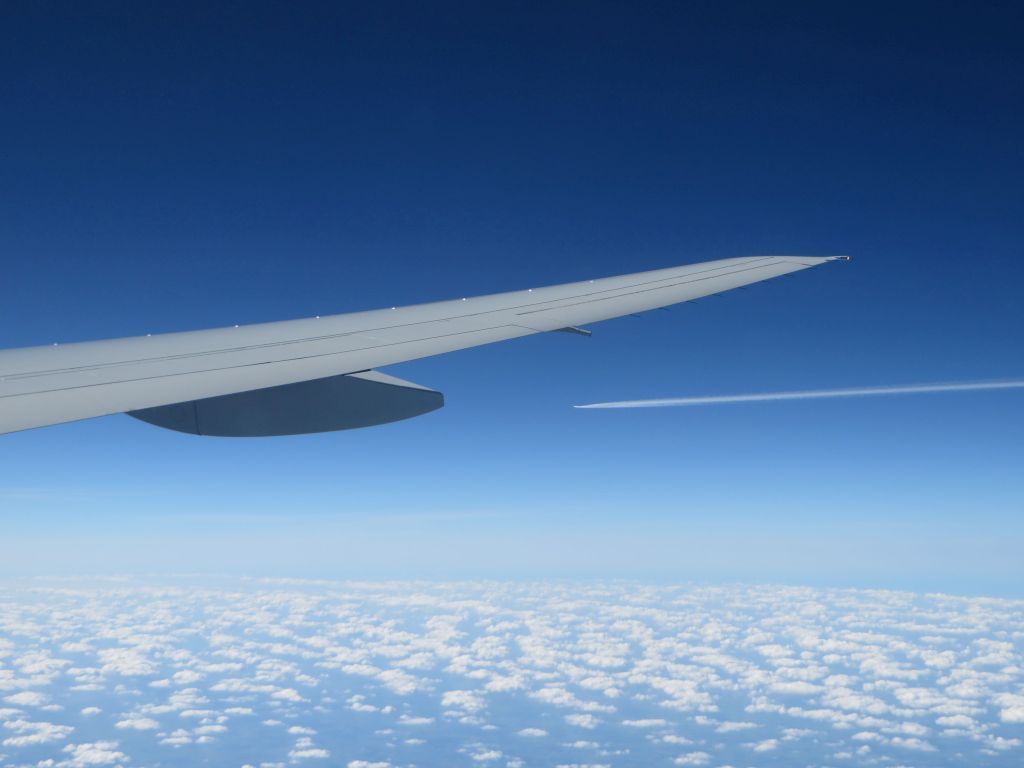
But at maximum 20x optical zoom ratio and 4x digital magnification, she appears to be four-engine, most probably SQ, and therefore an A380
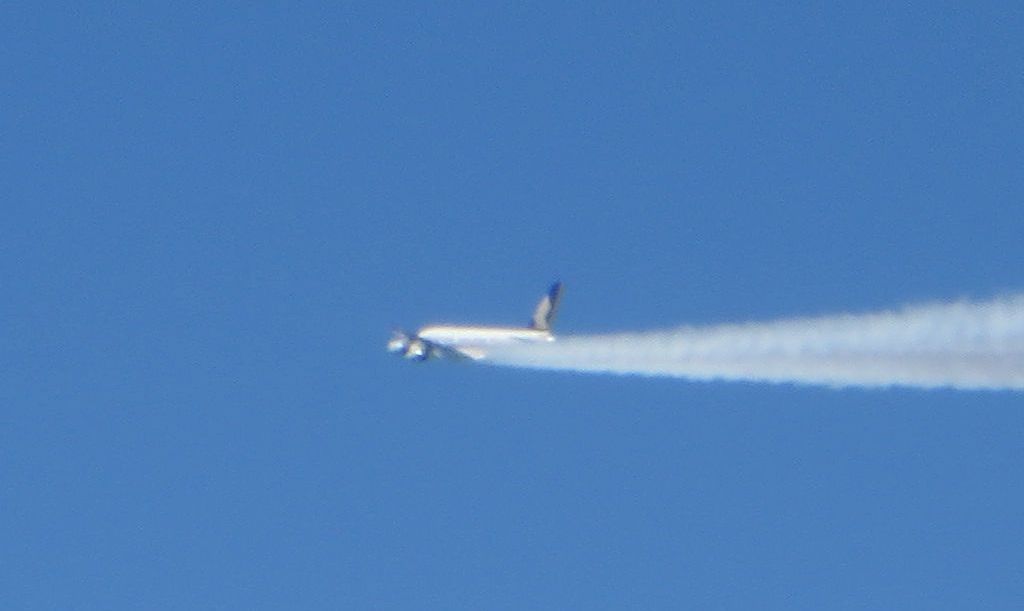
General view and zoom on the center of Osnabrück
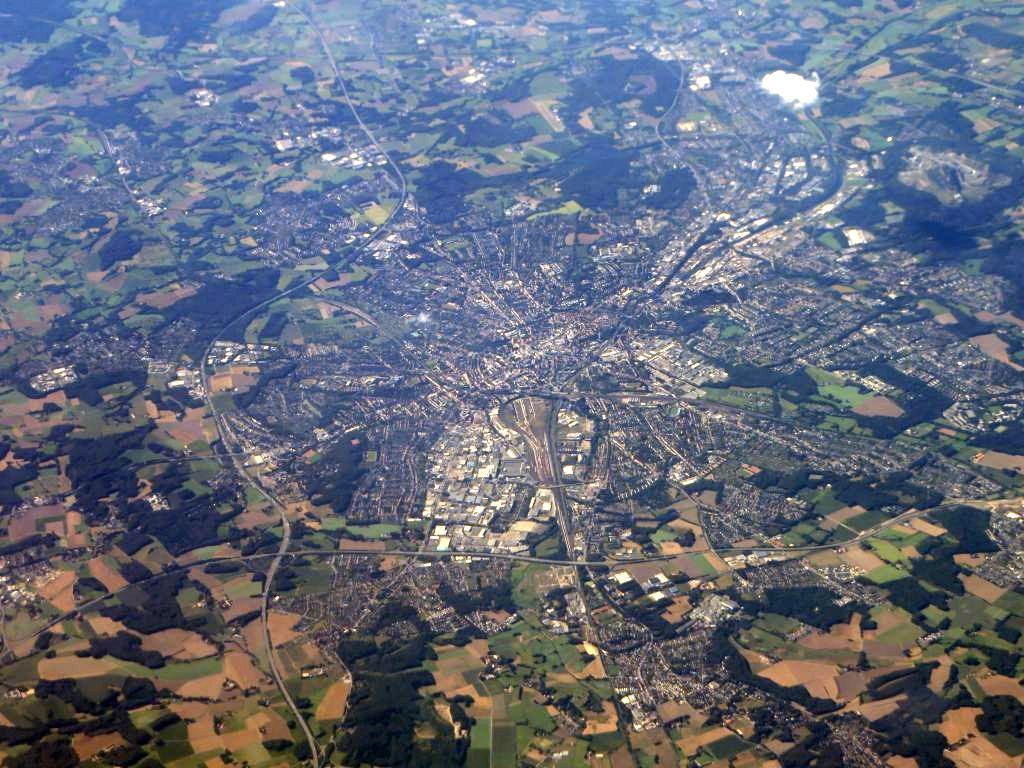
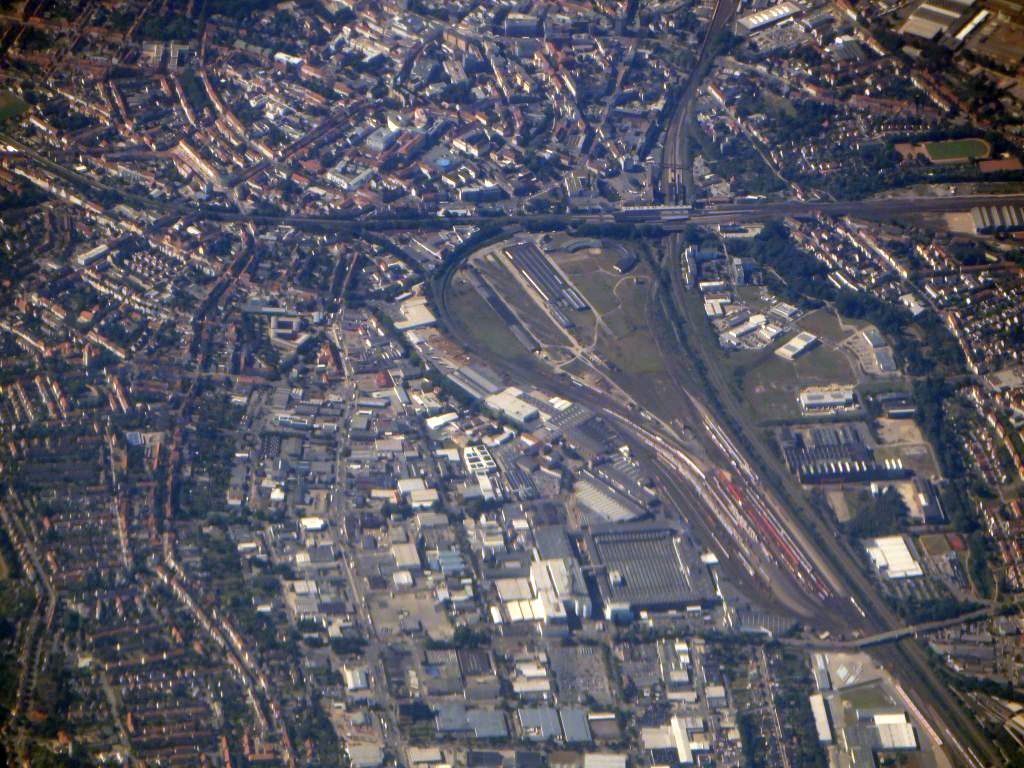
Münster-Osnabrück Airport (FMO), halfway between both cities.
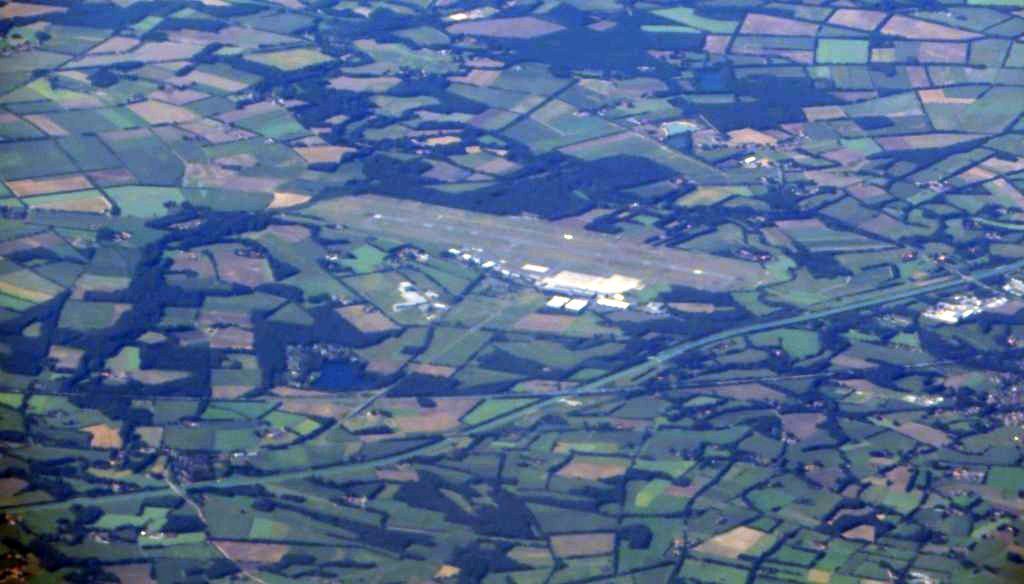
Two views of Münster
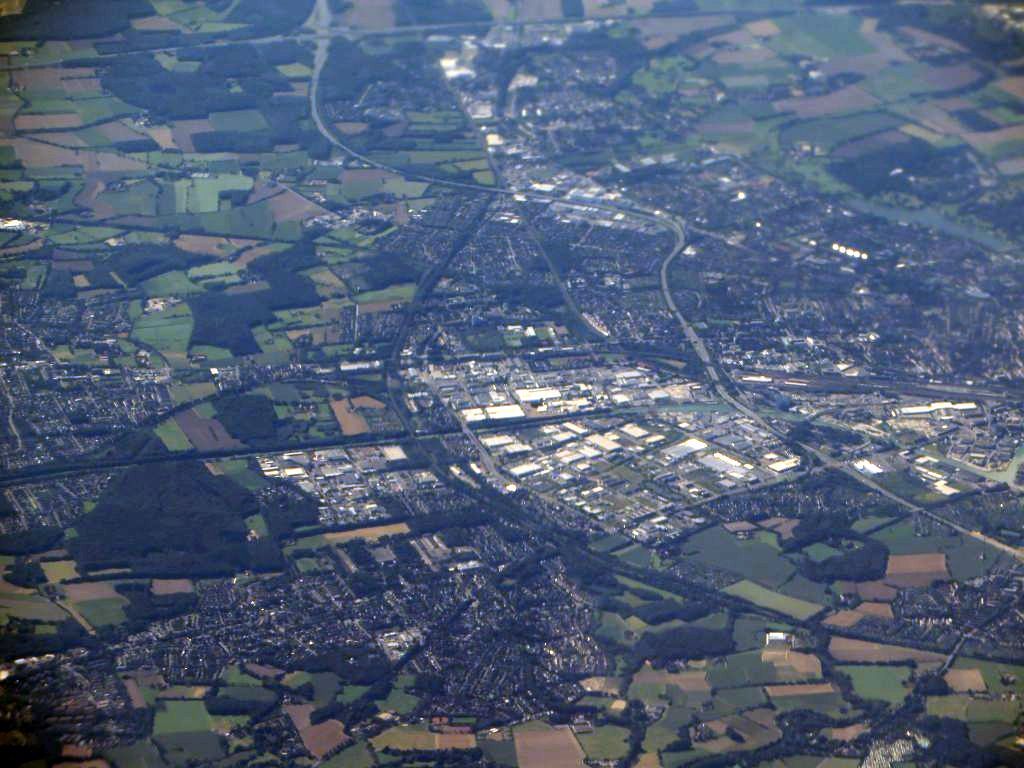
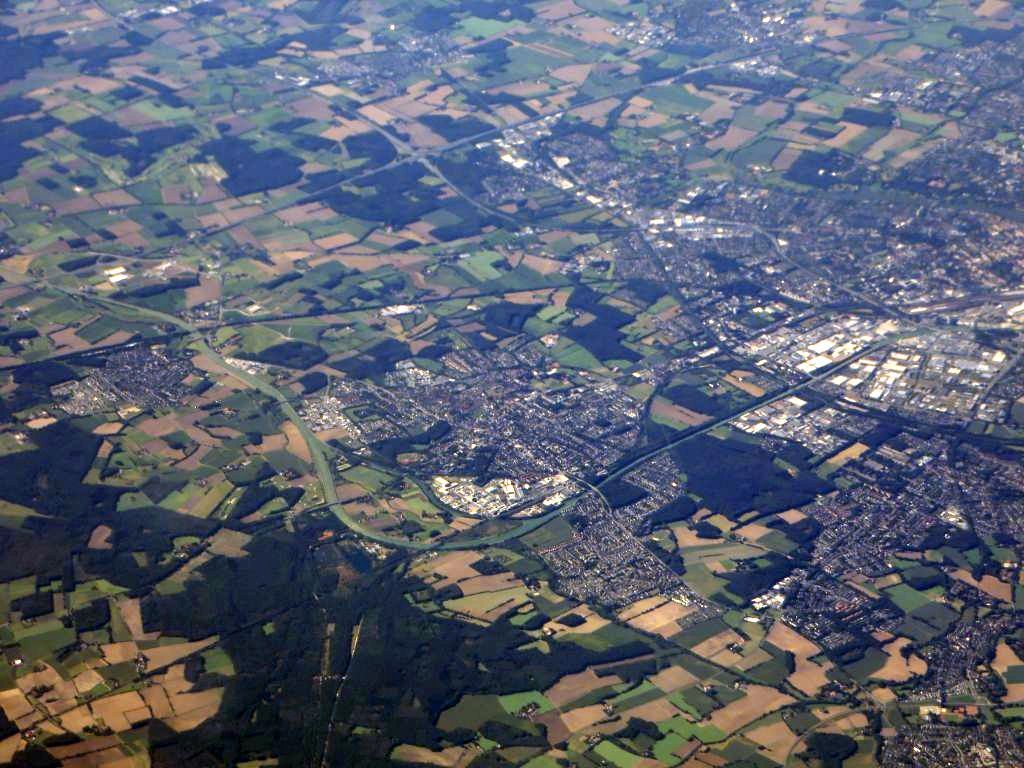
Düsseldorf Airport (DUS), a favorite stopover for some Flight Reporters flying Air France long haul in Business from a foreign airport as close as possible from CDG.
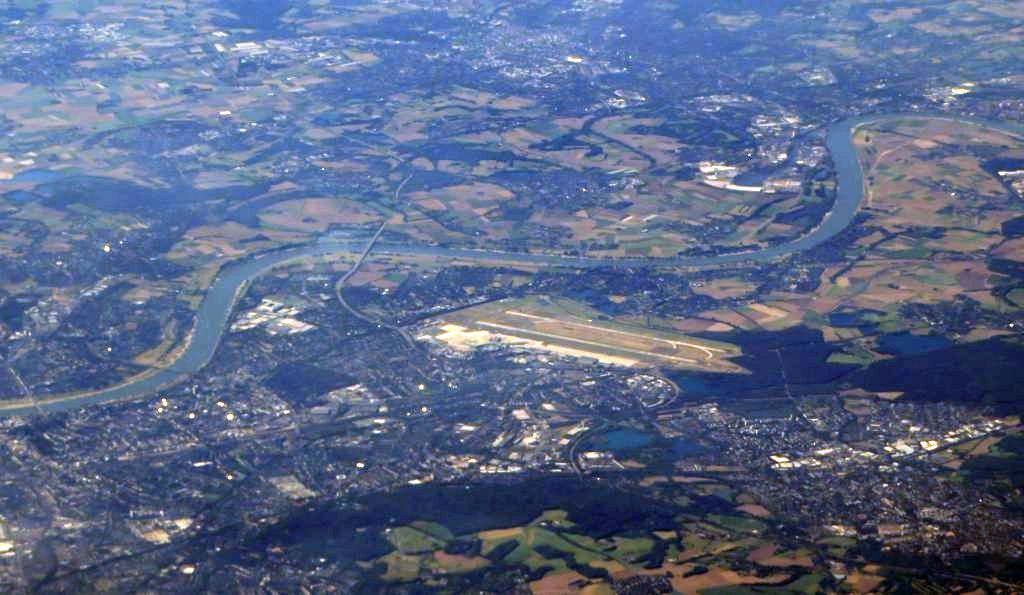
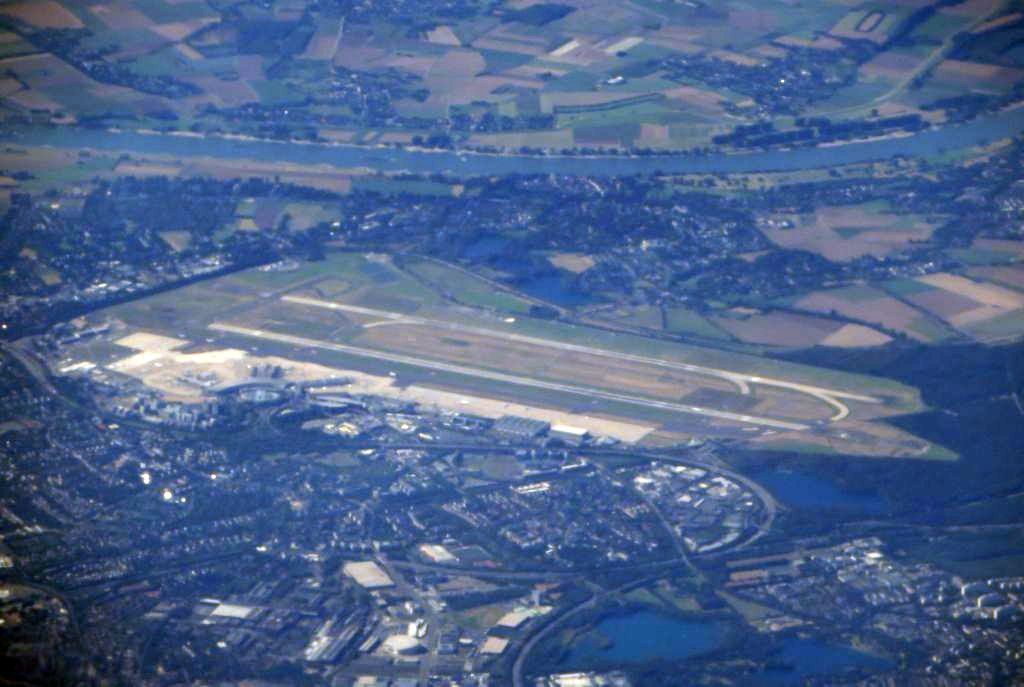
The meanders of the Rhine, with DUS at the right edge of the picture.
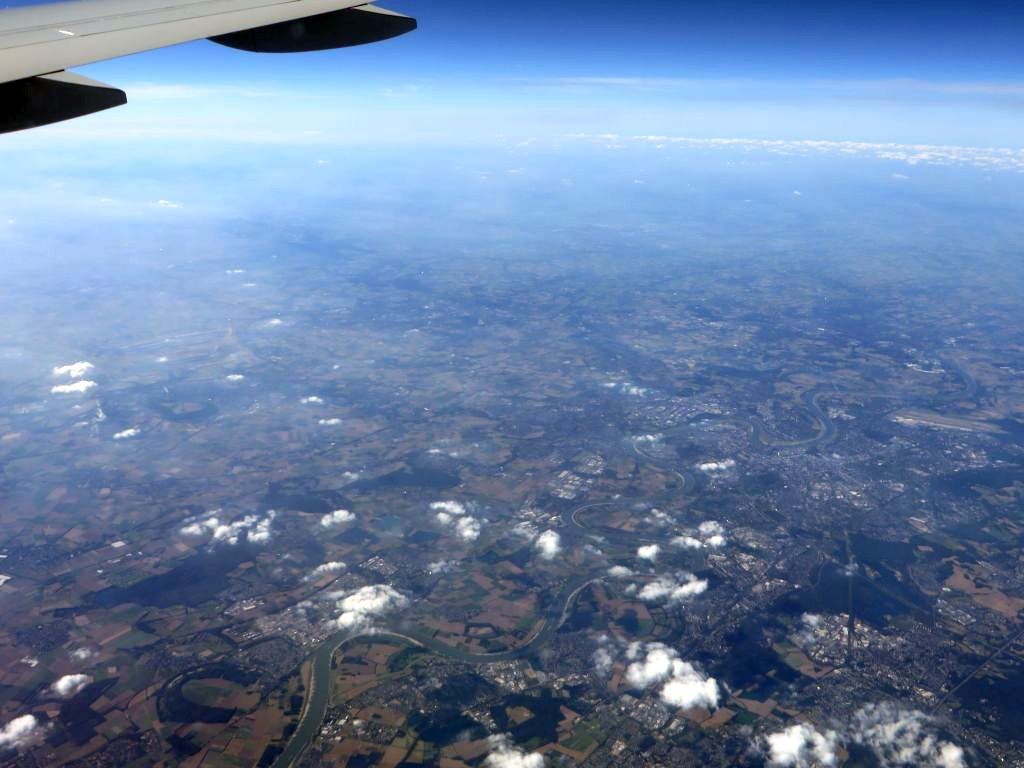
A series of probable thermal power stations some 30 km west of Cologne
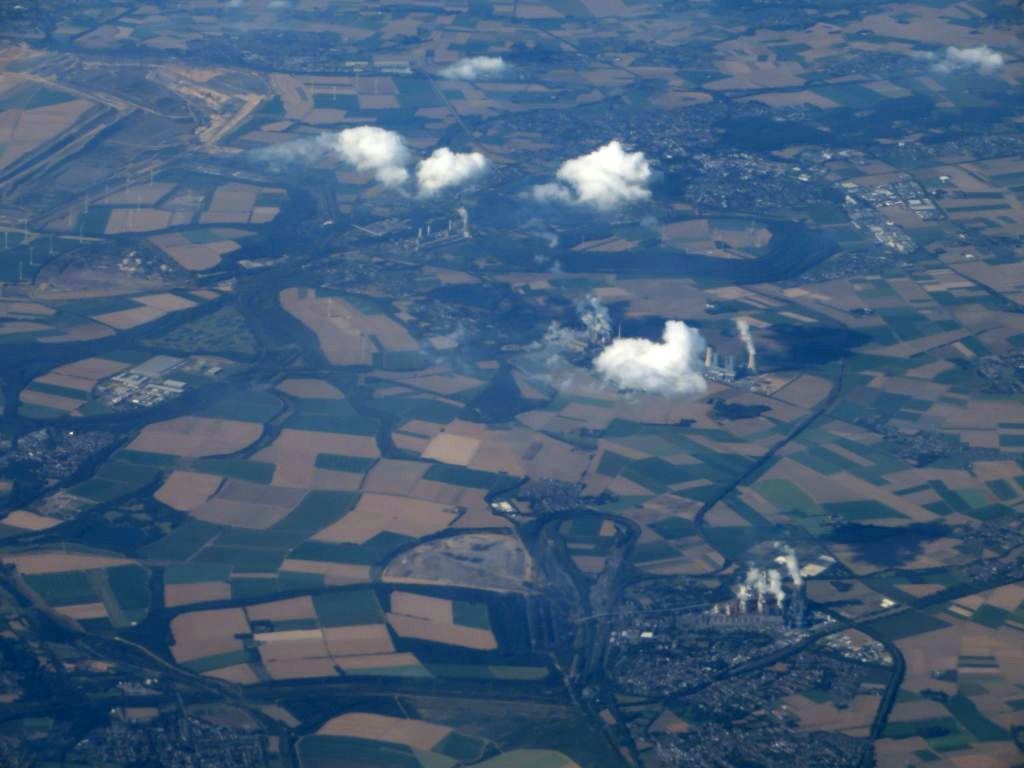
… probably powered by the output of these probable open pit coal mines nearby.
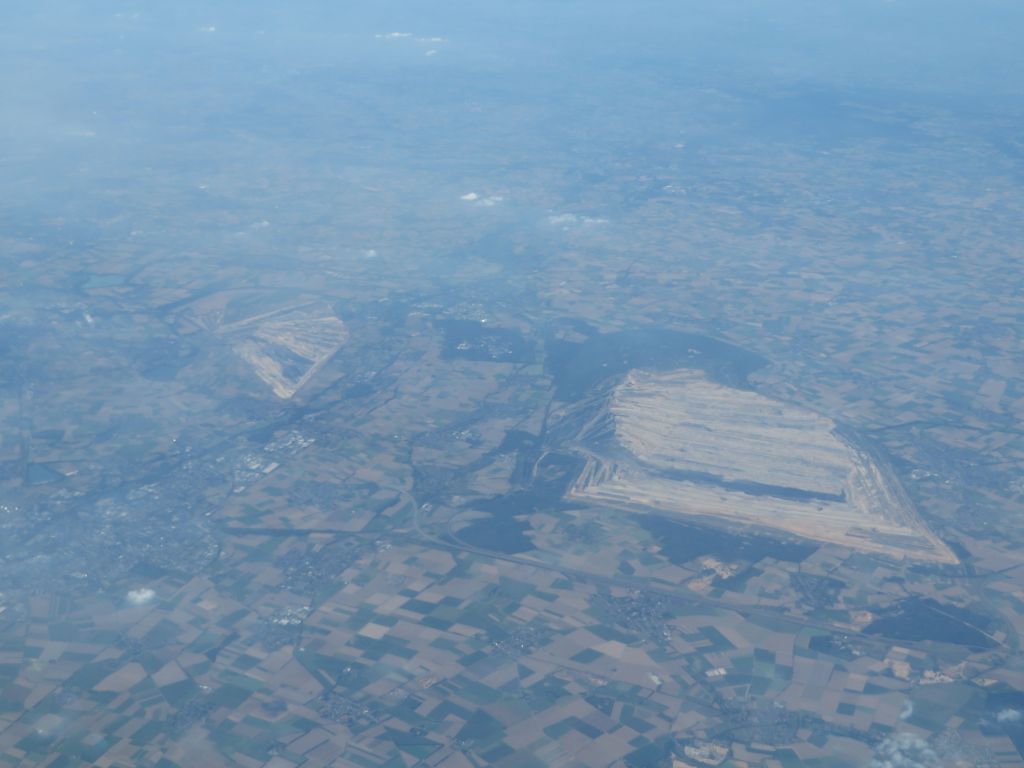
Belgium’s Saint-Hubert air force base, in the Belgian Luxemburg province. The lighter patch beyond the runway is the Saint-Hubert airfield, with two perpendicular grass runways.
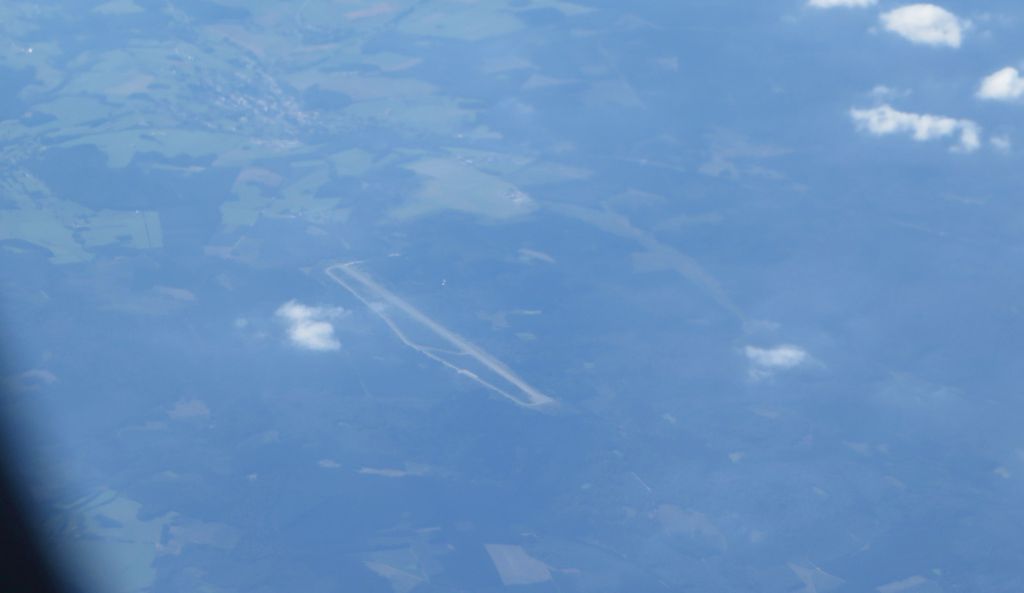
Bertrix Air Base, also called Jehonville Air Base, not far from Saint Hubert AFB.
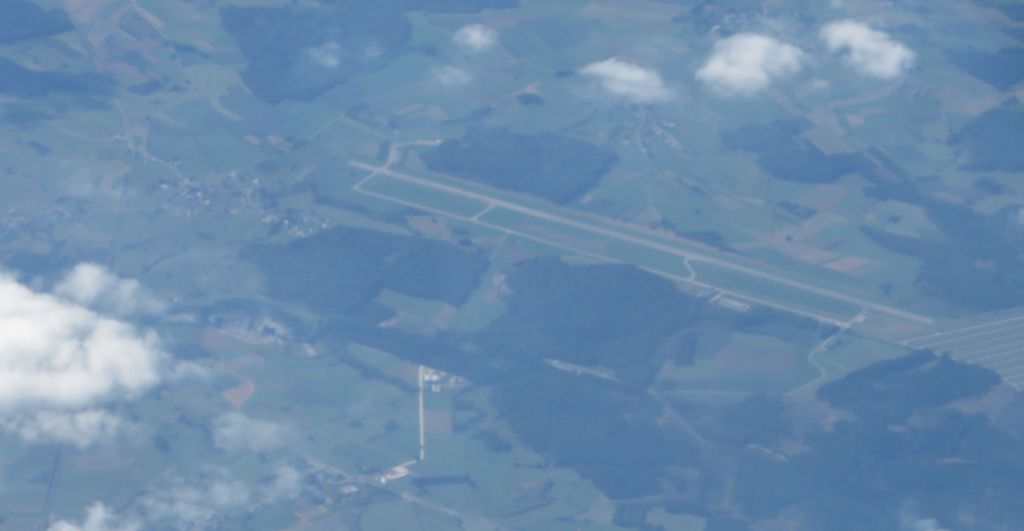
The former Laon-Couvron French air force base, which closed in 2012
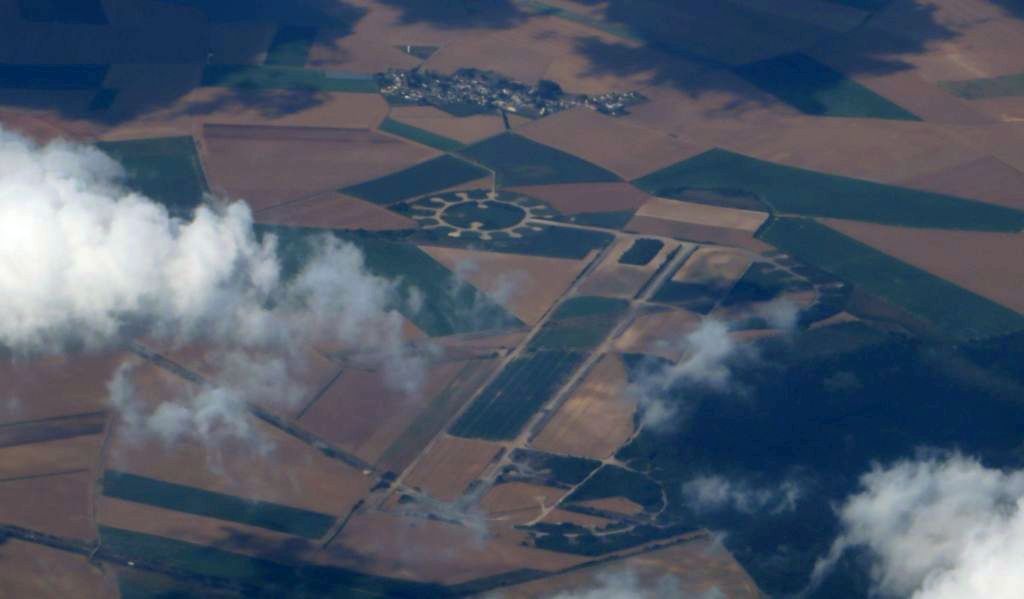
Creil Air force base
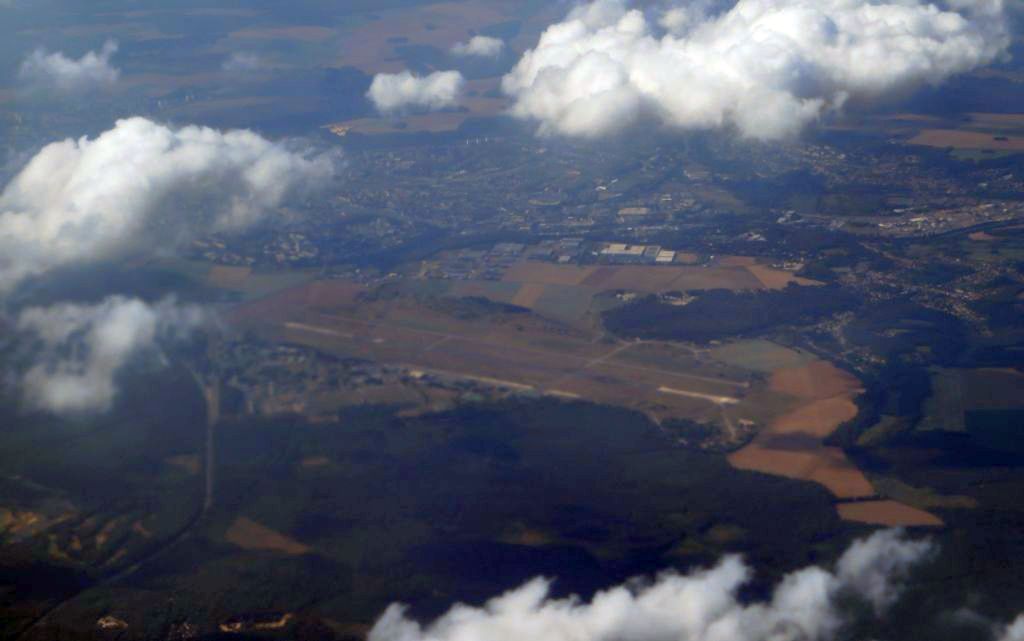
We later had some pleasant small talk with the charming Miss PAX43K-ex-40J, a Kyoto native who was flying with her parents to meet a relative in Barcelona, which is indeed in the list of connecting flights displayed on the IFE.
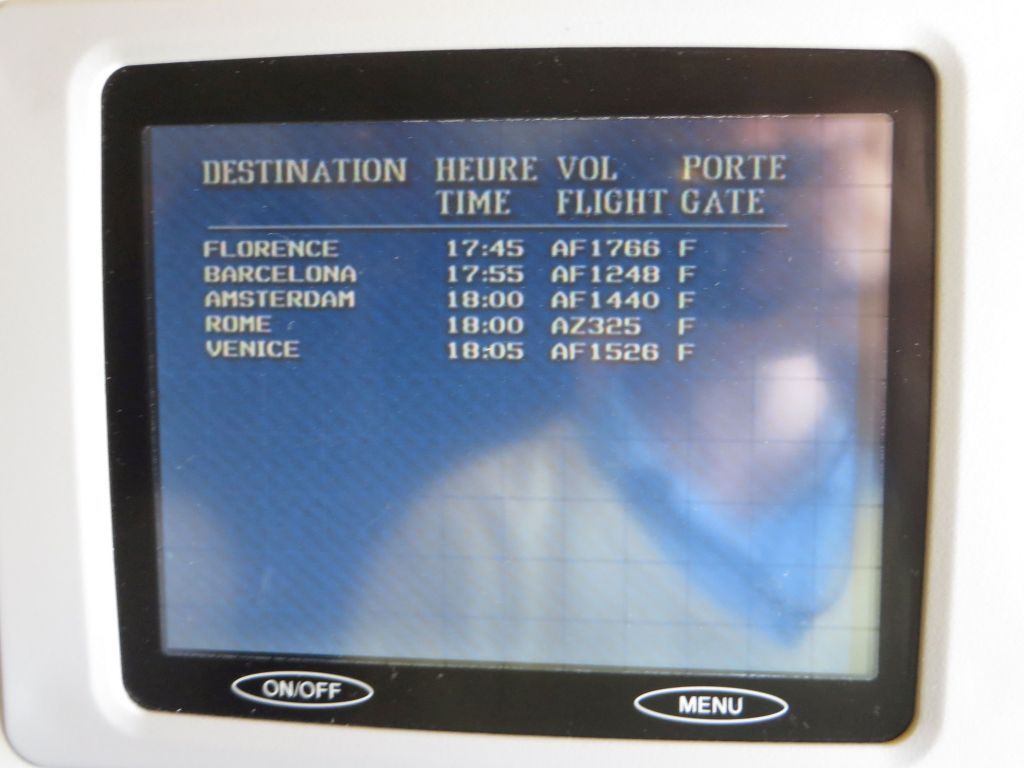
Creil’s marshalling yards and the light colored French Railways workshops
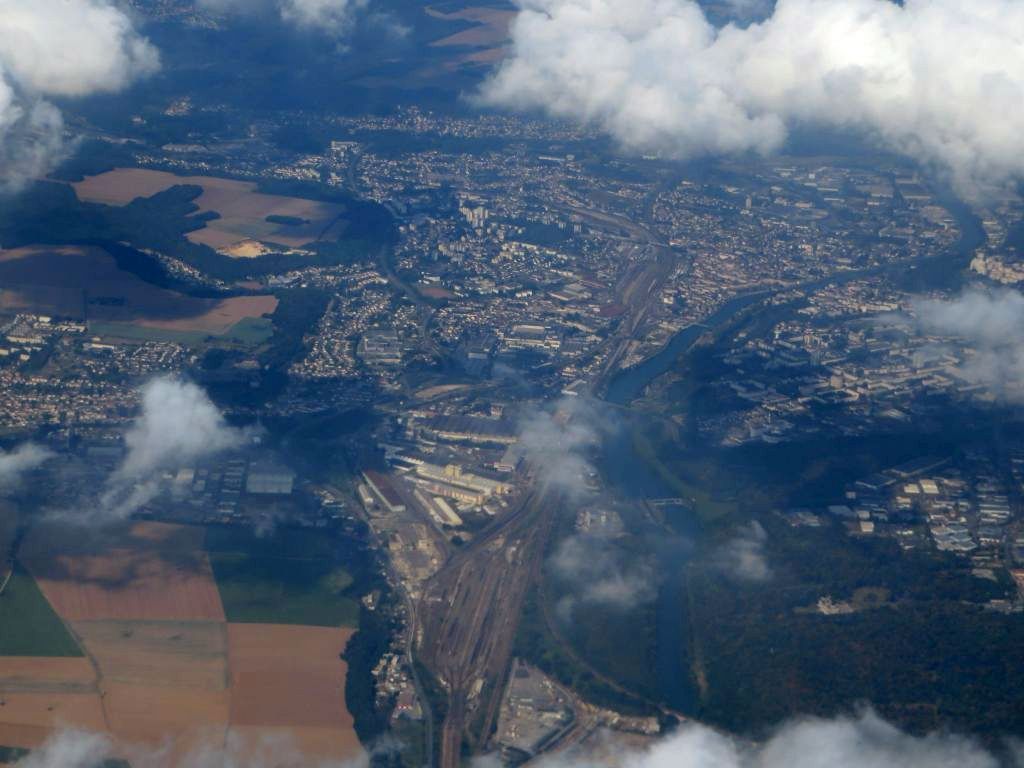
The race track and lake of Enghein, under the wing
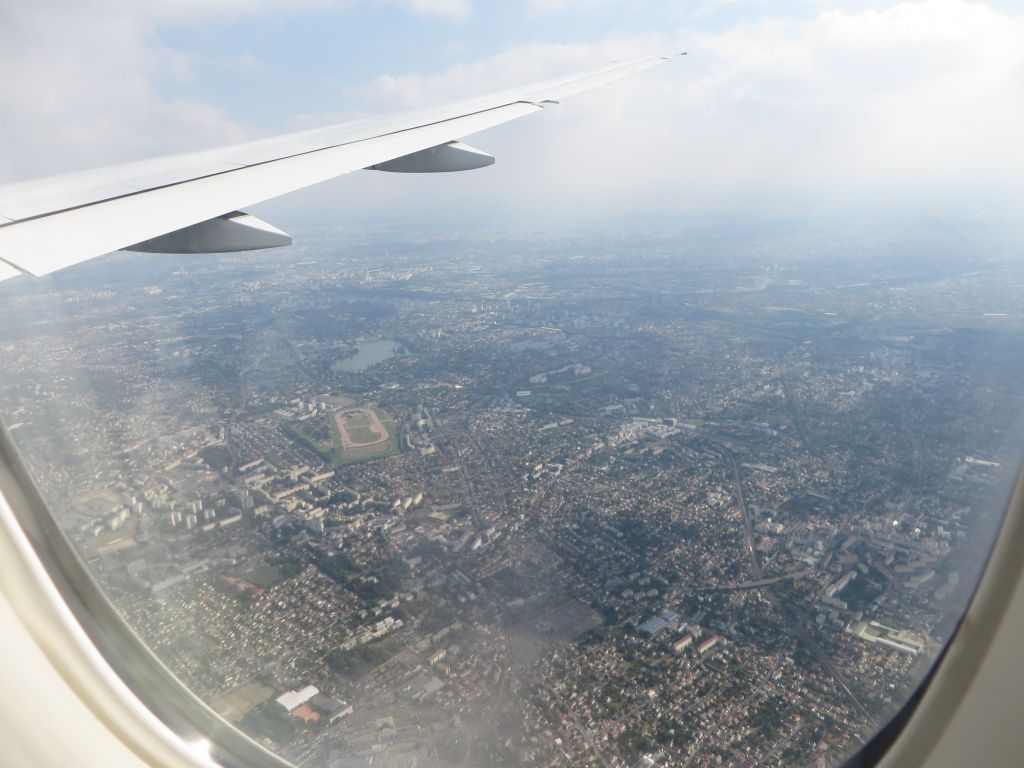
The Stade de France , center, and the loop of the Seine River in Gennevilliers on the right. You can just make out the branch of the Seine River separating Saint Denis Island from the left bank (which is on the right in this picture).
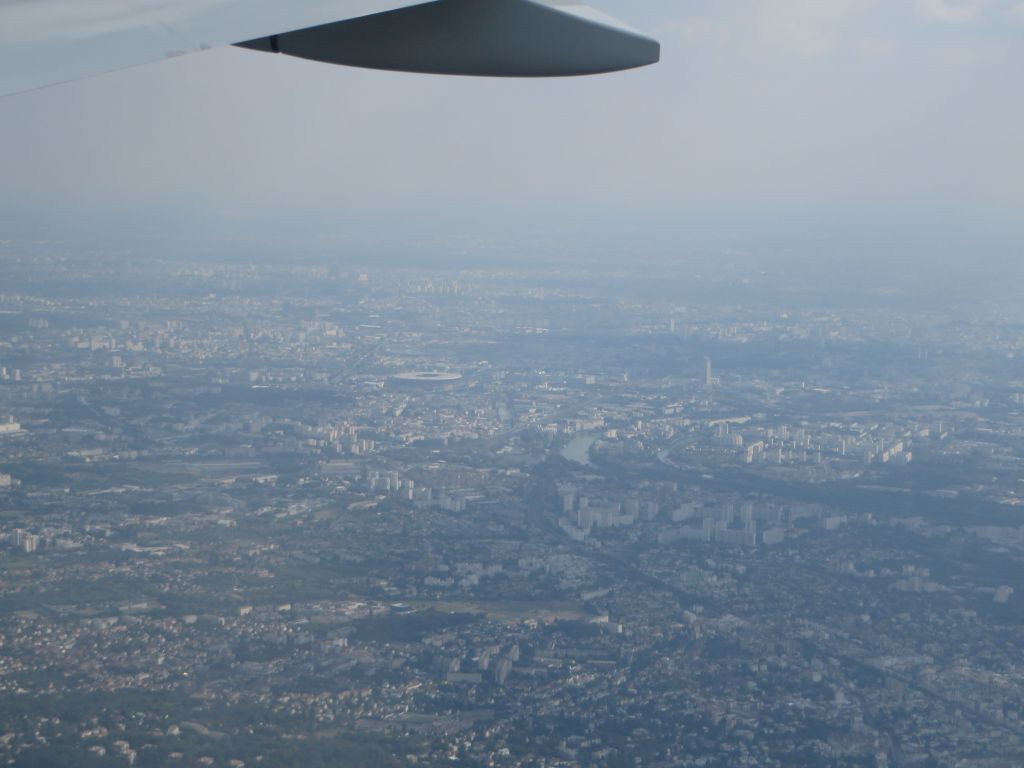
Le Bourget Airport (LBG), used mostly by business flights
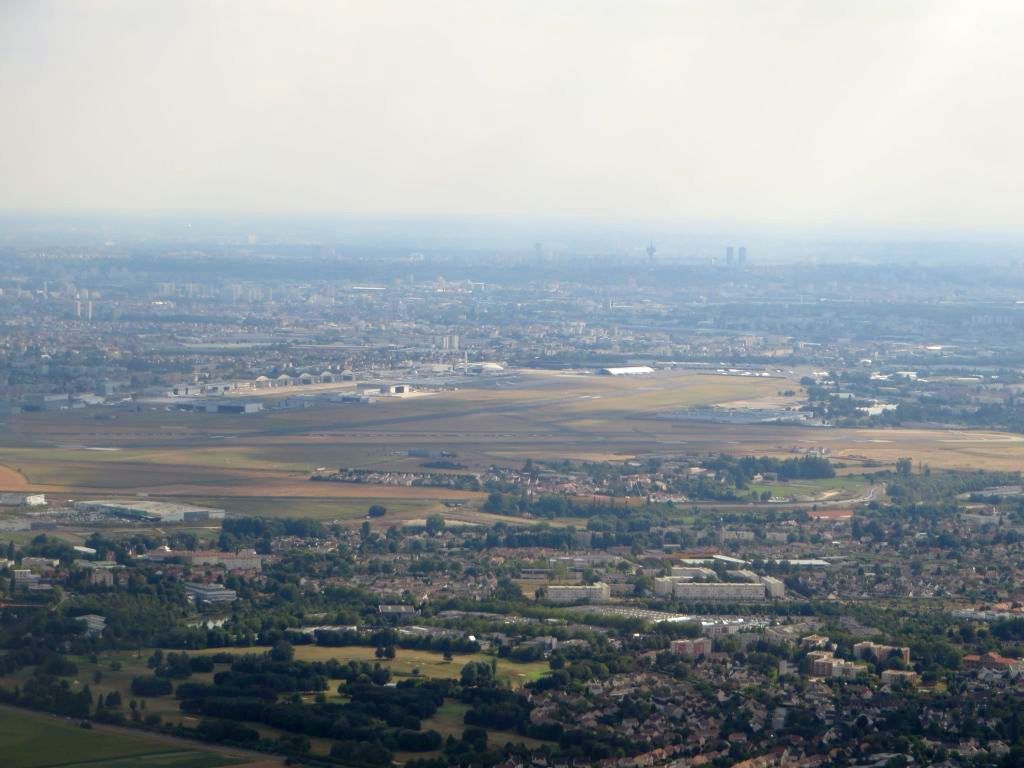
Despite the adverse lighting, the Stade de France , and the Sacré Cœur Basilica on the left.
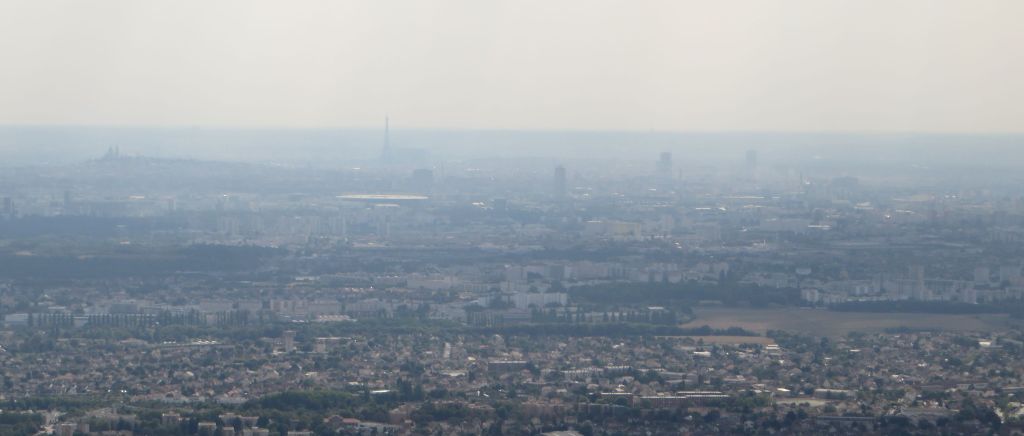
Landing Runway 9L, with LBG’s Runway 3 here in the foreground. On the right above the horizon, Montparnasse Tower, whose observation deck is jokingly described as the most beautiful place in Paris, because this is the only place where you can’t see this eyesore tower.
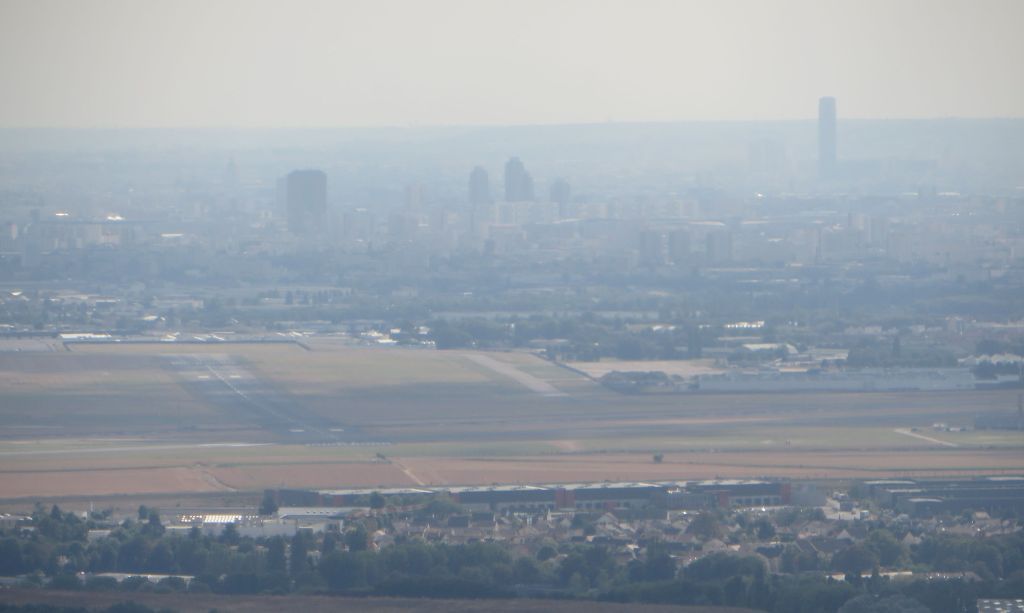
The area dedicated to Fedex, according to the labelling of the aircrafts and buildings.
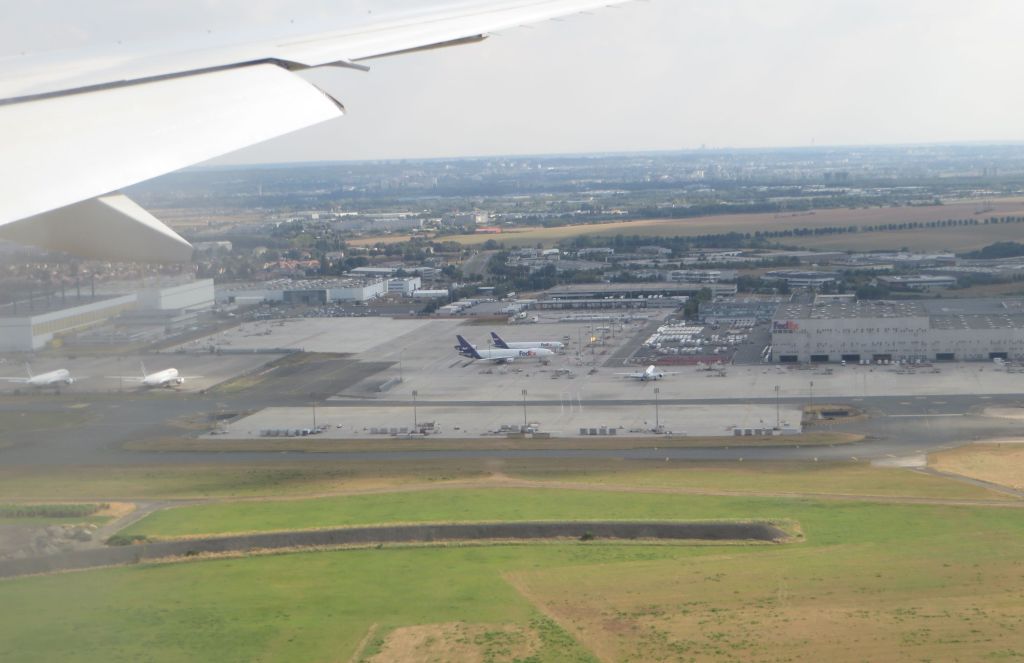
This A320 permanently parked next to Runway 9L’s threshold is used for airport staff training. There are AF maintenance facilities in the background.
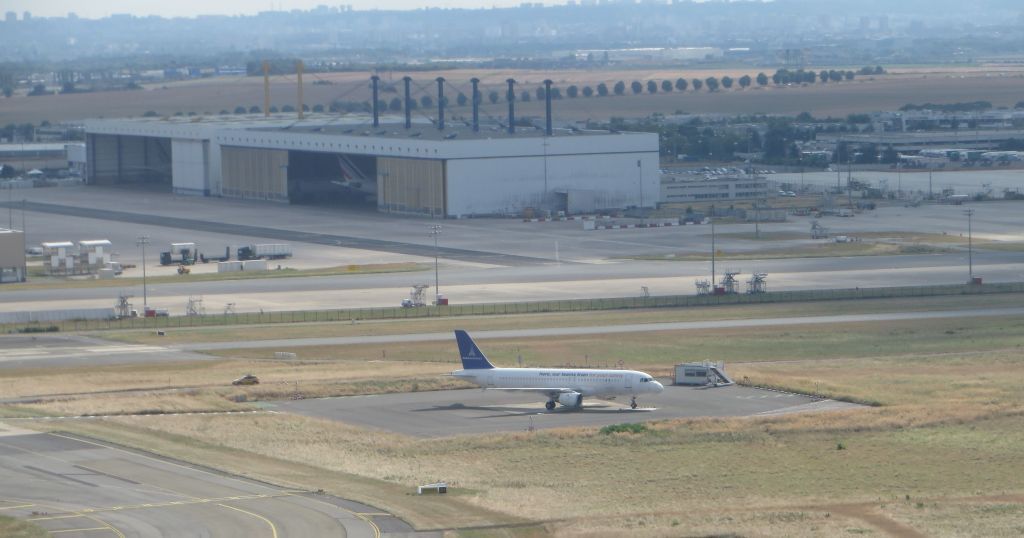
Norwegian 787 behind an AF A320
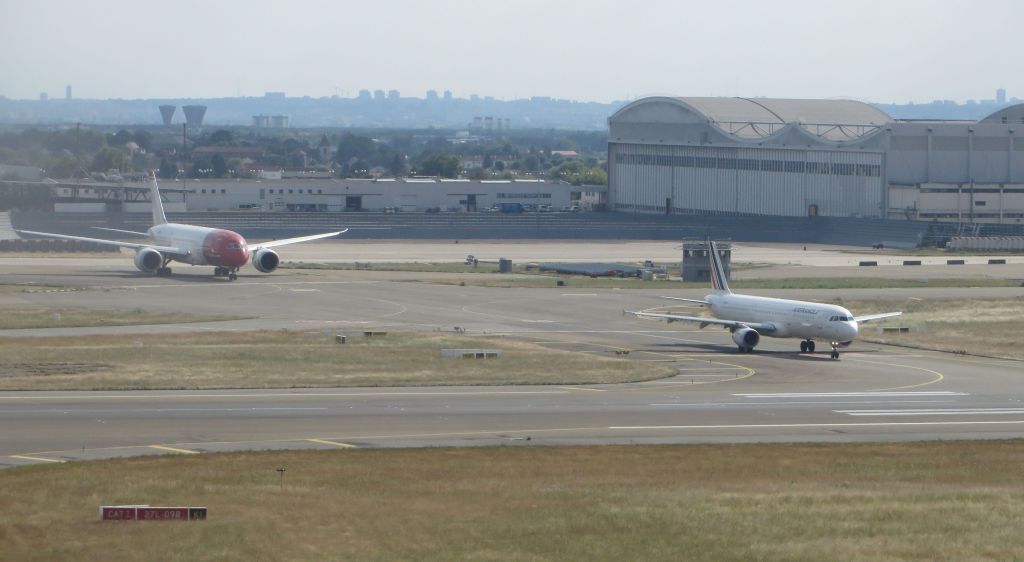
Taxiing Egyptair A330
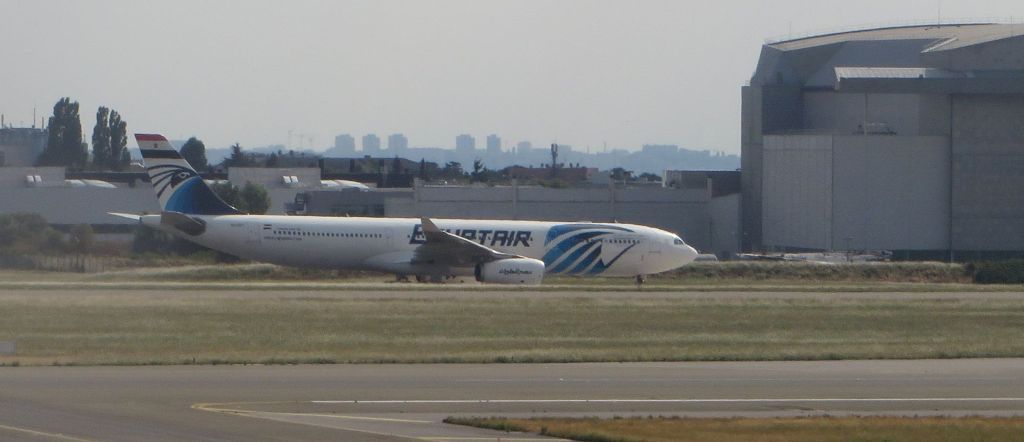
This Germanwings A320 which landed behind us is waiting too to be allowed to cross Runway 9R
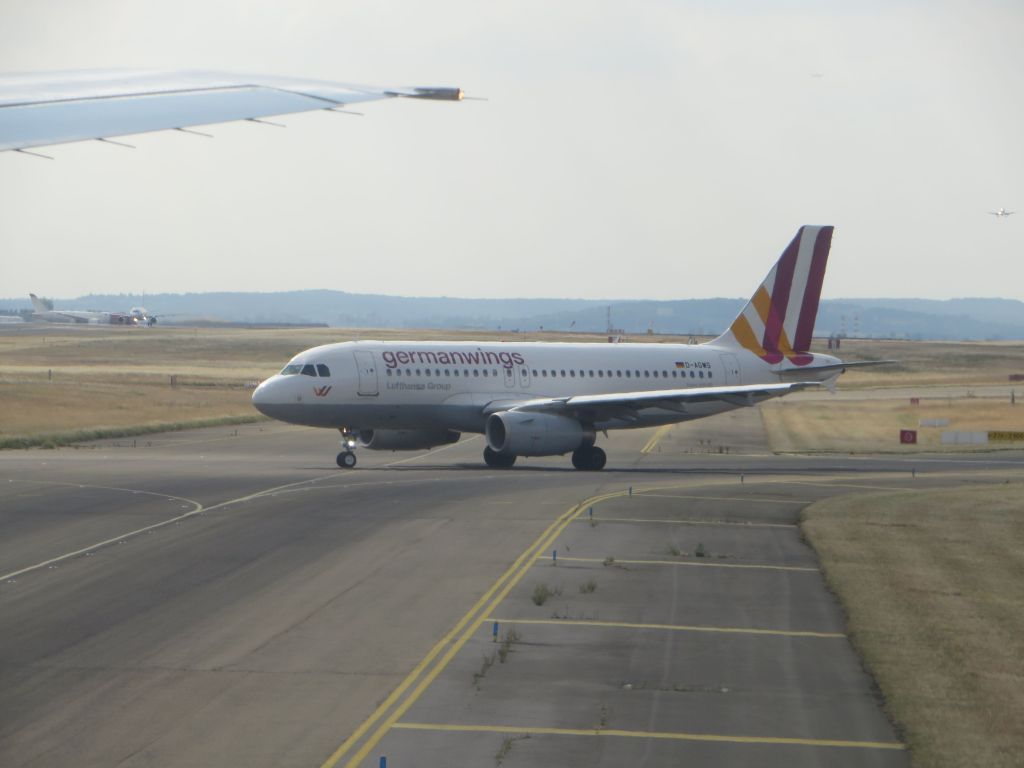
Like for instance that of this AF A32x
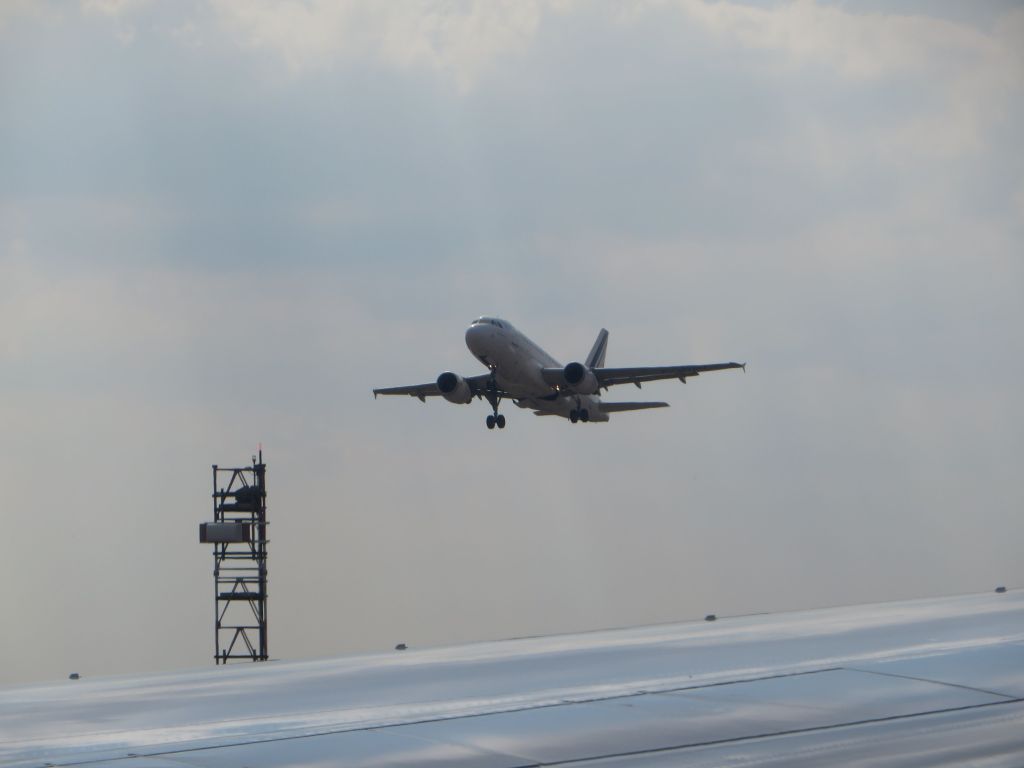
Arrival of a Hop! E170
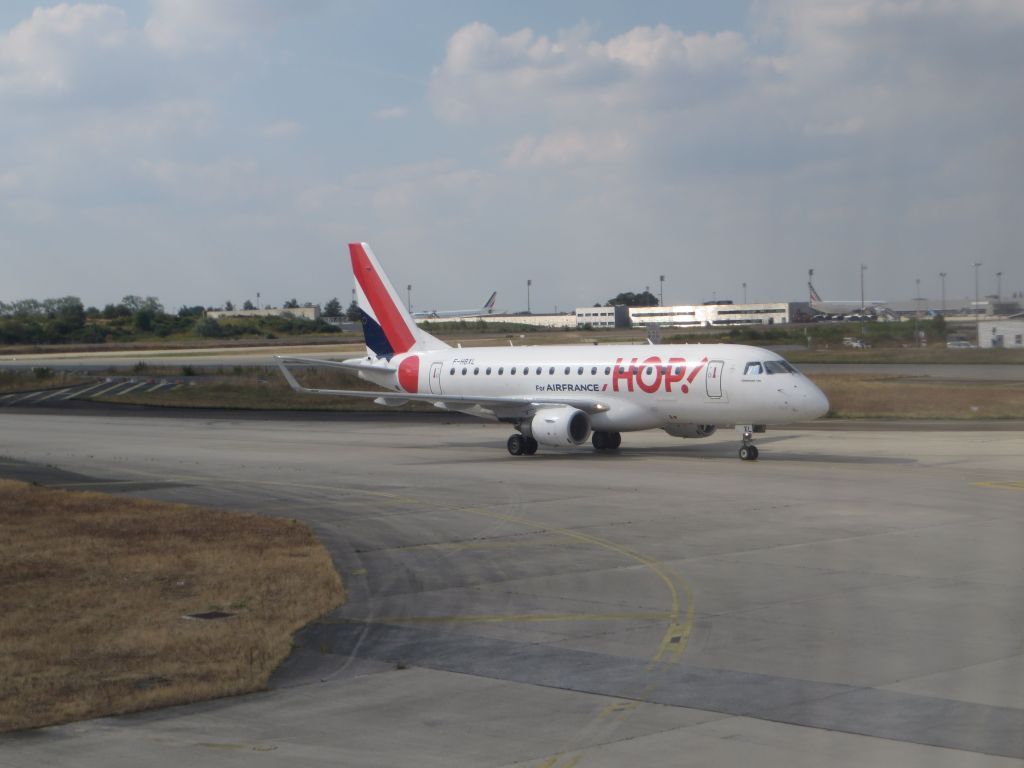
Taxiing was as usual longish once the path was clear, until reaching Terminal 2E, with a Flybe E-175 here
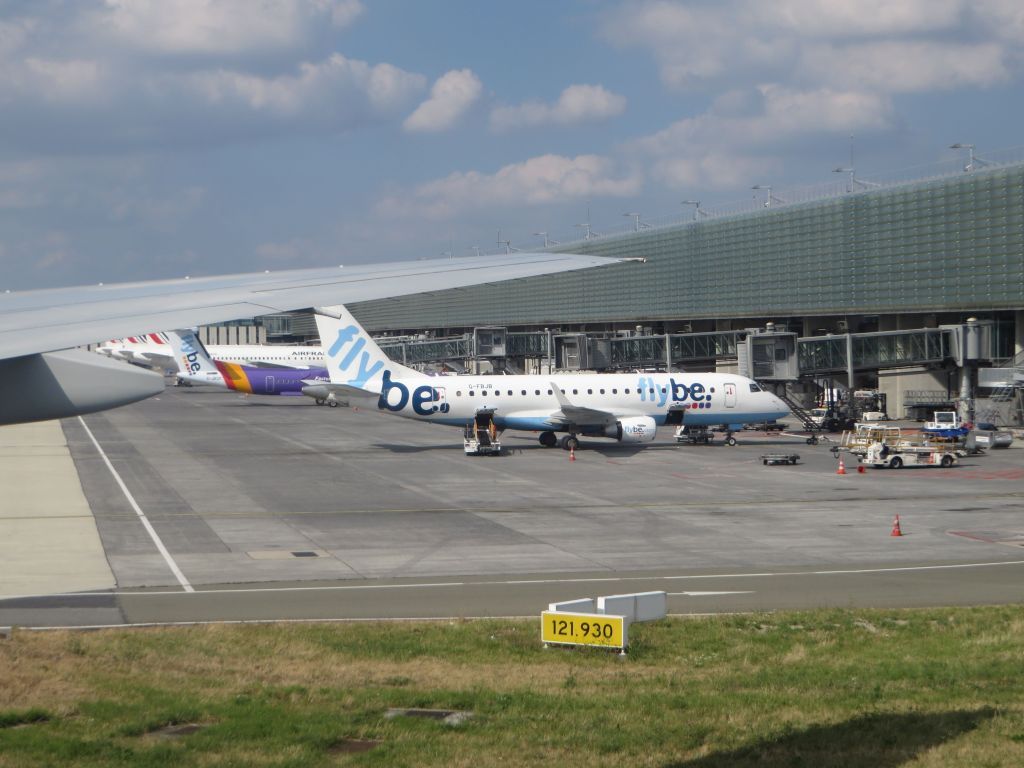
And a Flybe Dash 8-400 Flybe with a much more showy livery.
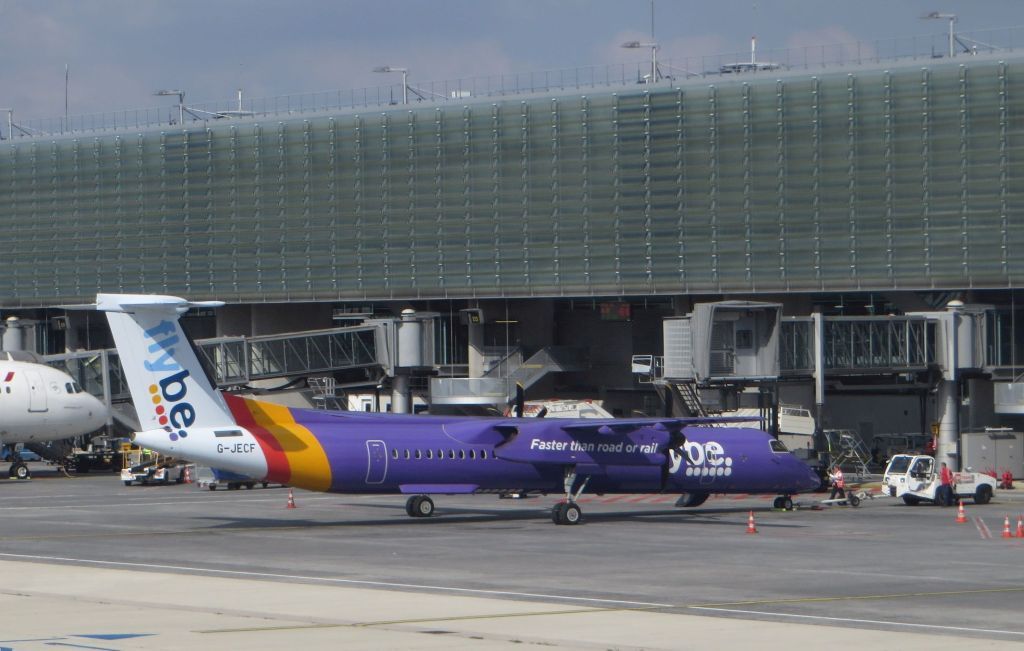
This JL 777 is somewhat out of place in this terminal used mostly by AF and its Skyteam partners.
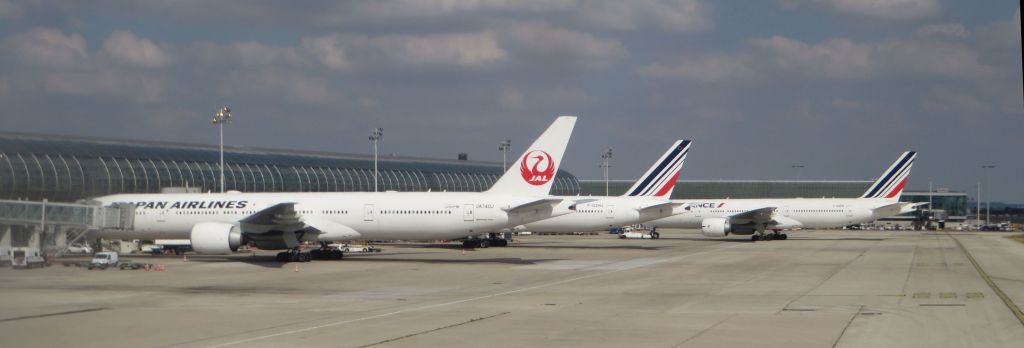
It took us 19 minutes to get though the PARAFE automated passport and fingerprint sas ; foreigners and French travelers not aware of this system (or travelling with children) had obviously much longer to wait. In all fairness, immigration was also terribly slow in KIX on the way in.
What beats me is that most immigration counters were not manned, even though the exact number of passengers, their nationality breakdown, and their ETA is known hours in advance, so that immigration would be understaffed was perfectly predictable.
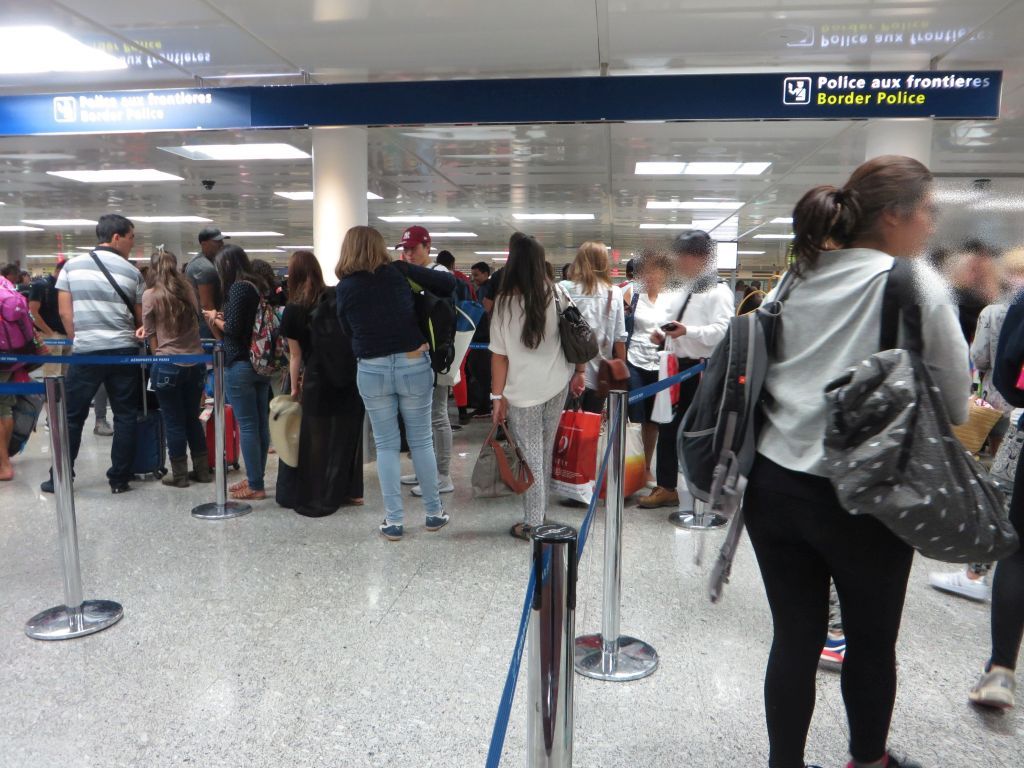
The result is that since a large number of passengers are stuck in the line at immigration, the delivery of the luggage is stuck by the large number of suitcases waiting endlessly for their owners, leaving no space for the arrival of the suitcases of the few passengers who made it here. Three passengers including the writer of these lines spontaneously volunteer to put the suitcases upright and gain much needed space. In HKG and many other Far-eastern airports, there is staff for doing that, but this is France here.
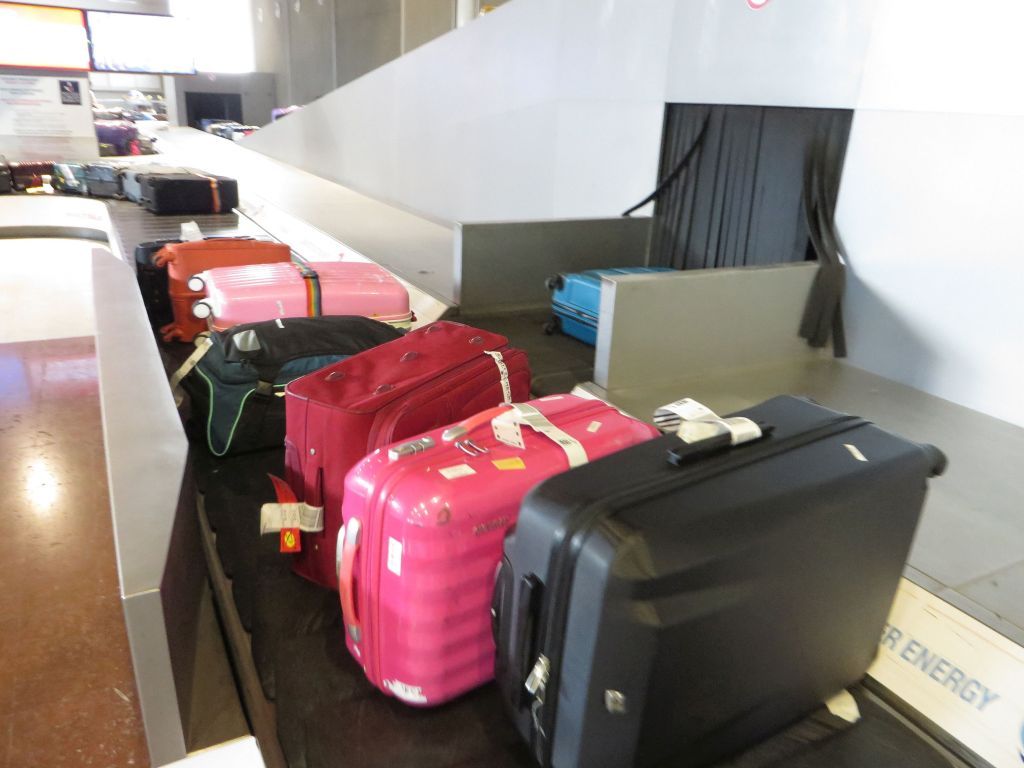
Back to Paris by way of the RER train. At Châtelet-les Halles, the connecting hub in the center of the city, a man follows me tightly at the turnstiles to the subway network, I push him back with a slight elbow gesture, and he is so amazed that somebody would not cooperate with his daily fraud that the turnstile closes in front of him. Nobody tries to cheat in the subway in Ōsaka, but this is France here.
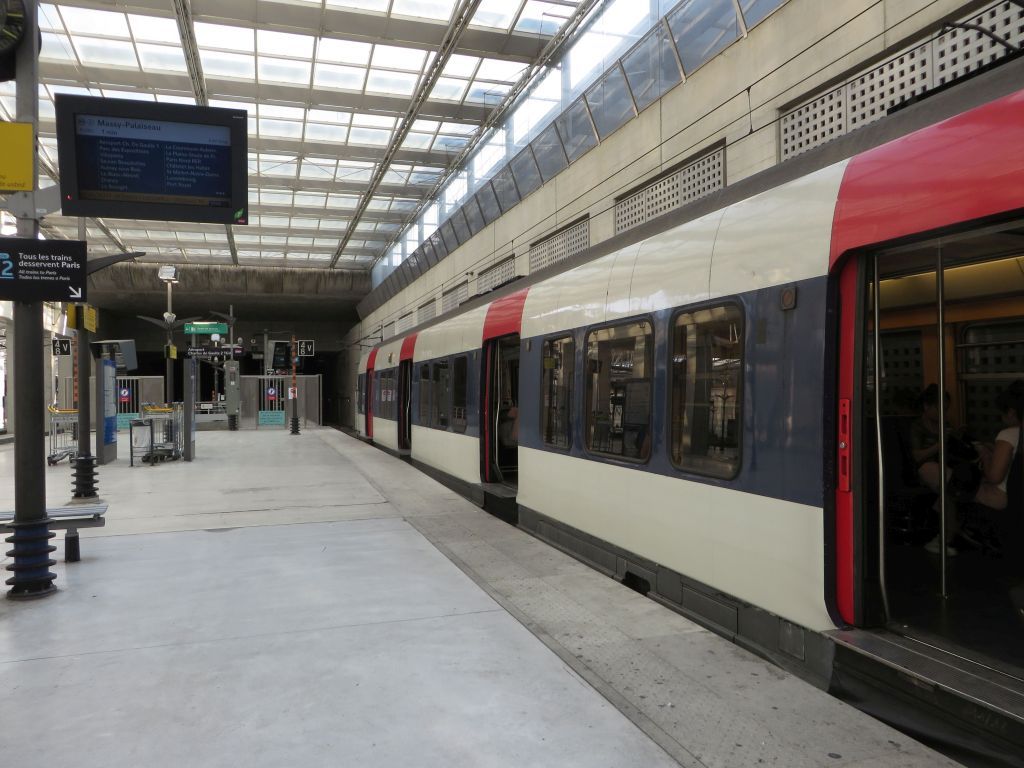
Flying home from a vacation in the Far East and ride the RER train from CDG is always somewhat depressing. Better stay some more time on vacation with a tourist bonus.
At the request of an administrator who will recognize himself, I’ll let others show you the usual cliches (French for “pictures”, incidentally) on Japan, like the Floating Torii in Miyajima, the Dome of the Bomb in Hiroshima or the Golden Pavilion in Kyōto that we visited again this year

The Japanese have the technology to obtain new views of these buildings, all included by Unesco in its World Heritage List, but they are regrettably thwarted by local aviation rules.
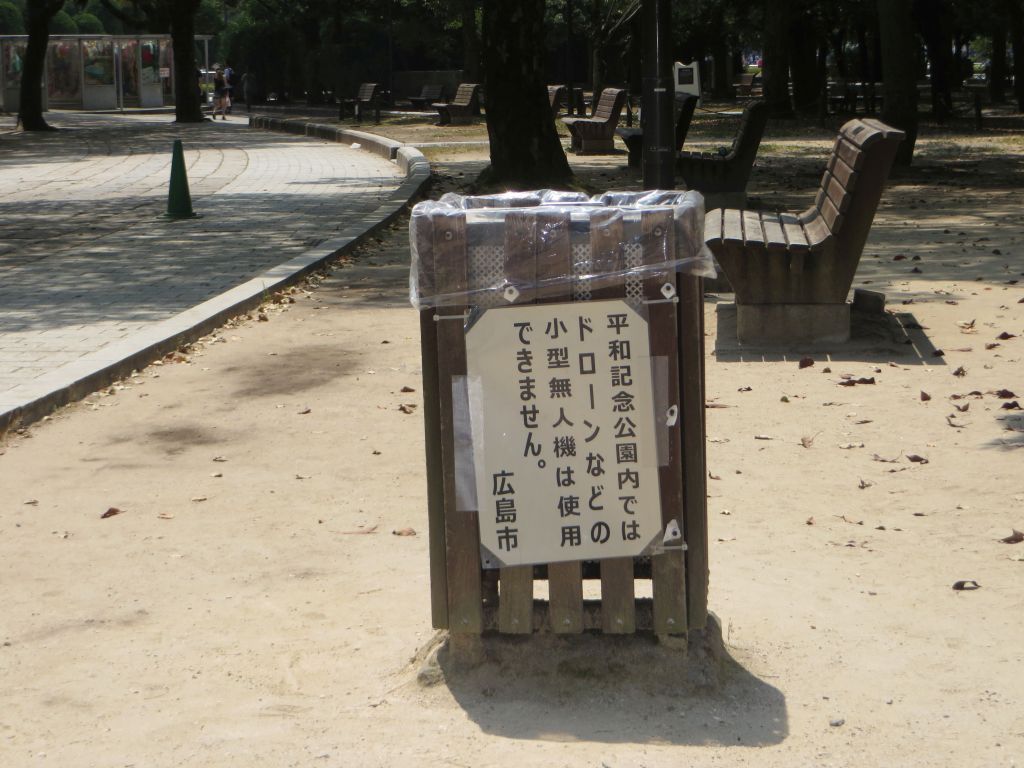
It is forbidden to use small pilotless devices such as drones in the Peace Park.
City of Hiroshima
Since monuments are excluded, let me start this bonus with some zoology.
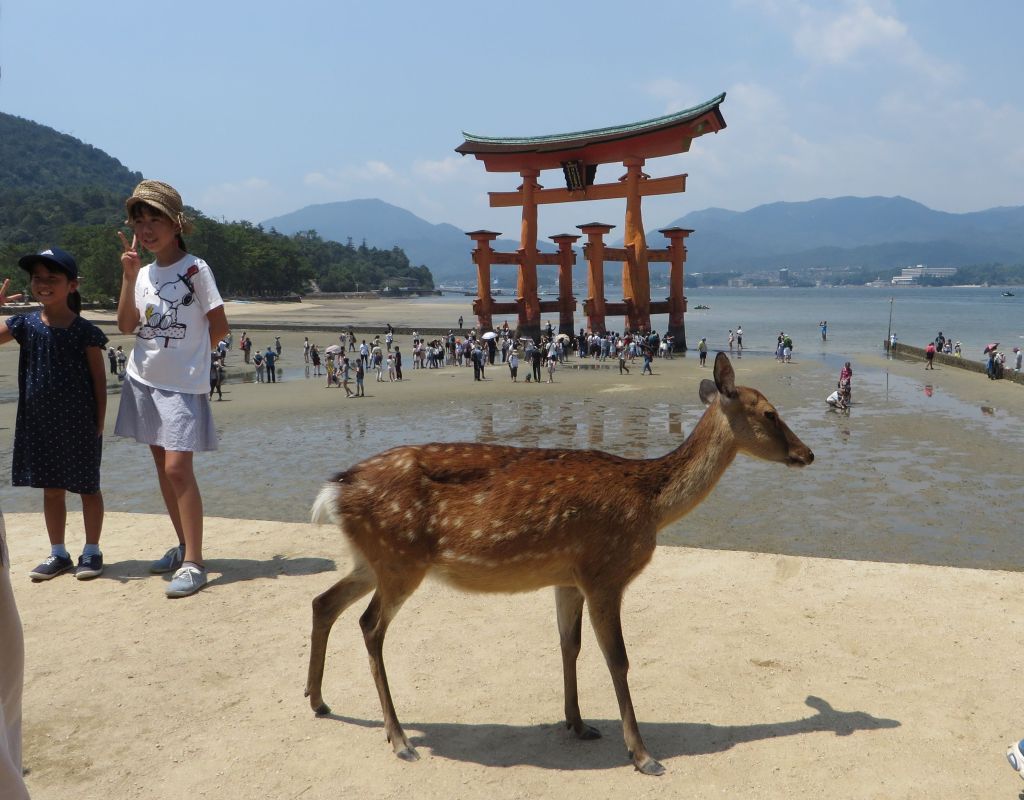
Oops, I hadpromised to avoid Japanese cliches. These deer roam freely in Miyajima, without the slightest fear of humans, snatching and eating their leaflets and biscuits anytime they have a chance to do so.
No, I wanted to mention an invasive species which spread worldwide from its native Japan, even though it has natural predators everywhere.
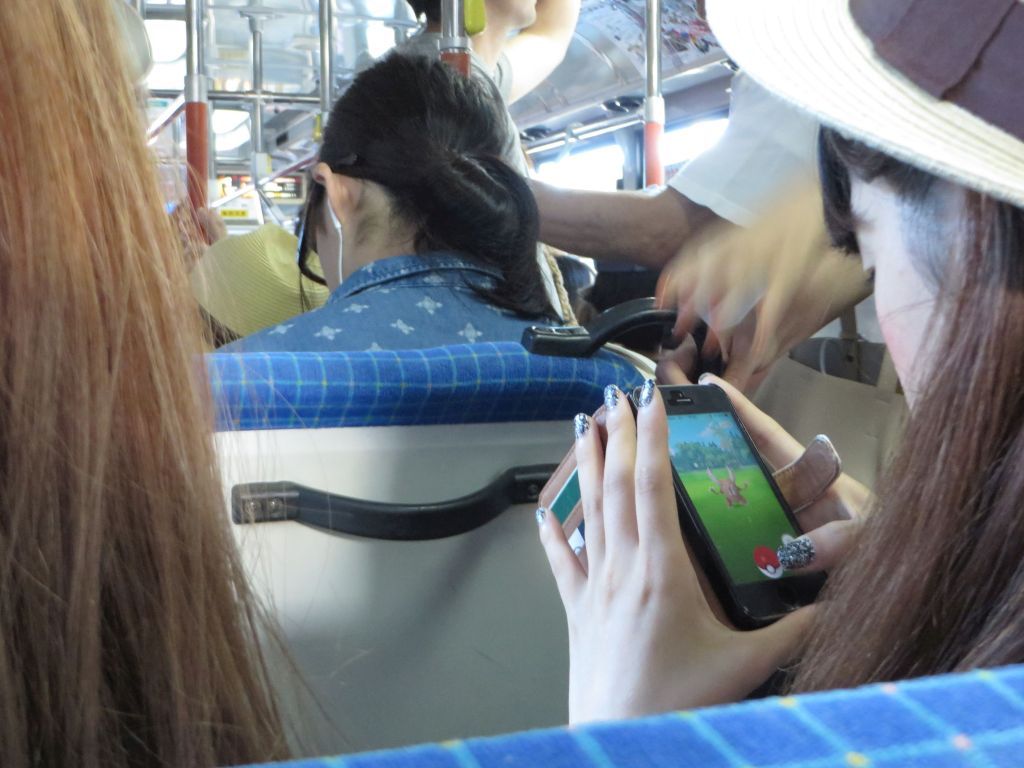
Indeed, you do not want to be a Pokemon in Japan this summer because the hunting season is opened, and everywhere, scores of hunters, mostly female, are on the lookout to bag them anywhere in the trams in the trams of Hiroshima or the buses of Kyōto.
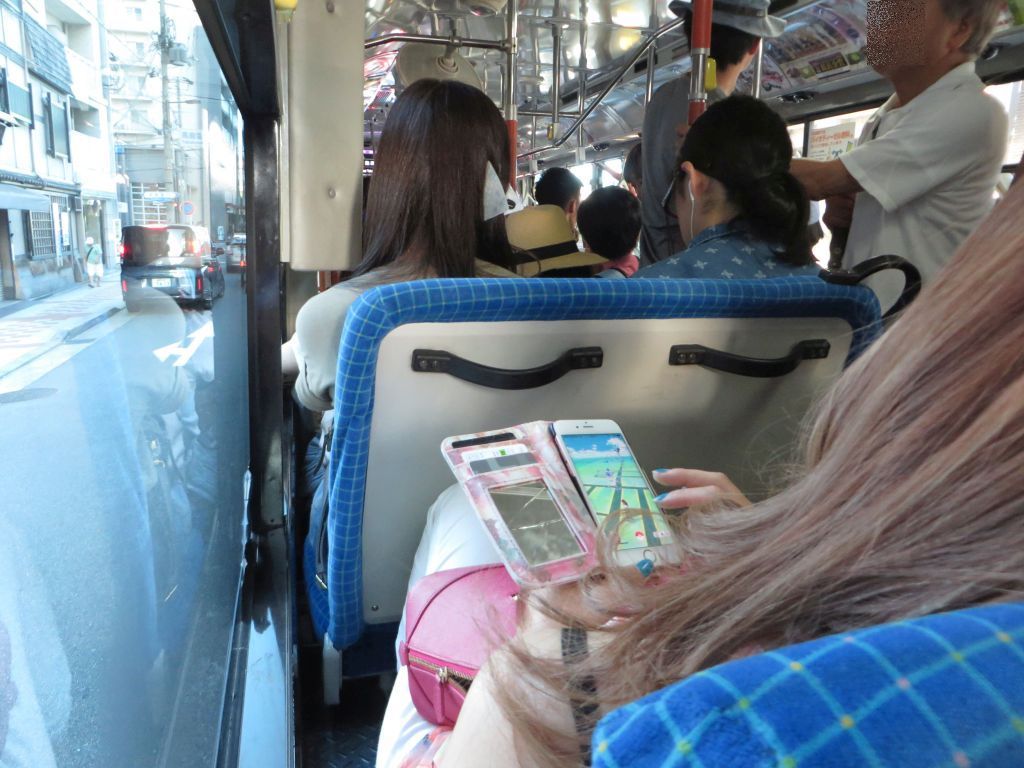
Some hunt them all the way in temples, like here,
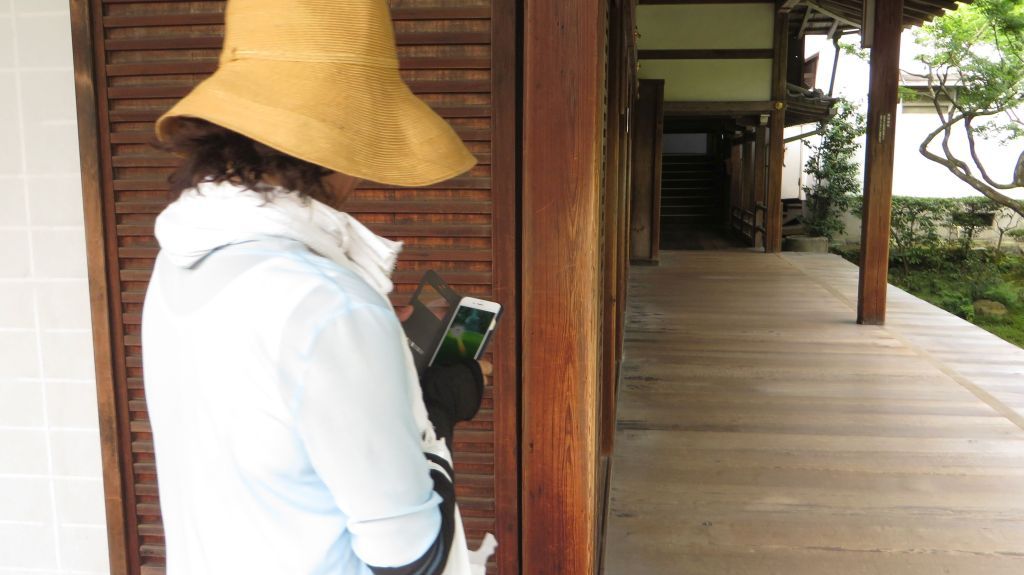
… instead of admiring this garden of Enko-in temple beyond the right edge of the preceding picture.
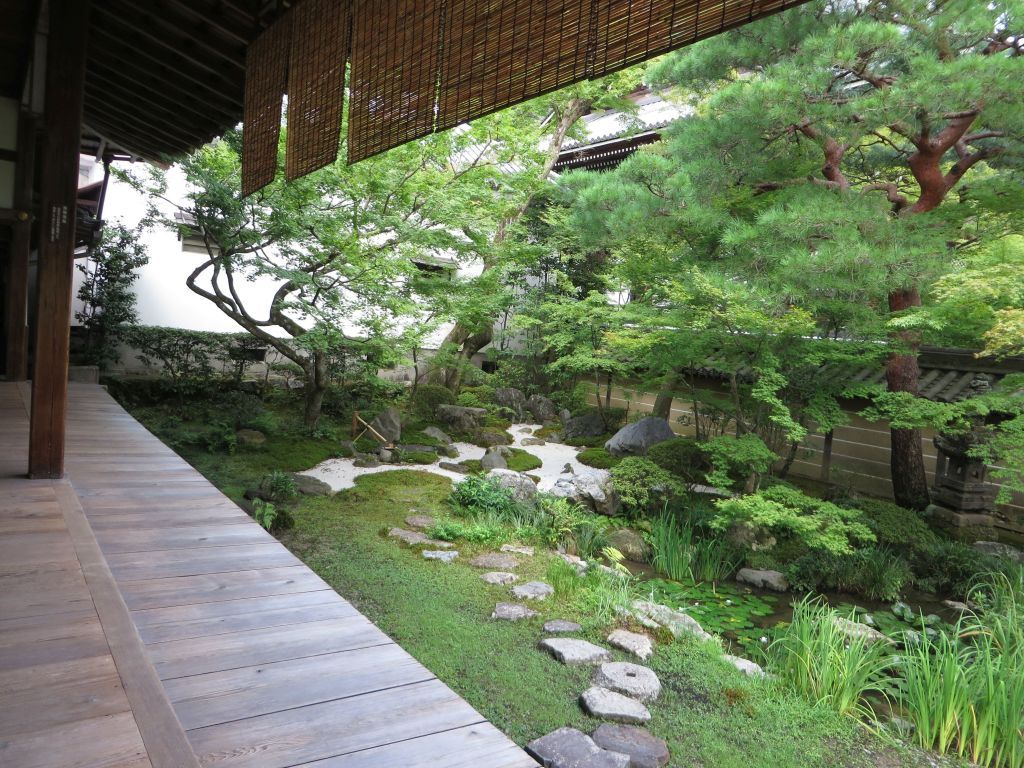
Some temples even had to create hunting reserves in their premises to limit crisscrossing pokeball shots.
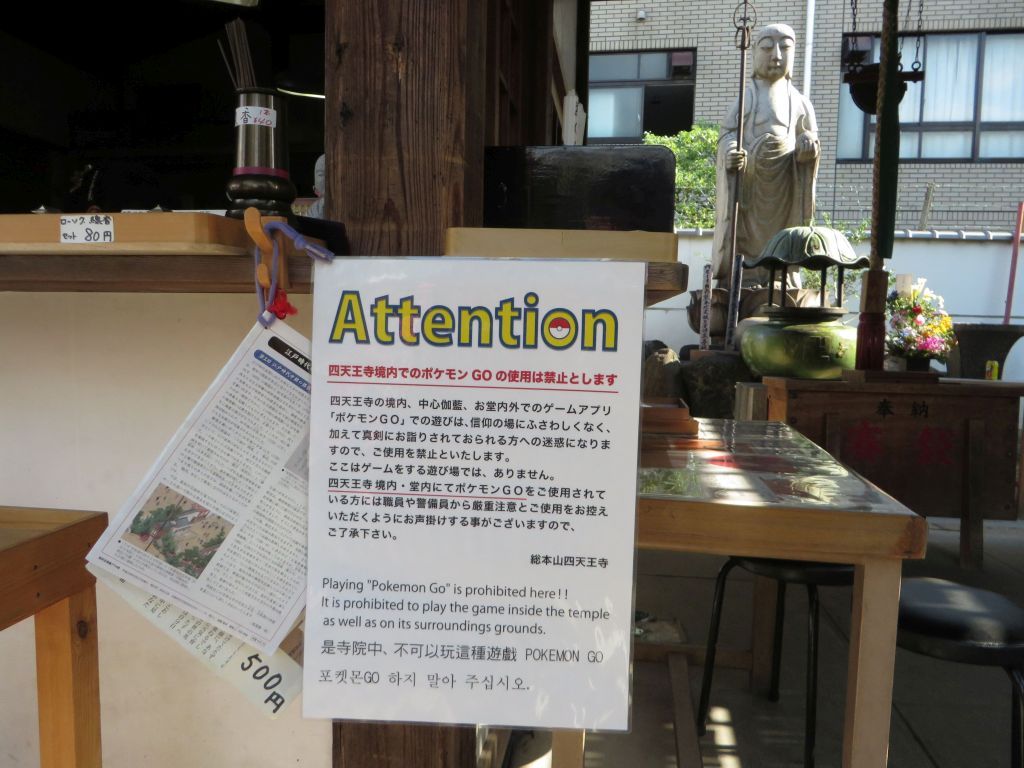
Some older Japanese women have not joined the game, like the owner of the Yachiyo 八千代, one of the countless tiny restaurants which dot Kyōto, like in any other Japanese city. Its name means "Eight thousand generations", i.e. eternity, and some of eternal Japan is there in these few square meters which can only seat eleven customers : eight around d the only table and three at the bar’s counter, facing the cooking area.
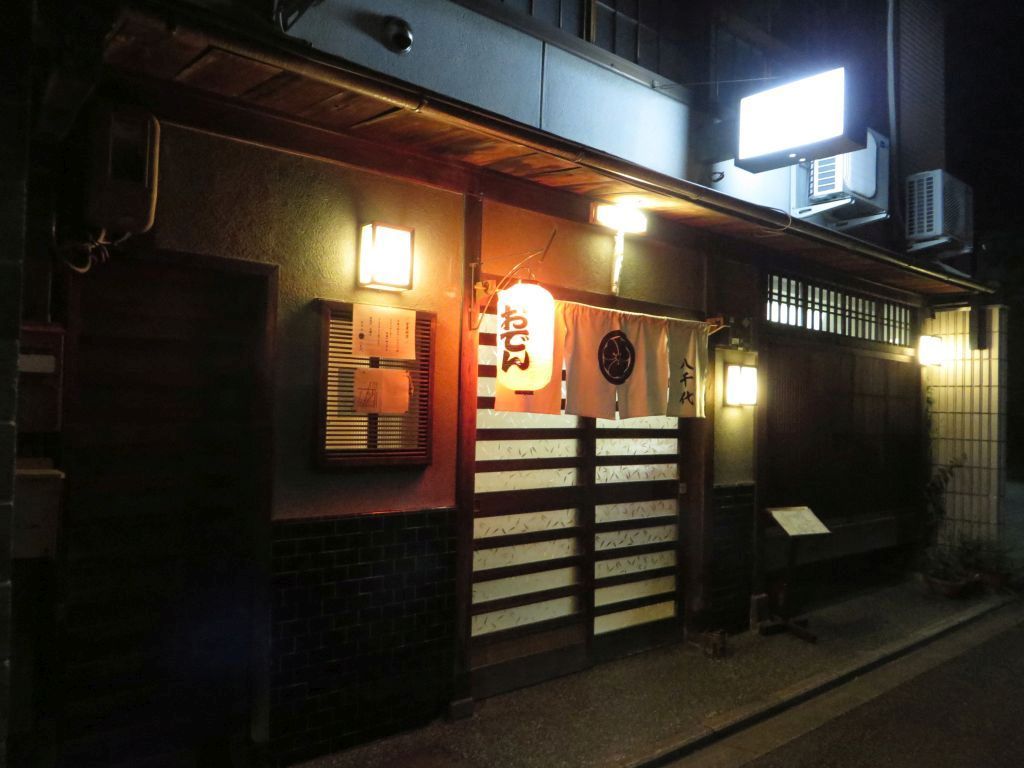
The menu on a stand outside is for Japanese readers only ; the owner only has a version in hiragana (a Japanese phonetic script) for children who do not master the entire standard set of ideograms yet.
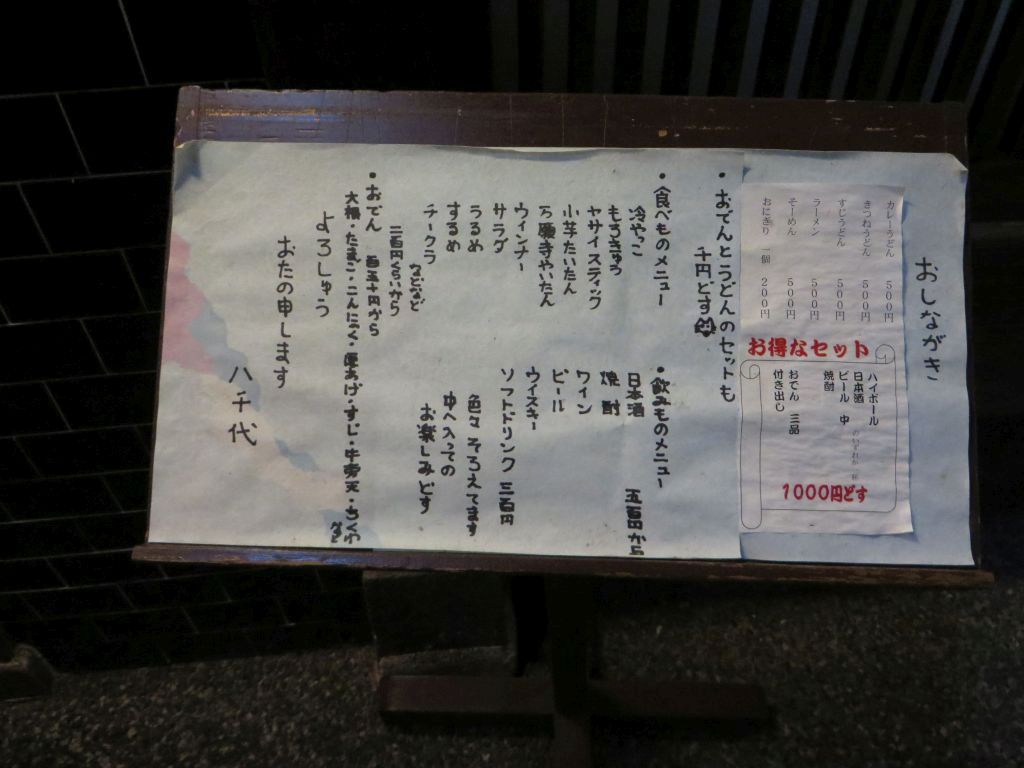
The kimono that the cook wears under her apron is not folkloric clothing for improbable foreign visitors : it is simply her daily life attire.
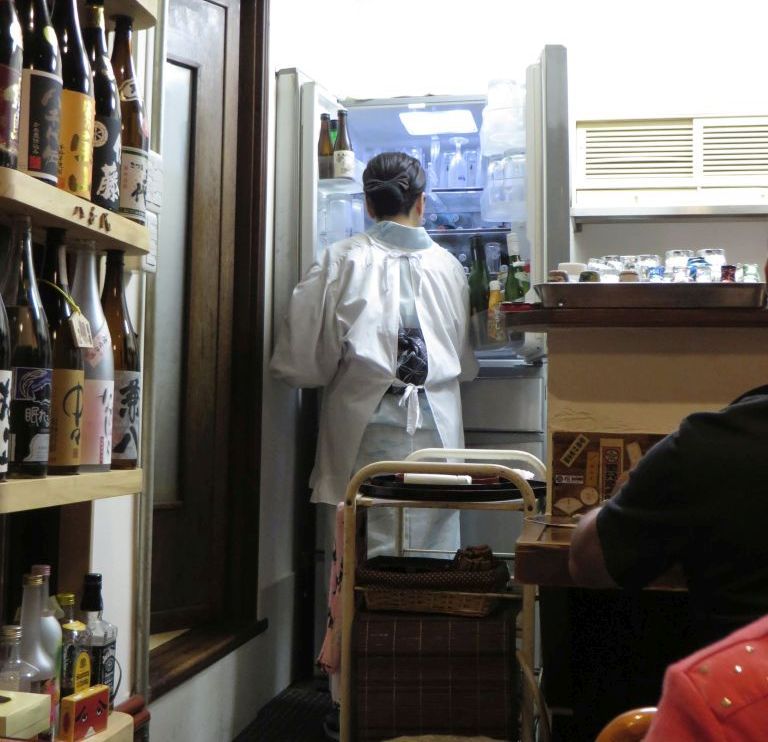
Any time she is not busy, she chats with the customers in her communicative cheerfulness, and one of them keeps checking on her phone if an interesting Pokemon has shown up.
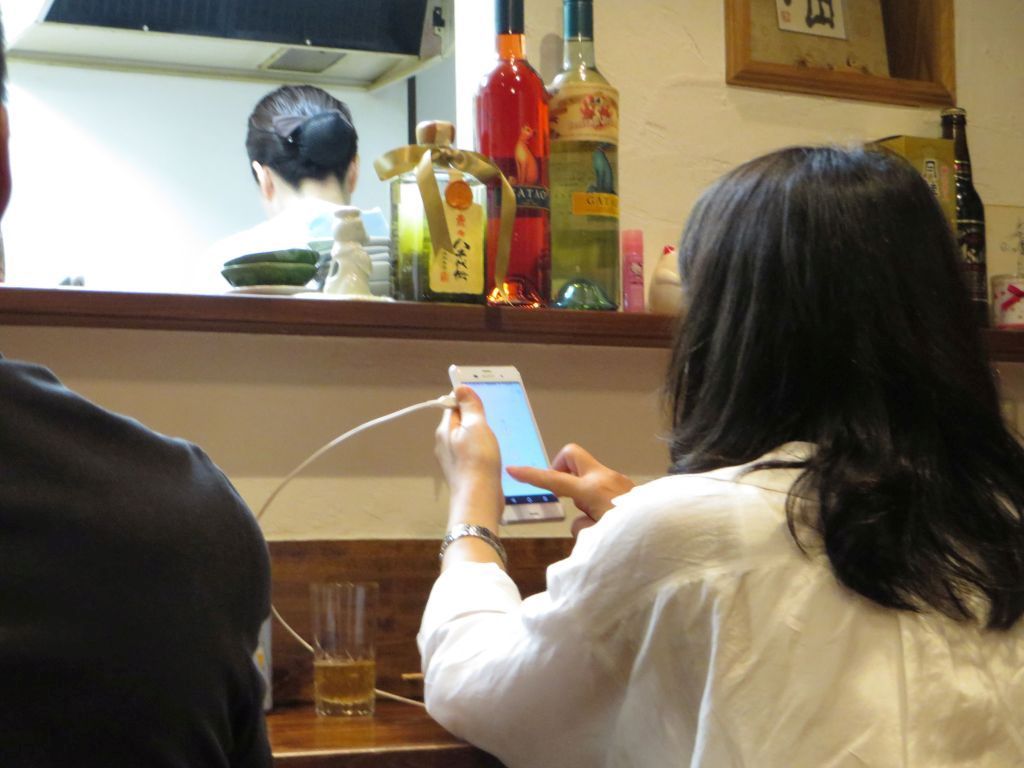
This catches the interest of the cook, and the young customer starts explaining the game’s principle and the main controls. But when you are well into your sixties, the graphics of these smartphones are slightly to thin, and she takes a magnifying class to see better.
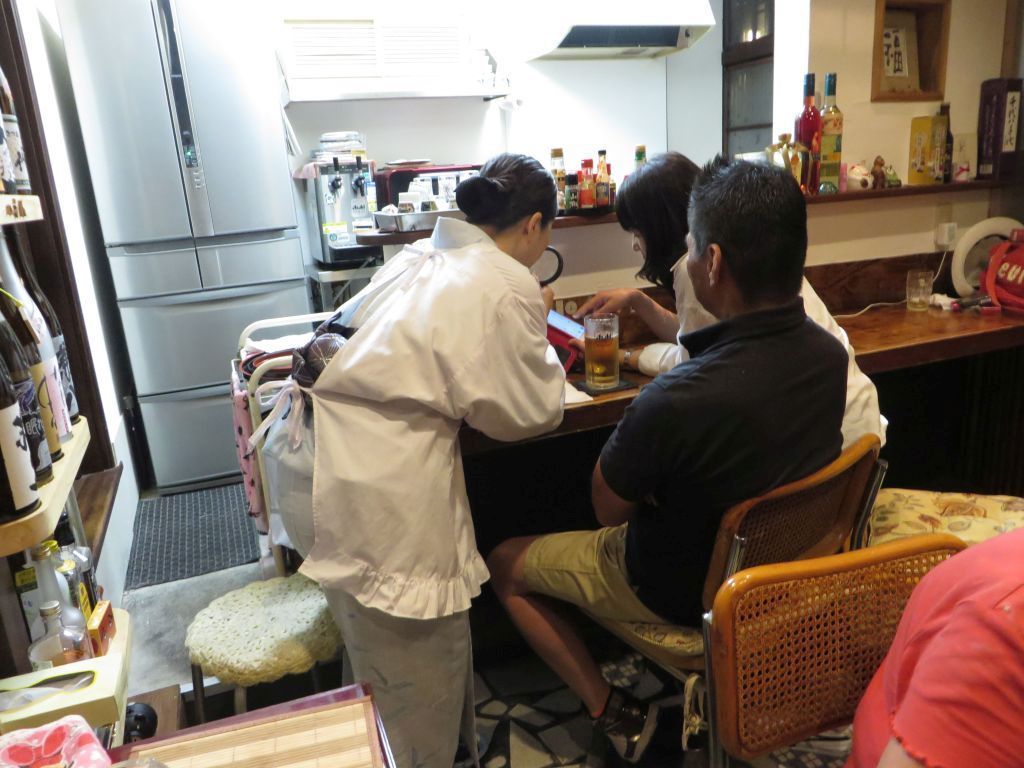
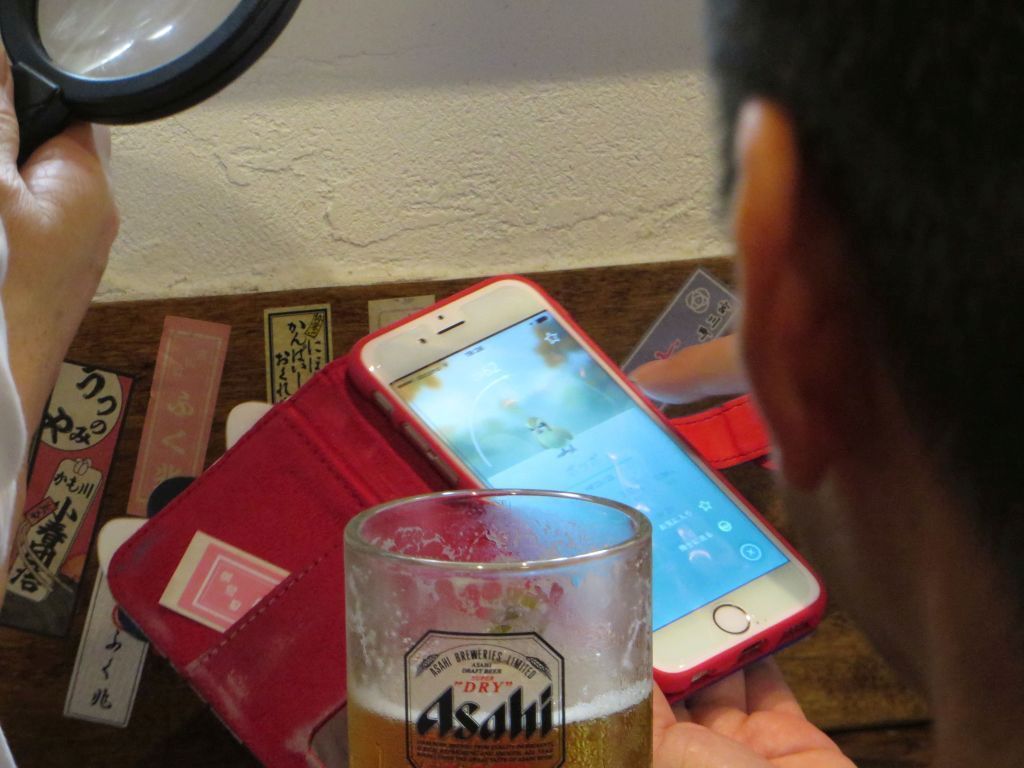
This very funny scene is all behind my wife, but with very loud voices, and I translate for her the gist of the exchange, while showing here some of these pictures. The meal is not top notch gastronomy, but this scene was well worth having dinner there.
This is eternal Japan, with all its traditions and modernity.
Traditions et modernity : these two words apply to Sado, the main reason for this trip. No, we have no sadomasochist tendency: this name is that of a remote Japanese island in the Sea of Japan. Swept by the winds from Siberia (it was 10°C cooler than in Ōsaka), exile without a return for political opponents until 1700 and for convicts sentenced to working in its mines thereafter, having lost half of its population since 1950 and half of its tourists since 1990, inconvenient to reach since commercial flights ended in 2014 for lack of economic viability, Sado Island 佐渡島 is definitely off the beaten Japanese track. I only saw 5% non-Asian faces there, even though this was the week-end in the year when they would come. There aren’t even any Pokemon on this island, some measure of its isolation.^^
One thousand kilometers of tollway roundtrip from Ōsaka, plus an hour and a half each way on a fast catamaran ferry (which was quite empty even though this was a peak traffic week-end) : you need to really want to go to Sado in order to get there.
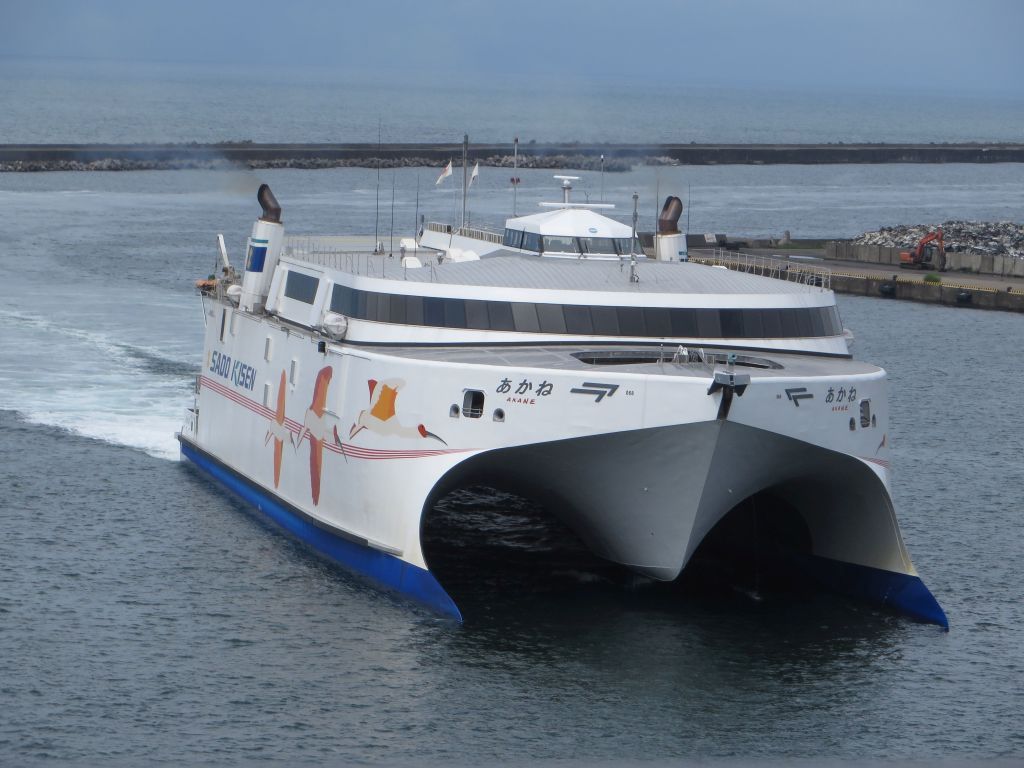
We really wanted to go to Sado, because although you may not know it, Sado Island hosts each year in the end of August the “Earth Celebration” festival created by Kodo 鼓童, arguably the best Japanese players in the world of taiko 太鼓 (Japanese drums), originally from Sado Island. Attending Earth Celebration had been for me a goal in the past several years.
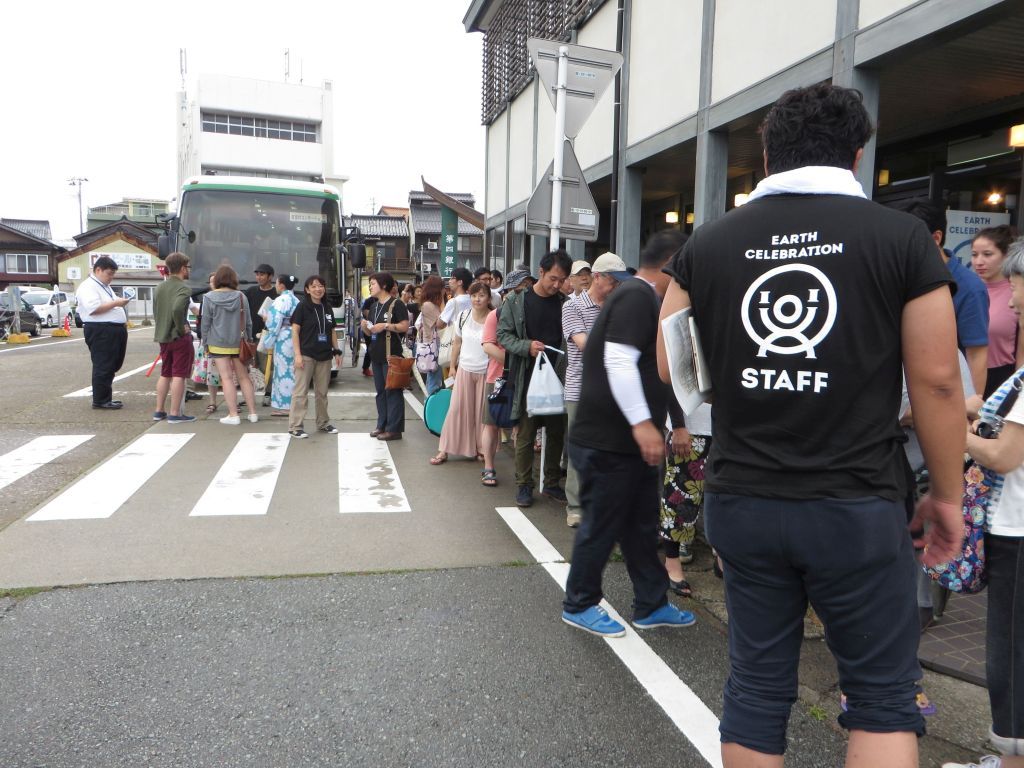
Not only is the location isolated, but these concerts are reserved for the happy few : one week-end in the year does not justify building a concert hall or housing for thousands of people, and there are only 208 tickets for each of the three major concerts, assigned by a lottery draw. I owe a lot to my Japanese friends who spent endless time on the phone to finally nab tickets for one of the concerts, given back by auditors who would not be able to make it, a few days before our own flight to Japan.
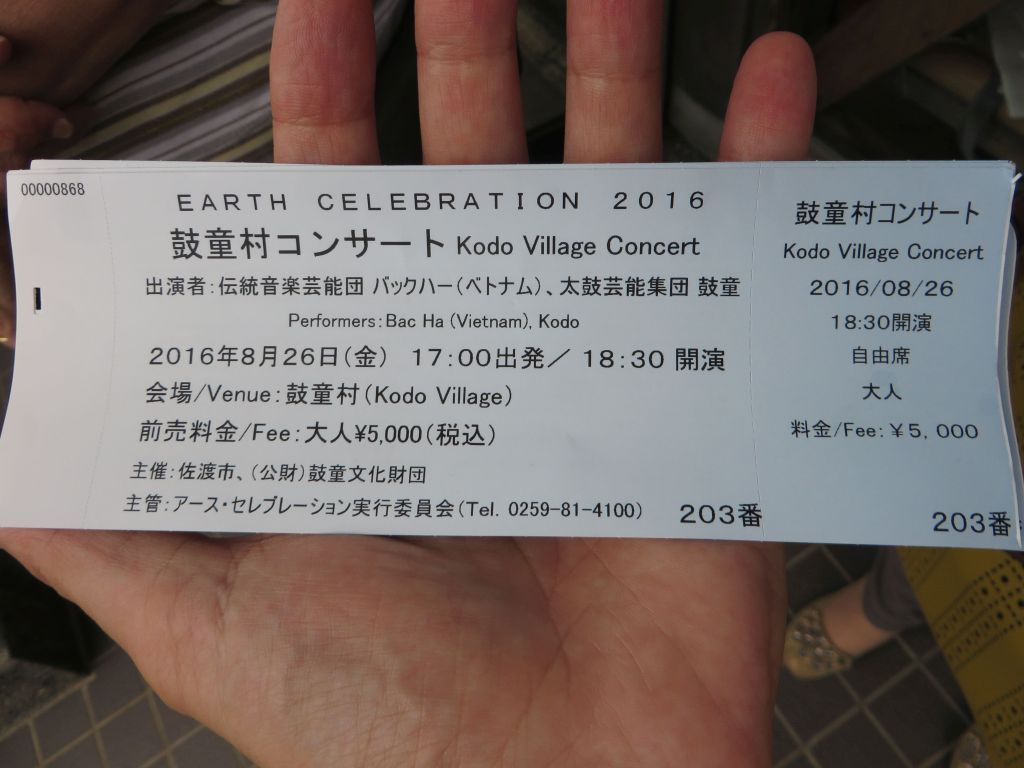
It is a very unusual organization, because not only the venue for the Friday evening concert has a limited capacity, but its parking lot has even less space, because this is actually where Kodo usually rehearses when not on tour, and there is usually no public there.
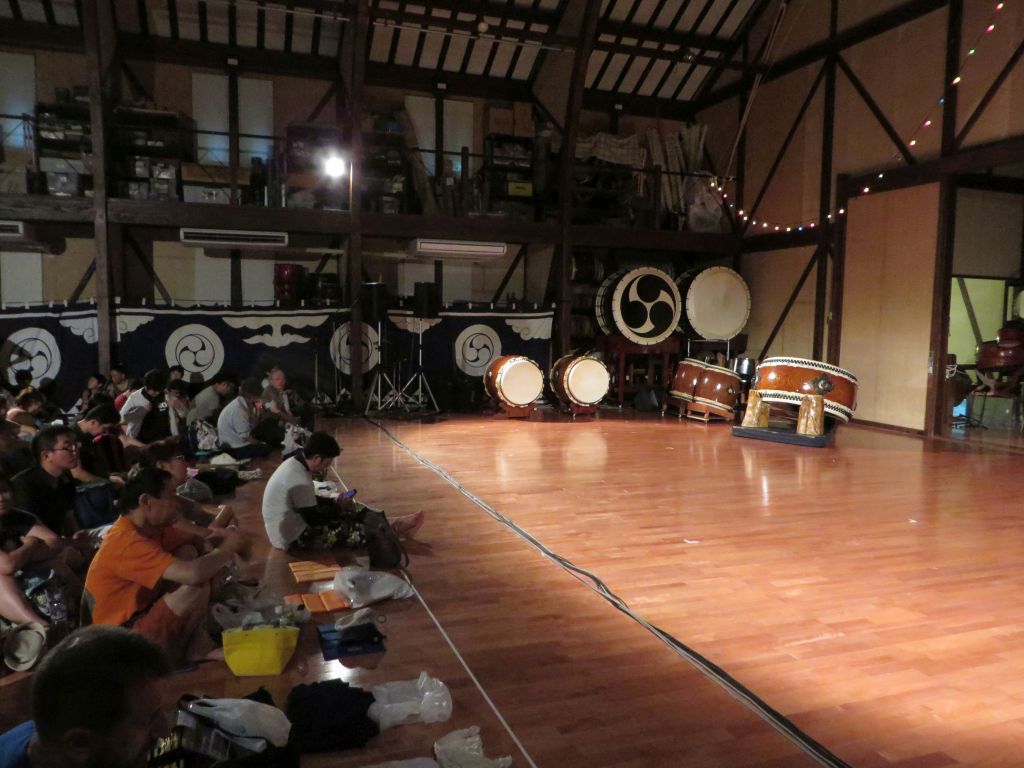
In order to avoid a hopeless traffic mess, the public are bussed from the harbor area, where parking space is available after the afternoon ferry has left. Hence this unusual concert ticket : departure at 17:00, start of the concert at 18:30. And 208 tickets correspond neatly to four 52-seat buses that you board in accordance to your ticket number, on the way in and back, with full Japanese discipline and relaxed smiles.
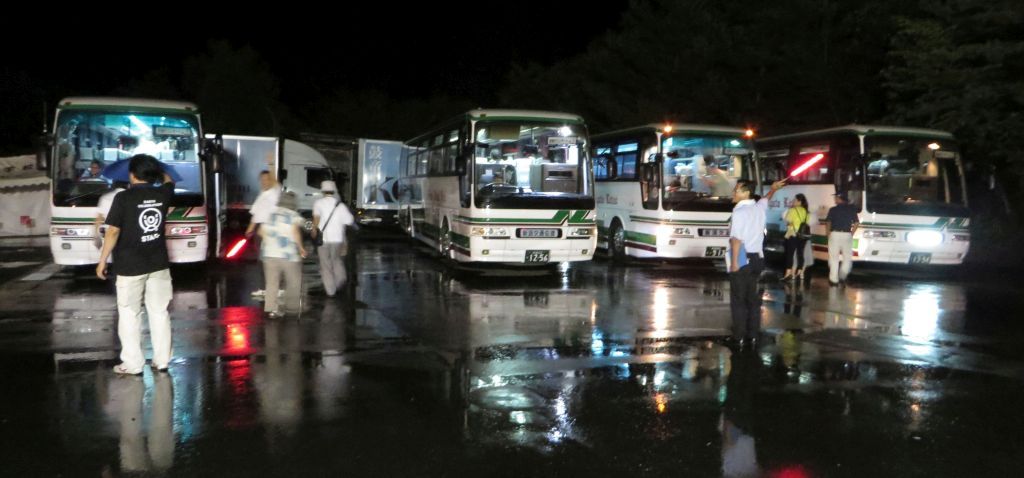
Taking pictures is prohibited during these concerts (nobody did that) and it was probably better this way : how could pictures convey the technical mastership and the visual contact with the audience ? The professional videos posted on YouTube are not on par with my memories either.
But these are nevertheless some pictures of a demonstration on Sunday morning by some of the staff, those who were directing the audience for boarding the buses on Friday evening.
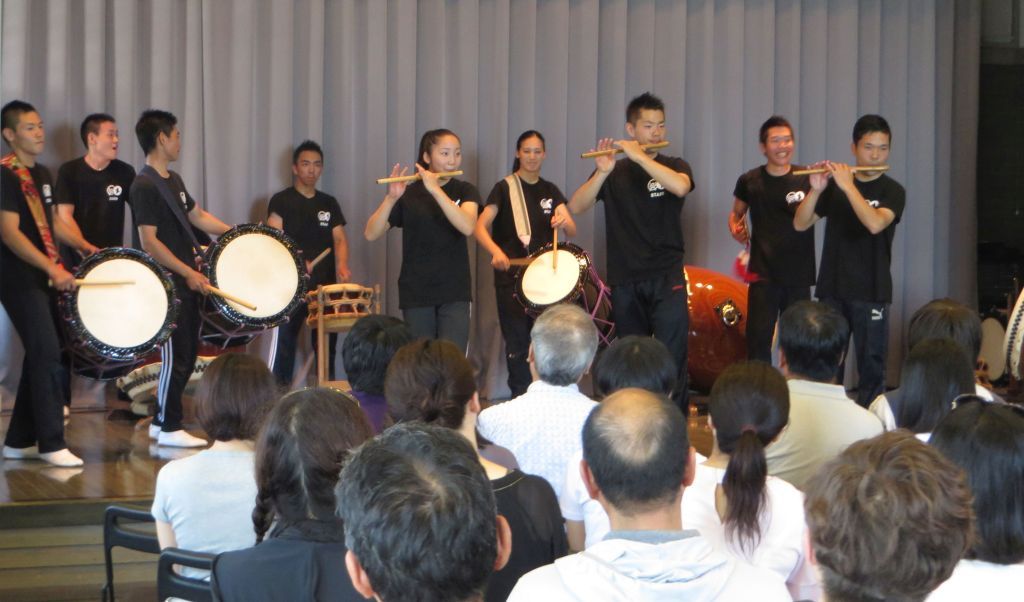
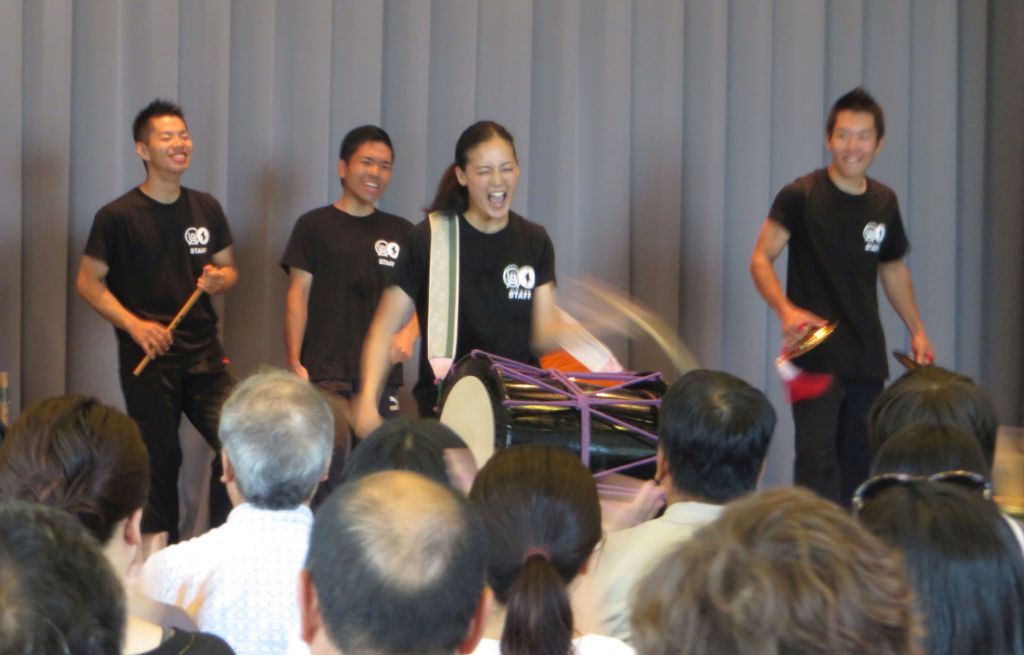
You can’t imagine the variety of sounds which can be produced with these chapa (pairs of deep copper plates)
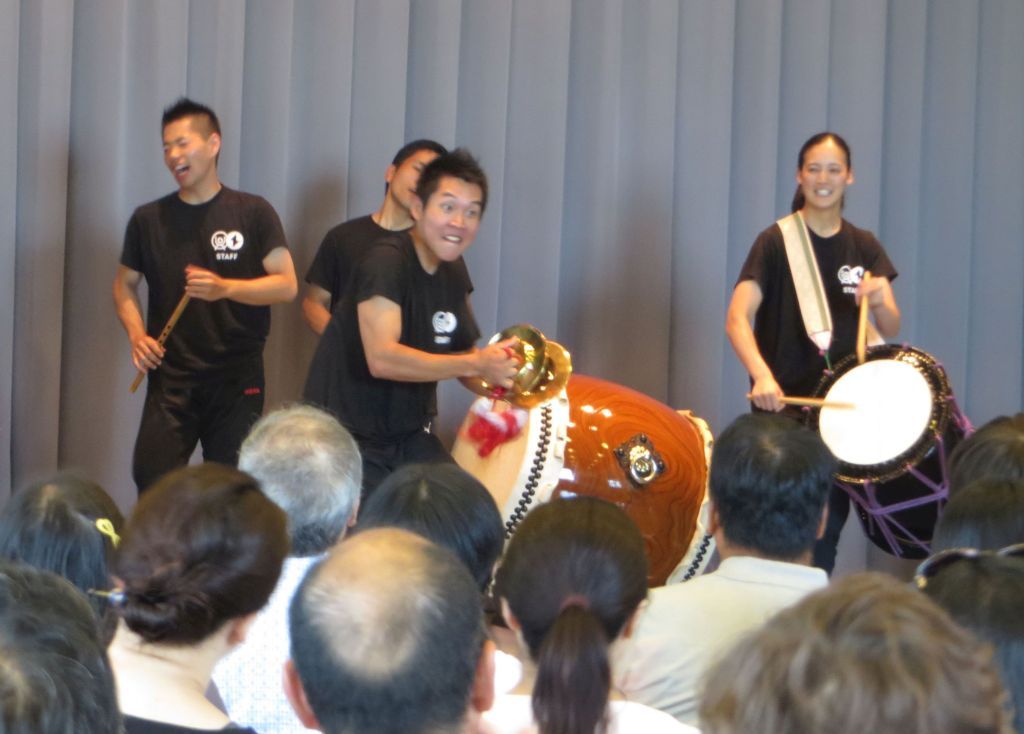
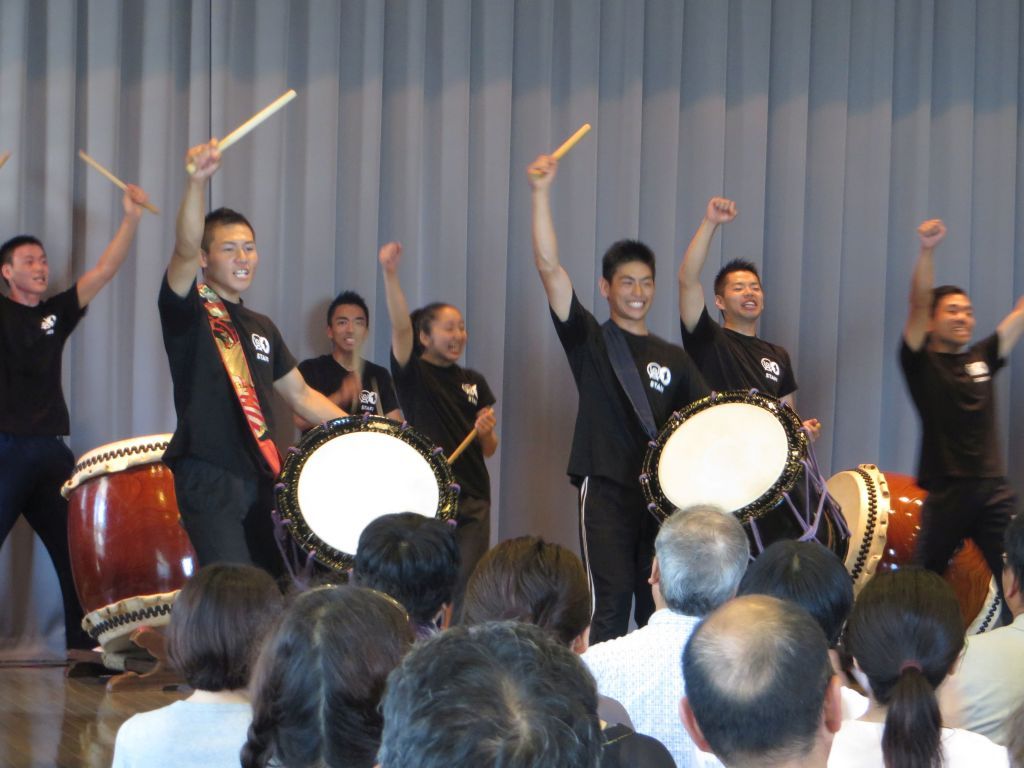
The Japanese start early learning to use the taiko 太鼓 (literally "big drum"), and these primary school accompanied by their tutors were showing that they had a brilliant future.
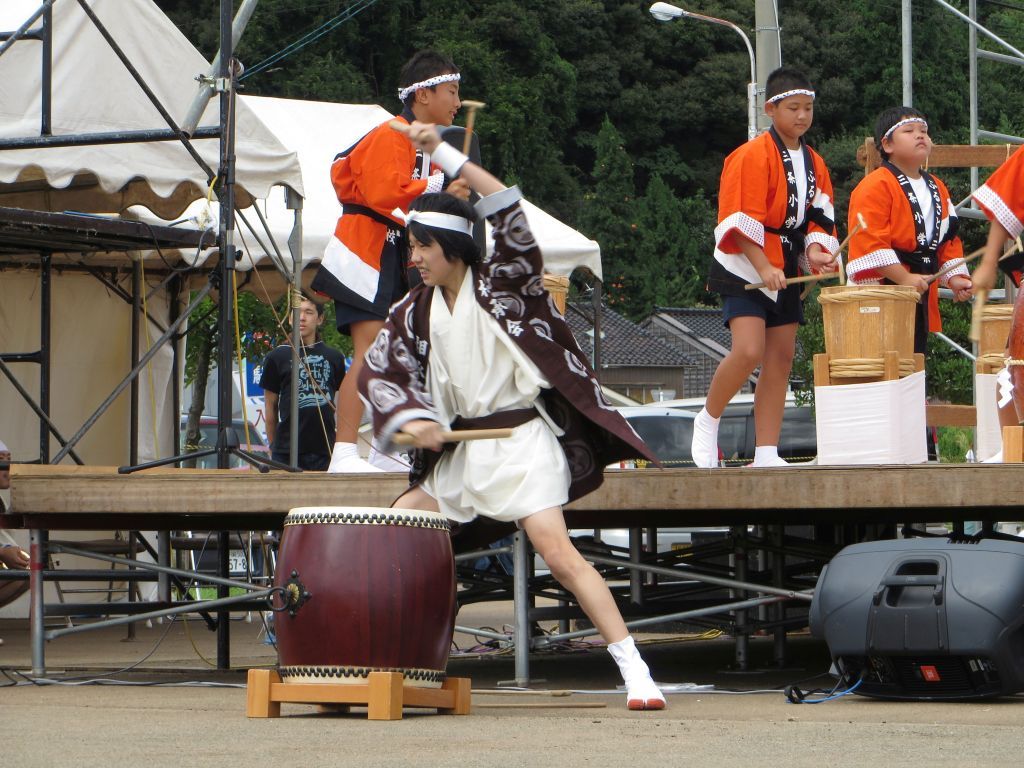
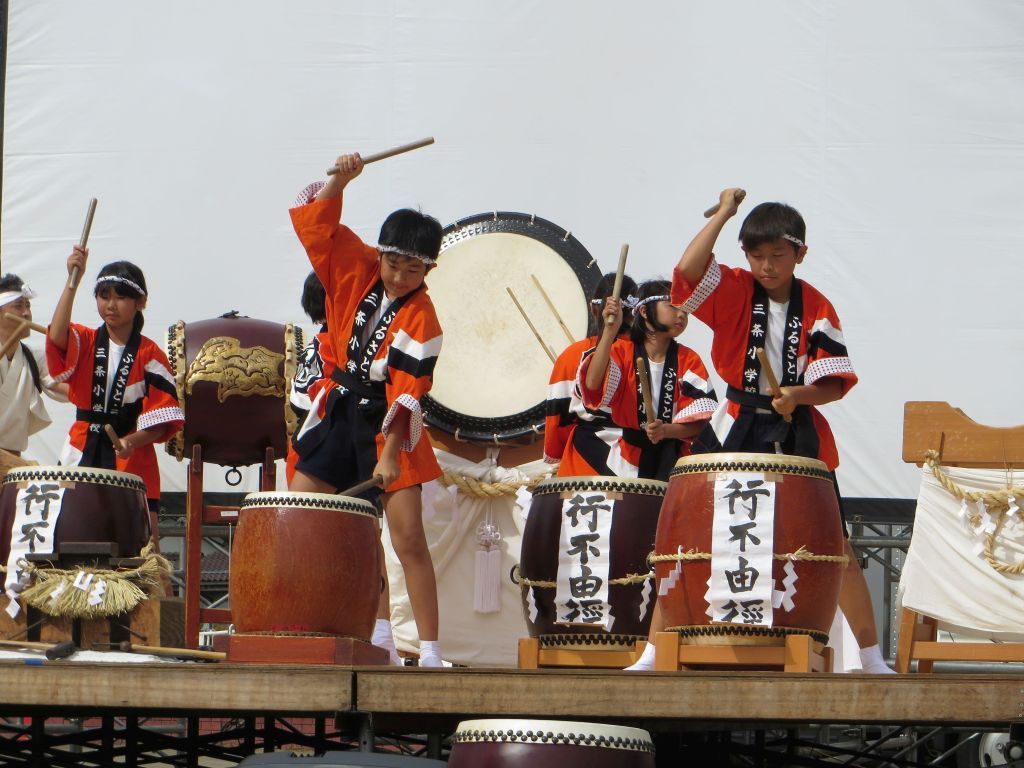
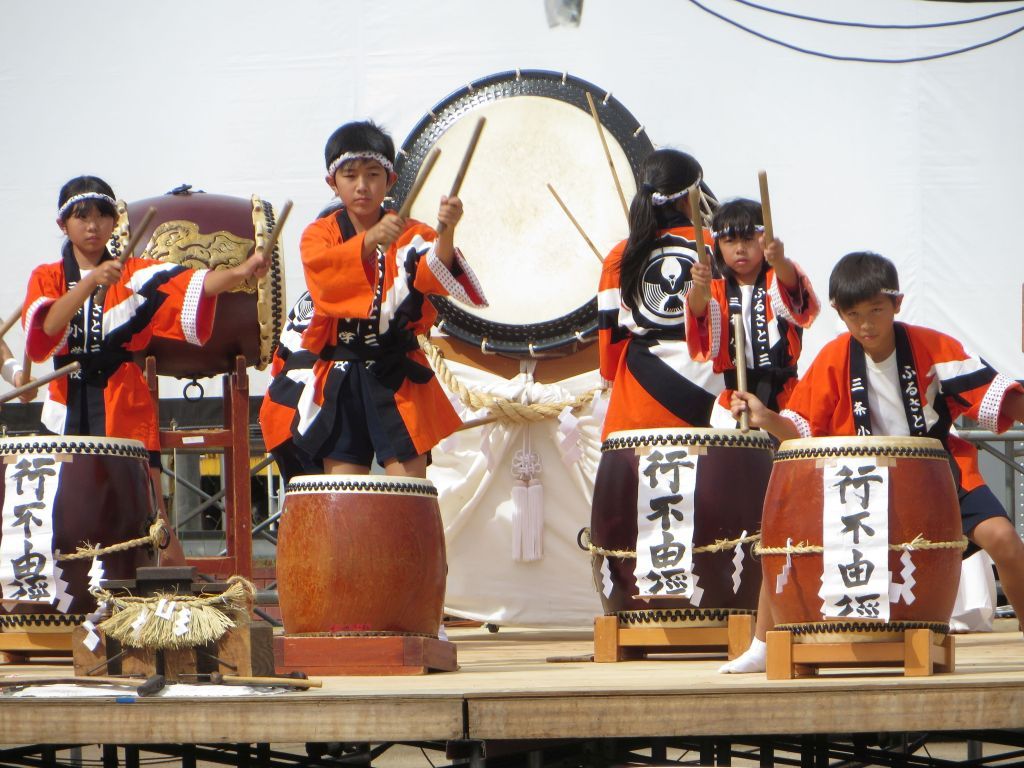
The festival is of course an opportunity for tasting the local dishes focused of course on seafood. The local dish are these skewers of cuttlefish mouths, center, an interesting and unexpected treat (the taste and flavor are slightly different from the rest of the flesh).
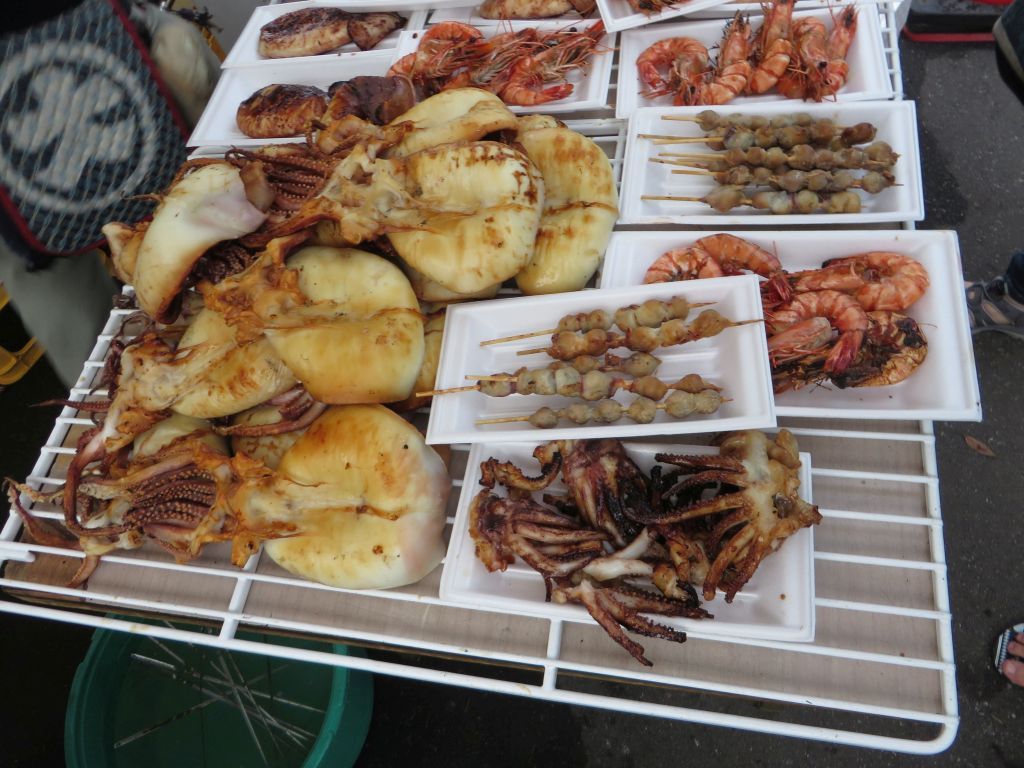
Sado does not live off fishing and an annual festival only, but also of tourism around the memory of its gold mines which have been active for four centuries, rivaling in output with those of Bolivia, until they closed for good in 1989.
The miners, many of which were homeless people arrested in the major cities in Japan, worked in horrendous conditions, continuously pumping with Archimedes screws the water invading the tunnels that thy ventilated also with human power. Life expectancy there was especially low.
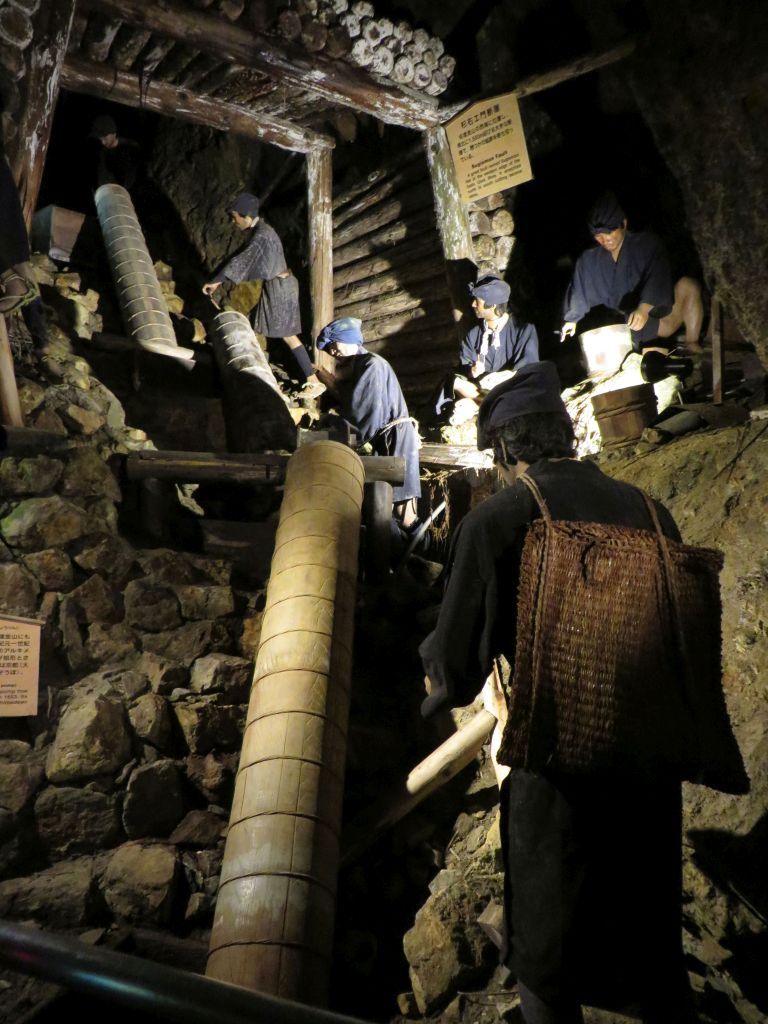
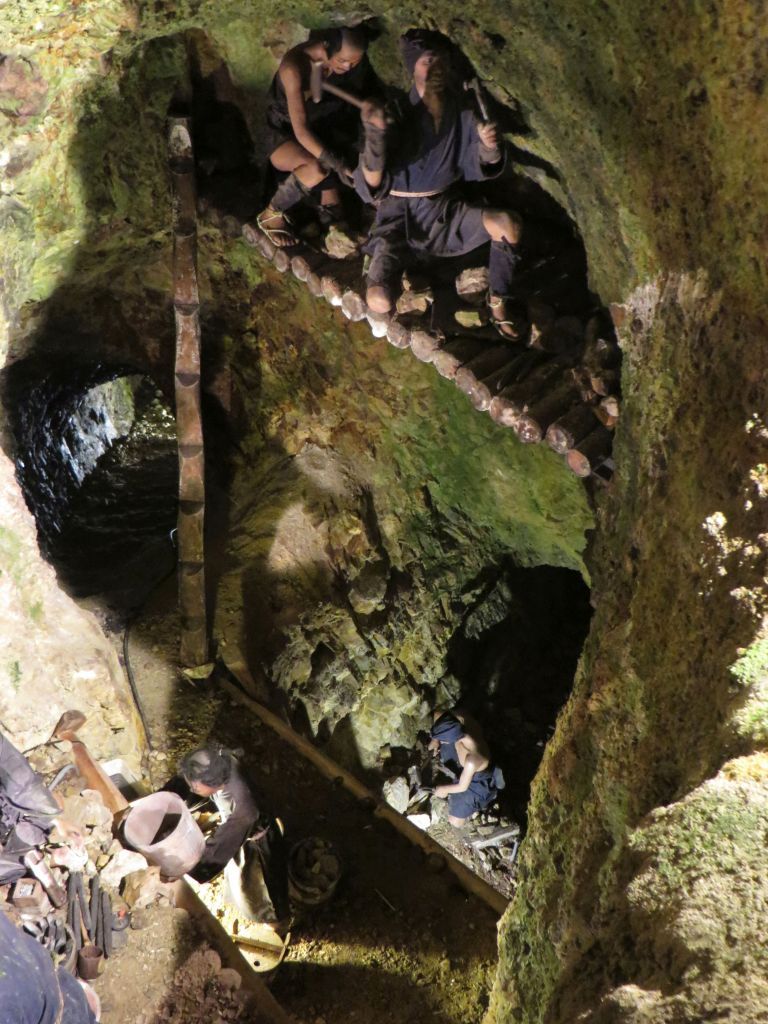
This reproduction of part of a 1695 plan shows the network of tunnels in the mountain.
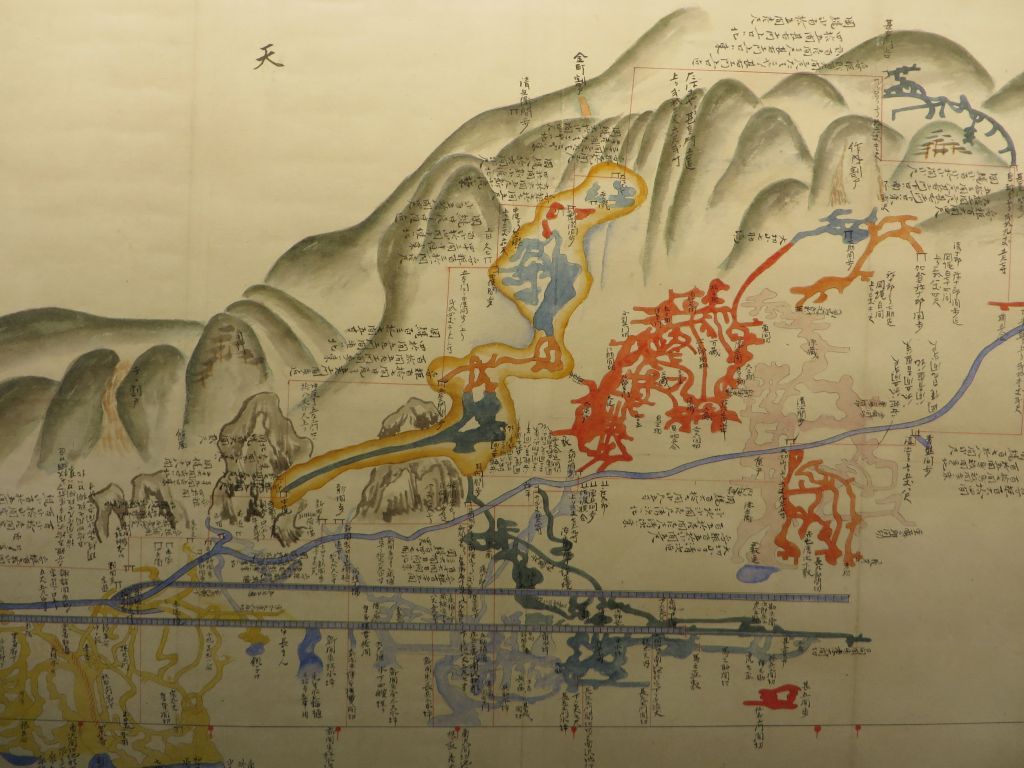
A matsuri 祭 (traditional festival) created some animation in the streets of the tiny town of Ogi on Saturday night.
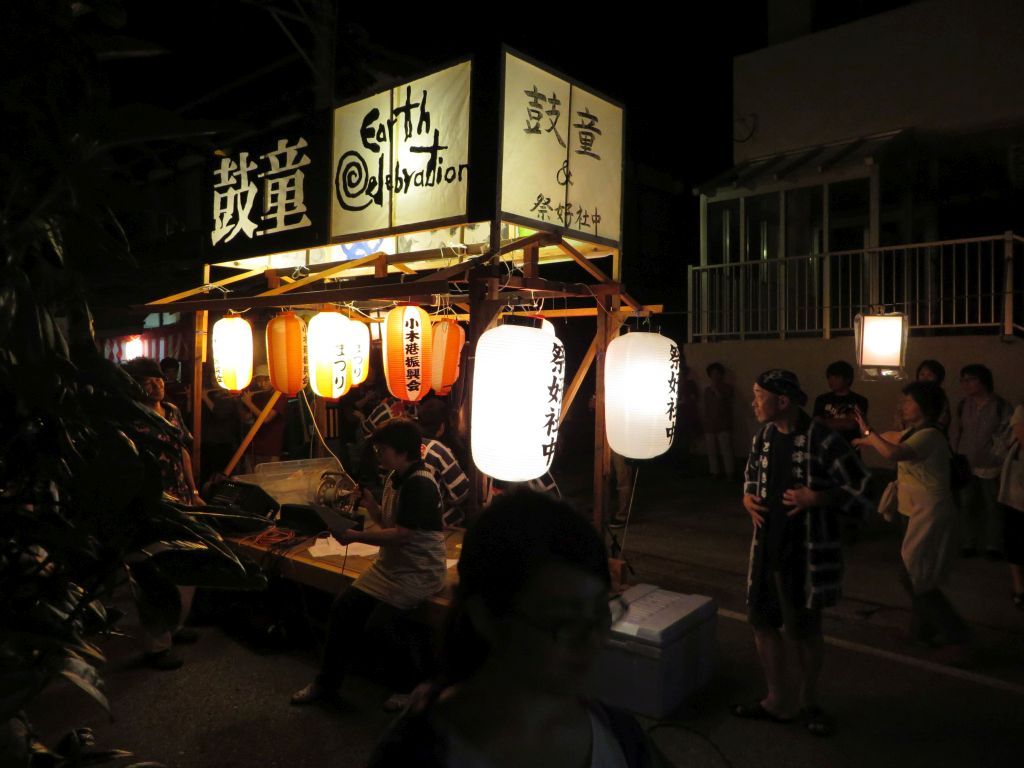
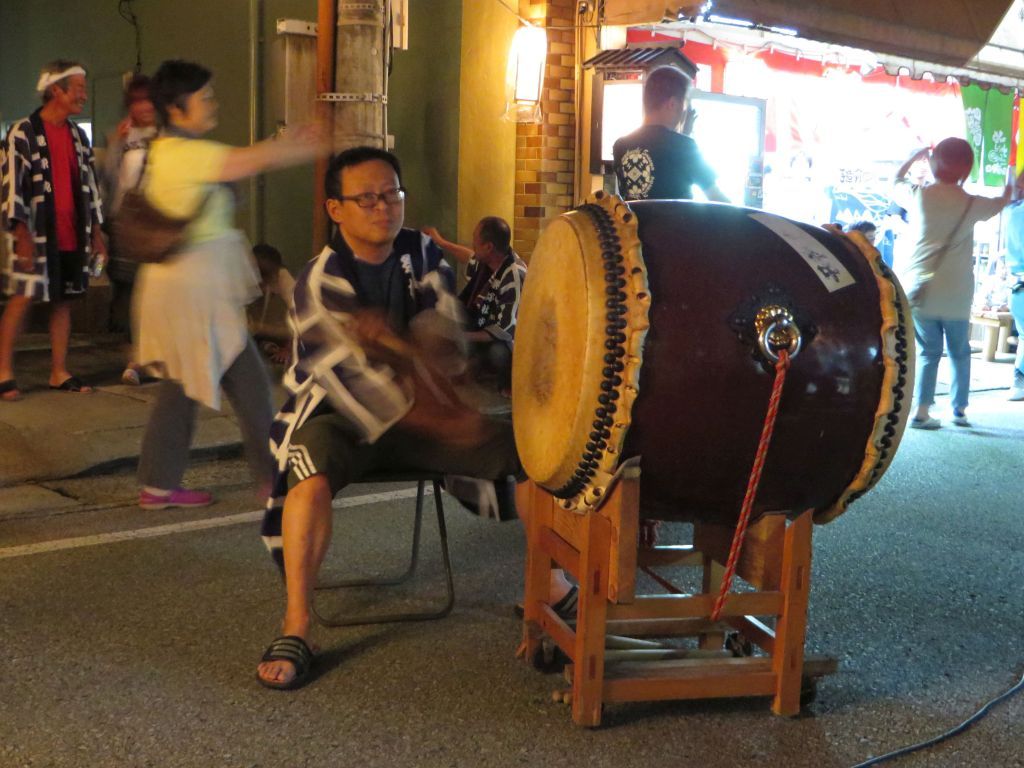
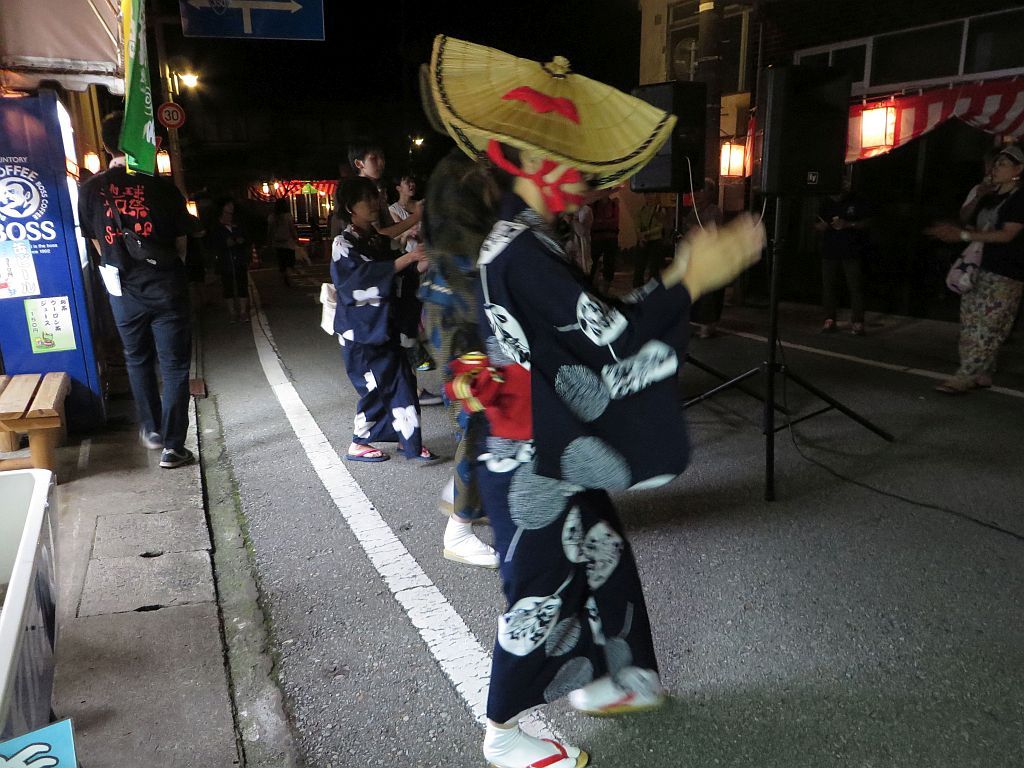
We alas have to head back to on Ōsaka Sunday morning – our friends work on Monday and we fly home on Tuesday.
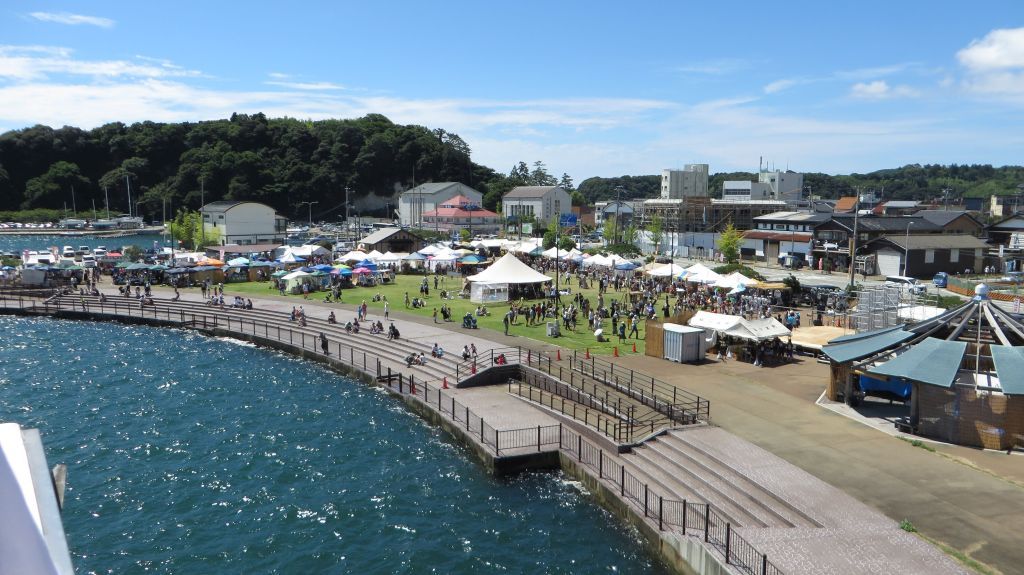
Those who could stay for the activities, the concert and the fireworks on Sunday wave at the passengers leaving on the ferry, whose cars are registered from all over Japan, from Nagasaki to Morioka.
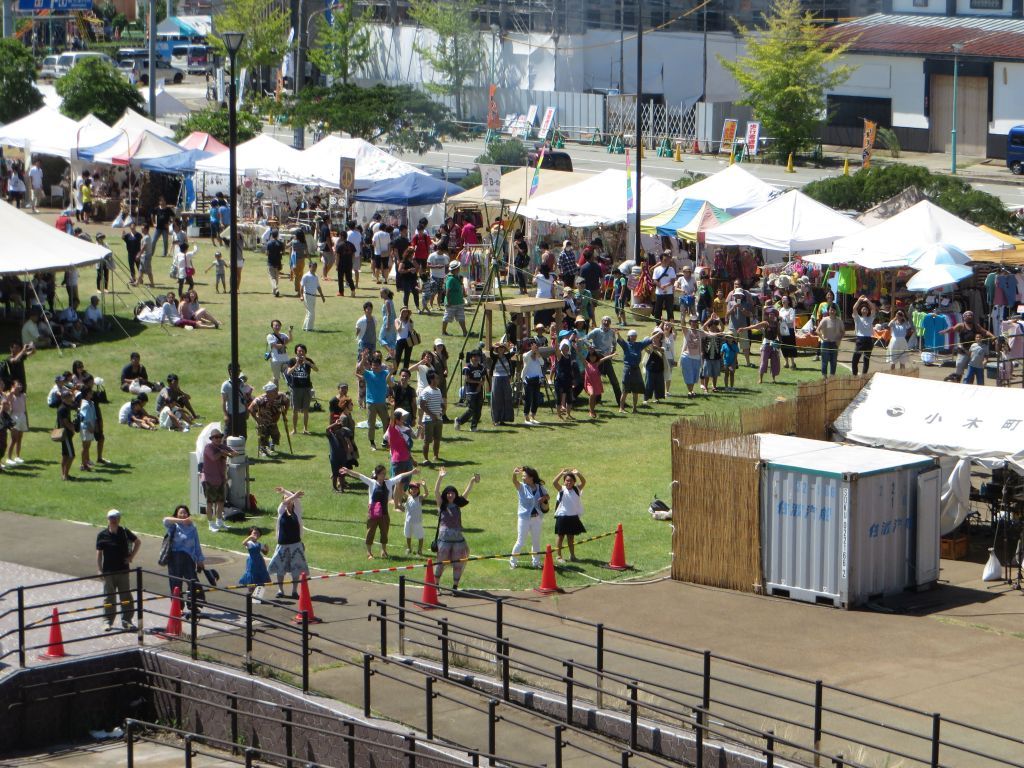
There is an inhabitant of Sado who is not here to salute our departure, though.
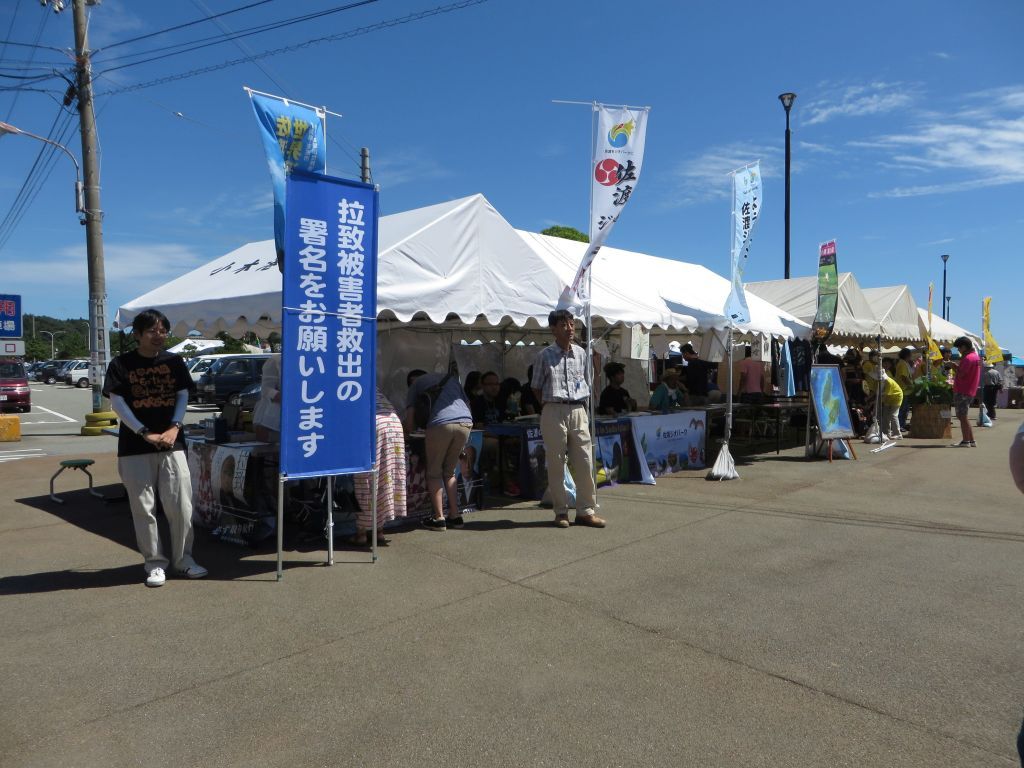
On August 12, 1978, Miyoshi Soga and her daughter Hitomi, then aged 46 and 19, were kidnapped by North Korean agents to serve as teachers of Japanese language and culture to future secret agents to be later infiltrated into Japan. They were not the only ones : hundreds of disappearances in Japan in the years 1977-1983 might have been actually North Korean kidnappings, or murders of witnesses of North Korean covert operations..
Only in 2002 did North Korea let Hitomi Soga and for other Japanese nationals leave, but her mother disappeared without a trace, possibly murdered immediately because the agents who had nabbed her with her daughter had rated her as useless.
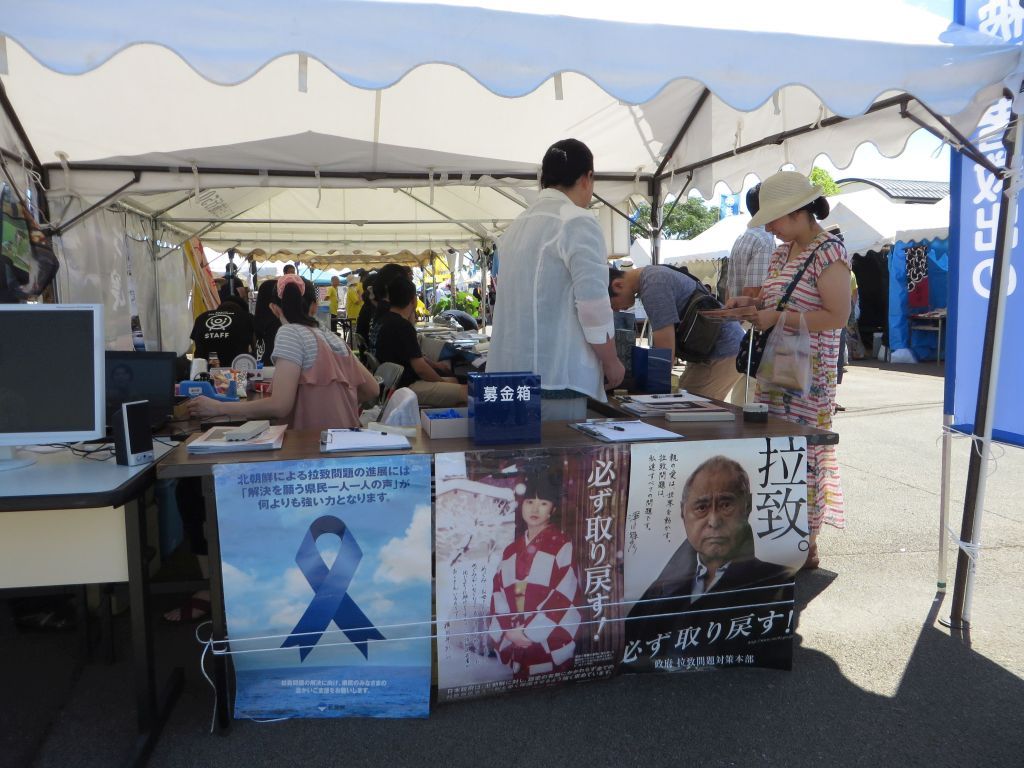
Miyoshi and Hitomi Soga are two of the innocent and often unknown victims of a cruel far away cold war, and this association has been fighting for decades to keep them from being utterly forgotten.
Thanks for reading me !
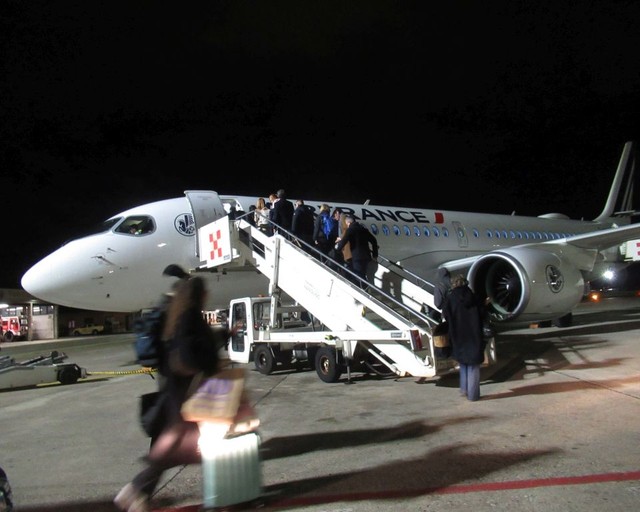
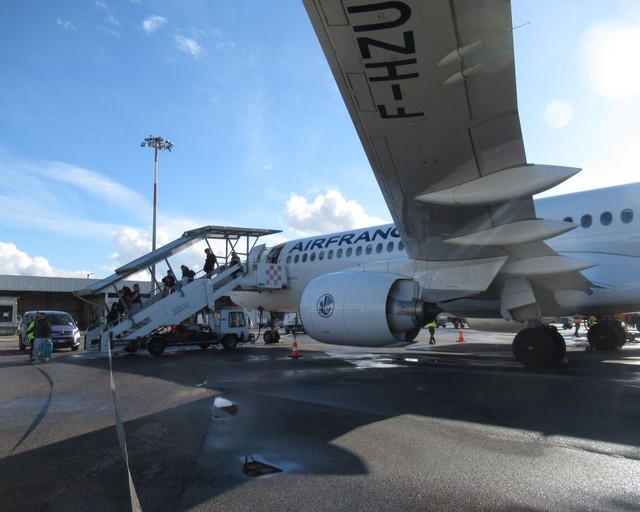
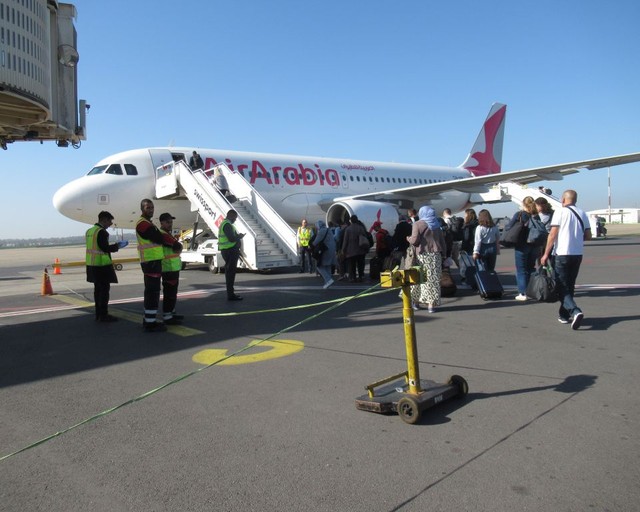
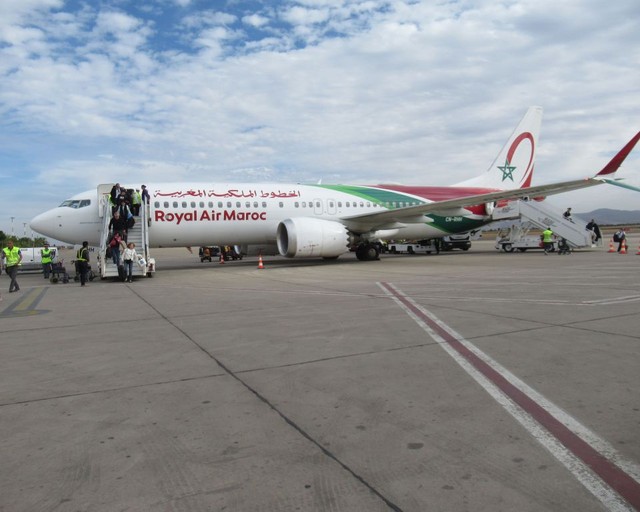
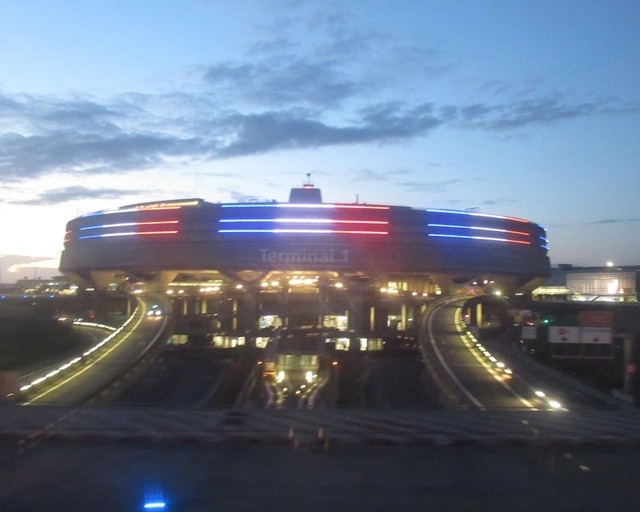
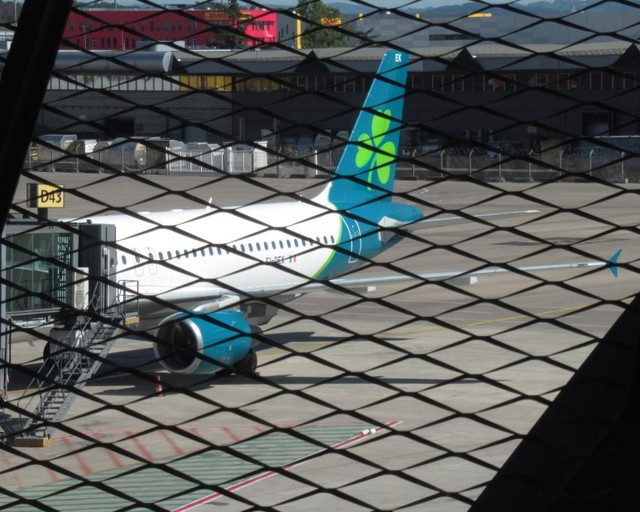

Thank you for sharing this report. It looks like you had a good trip with AF, and what a great day for flying! I really enjoyed seeing all your photos from your flight to CDG.
Excellent weather indeed (I used enhanced some of the pictures, but not all of them).
Thanks for your comment !
(I know that some readers will be horrified to see that I placed them on the bare tray table. I suggest rating PG-13 this report ^^)
You have to give more warning next time, I almost fainted in distress! ;)
A most enjoyable read, as usual.
Thank you for your tongue in cheek understanding, and for your appreciative comment ! :)
Thank you for sharing this FR with us!
"this FR is long"
- Looking forward to it!
"There is often nothing interesting to be seen from a Japanese expressway"
- I love pictures of all kind of roads in FRs, thank you for including some!
Interesting information about that bridge.
Stunning spotting pictures at KIX, the weather conditions were definitely great.
Can't wait for the rest of the 772s (including this one) to be refurbished, this particular bird is without doubt in need of a refresh.
Beautiful shots of KIX after departure.
Absolutely amazing aerial shots throughout the flight! Shots of Japan, Russia, Denmark, Germany, Belgium, France etc.
"village in the Nenets Autonomous District (population 35 inhabitants, according to the 2010 census)."
- Damn, a lot of interesting information. I appreciate the time and effort you put into these FRs.
Glad to hear you were able to continue taking pictures, giving us more to look at for this geography lesson :).
"We are not there yet : this is the very long Yxlan Island skirted by the ferries to/from Stockholm to remain sheltered from sea conditions as long as possible. Blidö is below in this picture. "
- Still part of Stockholm county and the Stockholm archipelago :), absolutely beatiful shot of those islands in the most North-eastern parts of STO.
"A wide landscape of Stockholm’s urban area"
- Excellent shot, I can see the area I live in on this picture :).
"The view was so crisp that I could not resist adding two more shots of the city center. RL 777, they are for you ! ;)"
Wow, absolutely fantastic pictures of the city centre of Stockholm! I appreciate that a lot :), very crisp shots!
Meals look standard for Y meals but the portion of the 2nd entrée looks to be on the smaller side.
Very interesting bonus at the end, thanks for sharing.
Have a good one, see you!
I'm in no position to criticize the length of this comment, considering the length of the report ^^
I like the way road signs and all kinds of small details combine to define many road pictures as being unmistakably from their country and no other.
Choosing a window seat directed away from the sun is part of my routine pre-flight checklist, but having a perfect weather for taking pictures is a matter of pure luck.
I enjoy recognizing man-made and natural features from above, but always wish I knew the places better.
Thanks for your comments, and glad that you liked this report !
Lovely cover picture of Stockholm :).
Choosing the Stockholm view as a title picture was a blatant call for your readership ;)
Another lovely report from you, thank you very much for sharing!
I am quite surprised Air France haven't completed the refurbishment of all B777-200ER aircraft, I was under the impression hat they had completed this a long time ago.
Lovely pictures and descriptions of each and every one of them!
The food looks kinda very bland, however :/
Looking forward to reading more from you!
Regards
Jish
This old cabin was a disappointment, but I learned to never have too high comfort or food expectations with AF in Economy.
I had a clear view of Stockholm on that flight; now I get to see the city from the ground (see my latest reports^^).
Thanks for visiting and for your comment !